Gilbert Henry Stephenson. No. 6598.
Images
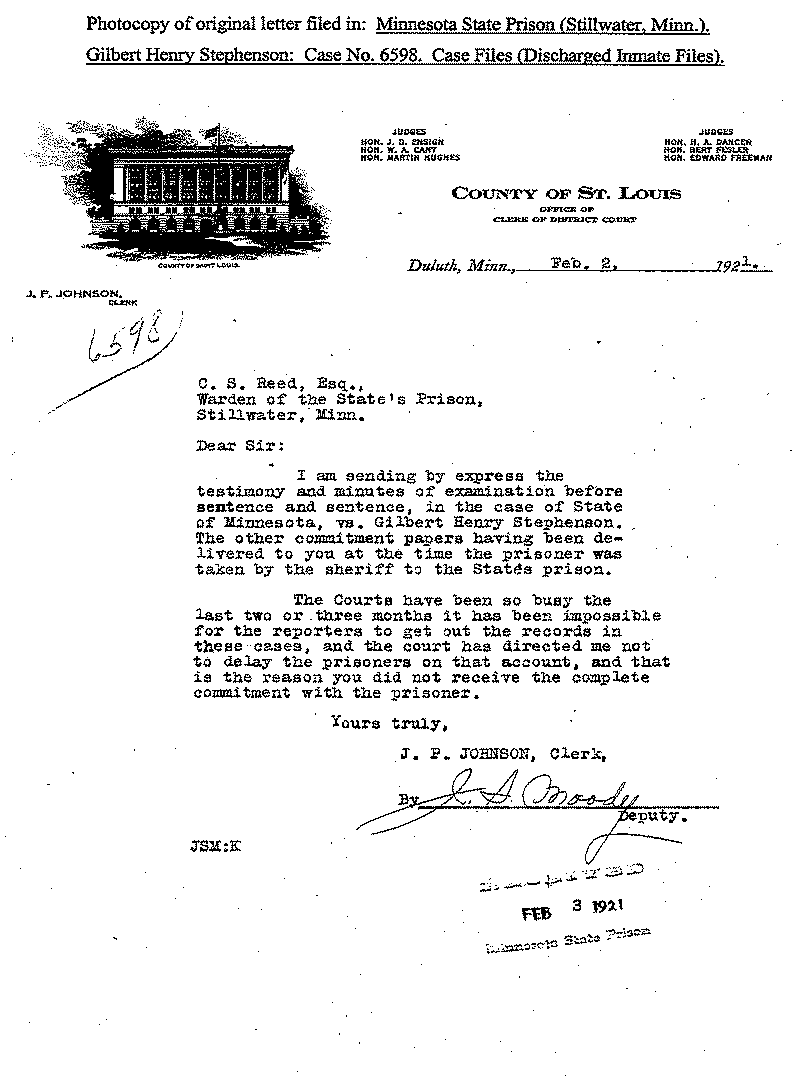
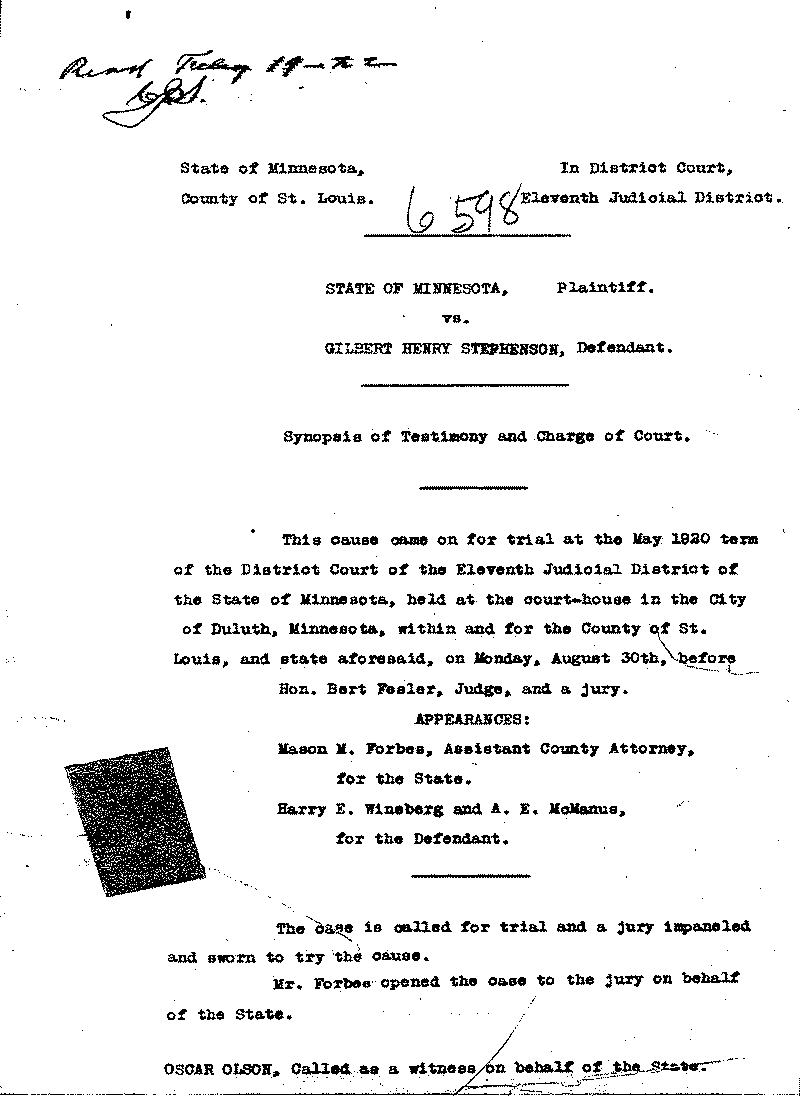
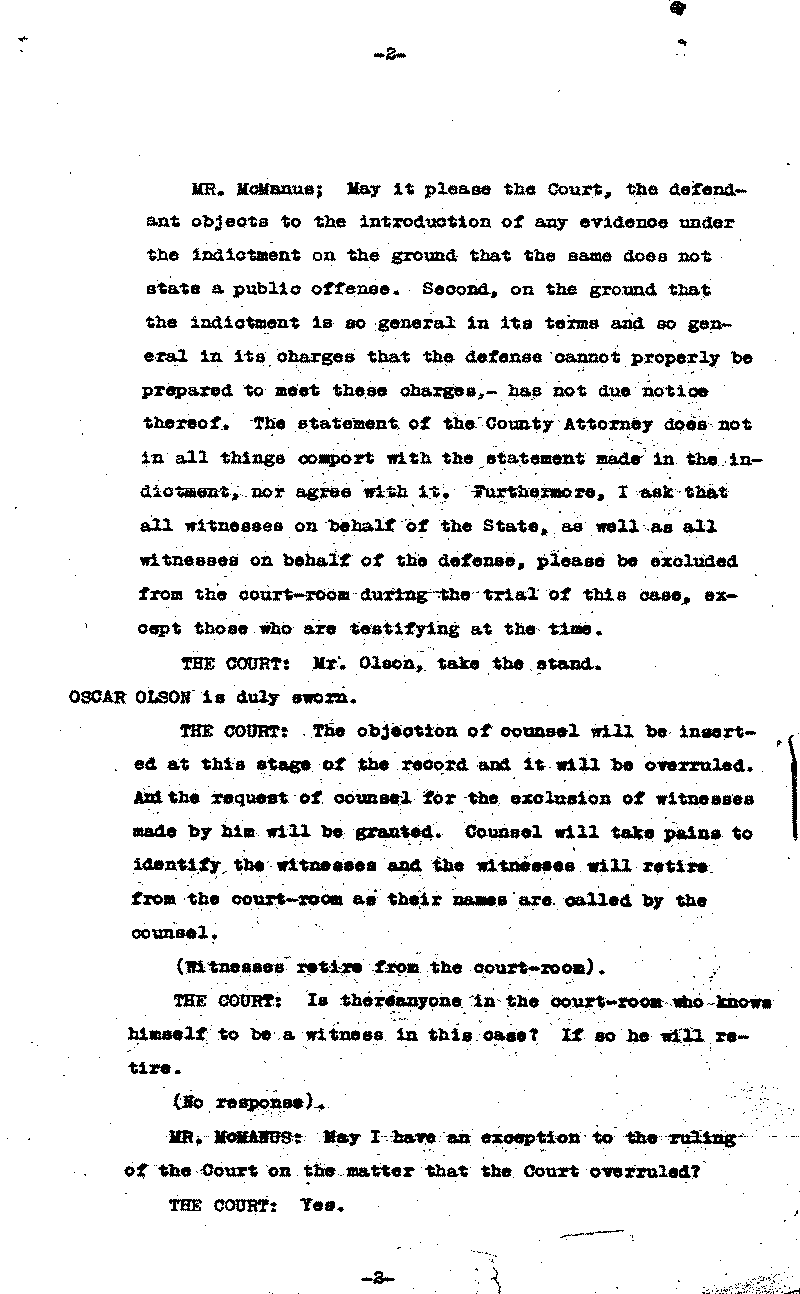
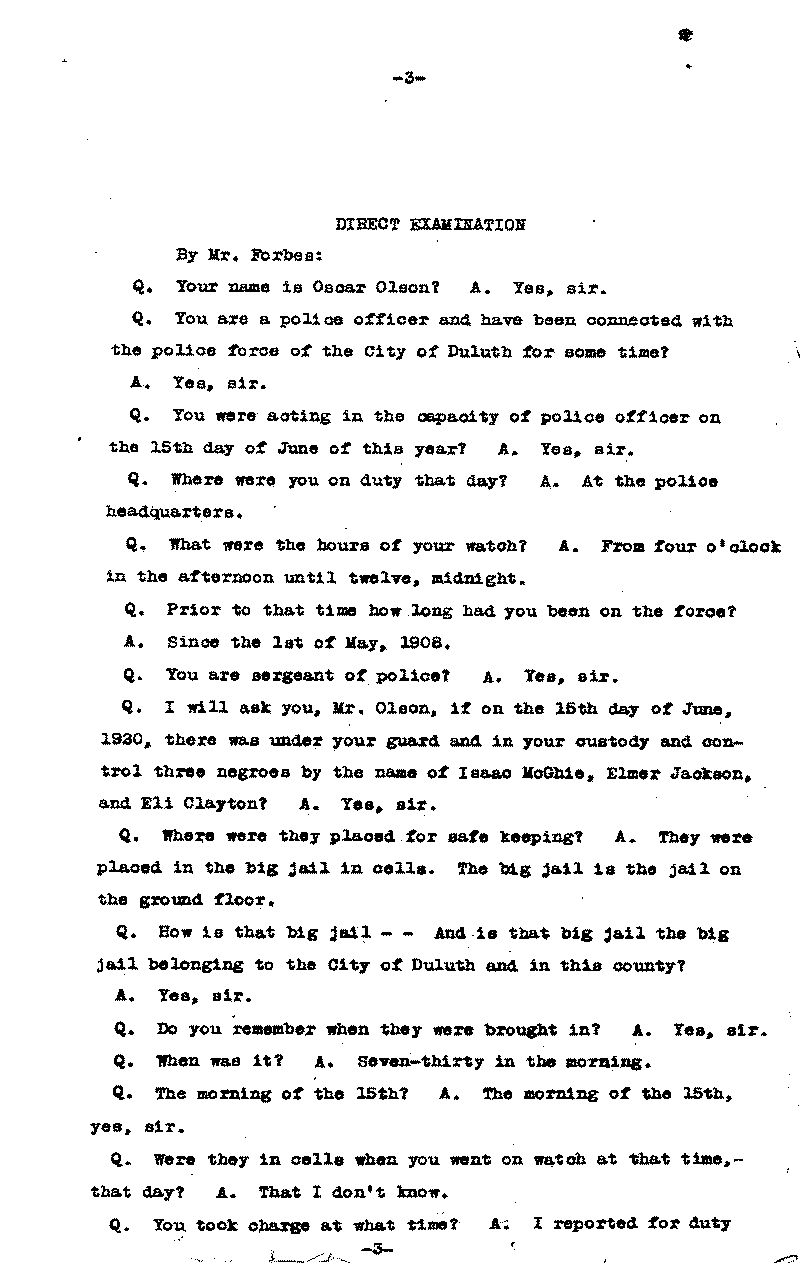
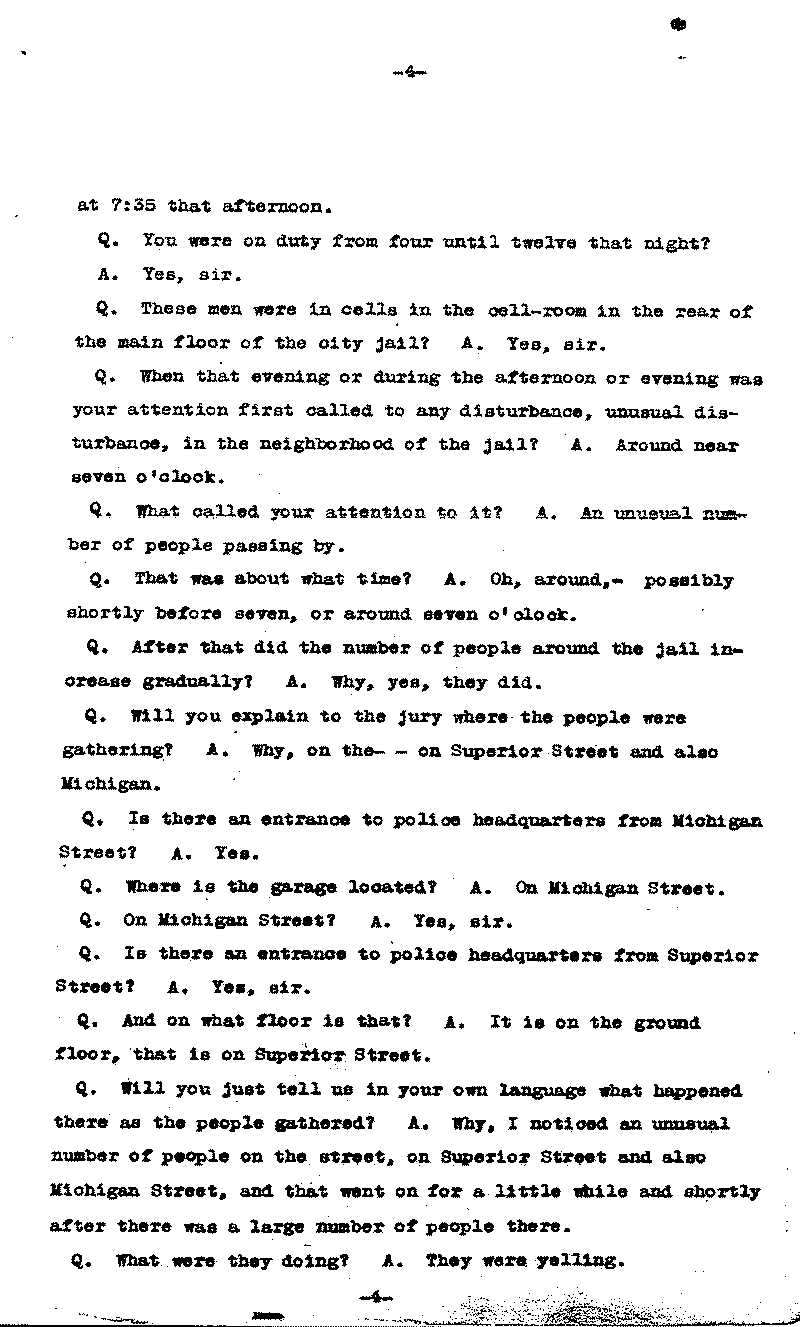
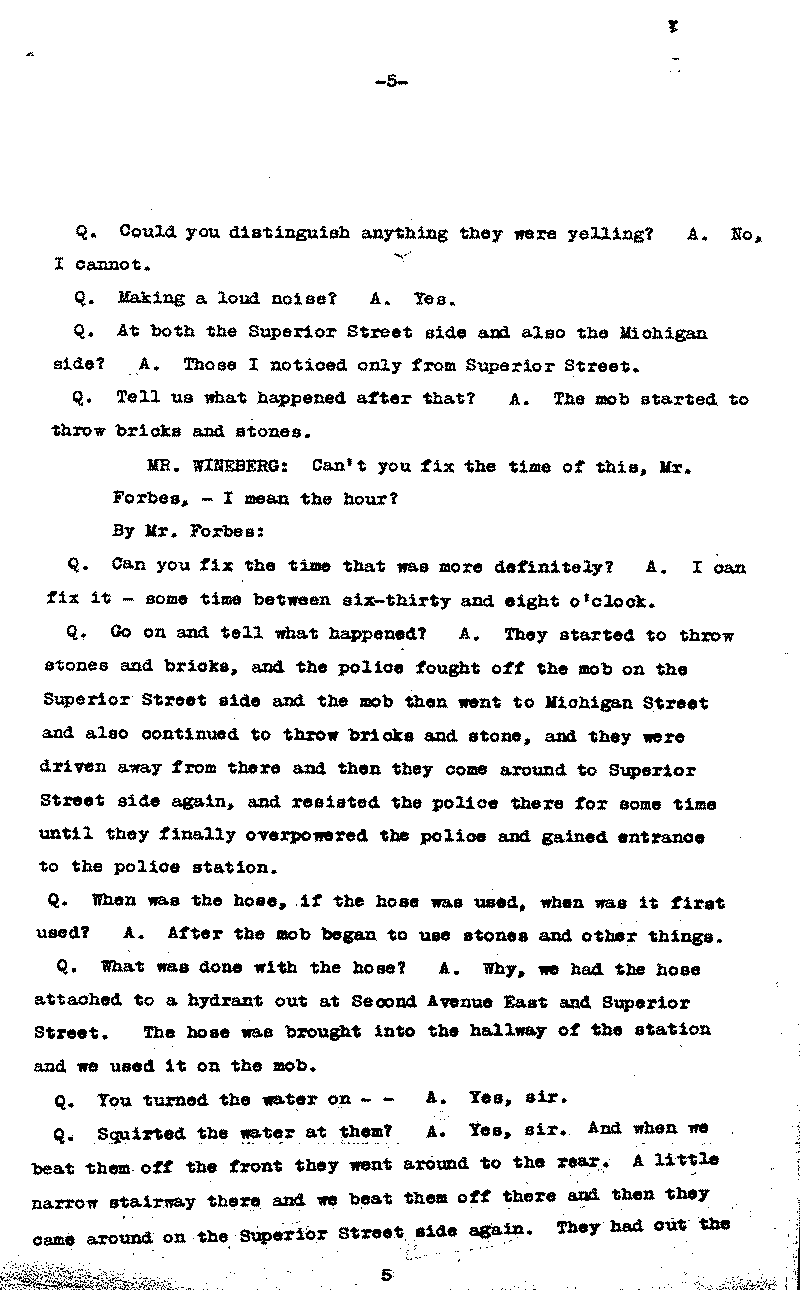
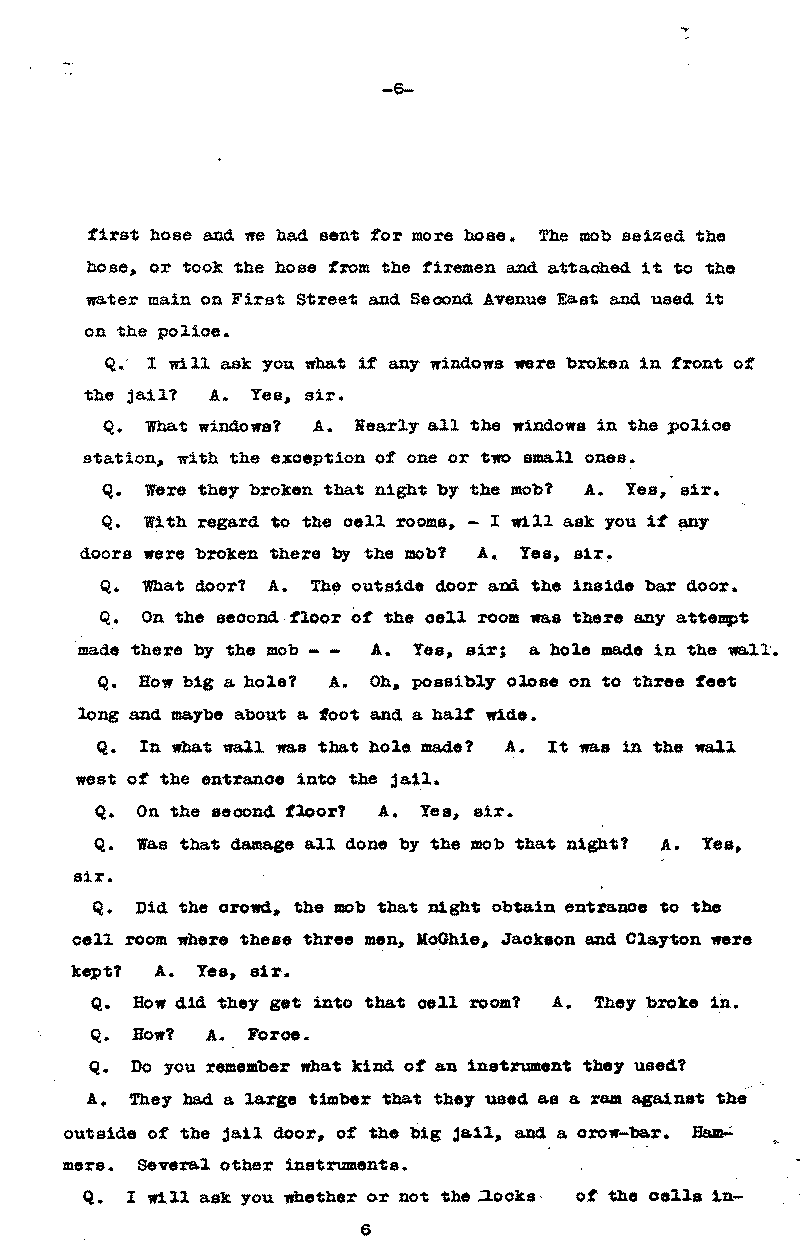
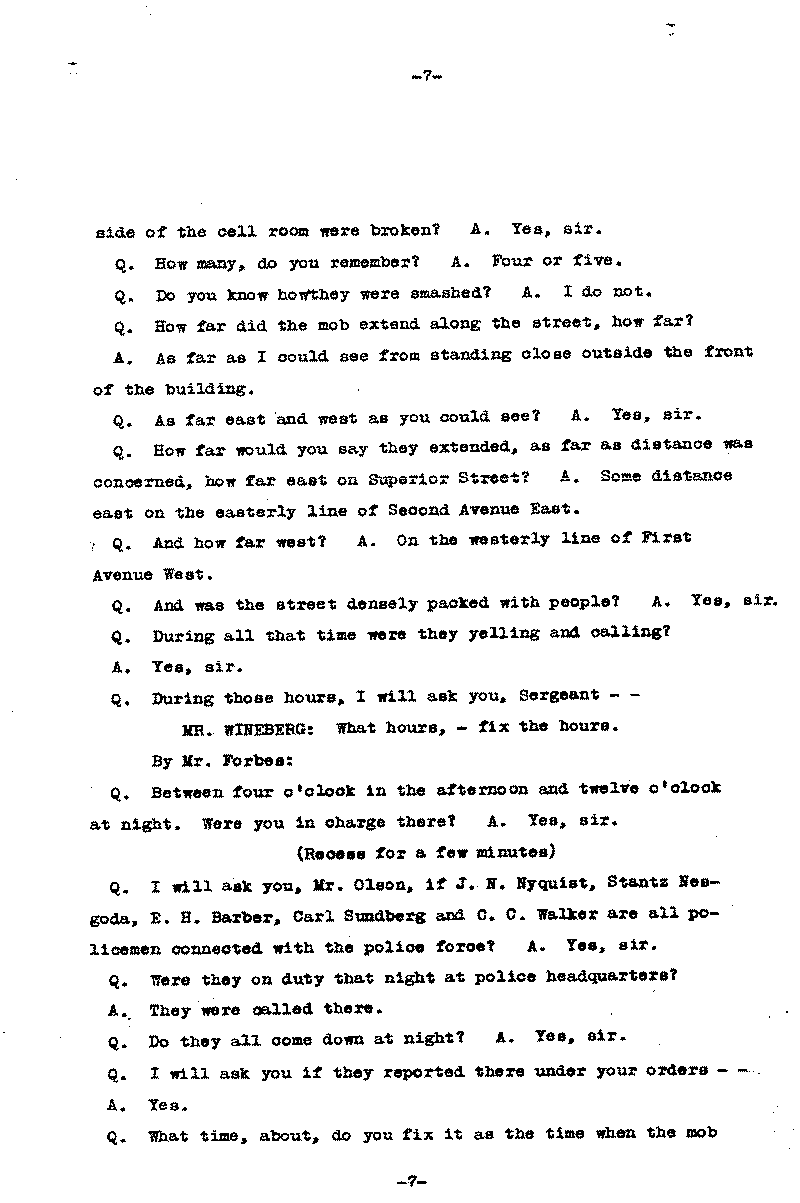
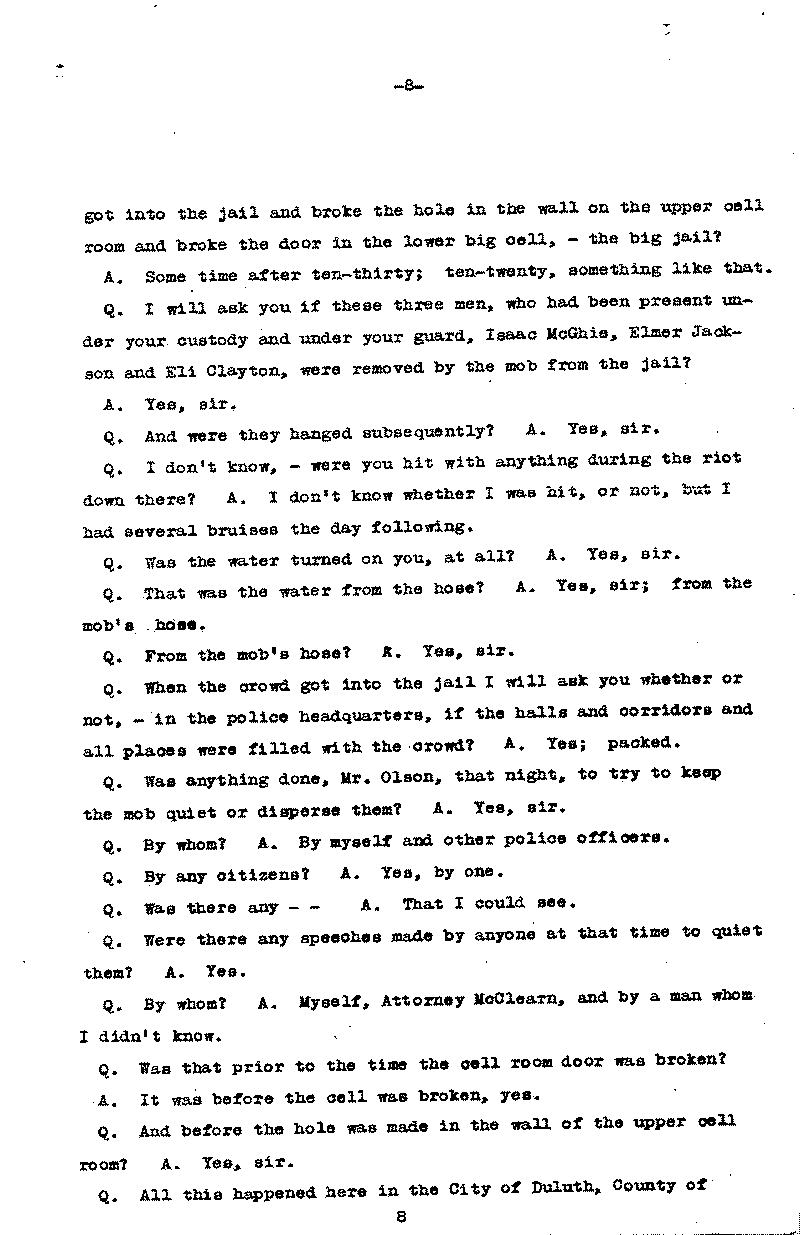
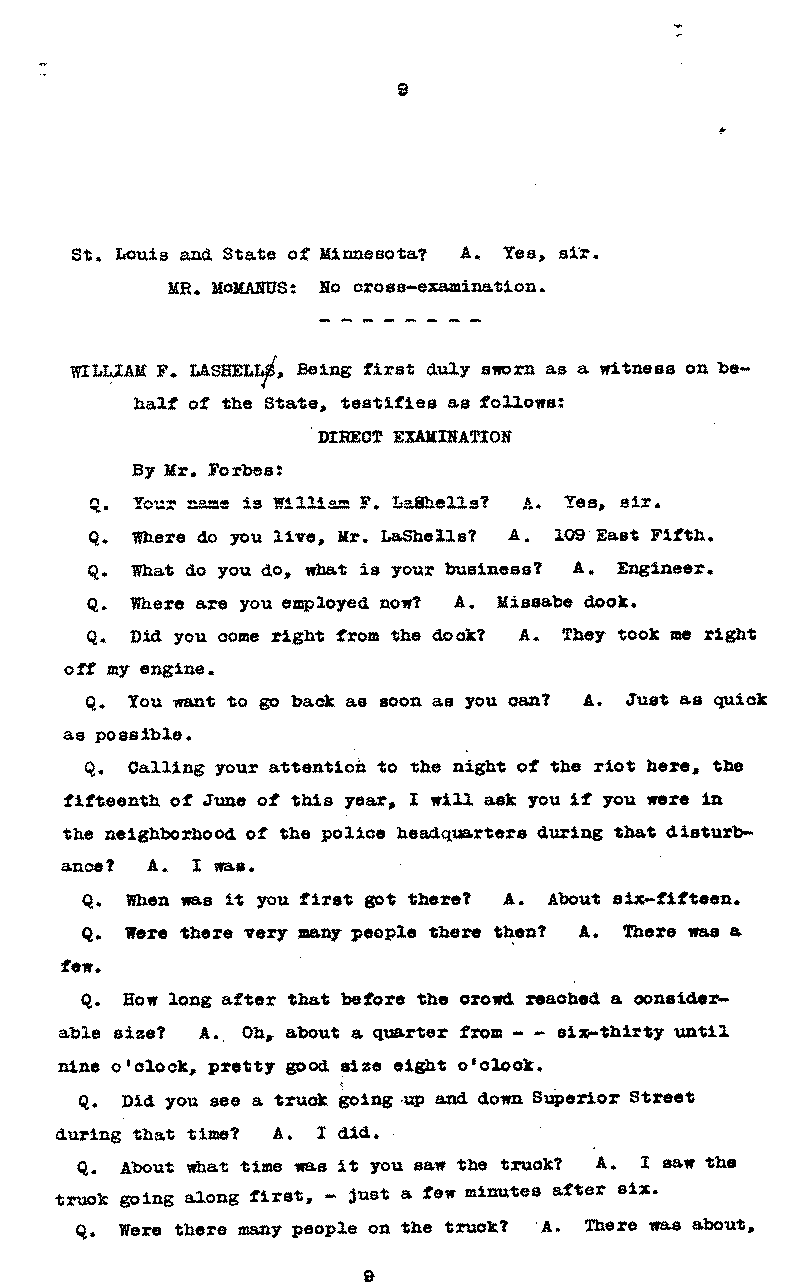
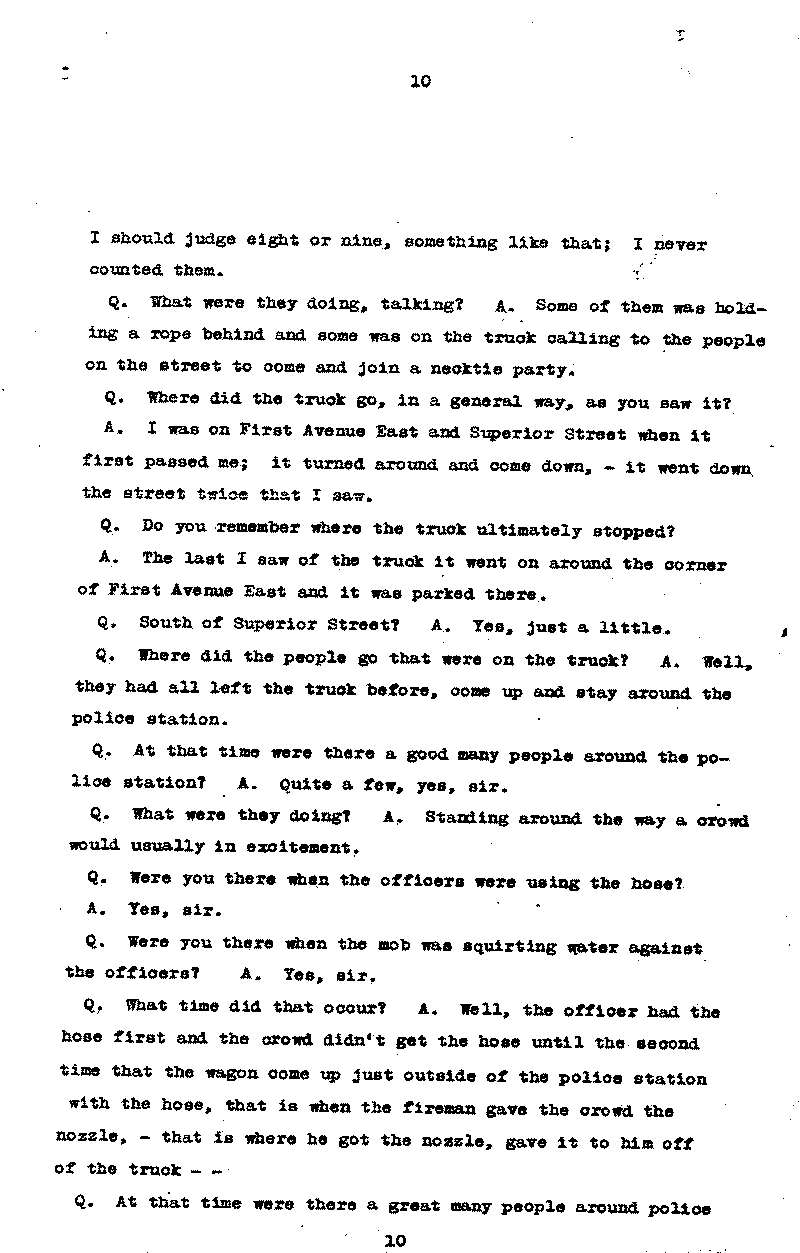
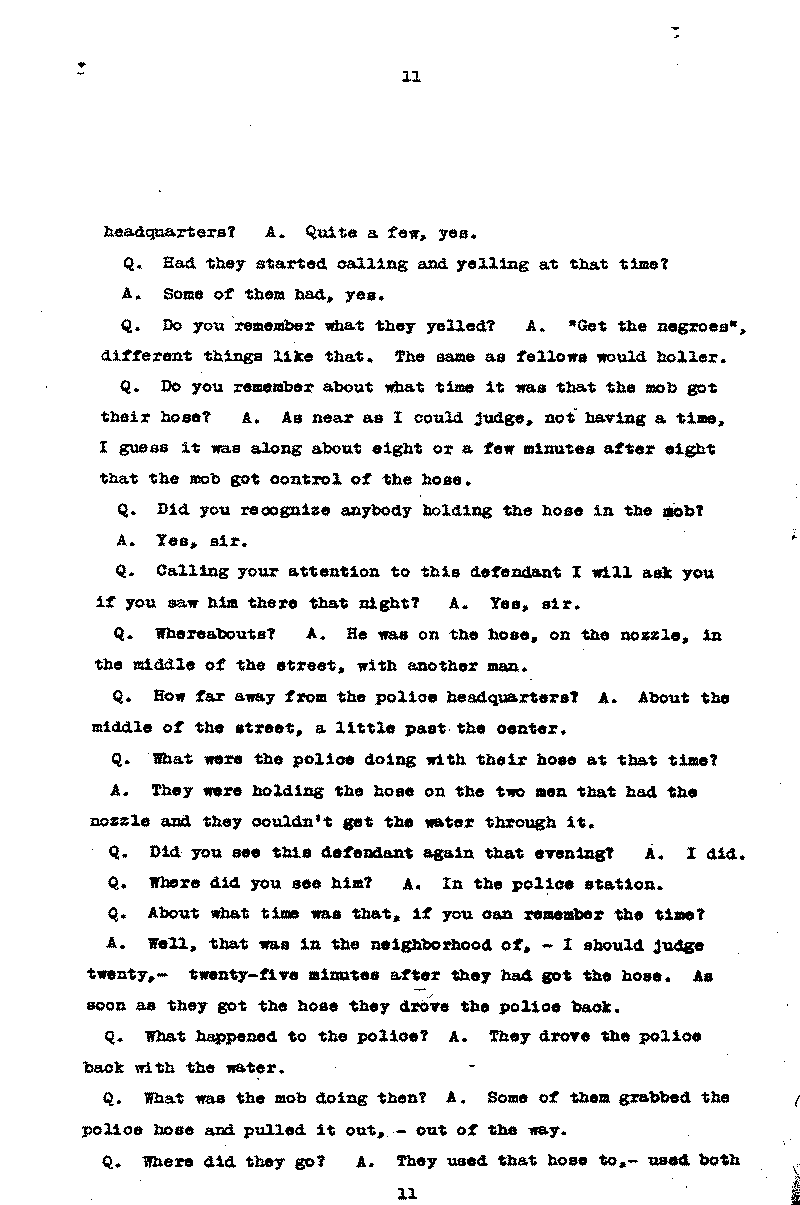
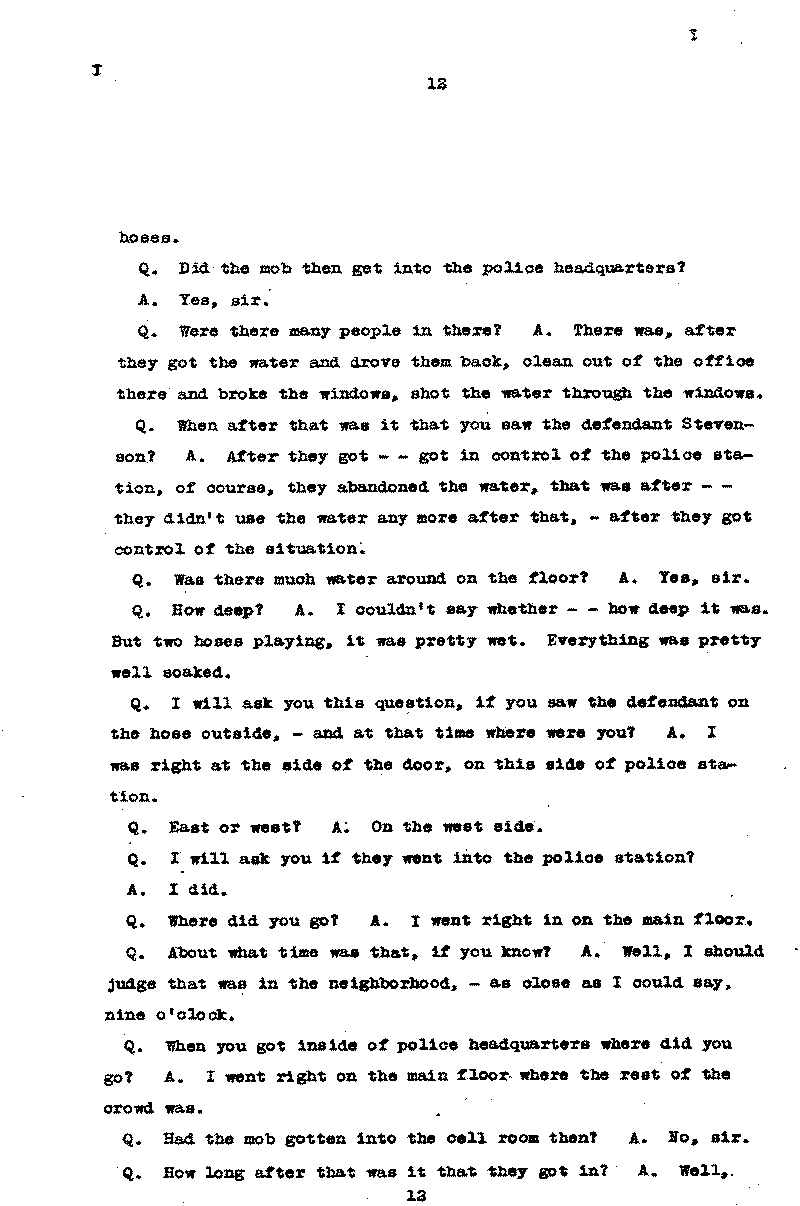
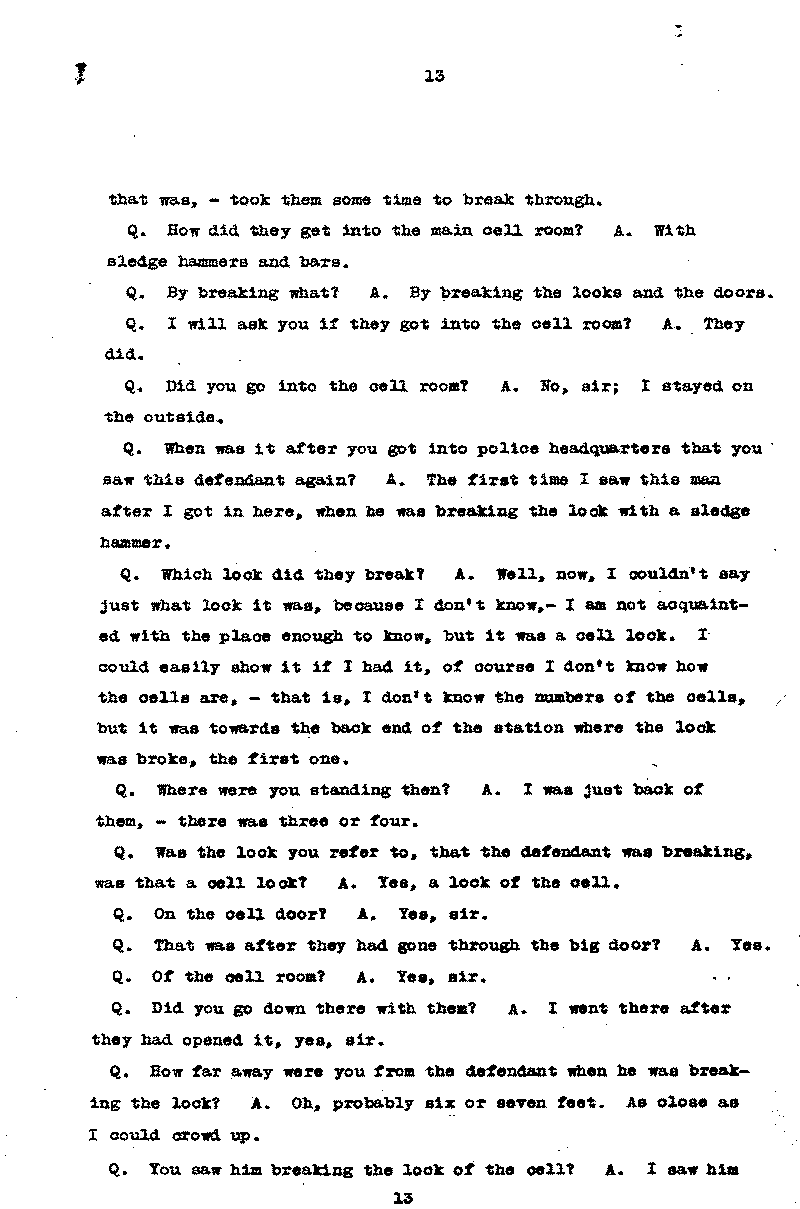
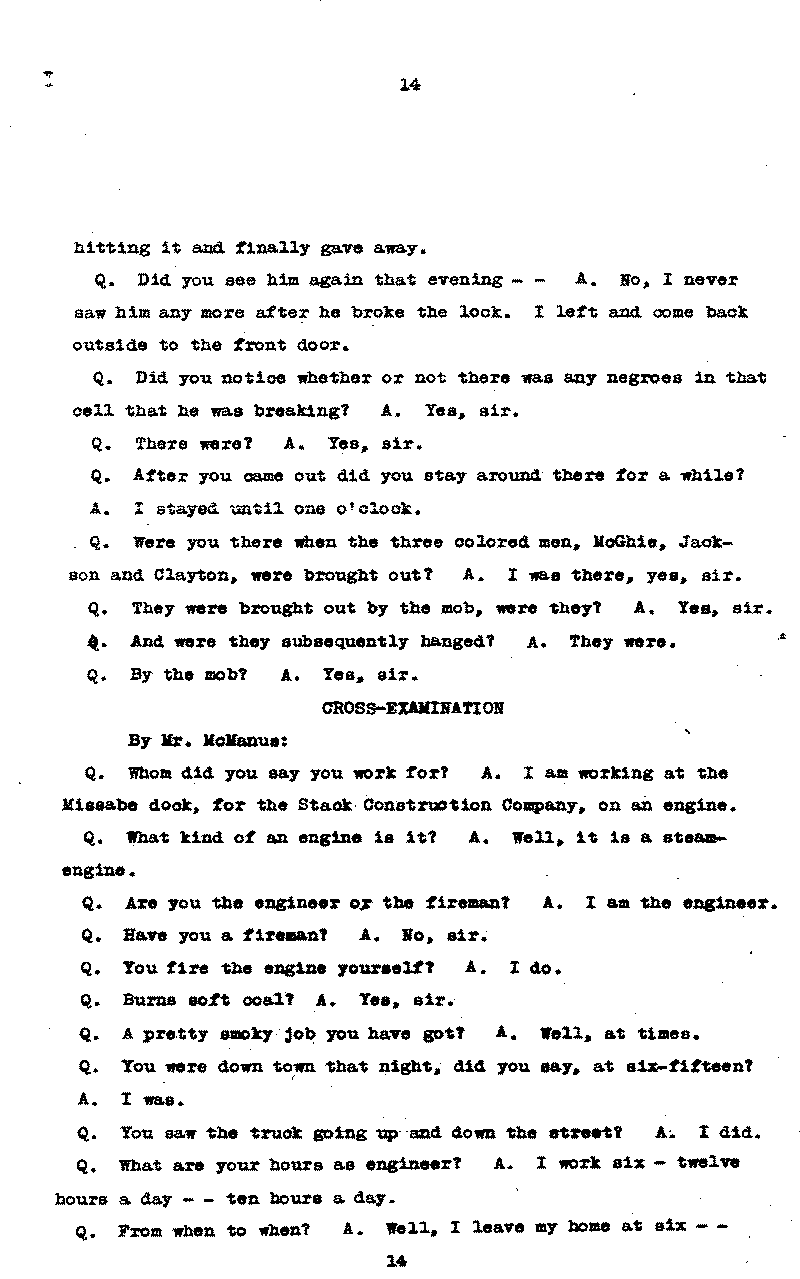
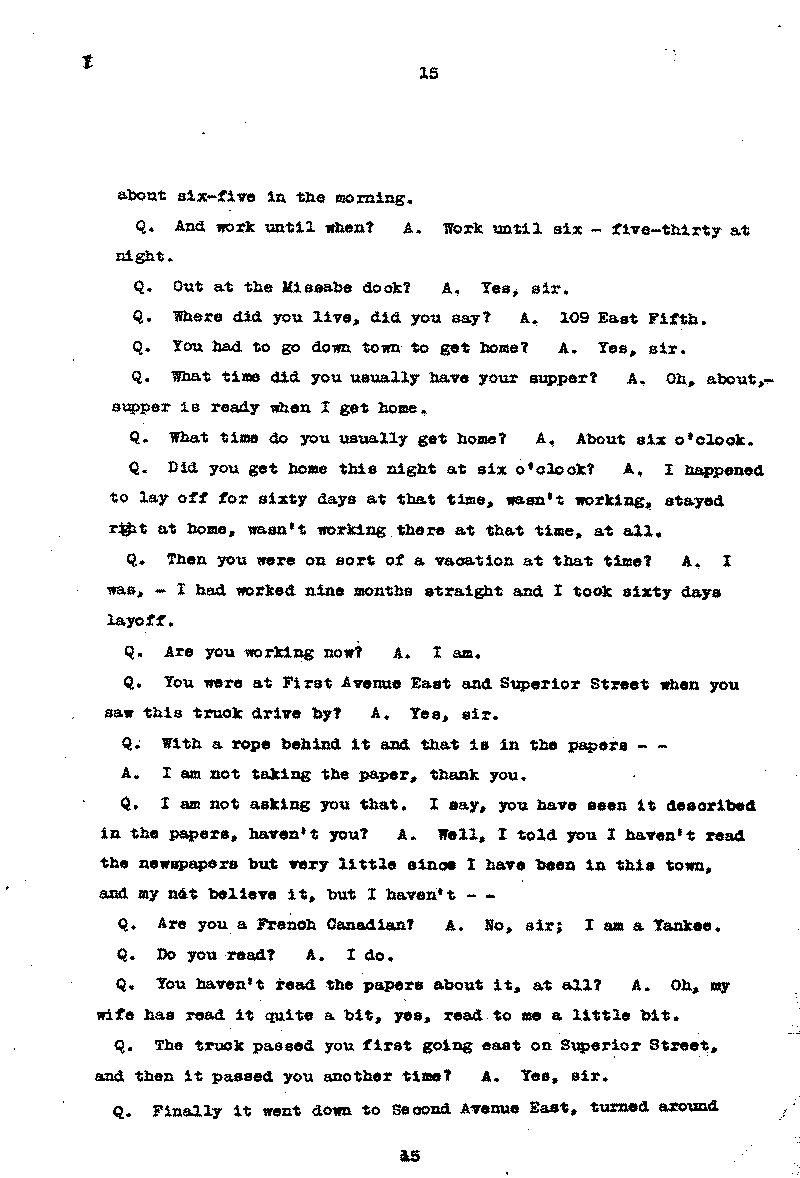
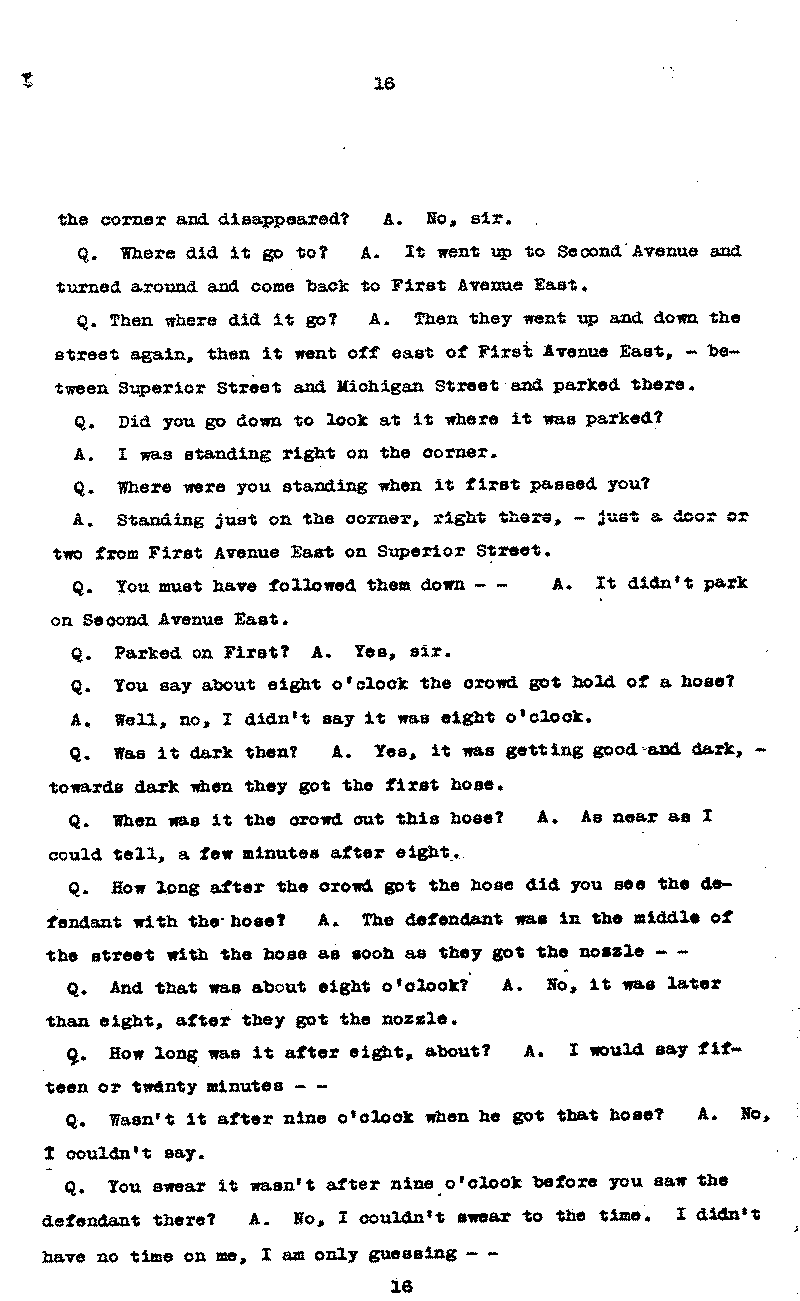
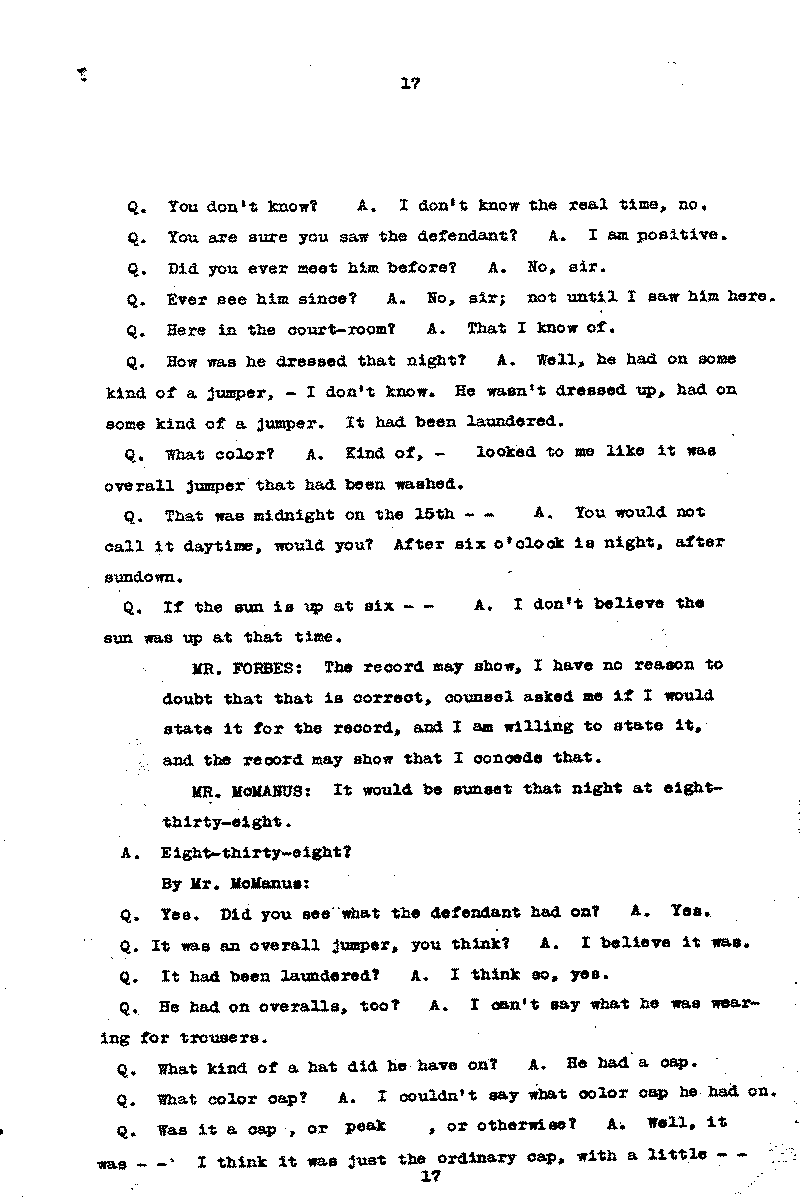
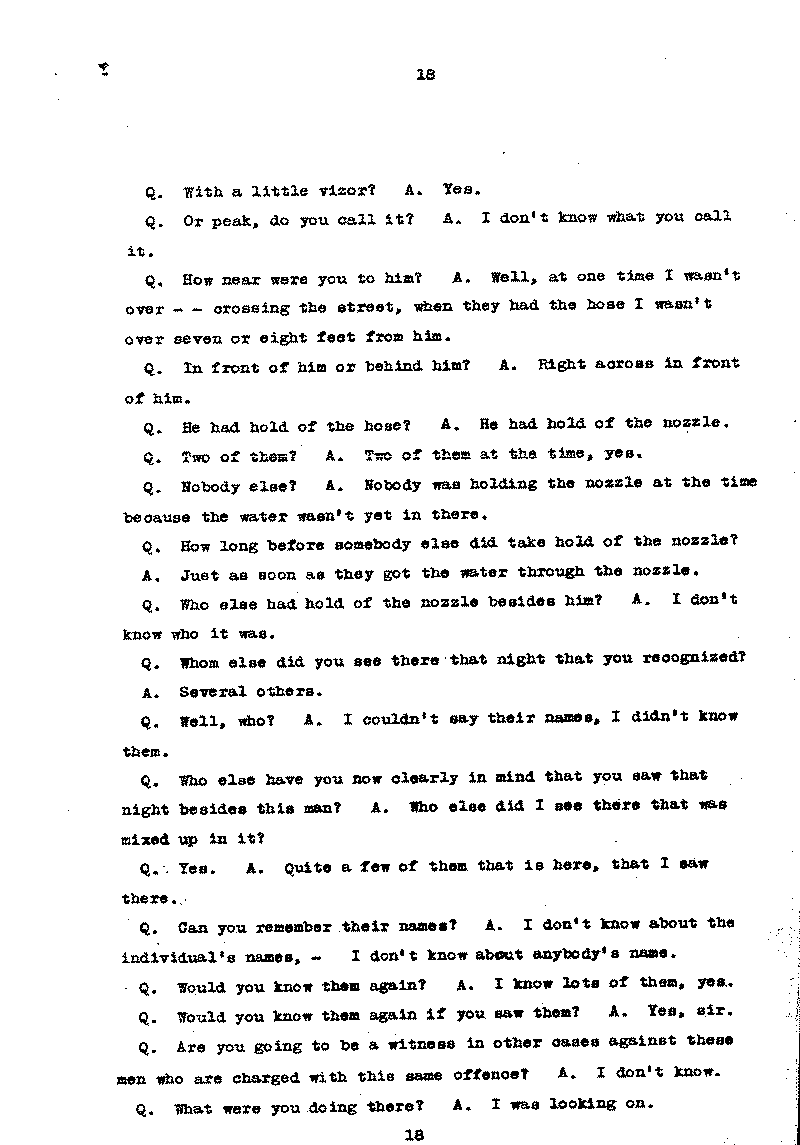
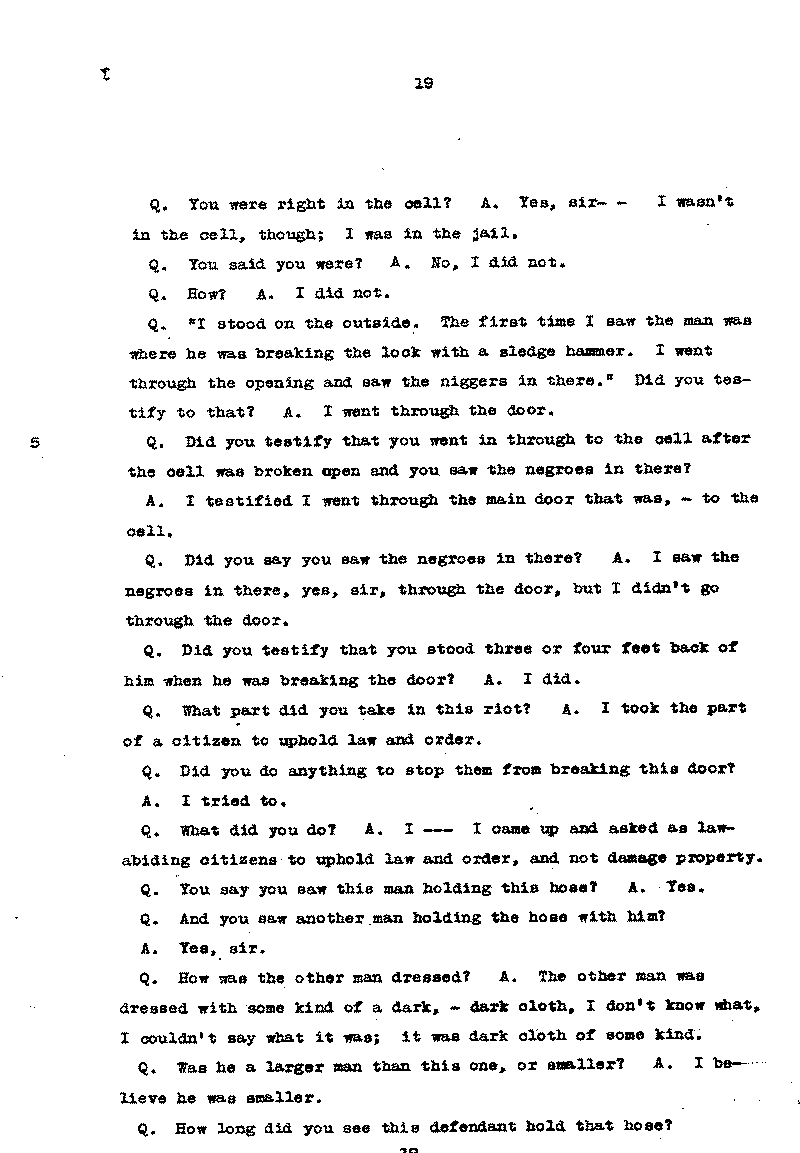
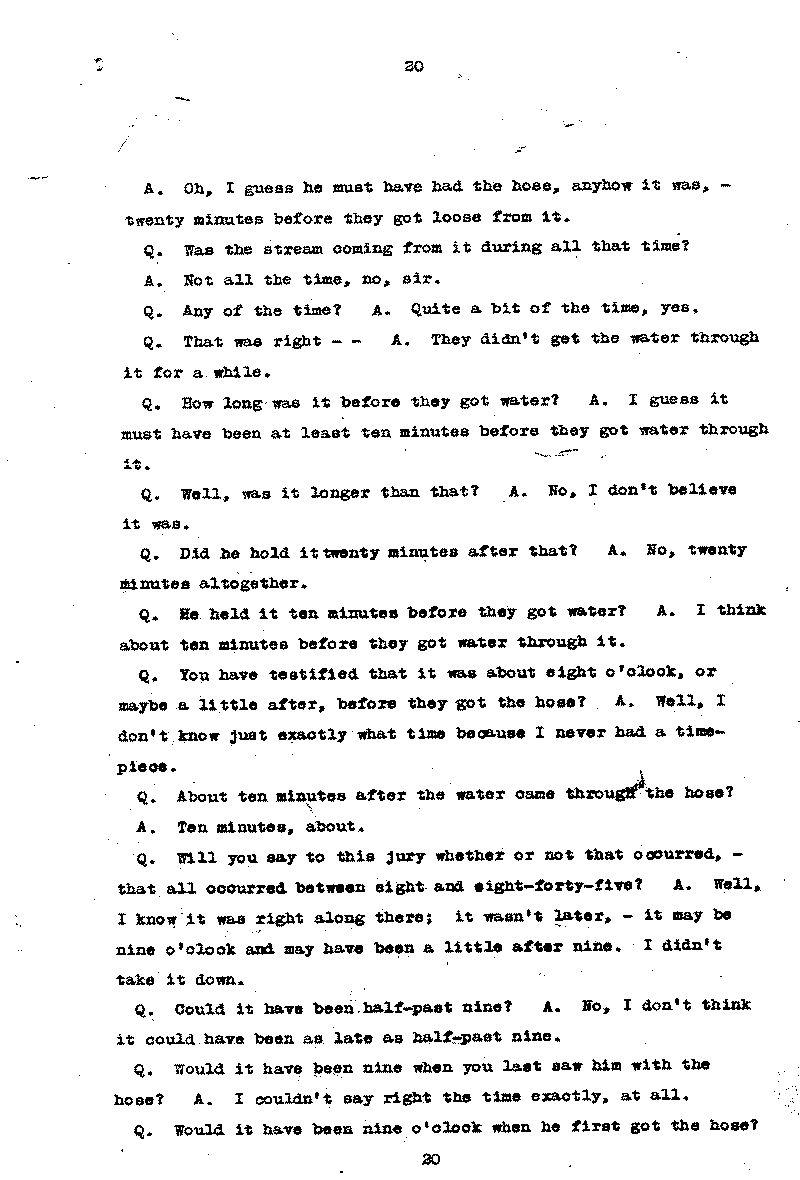
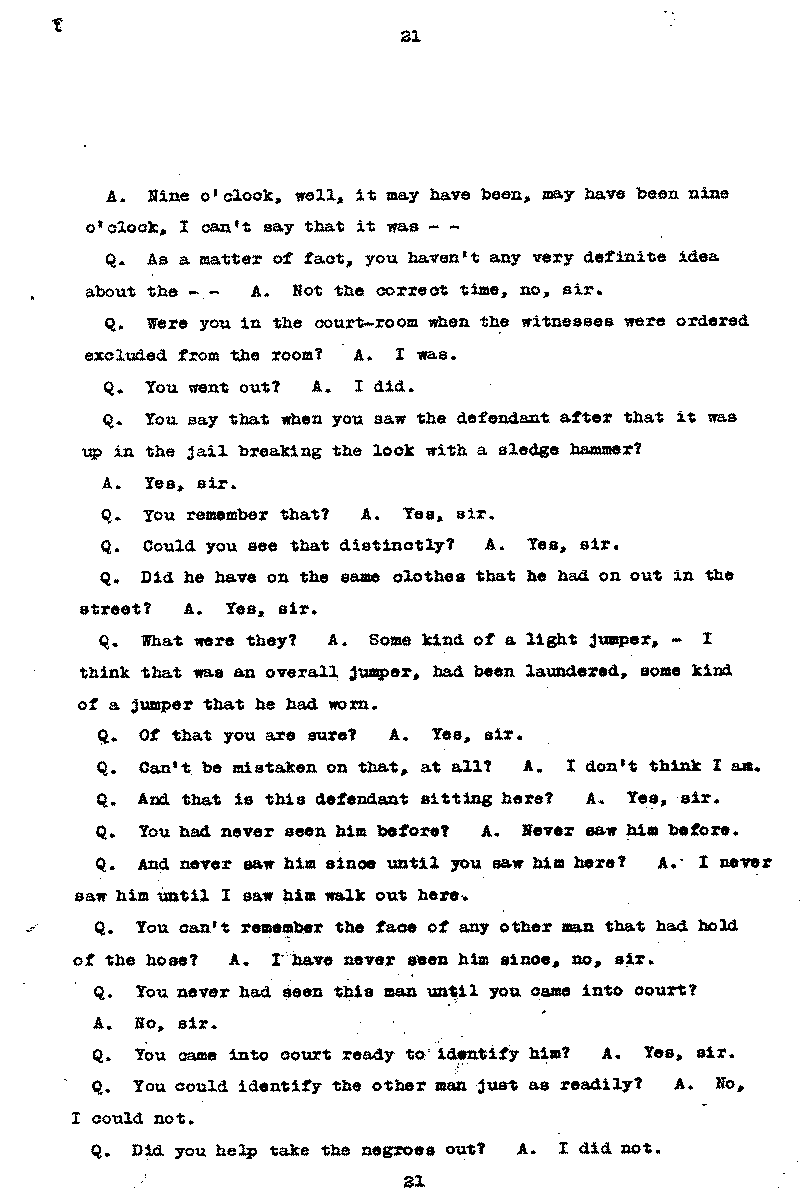
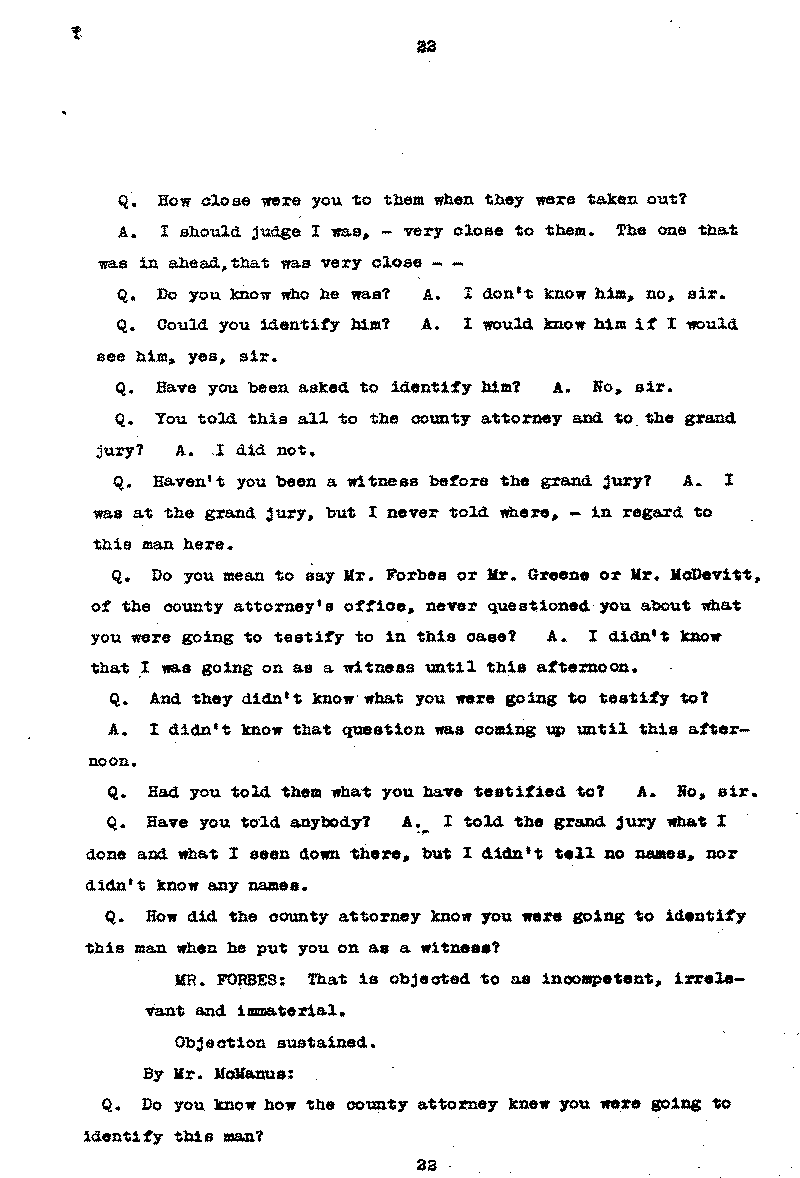
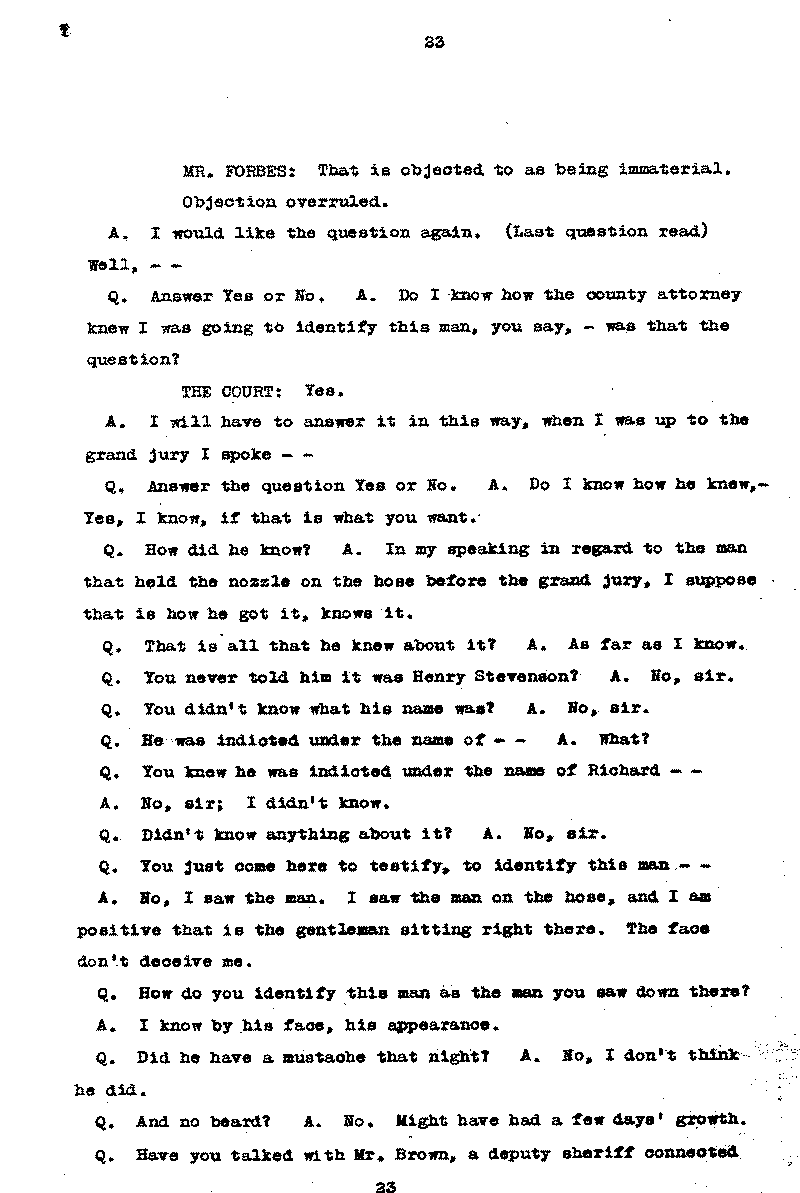
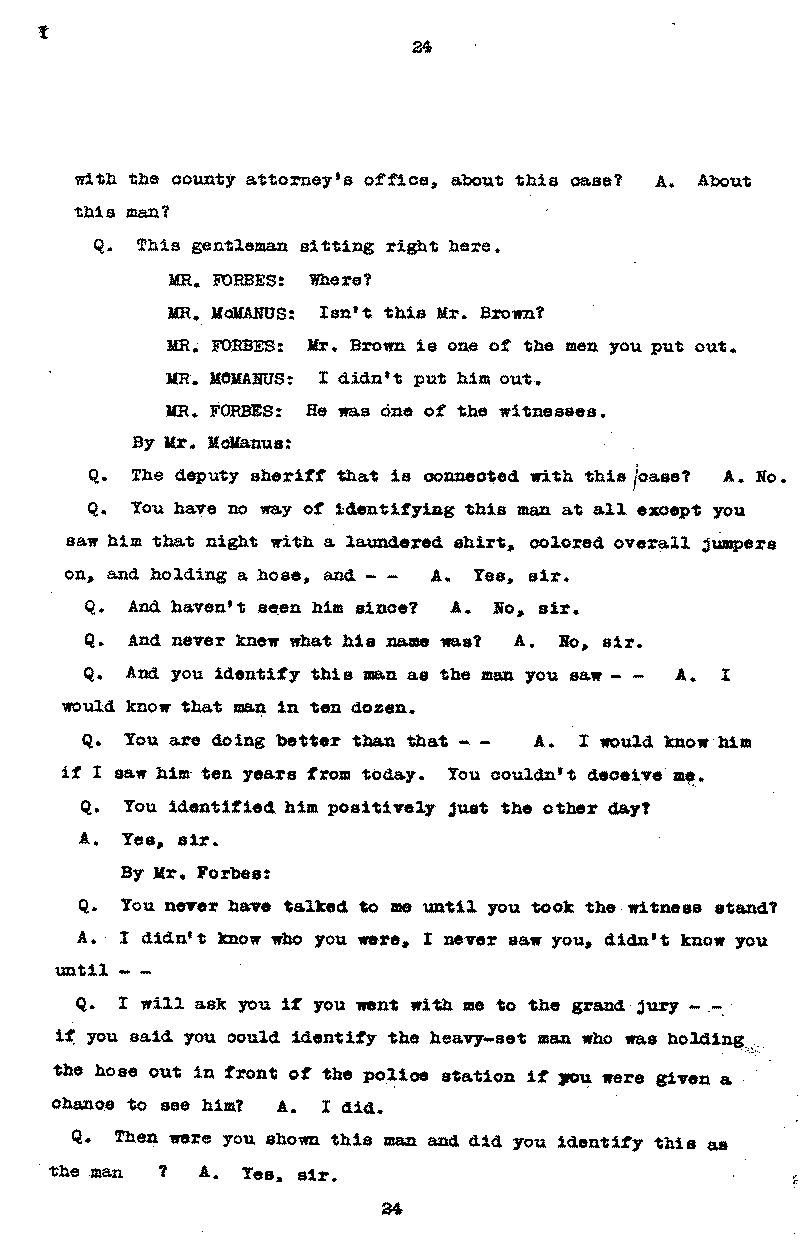
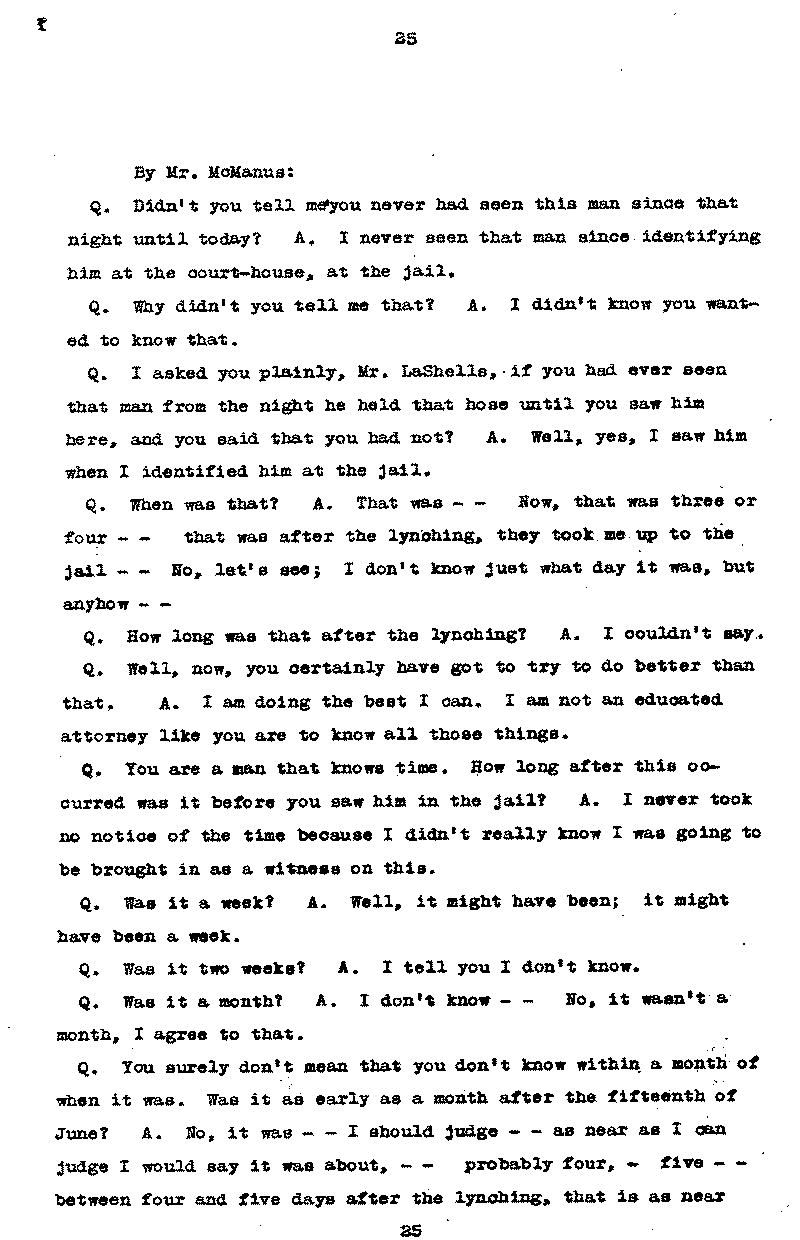
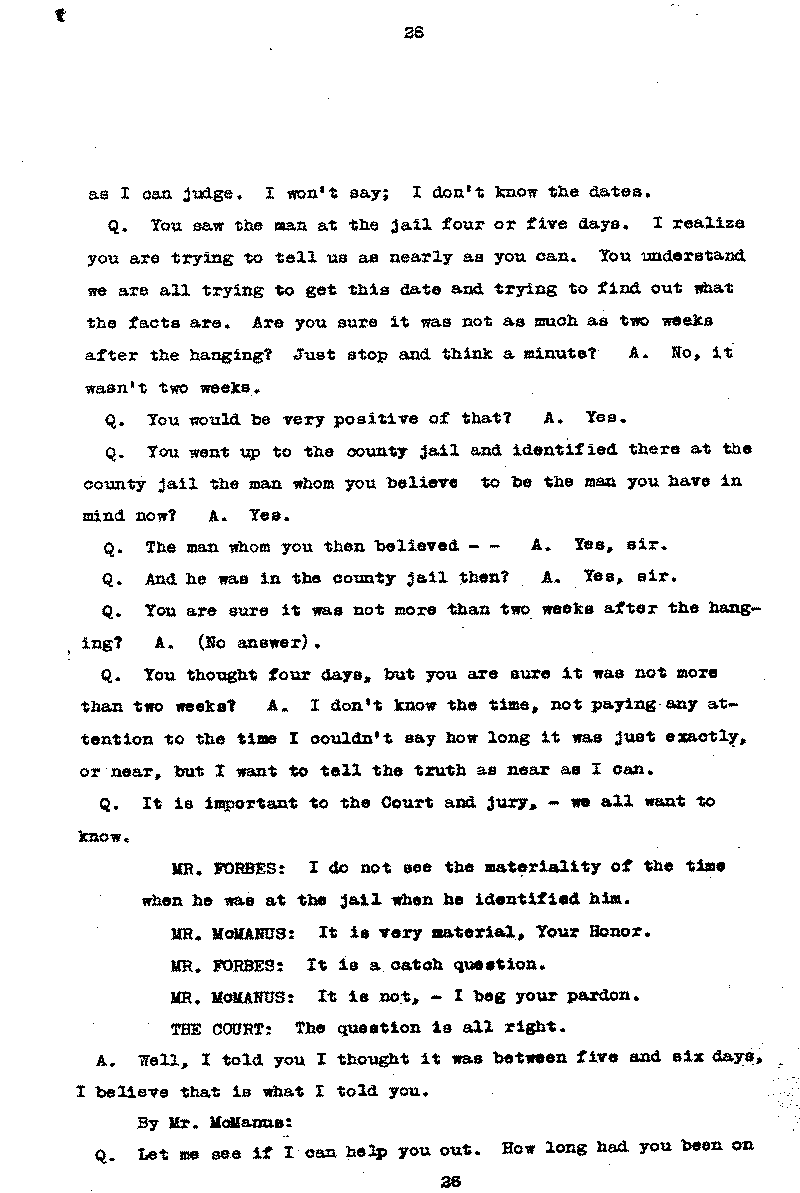
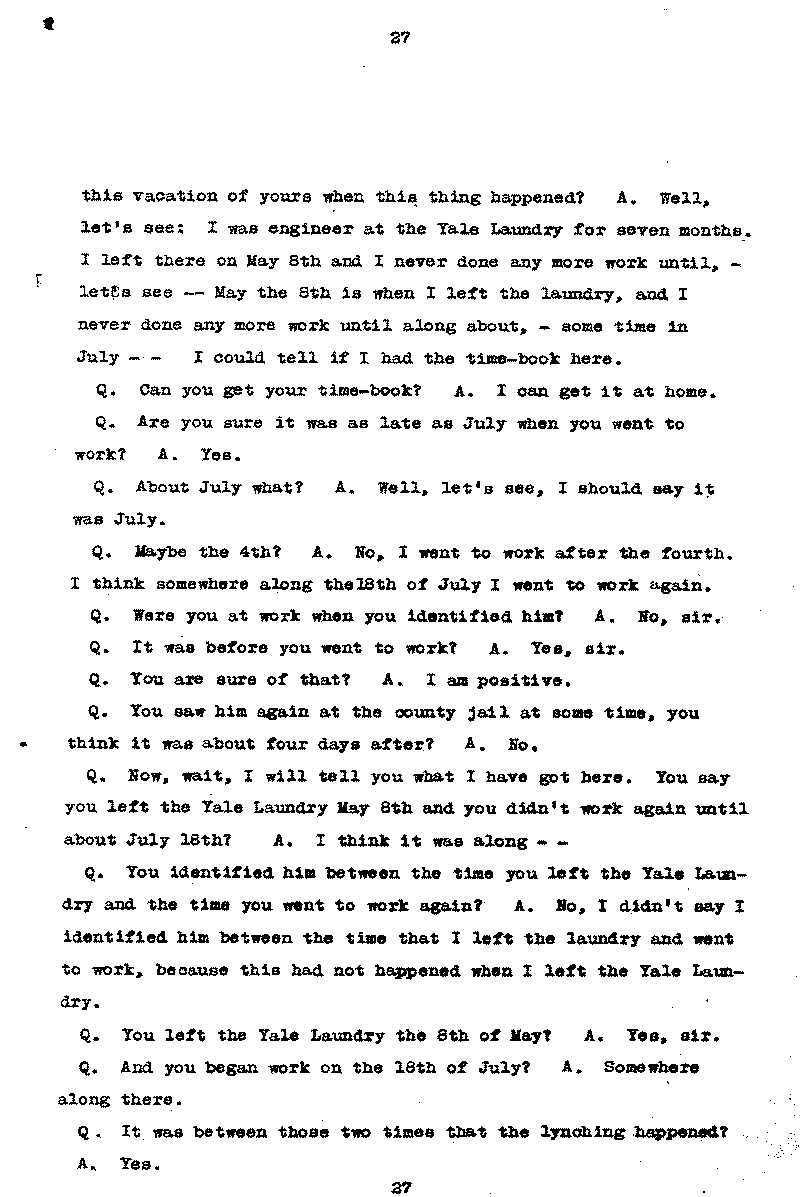
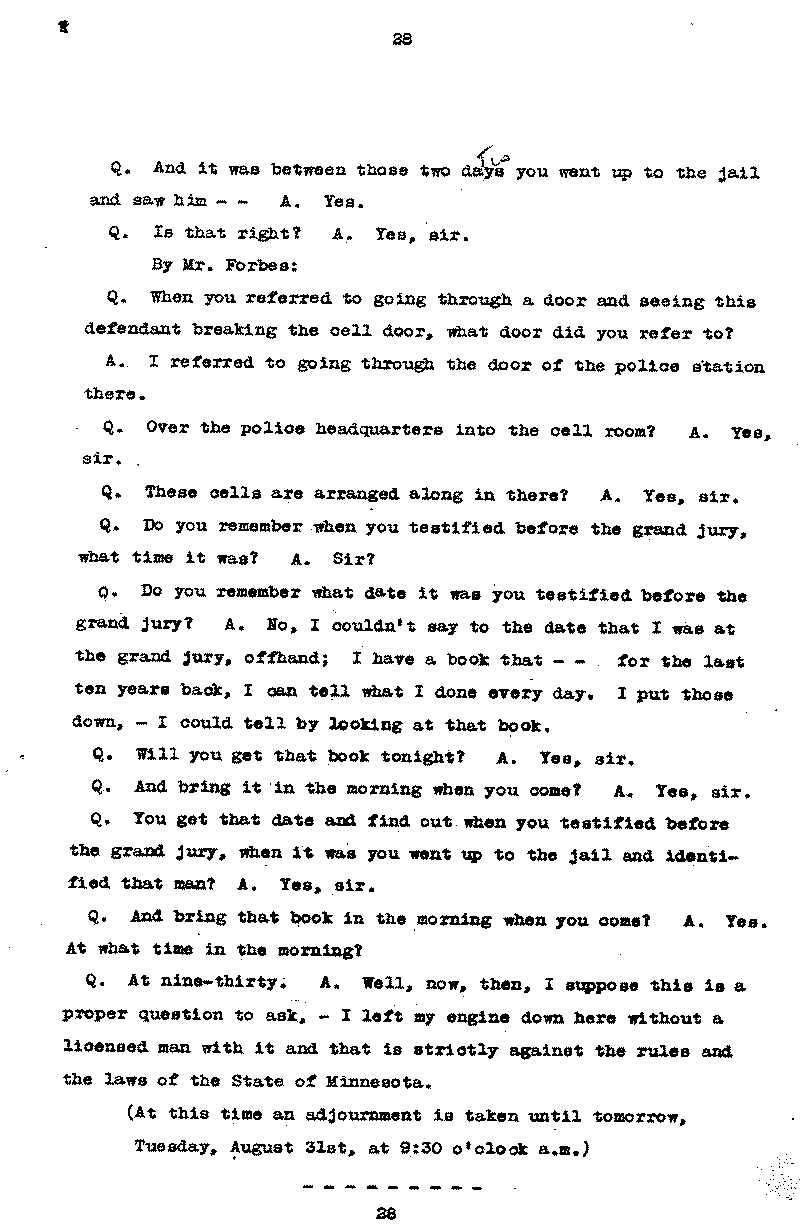
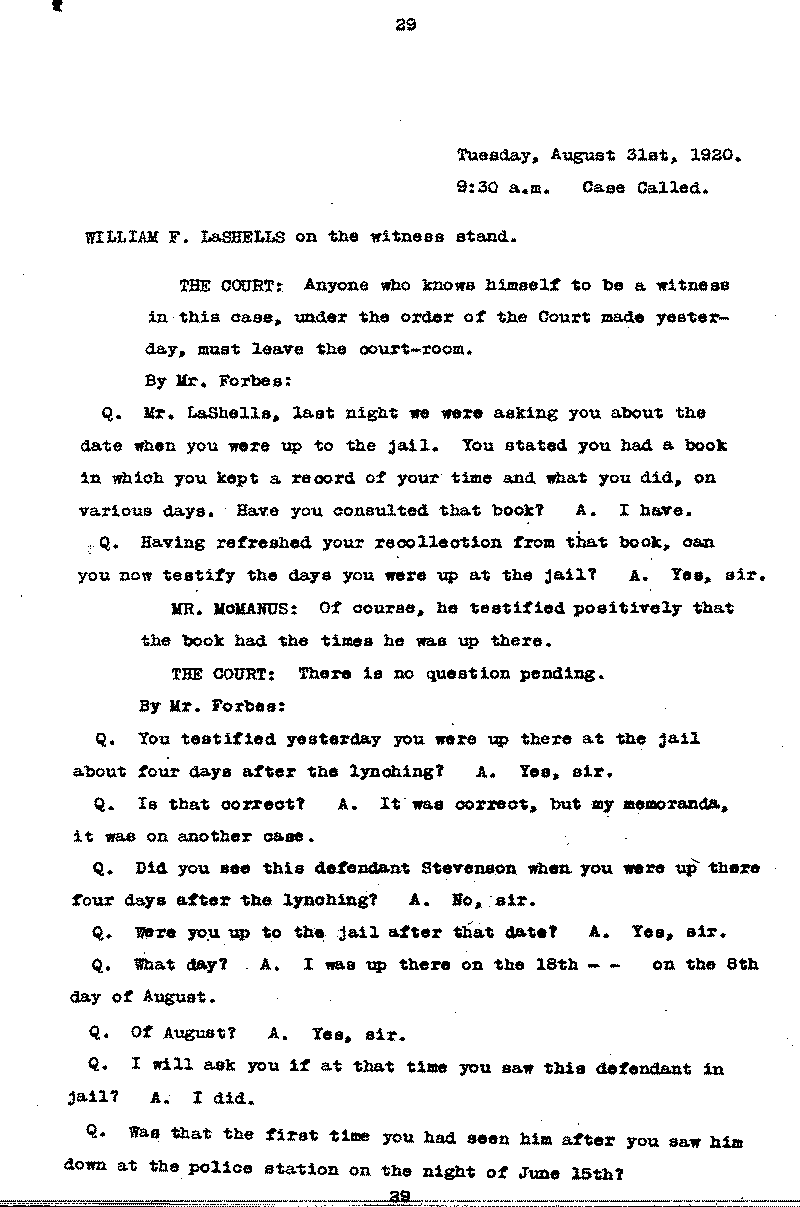
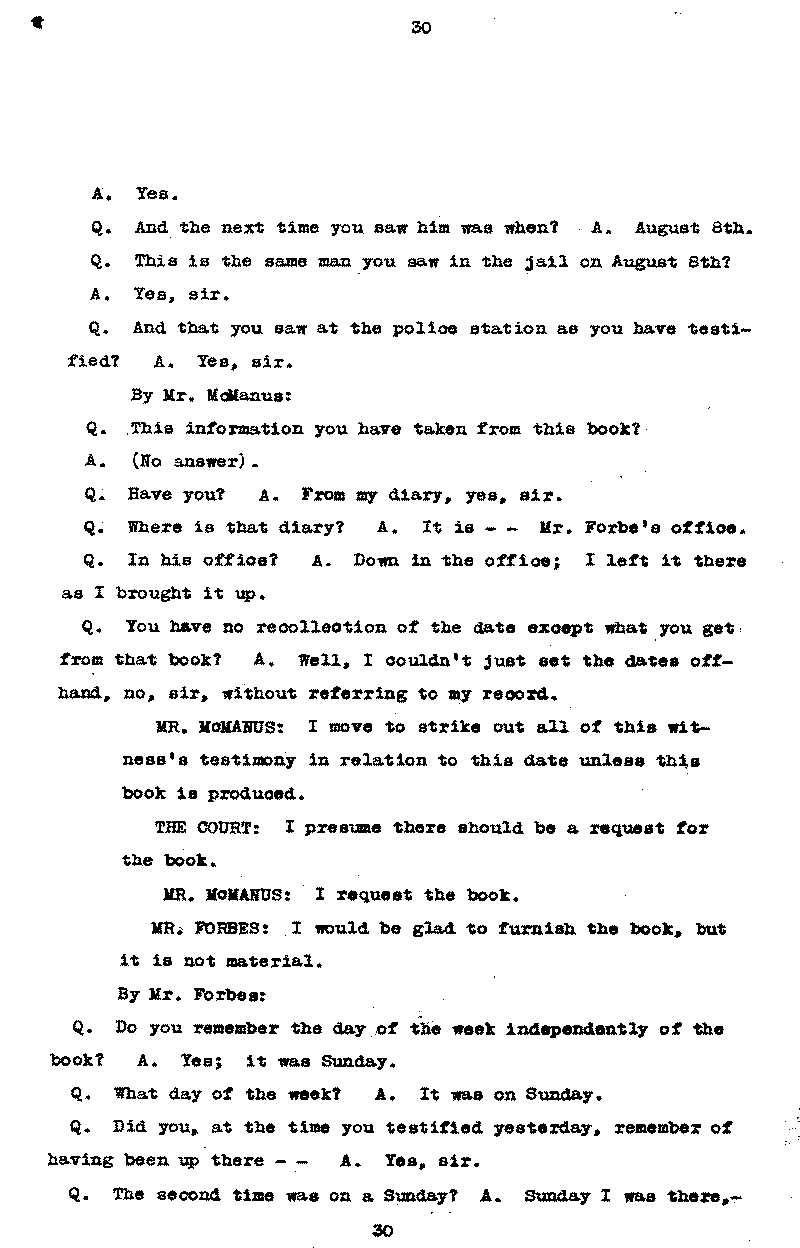
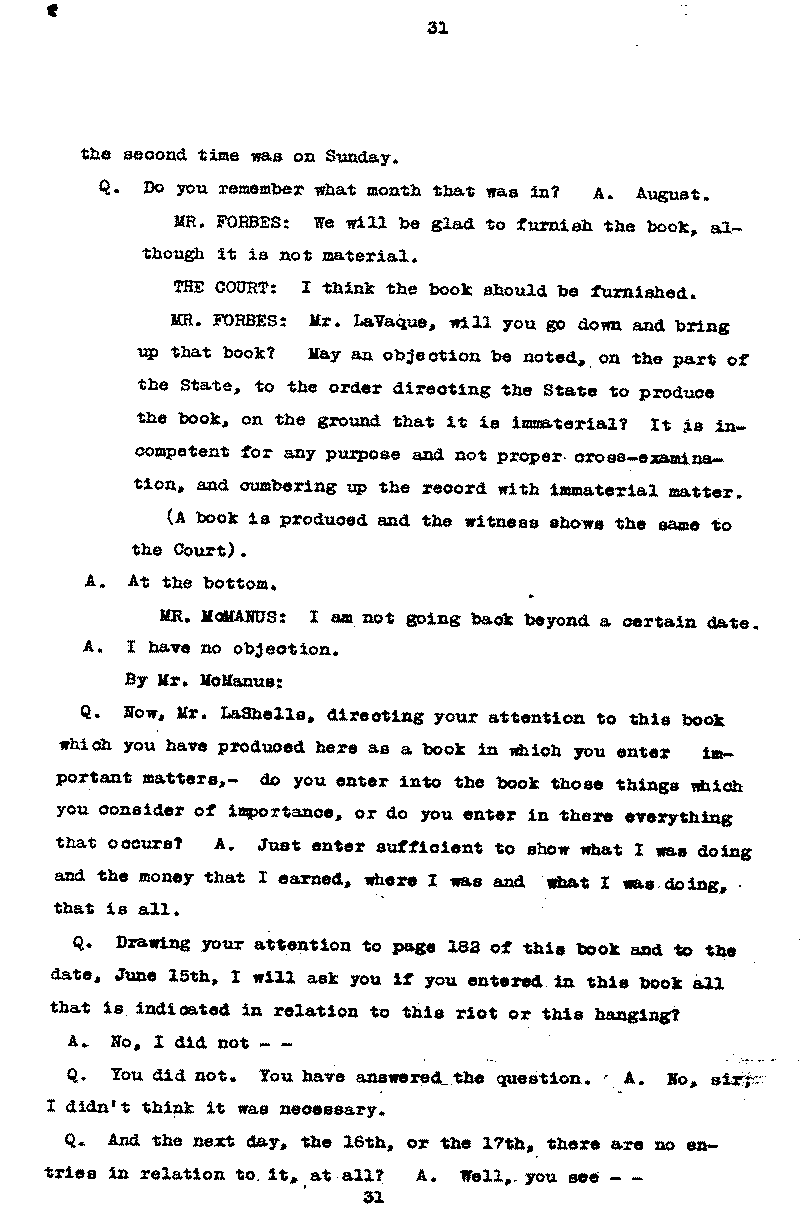
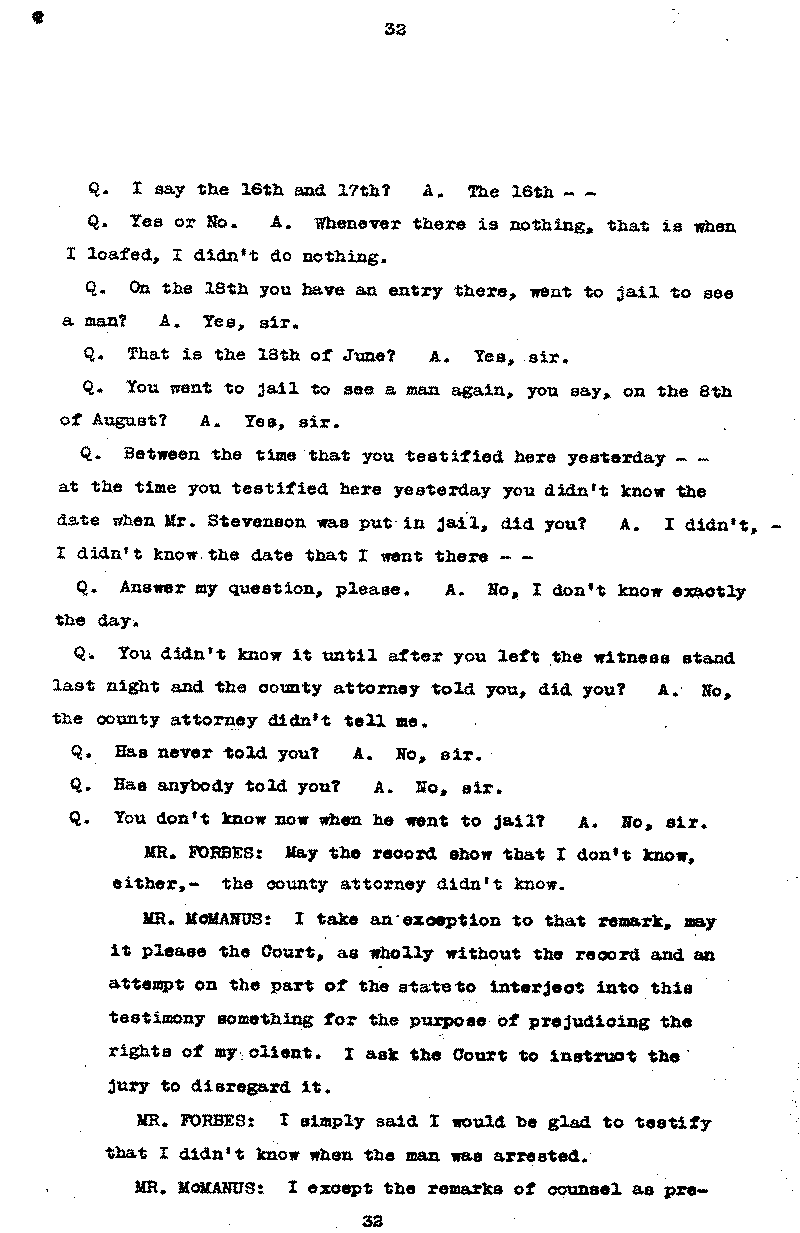
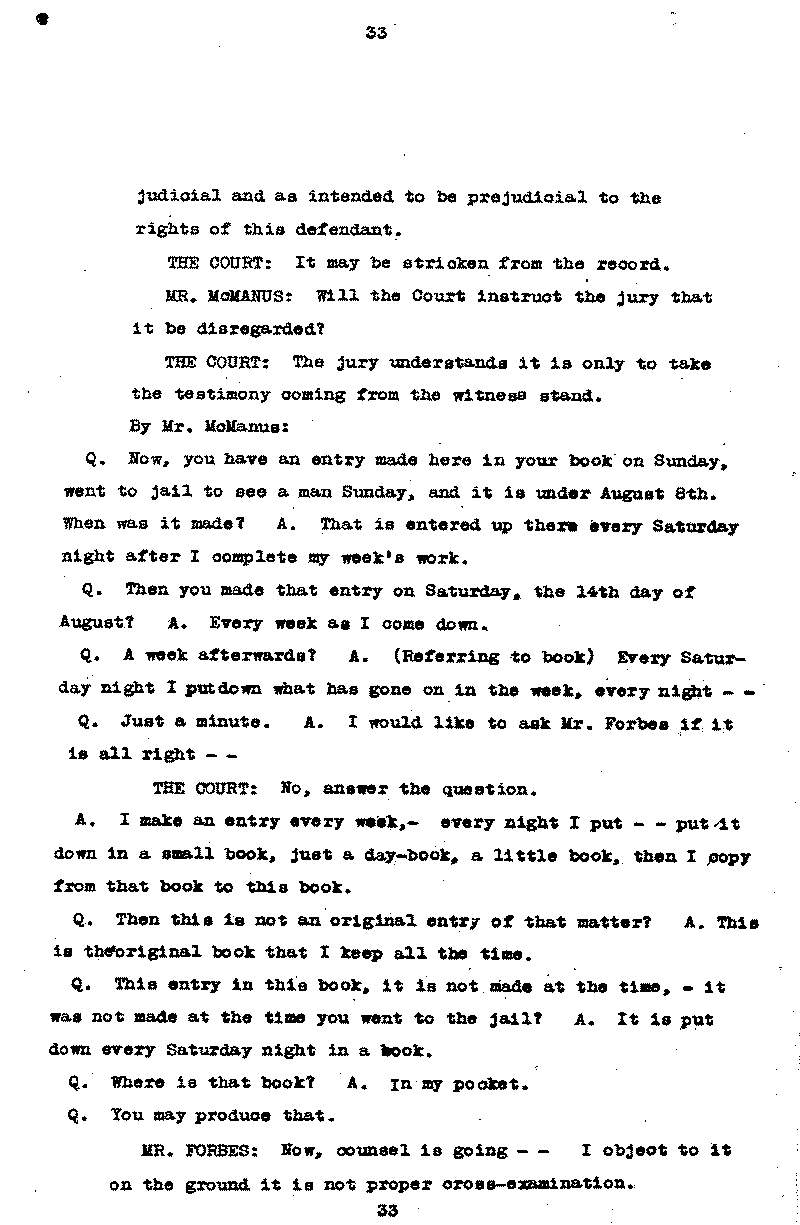
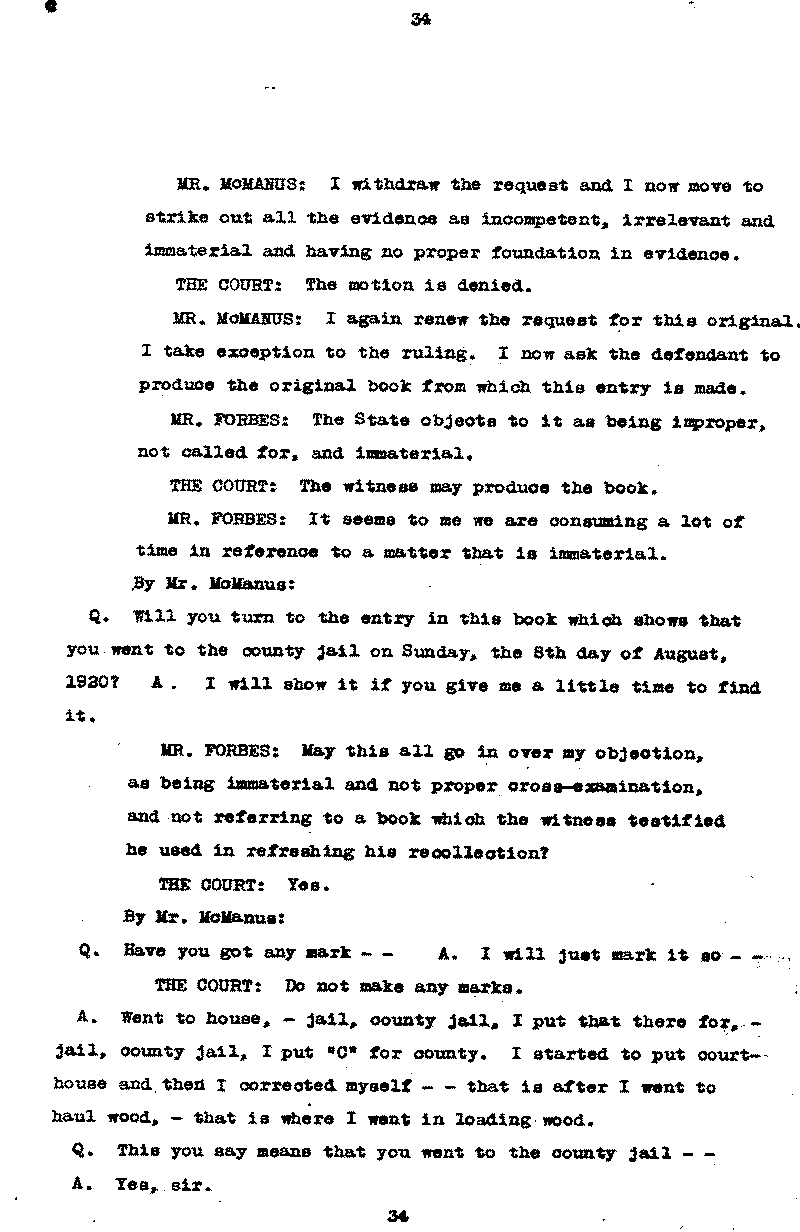
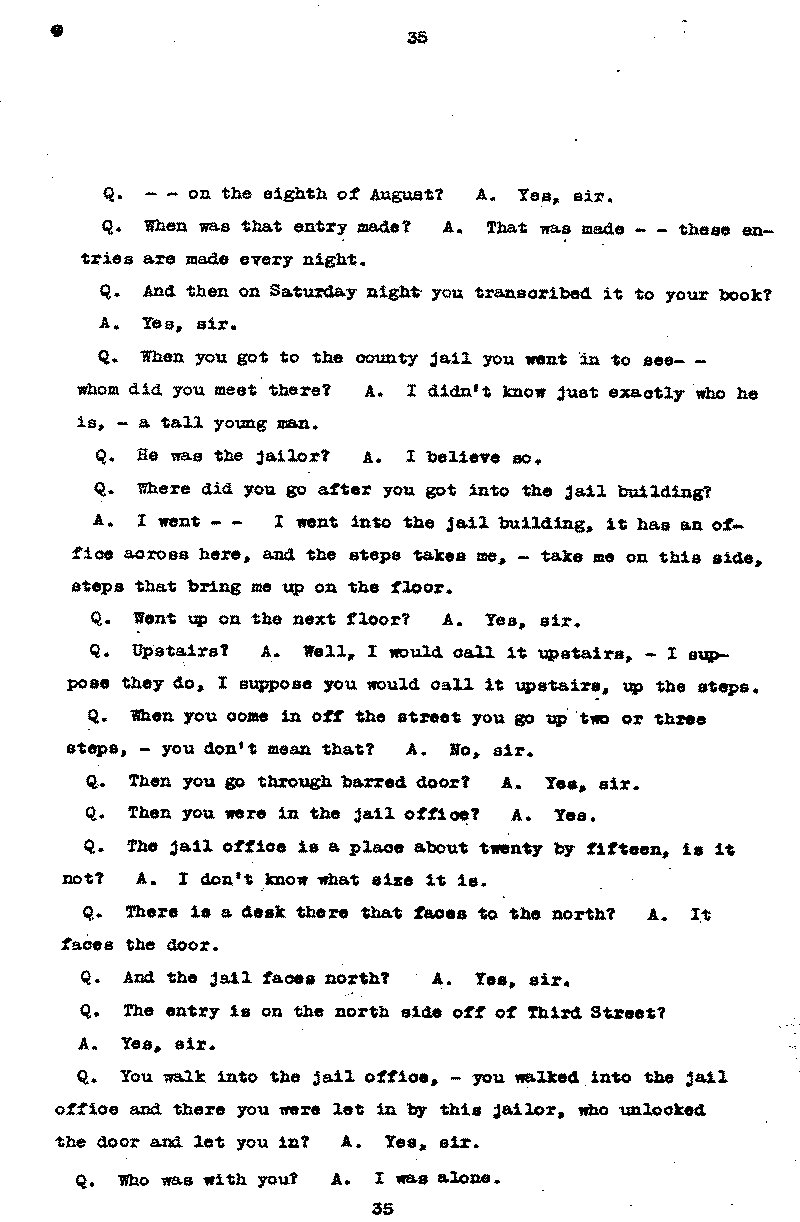
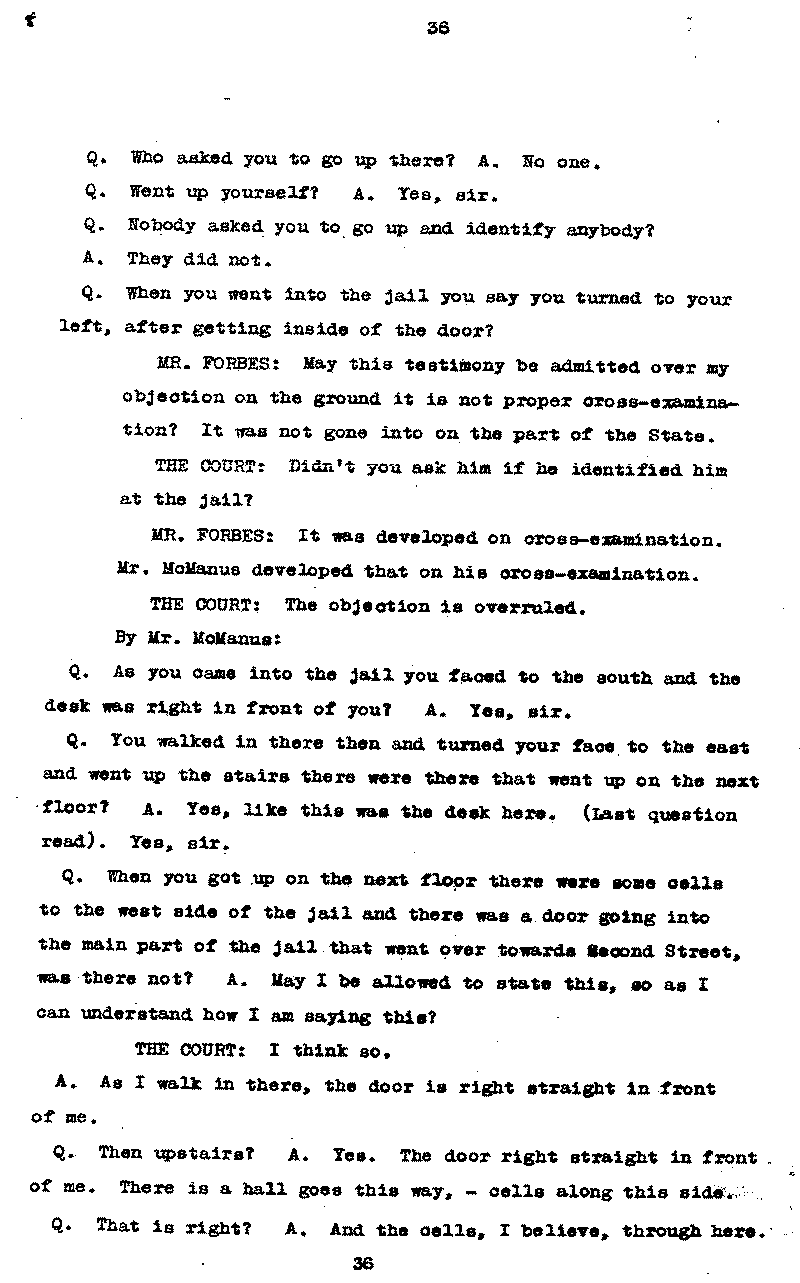
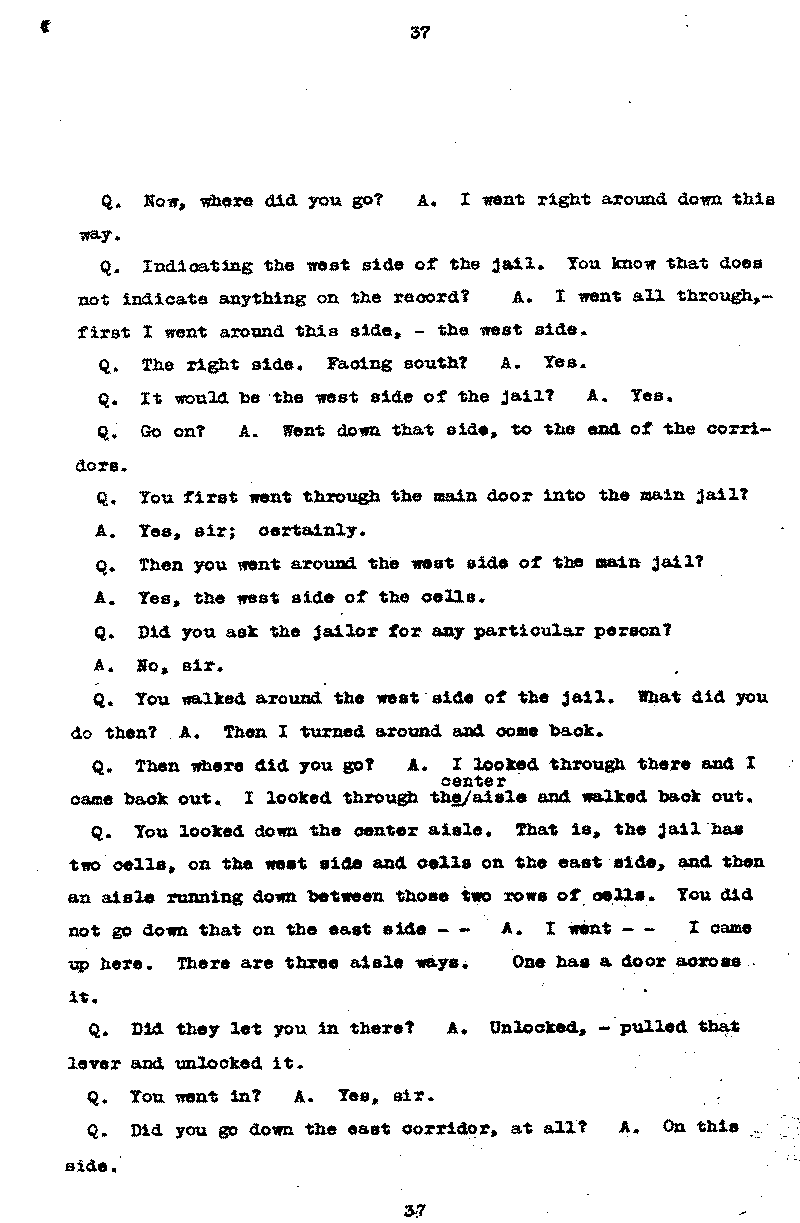
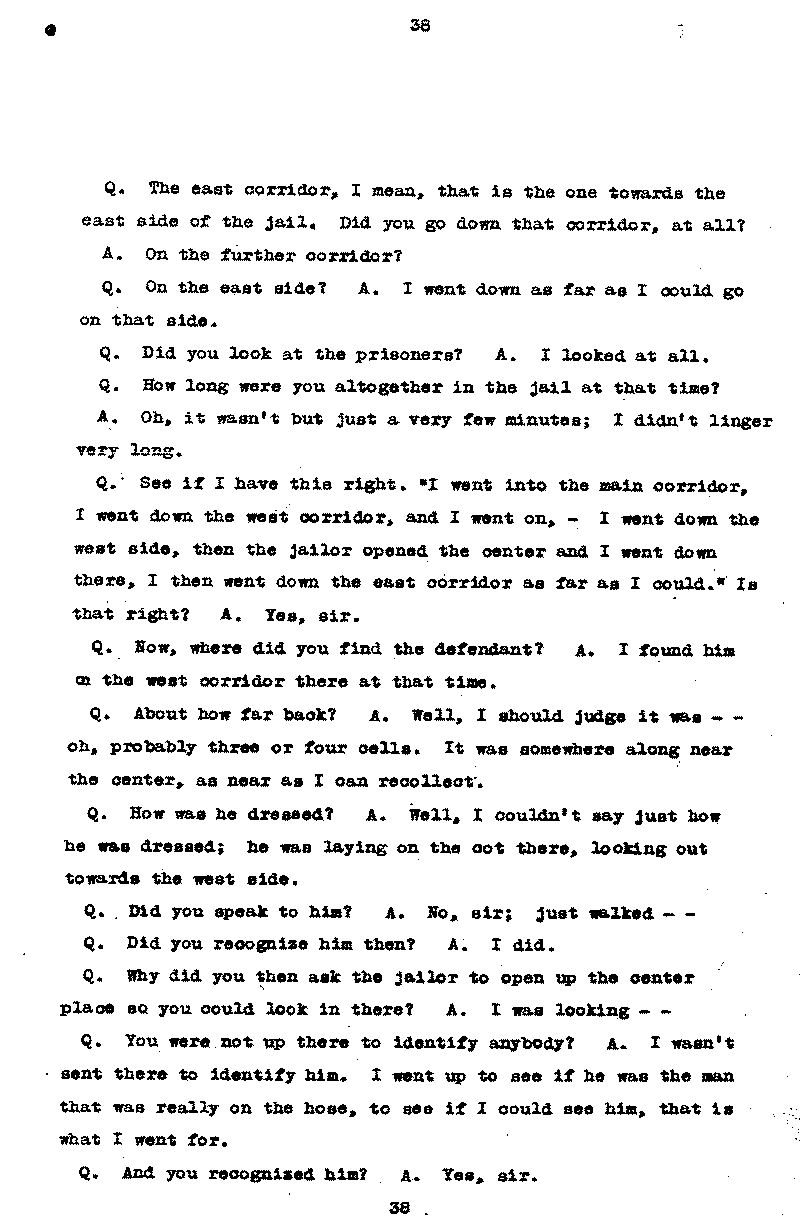
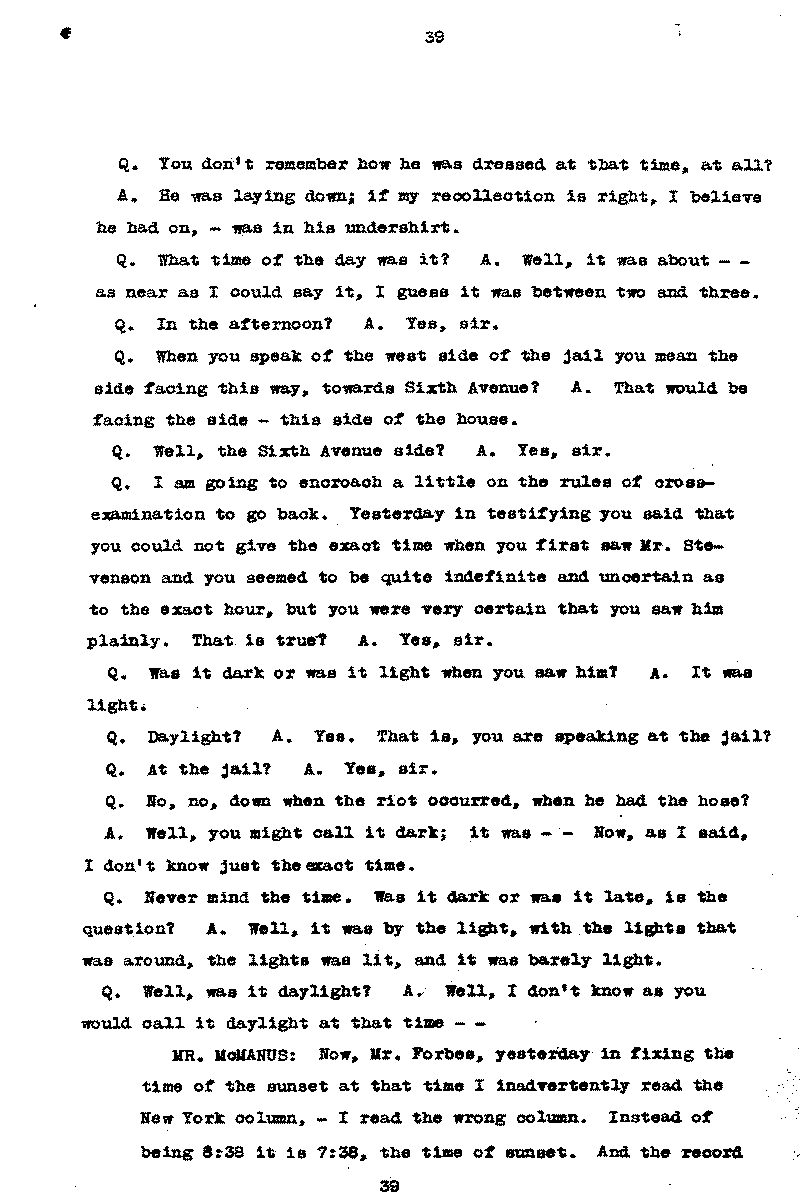
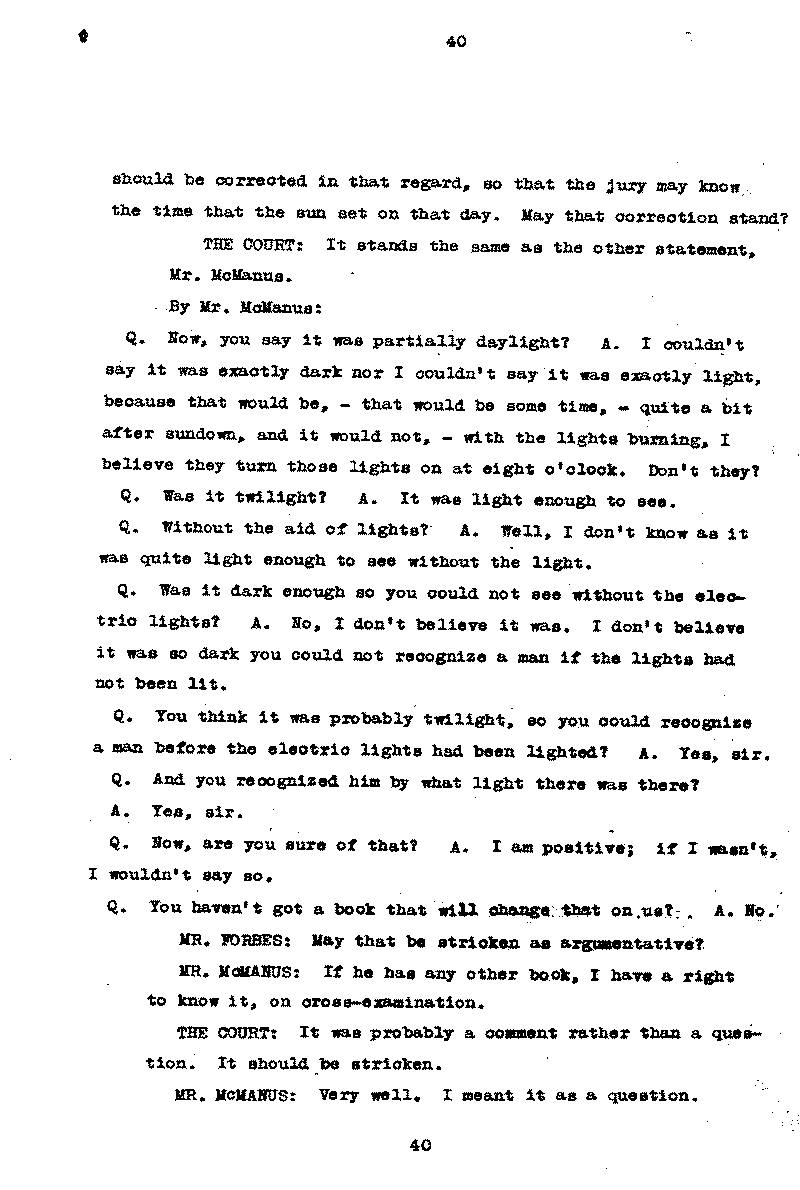
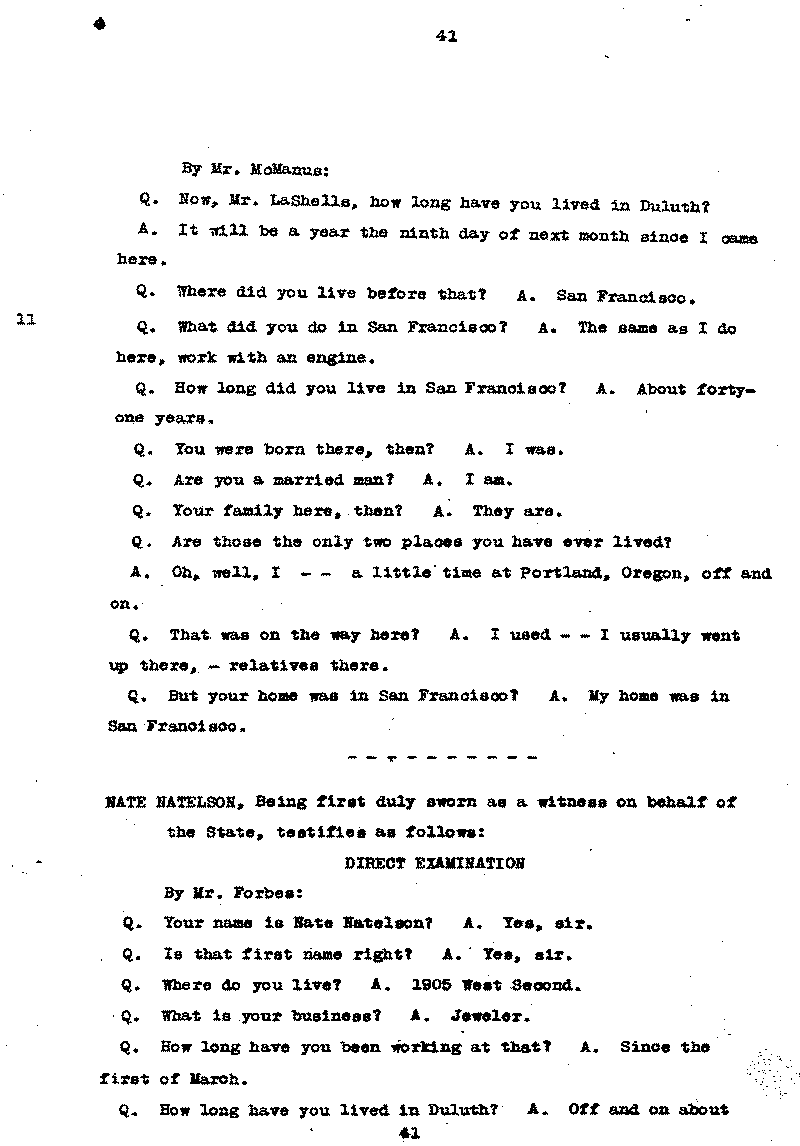
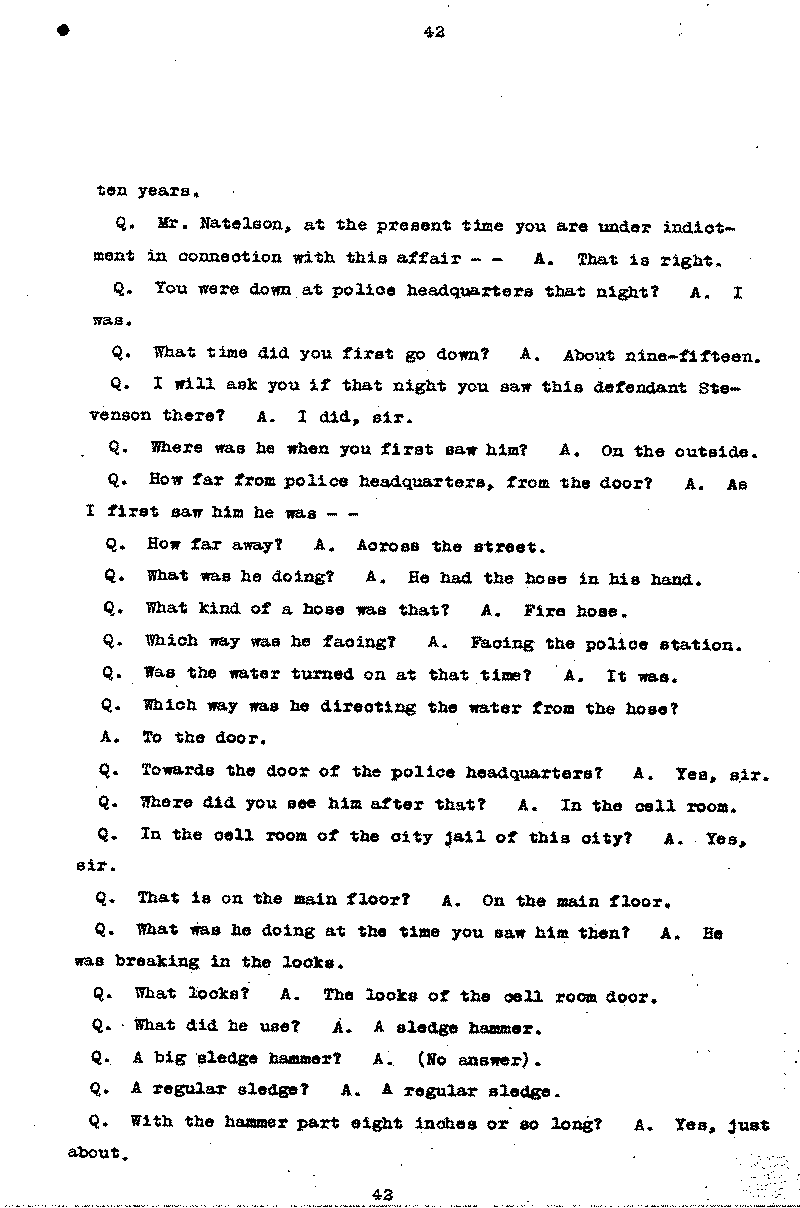
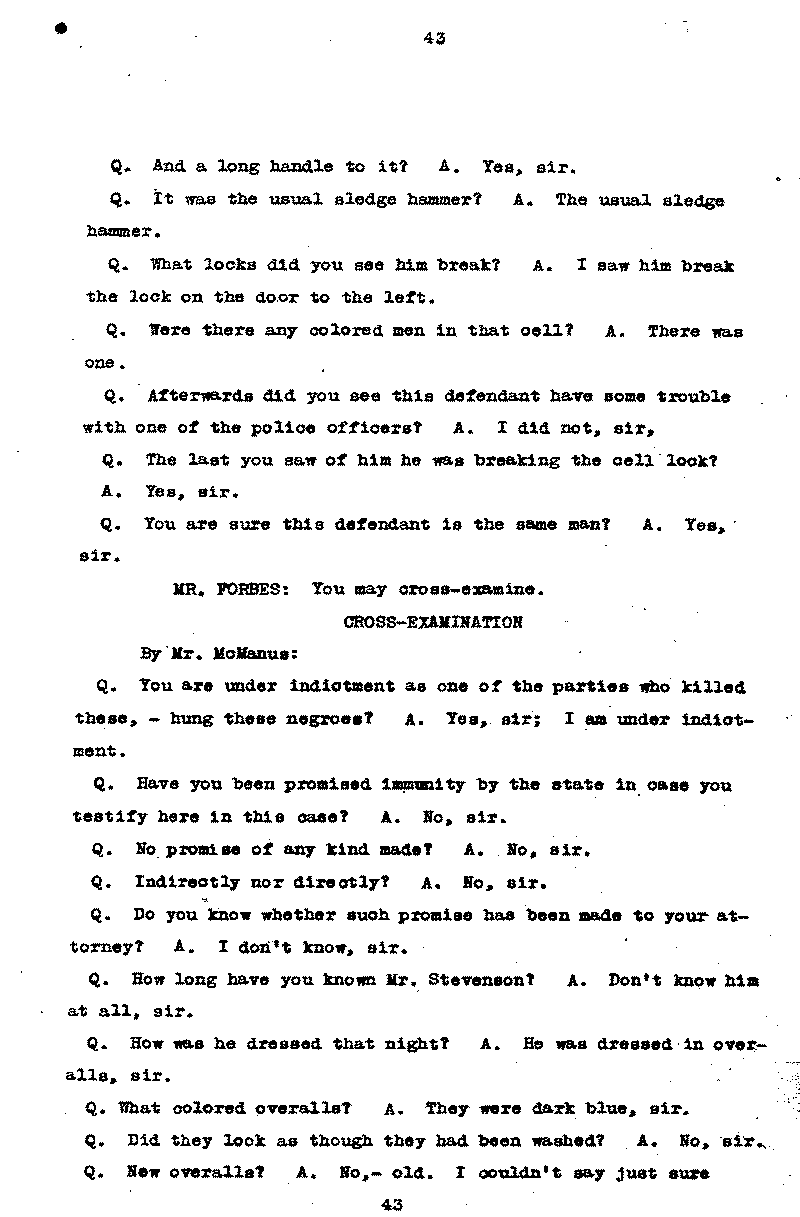
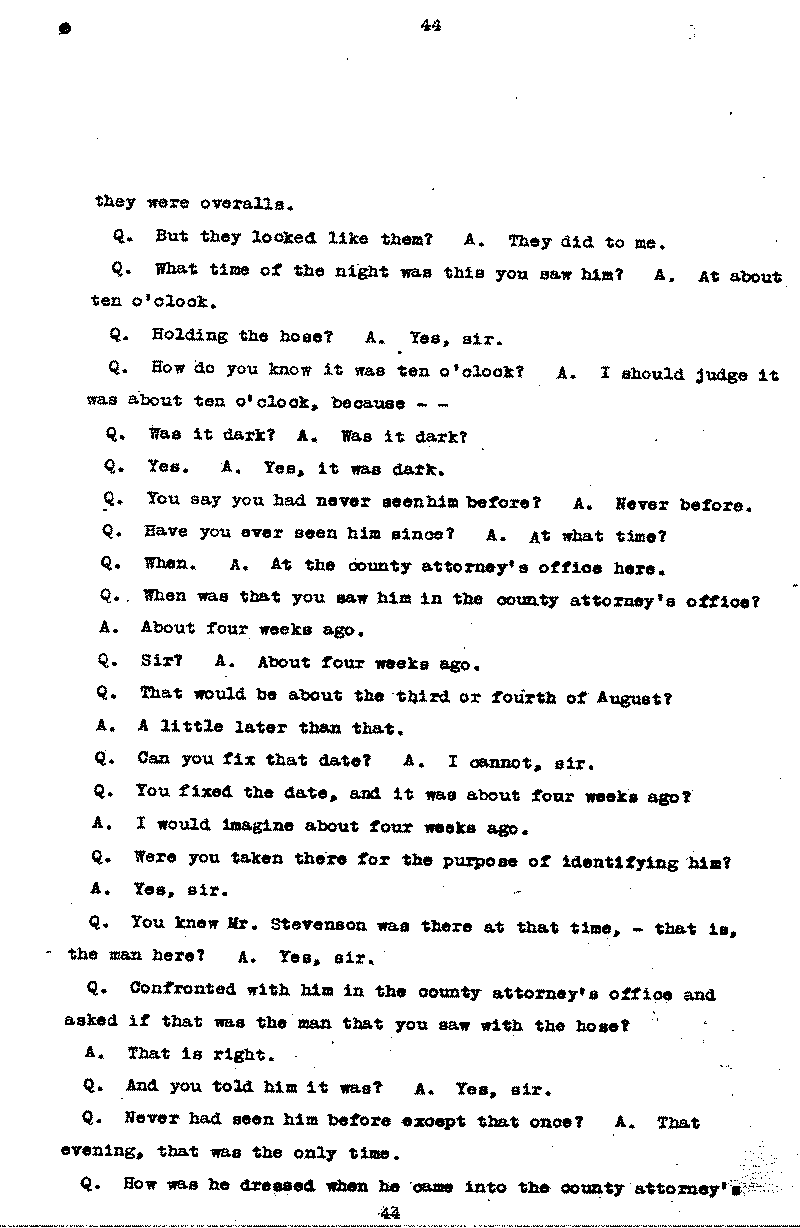
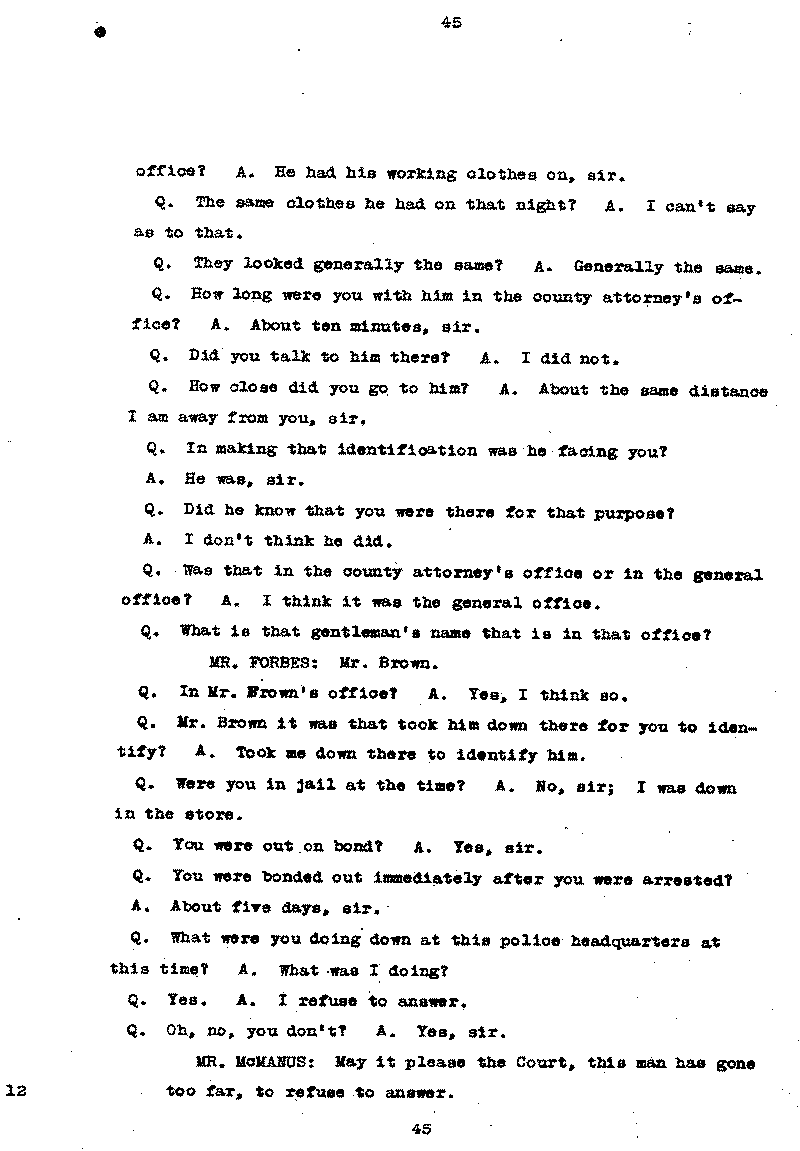
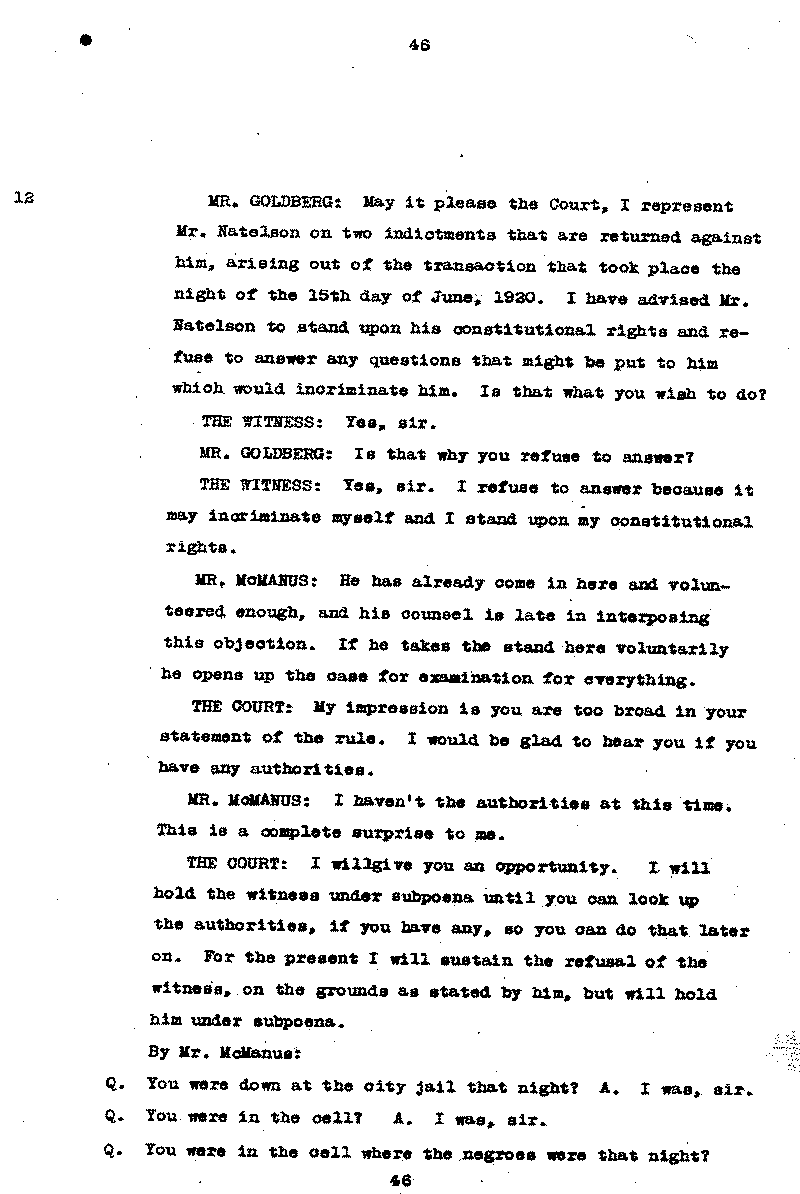
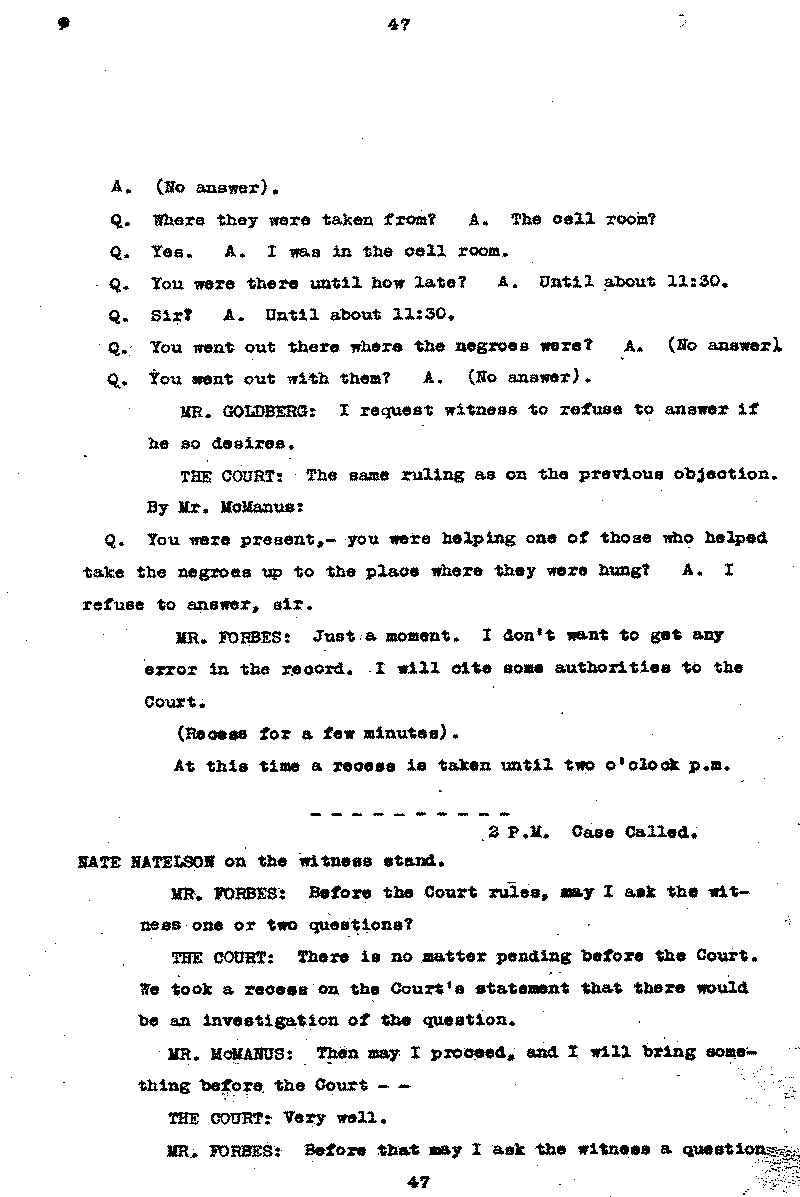
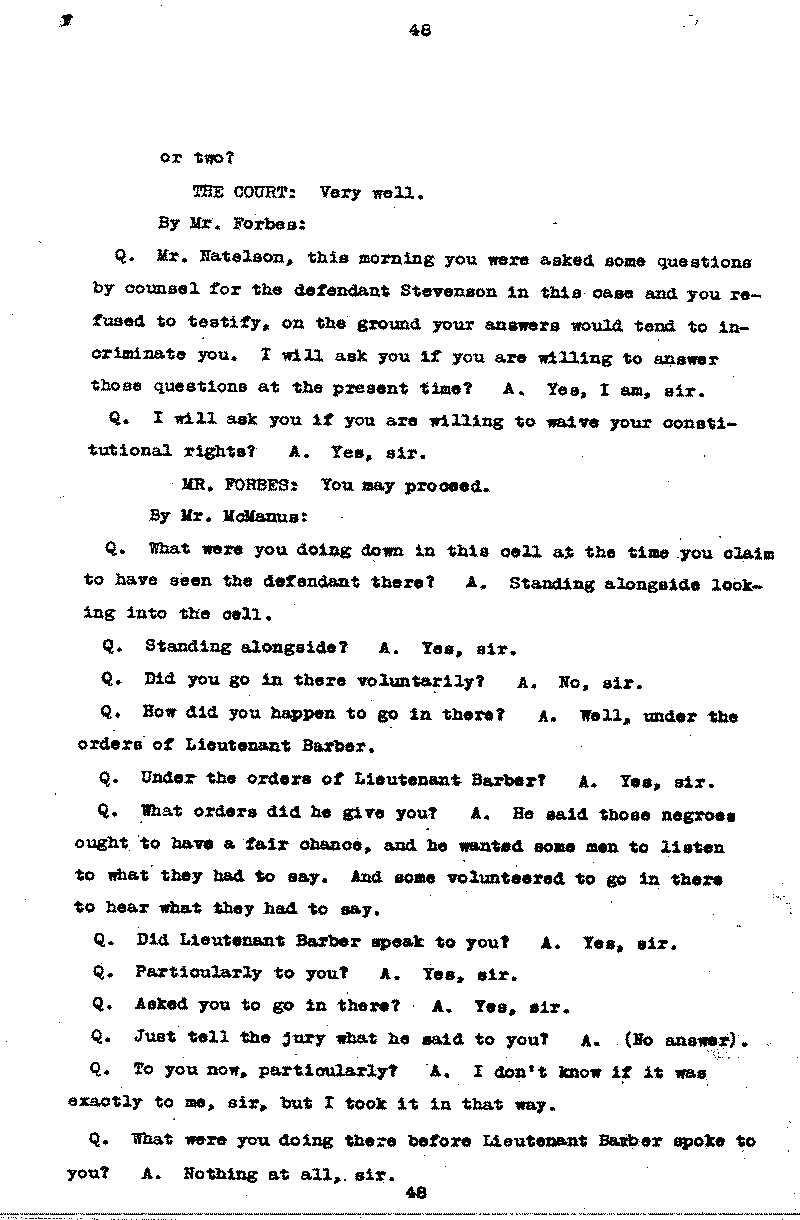
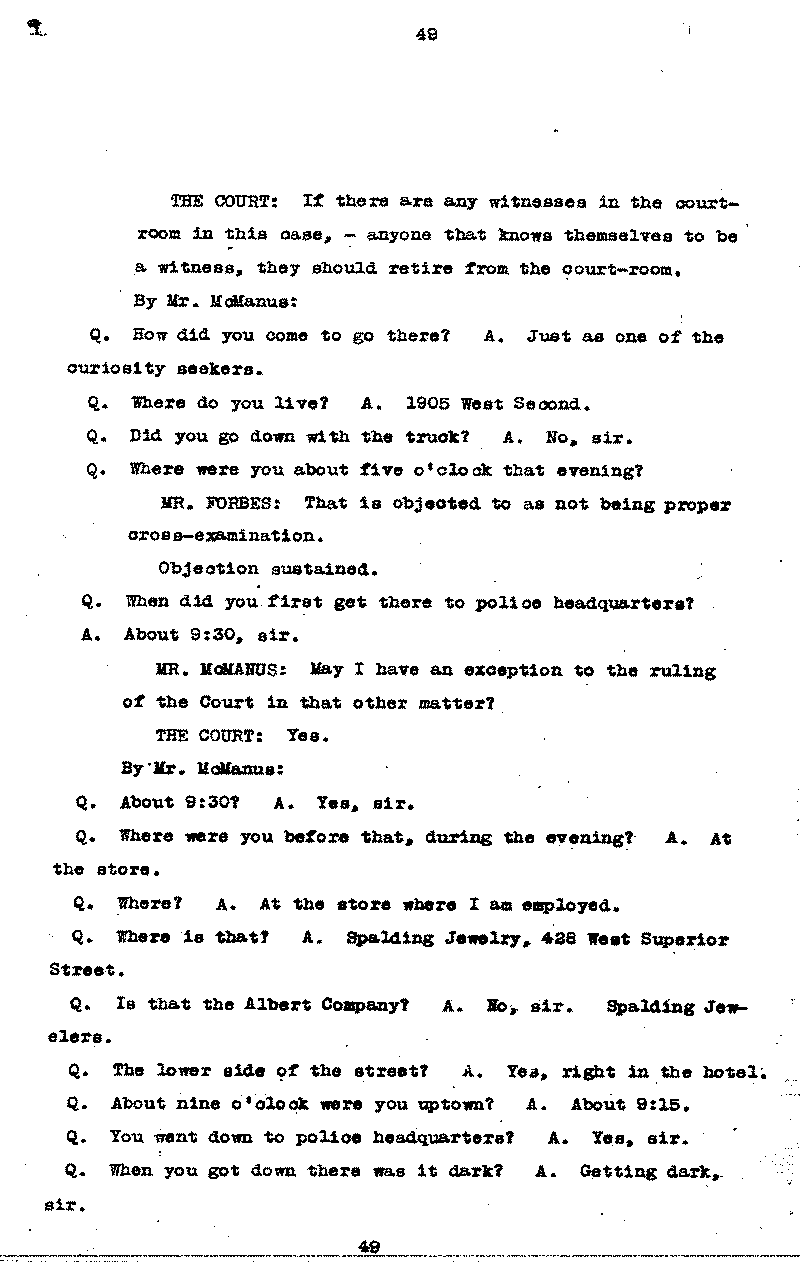
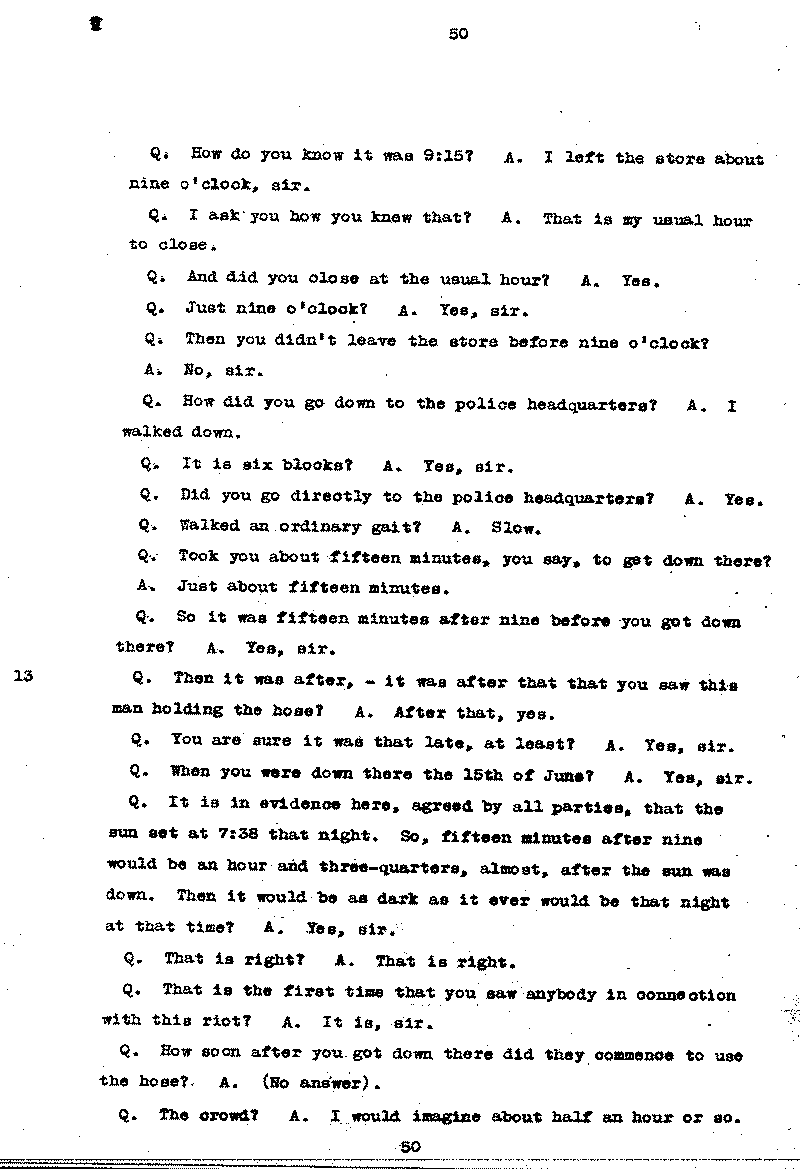
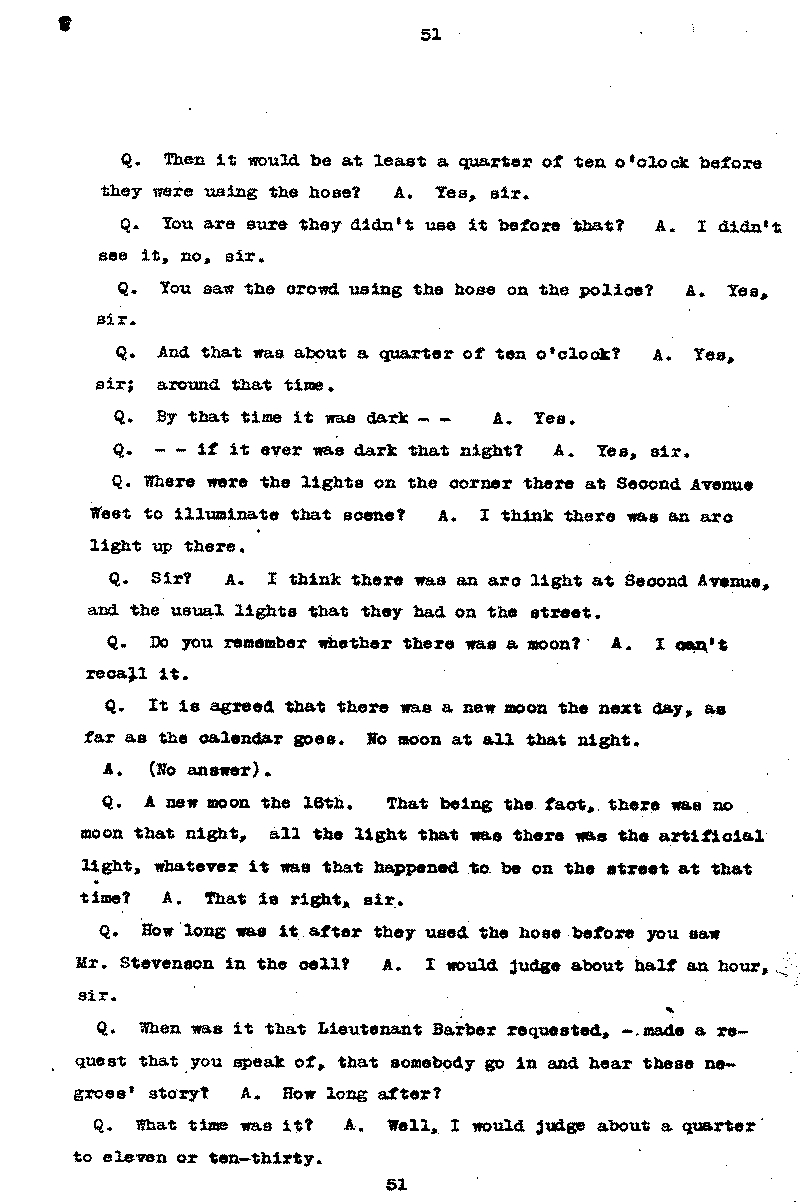
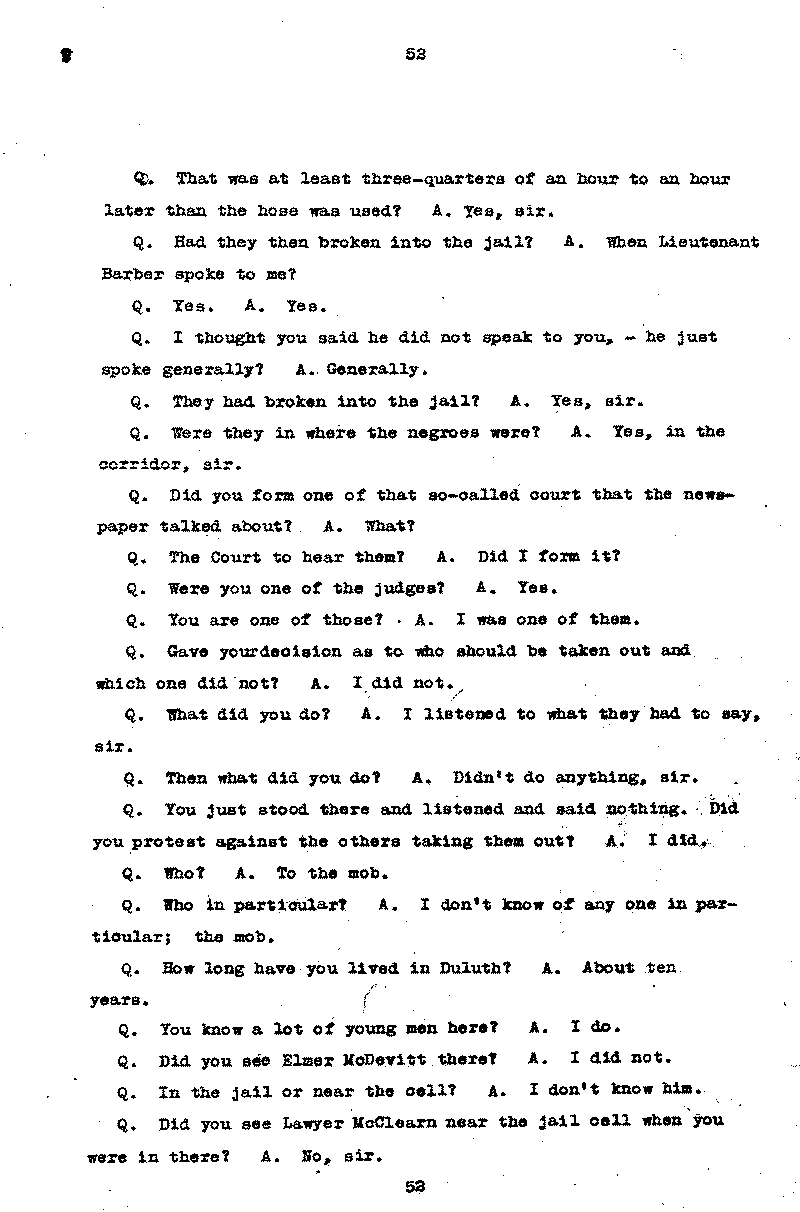
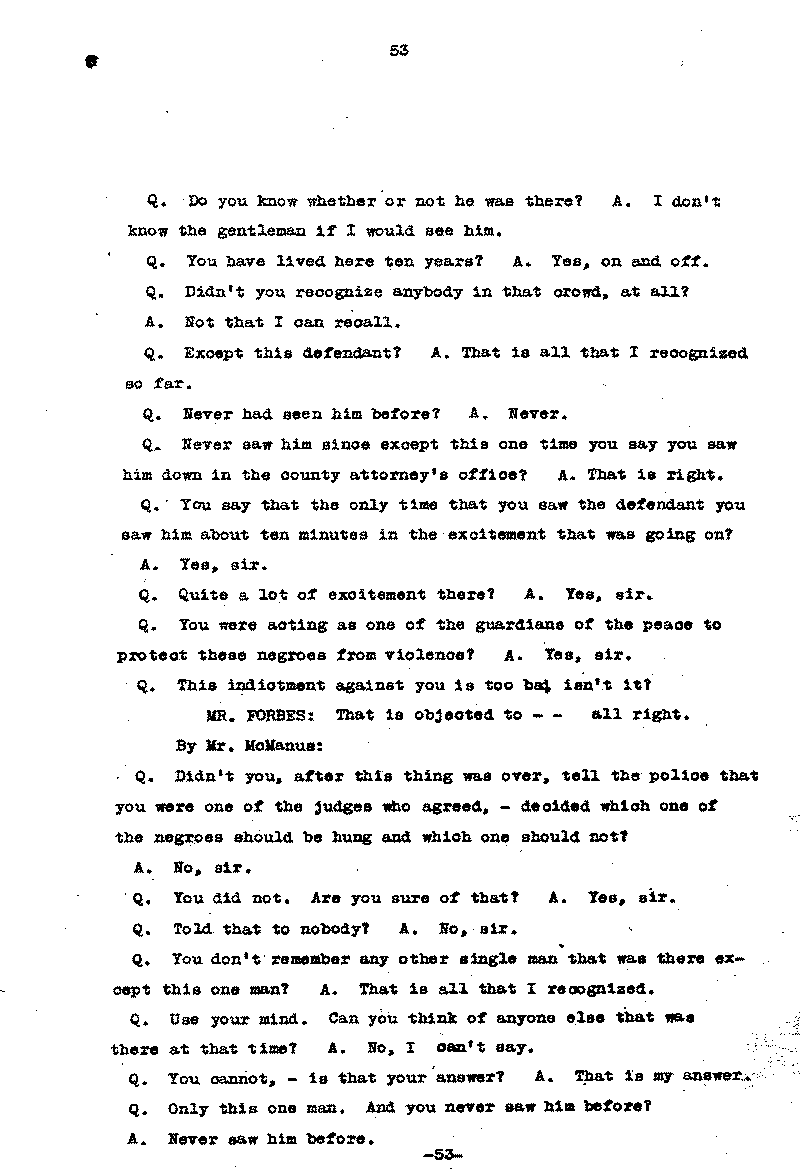
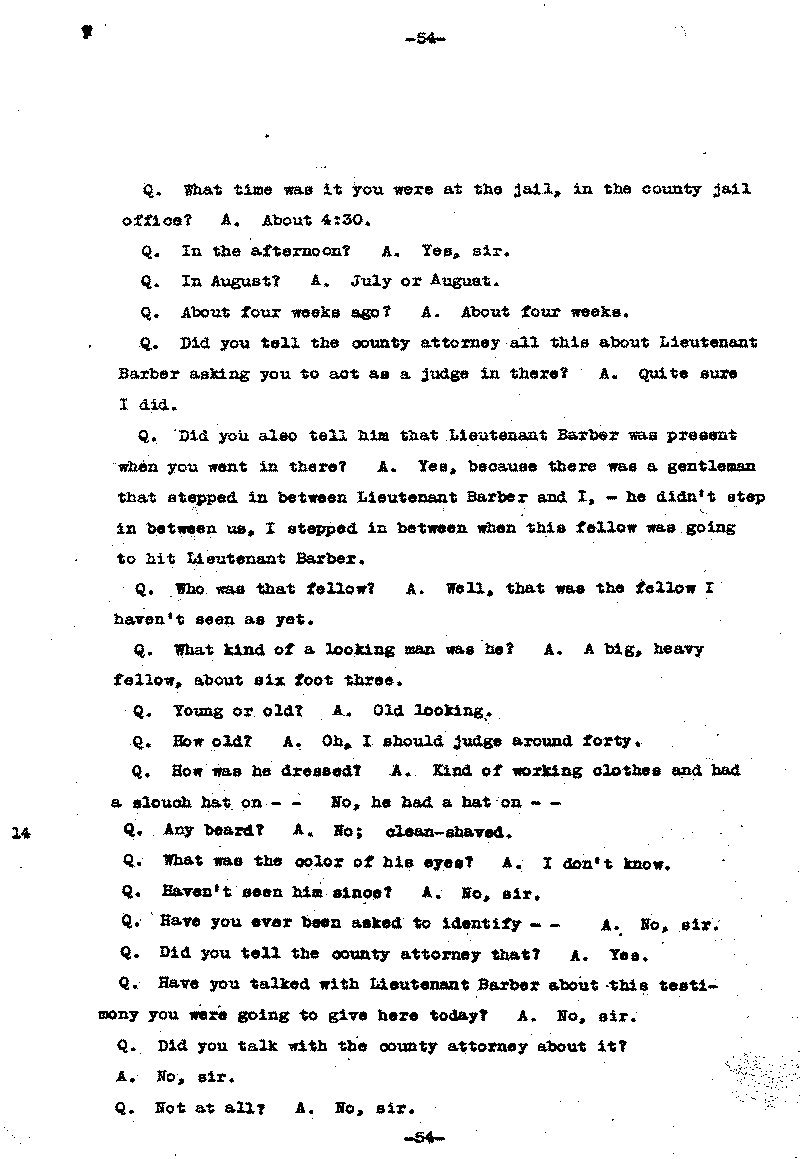
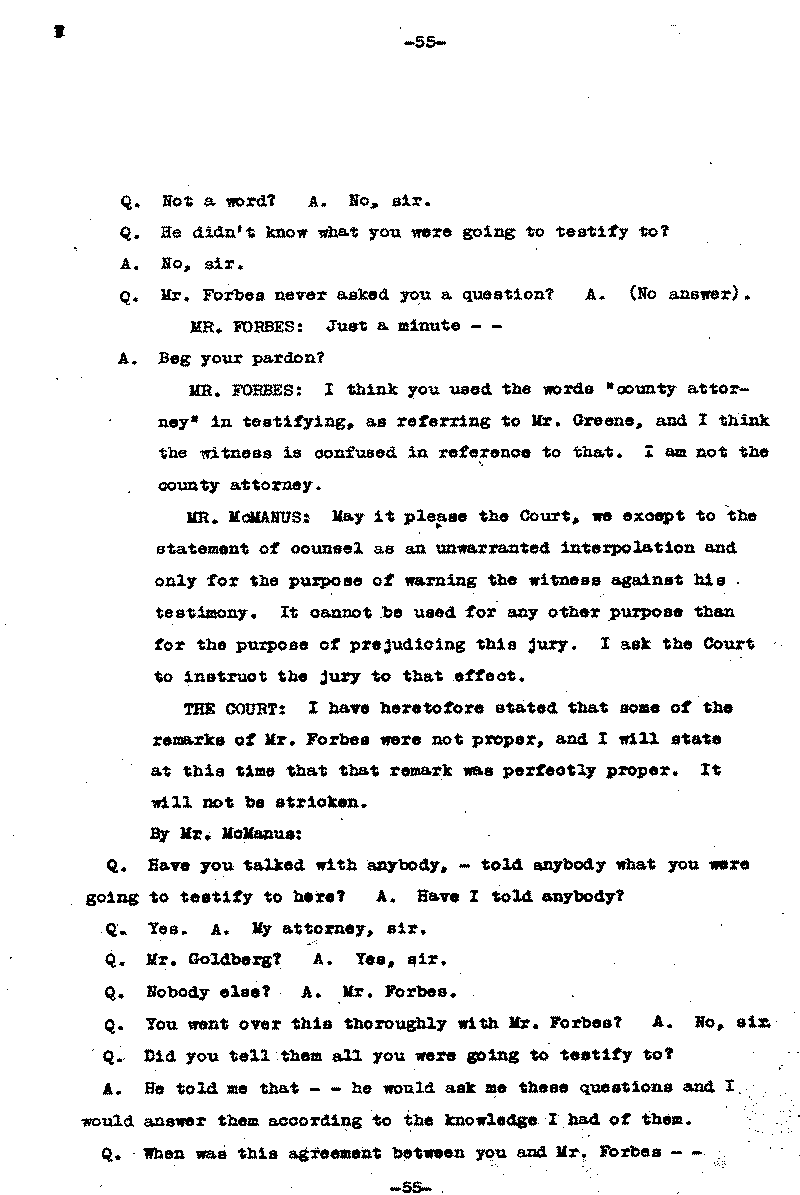
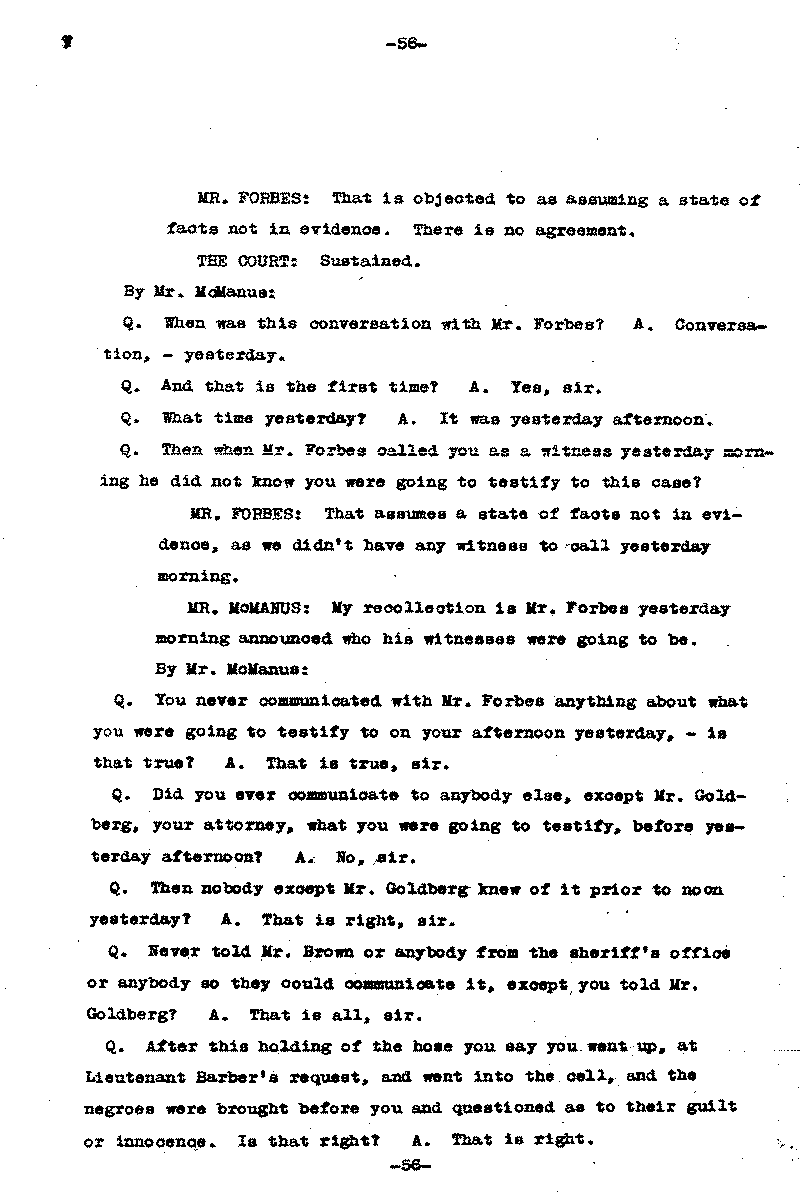
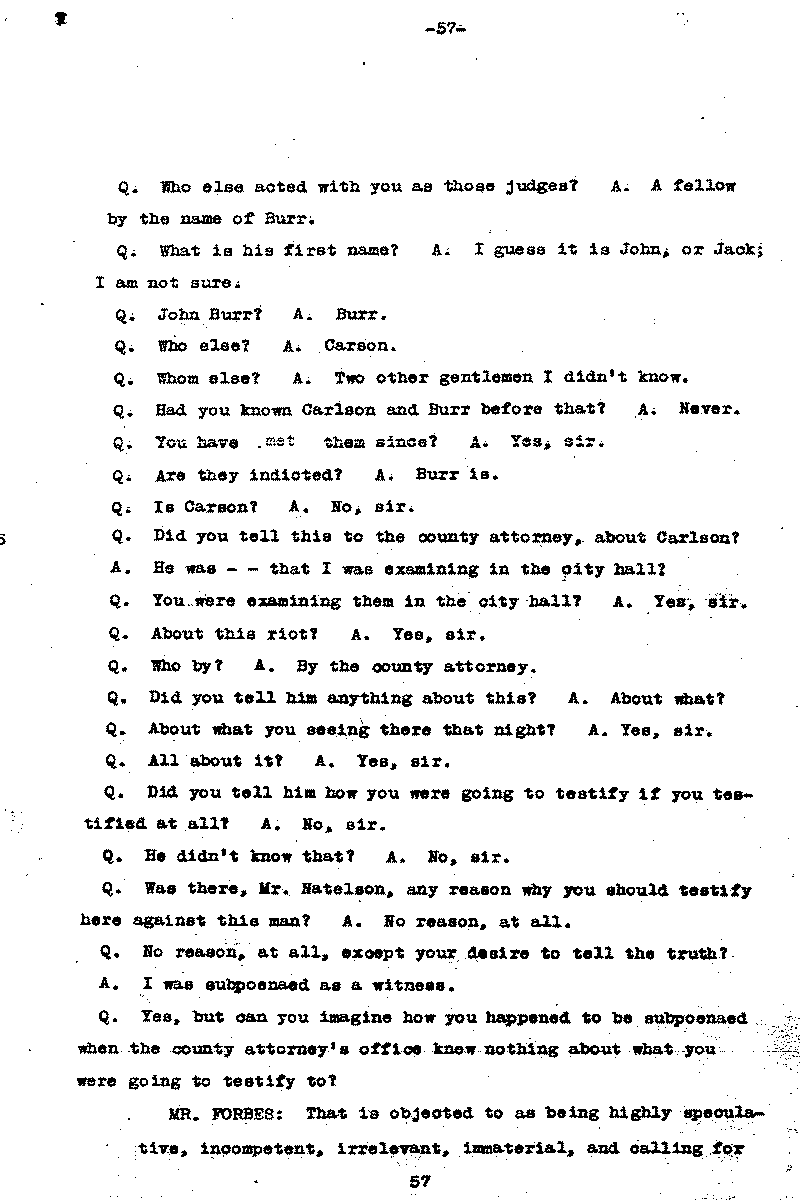
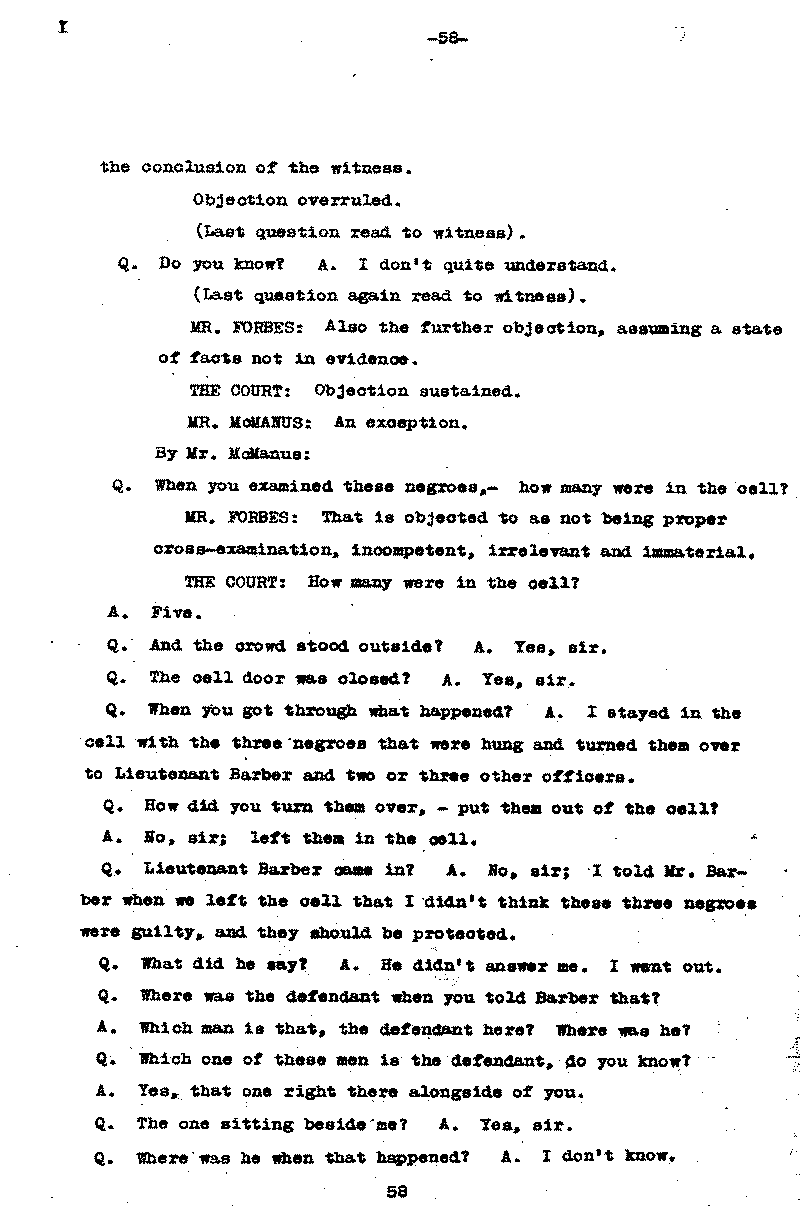
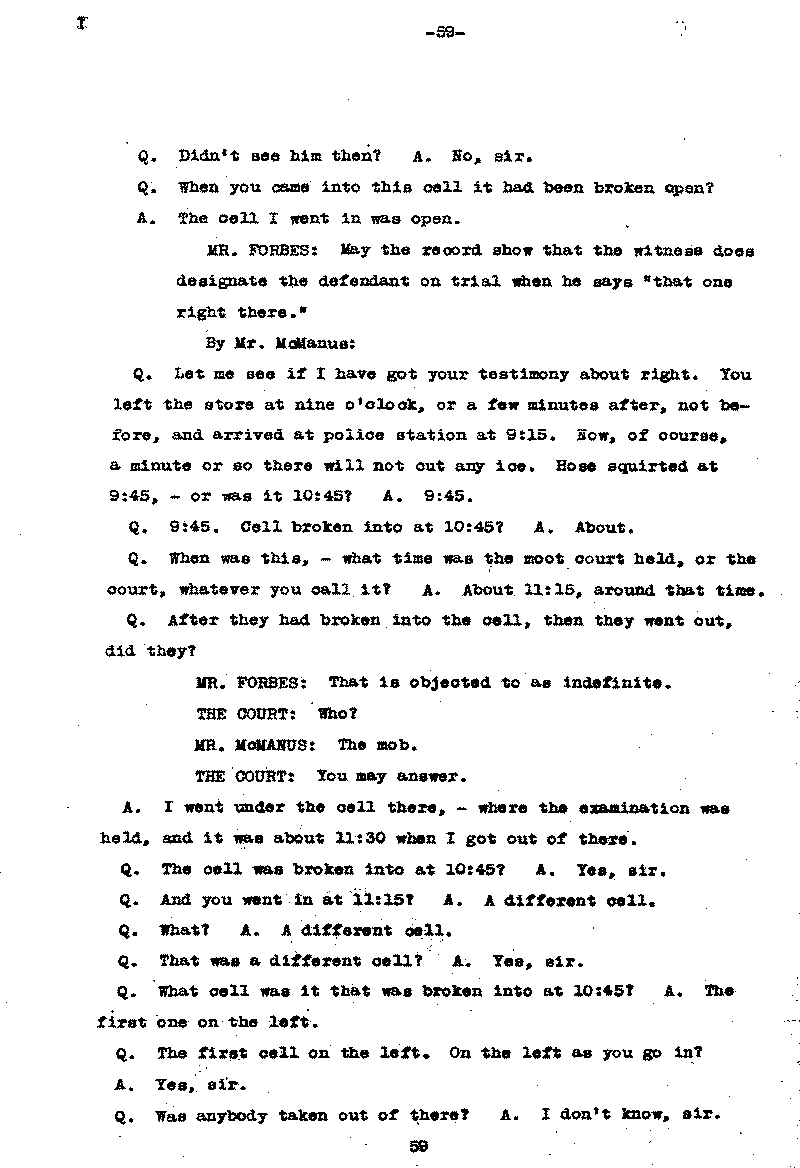
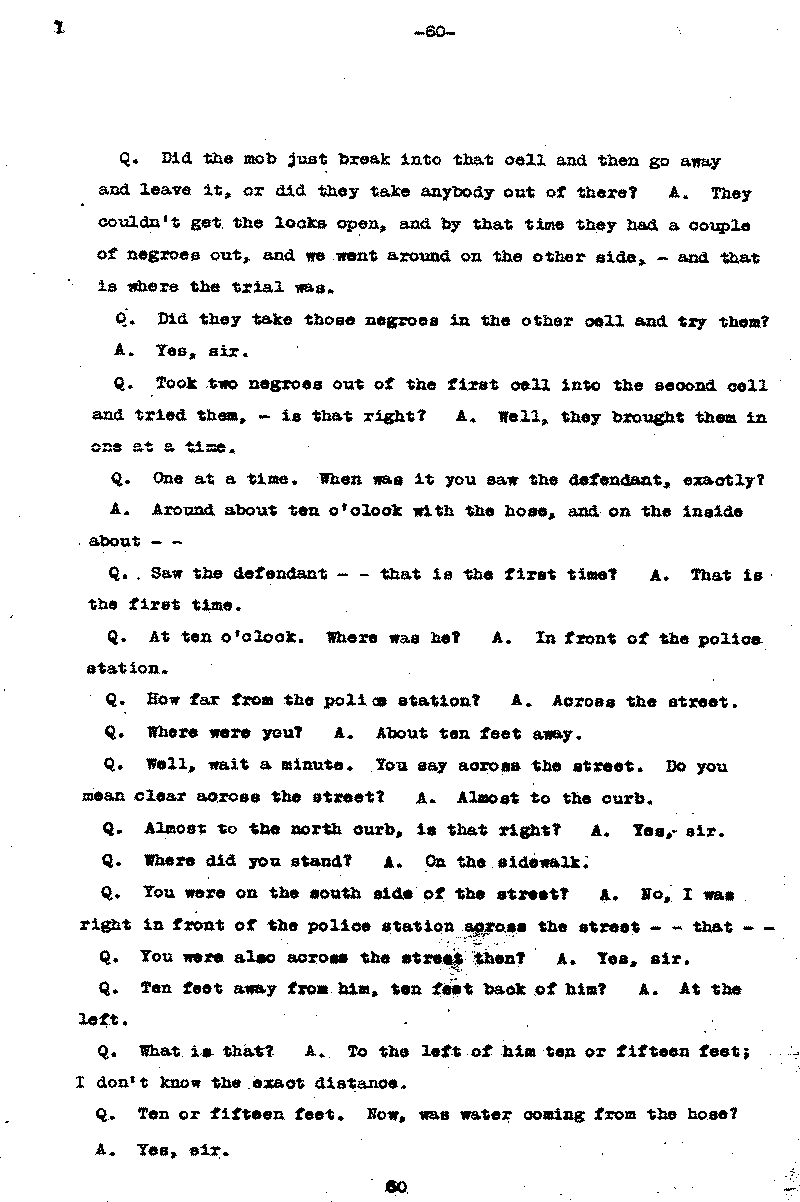
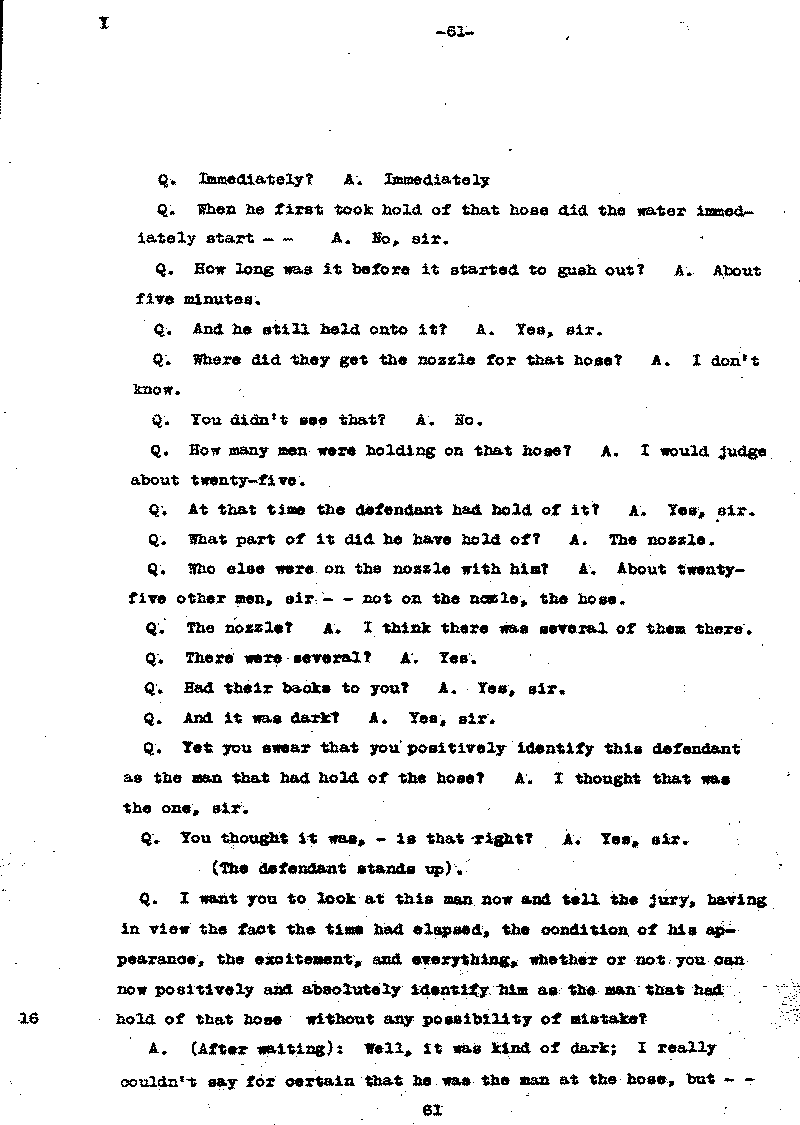
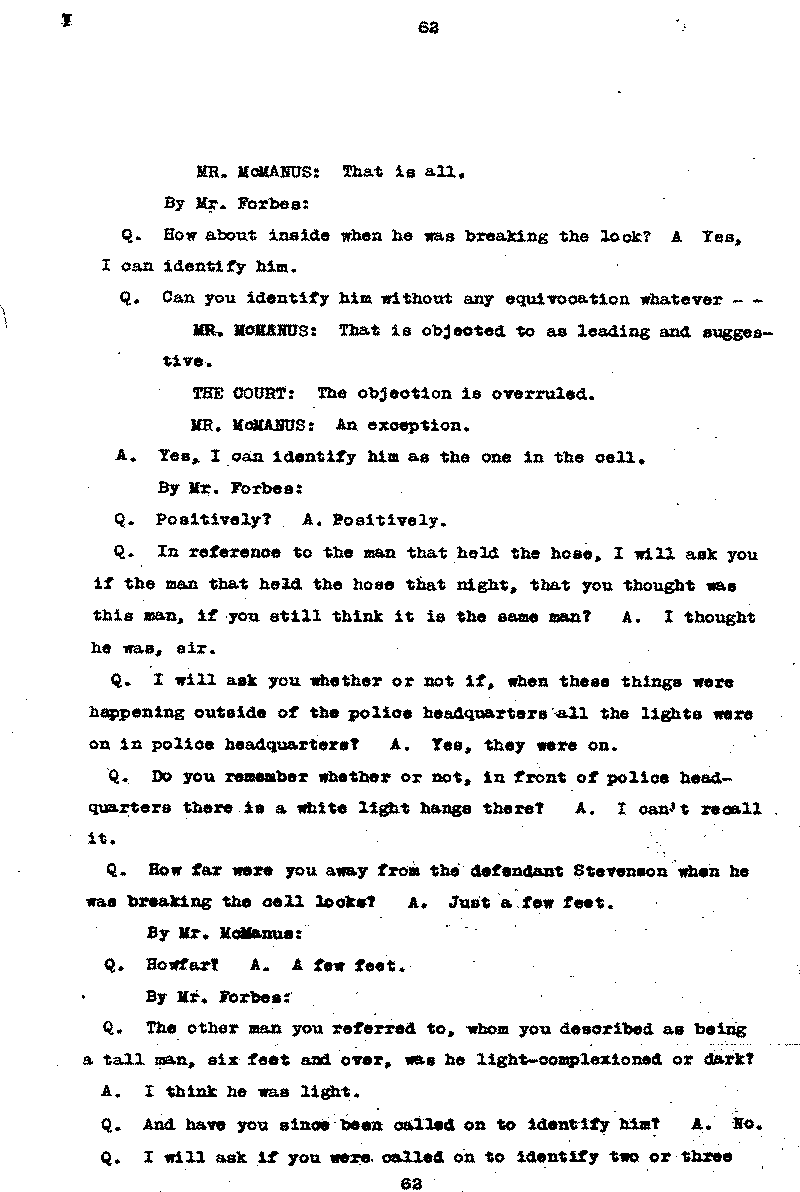
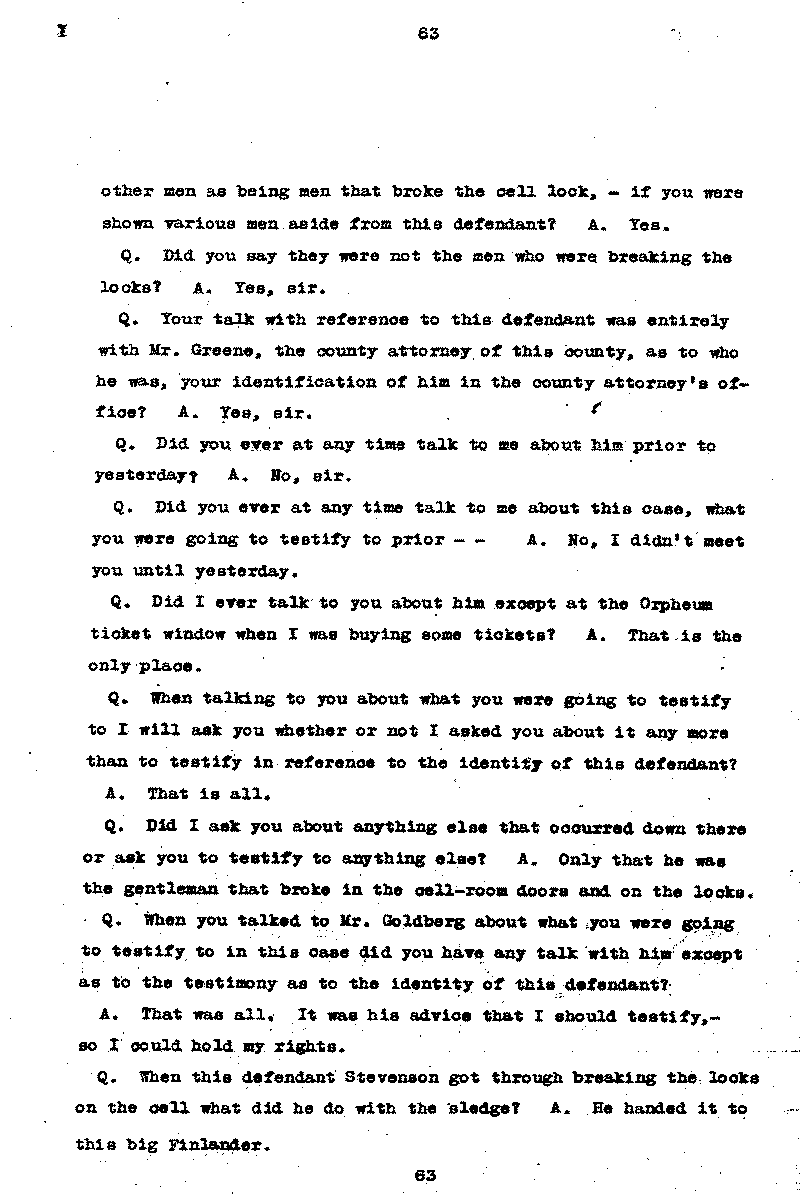
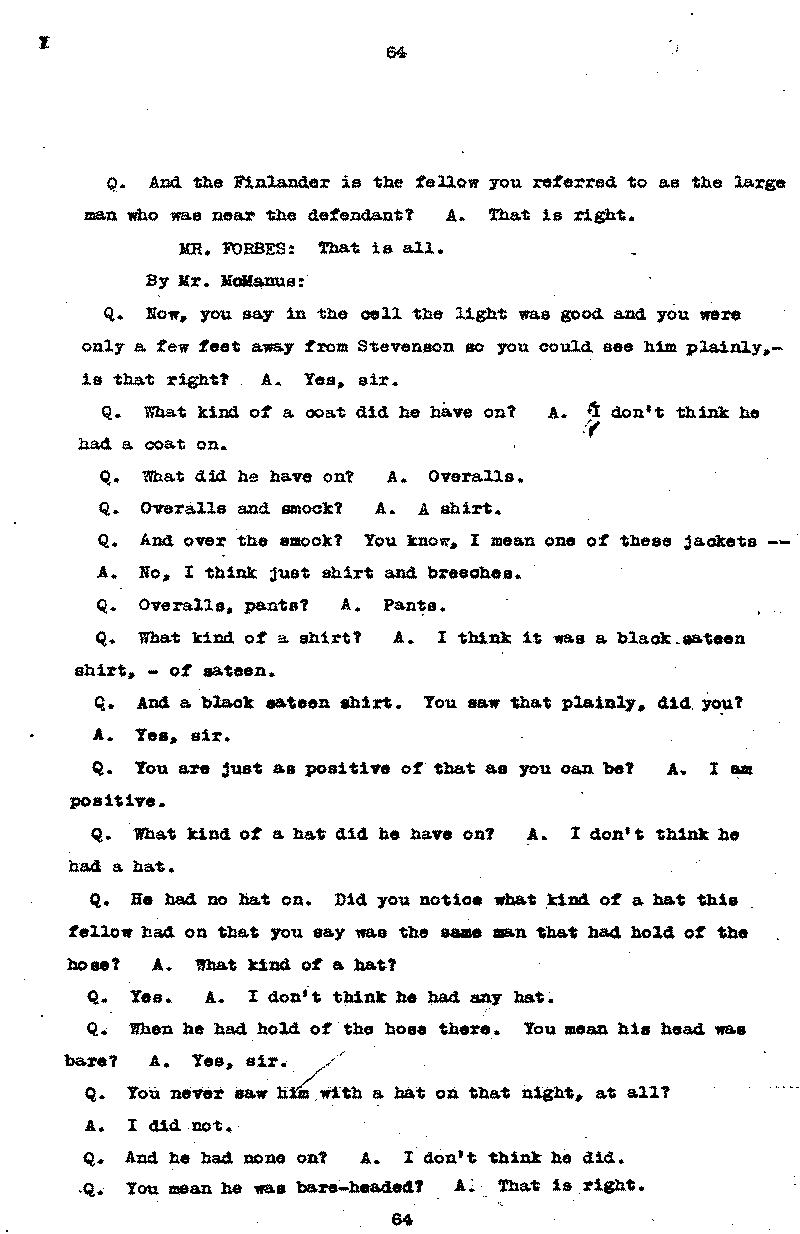
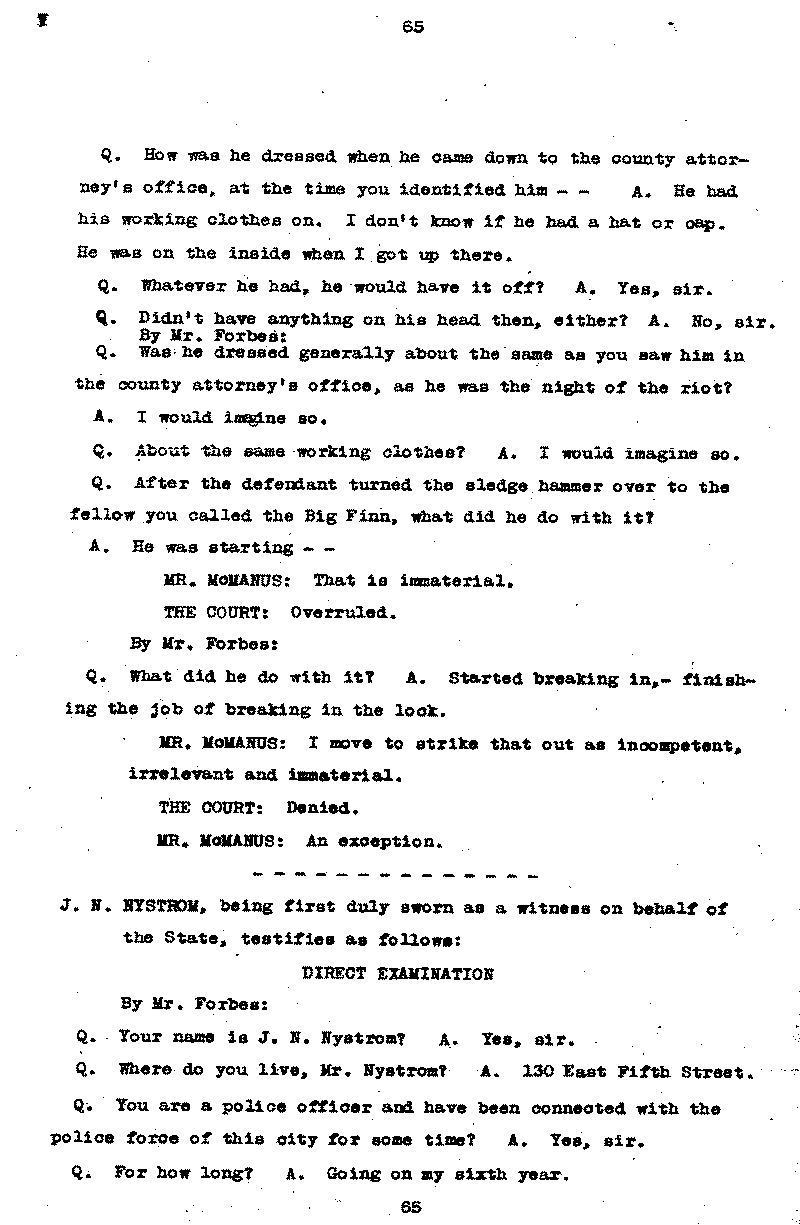
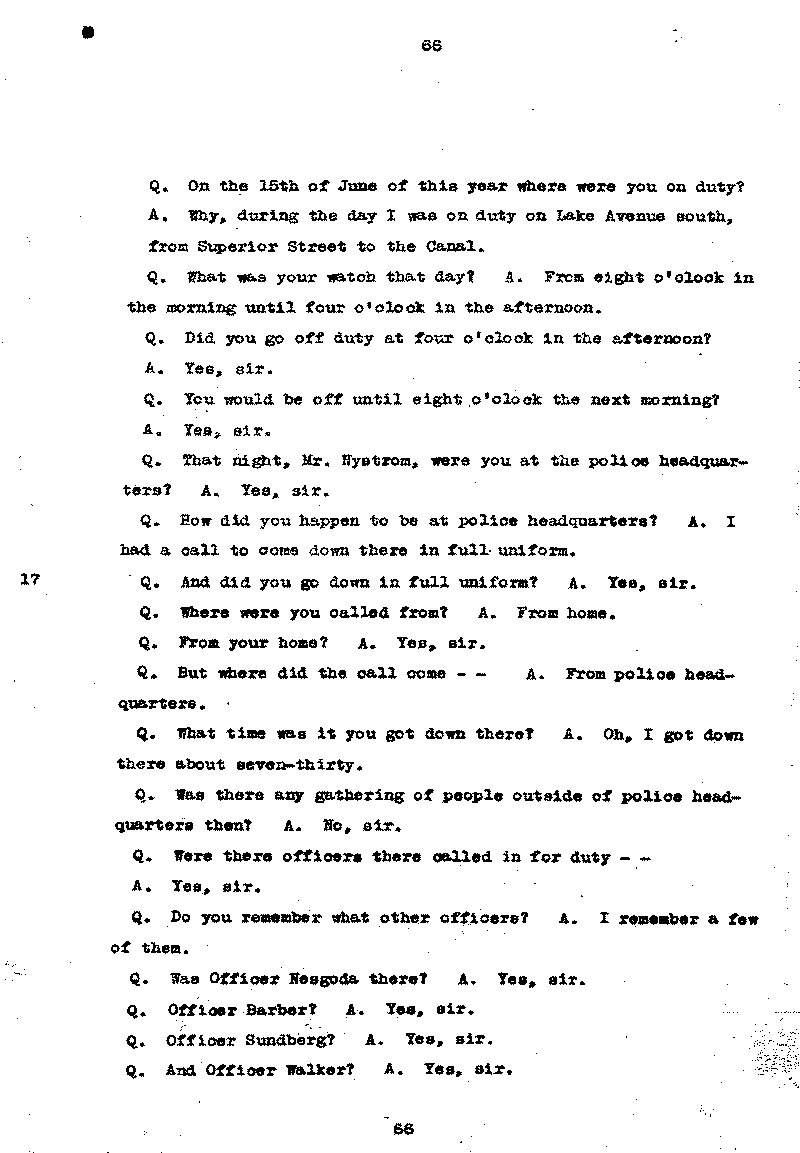
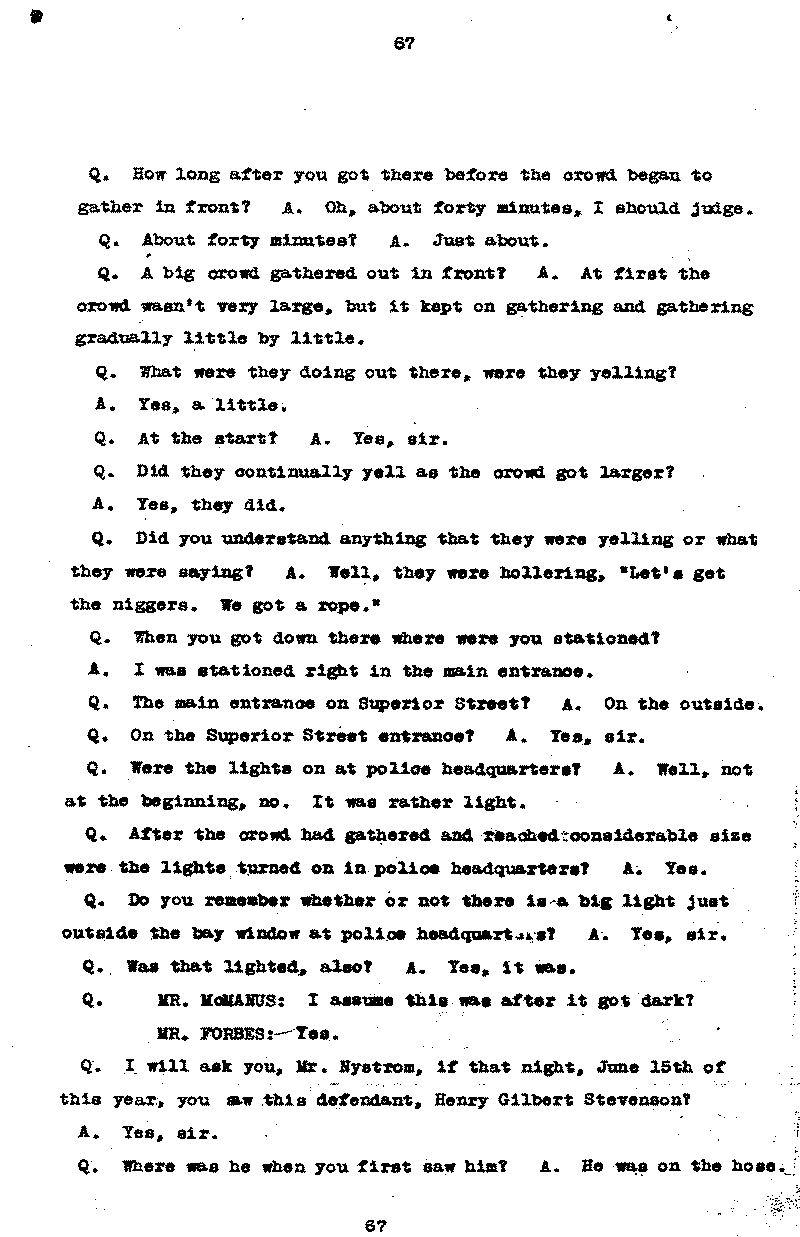
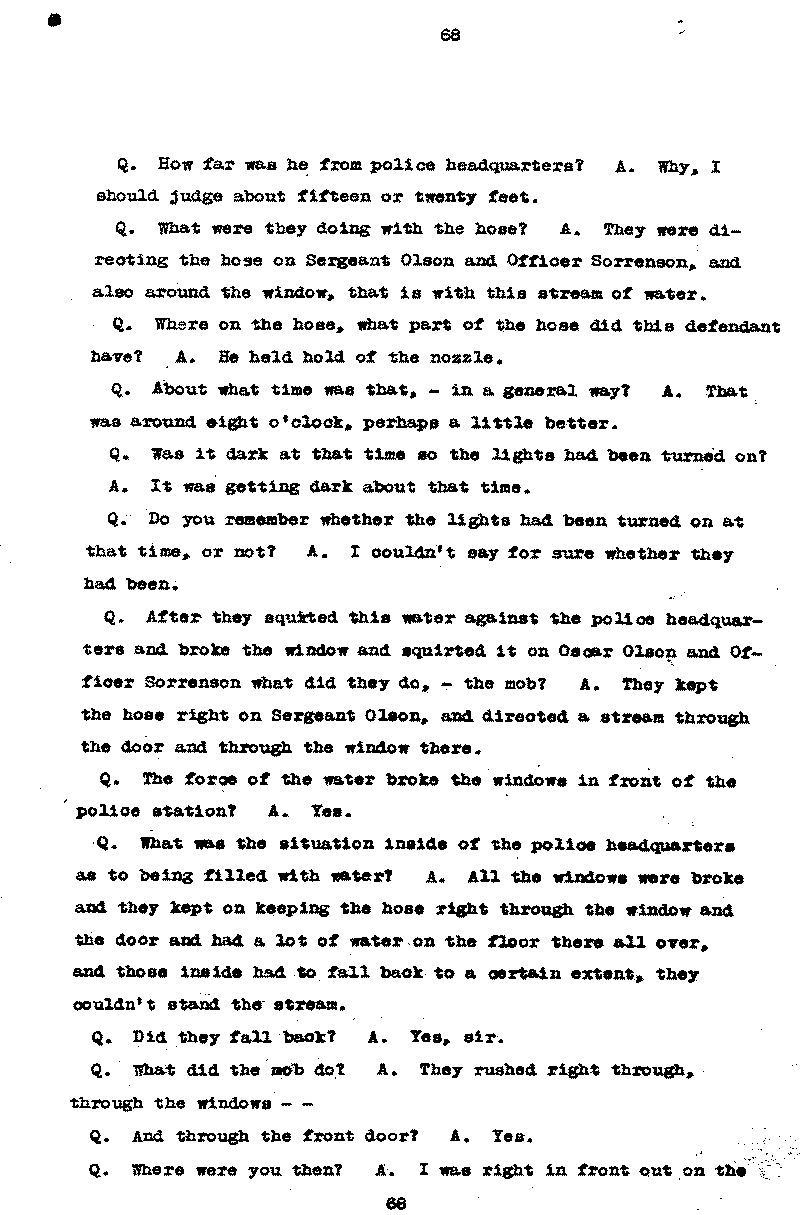
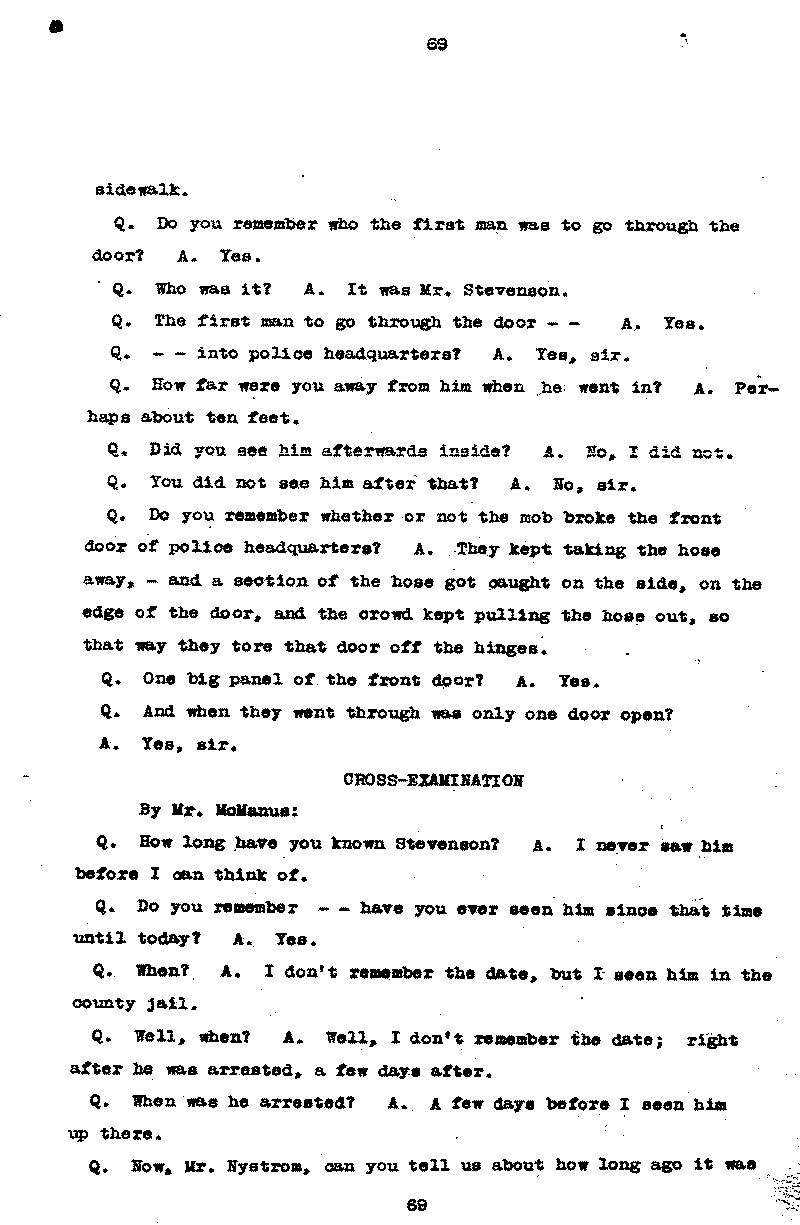
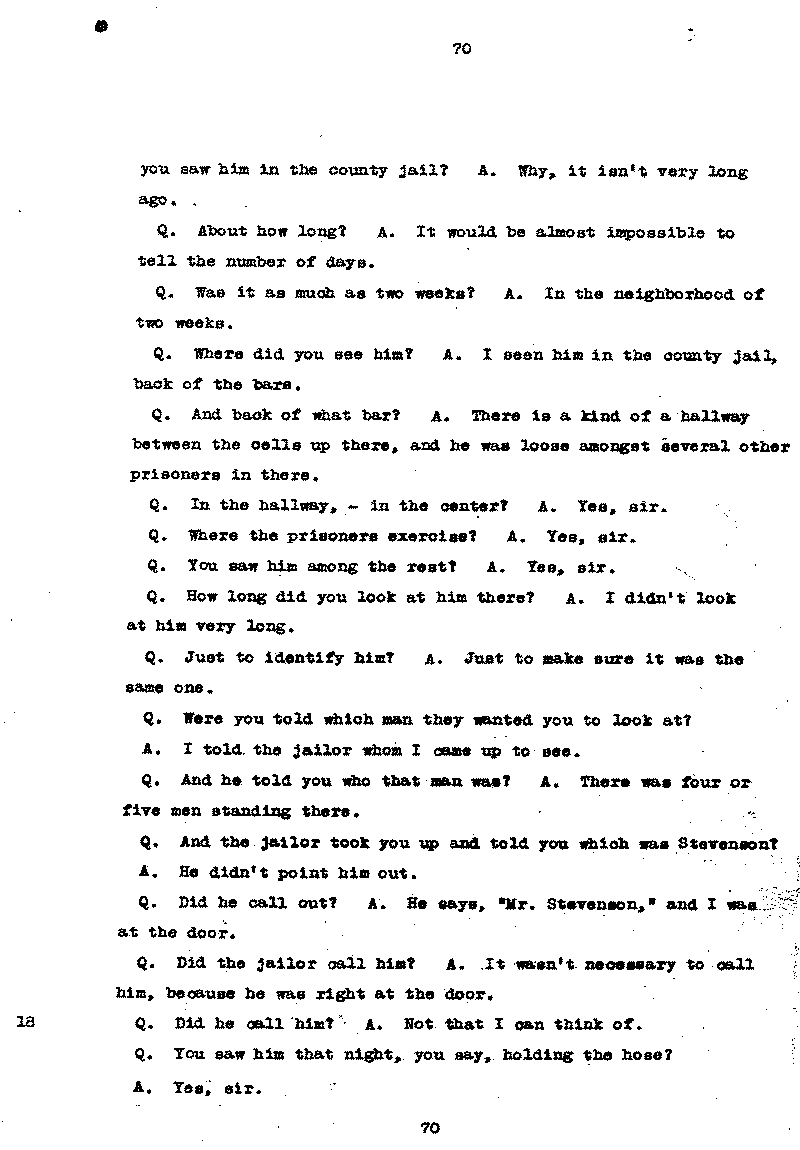
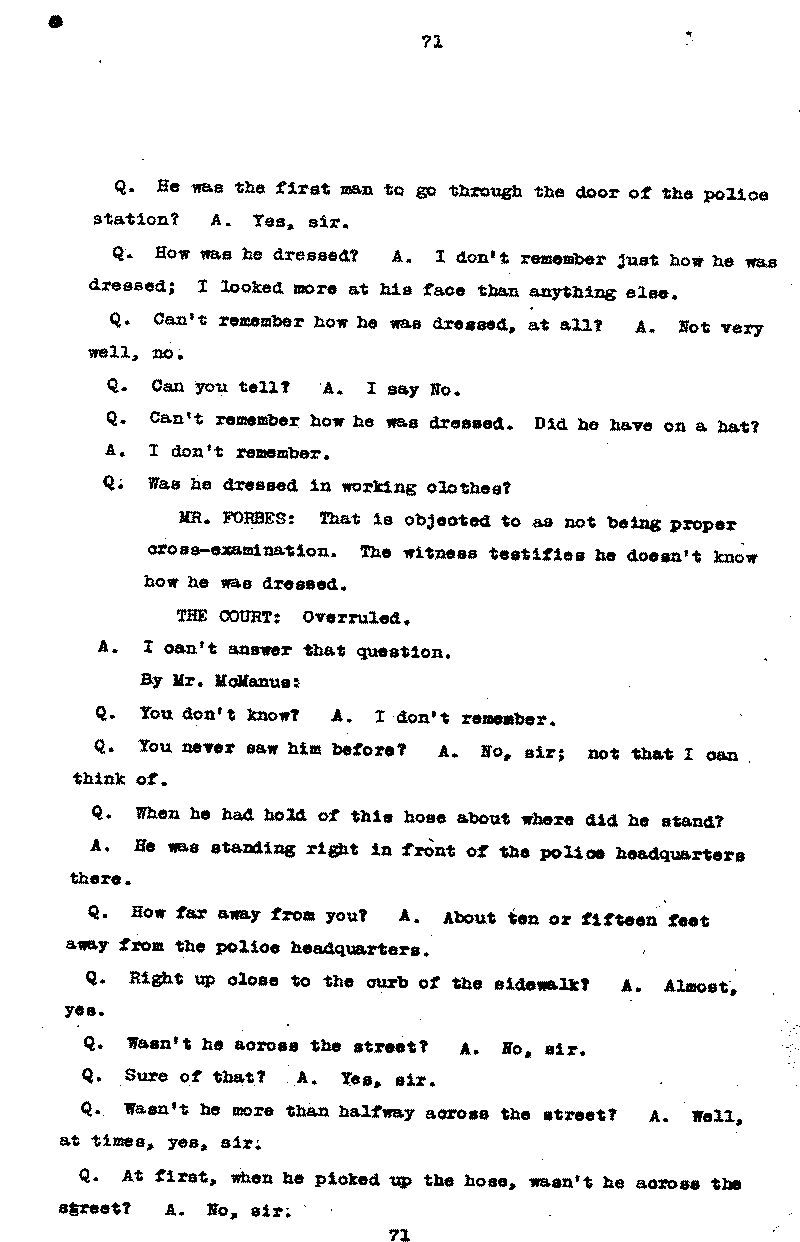
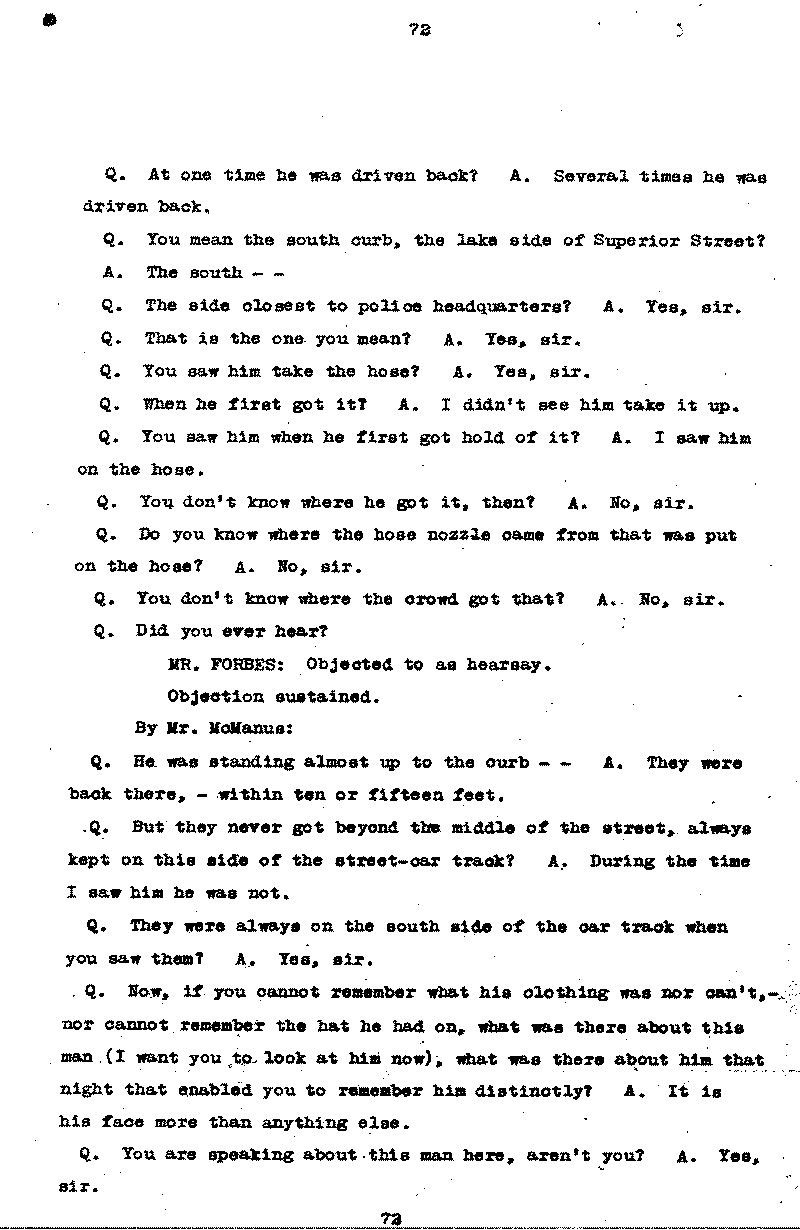
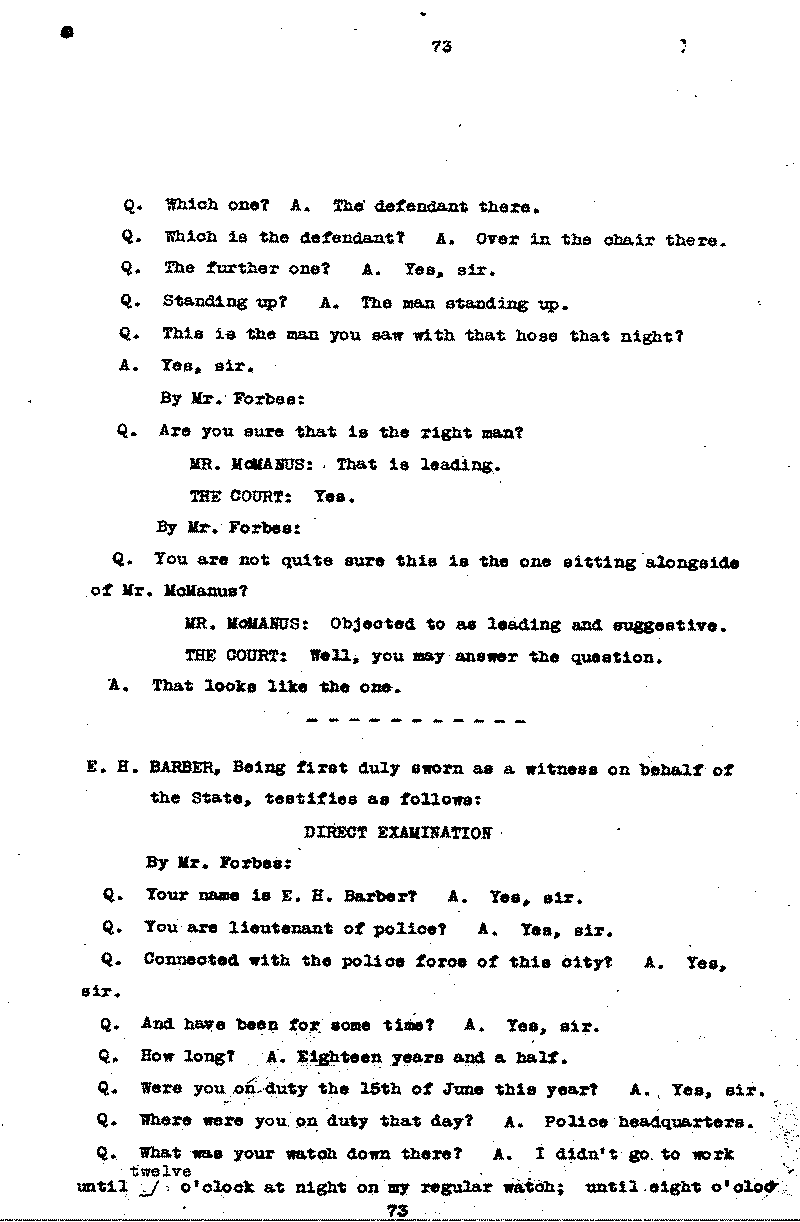
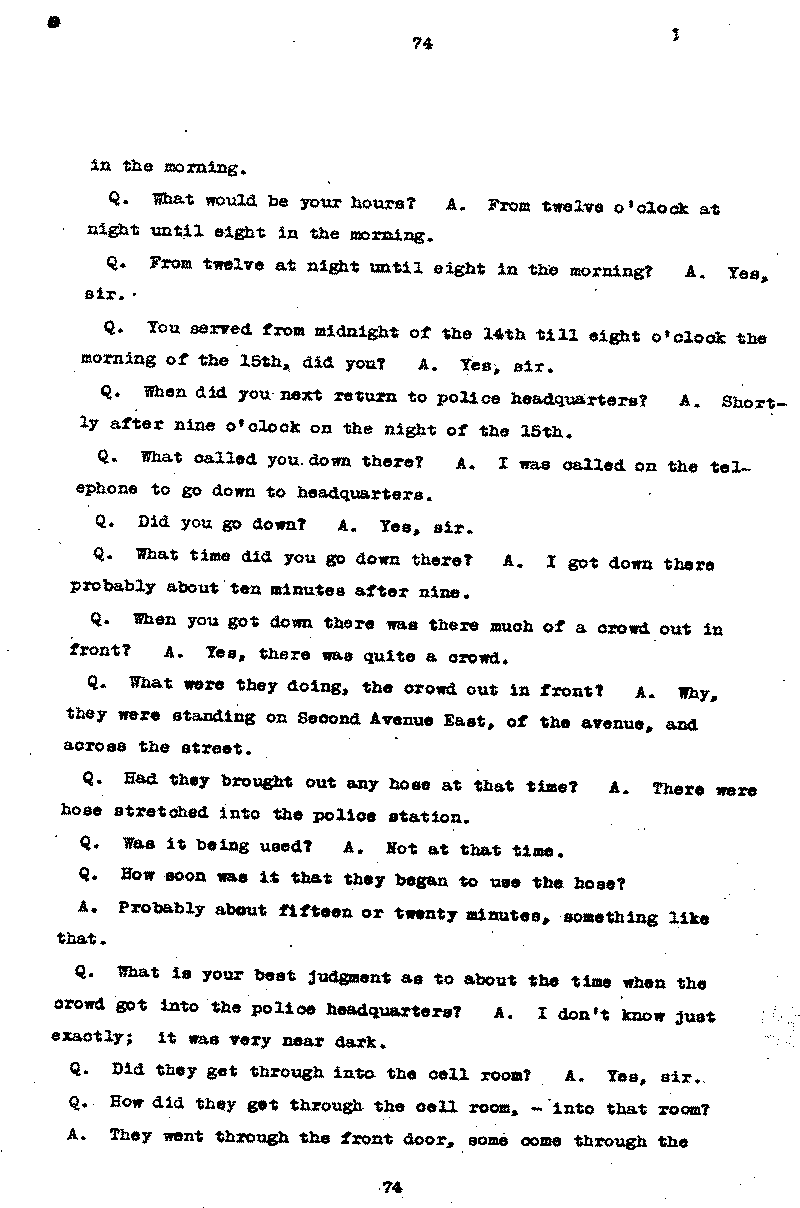
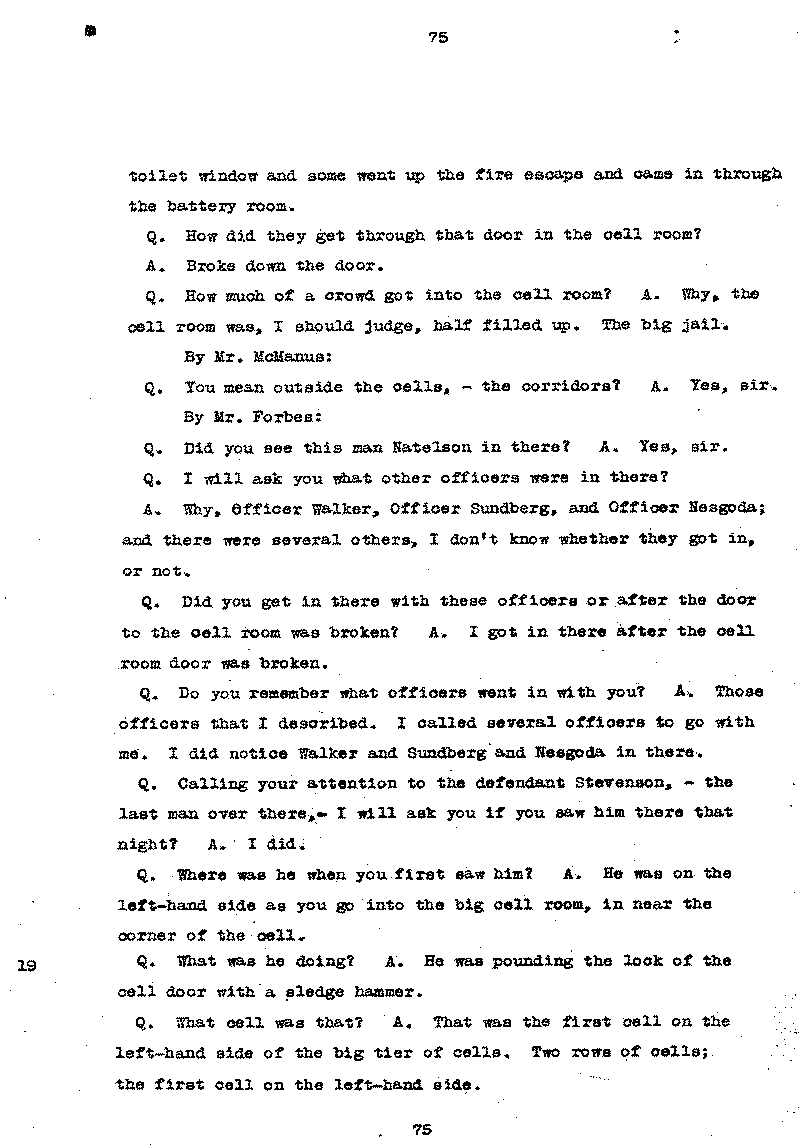
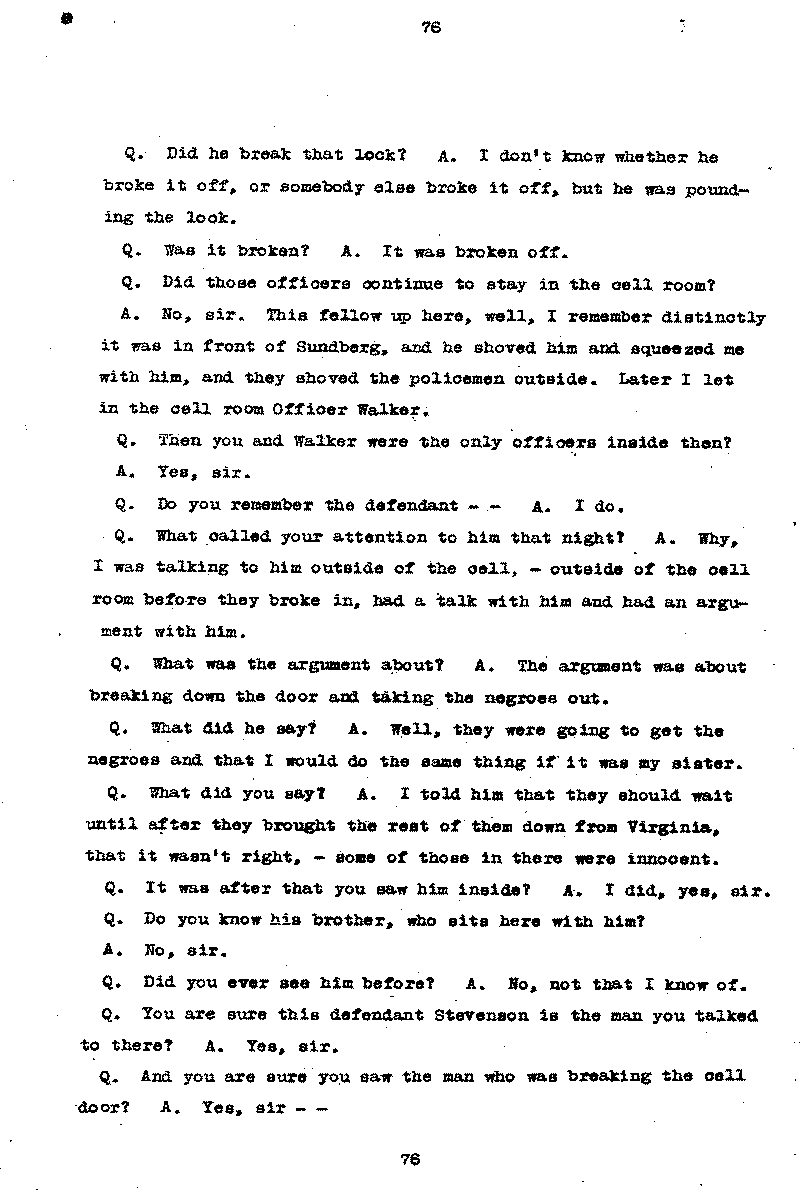
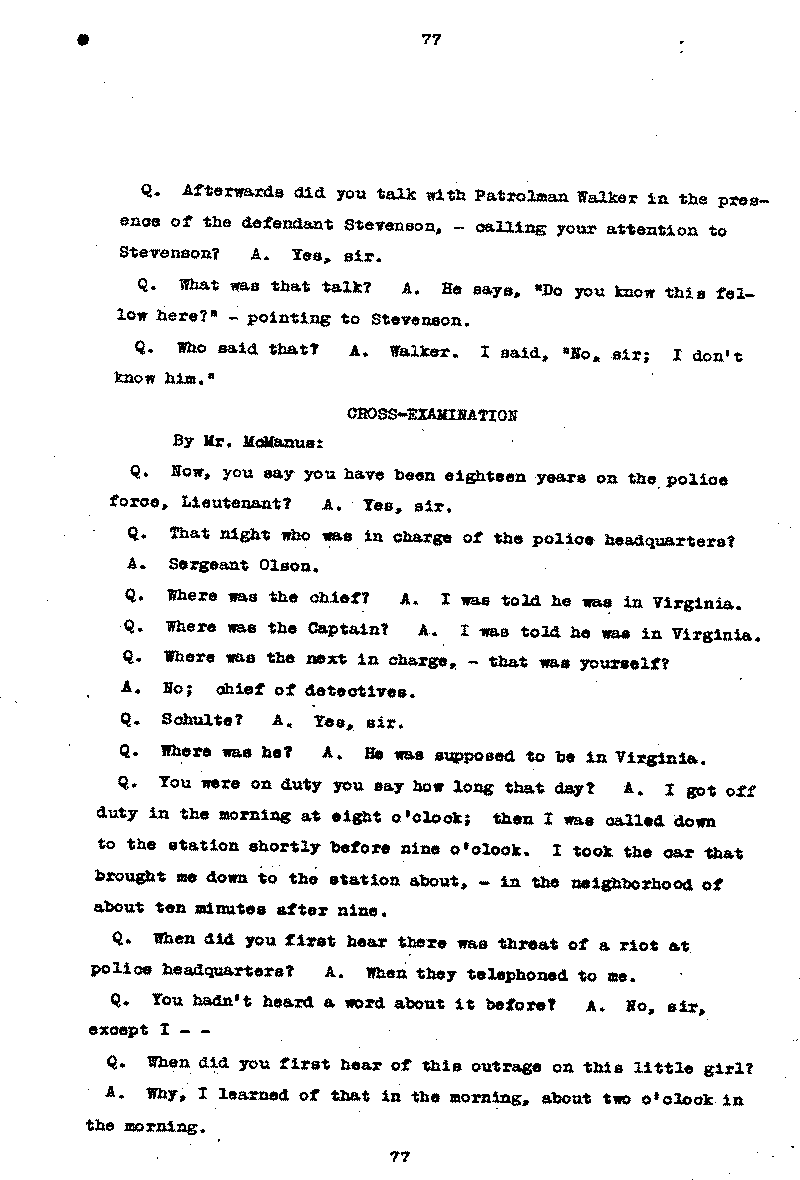
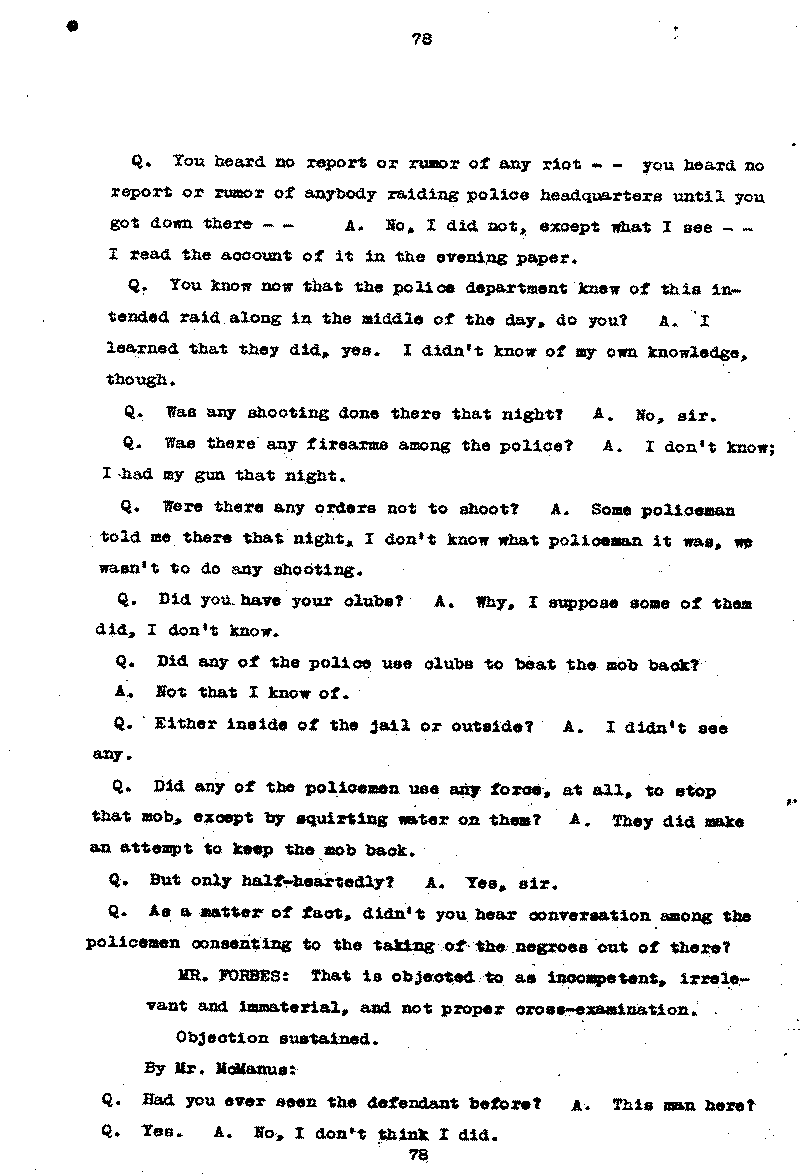
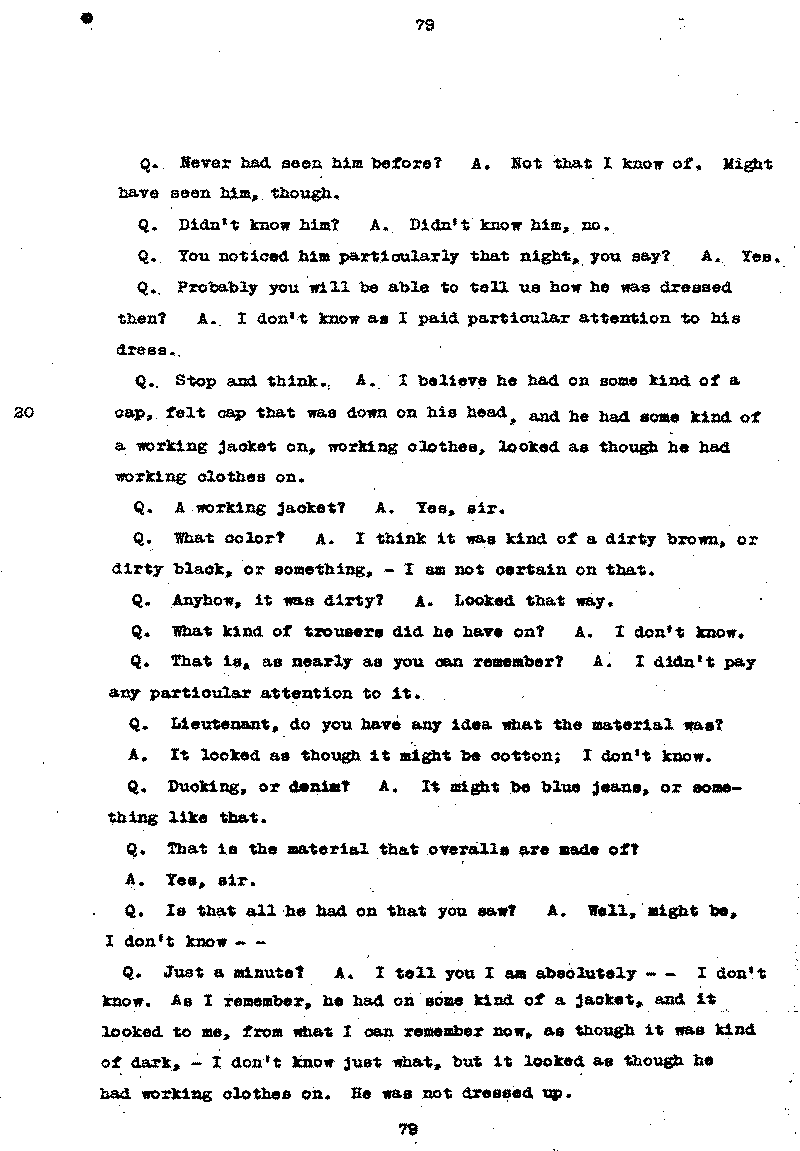
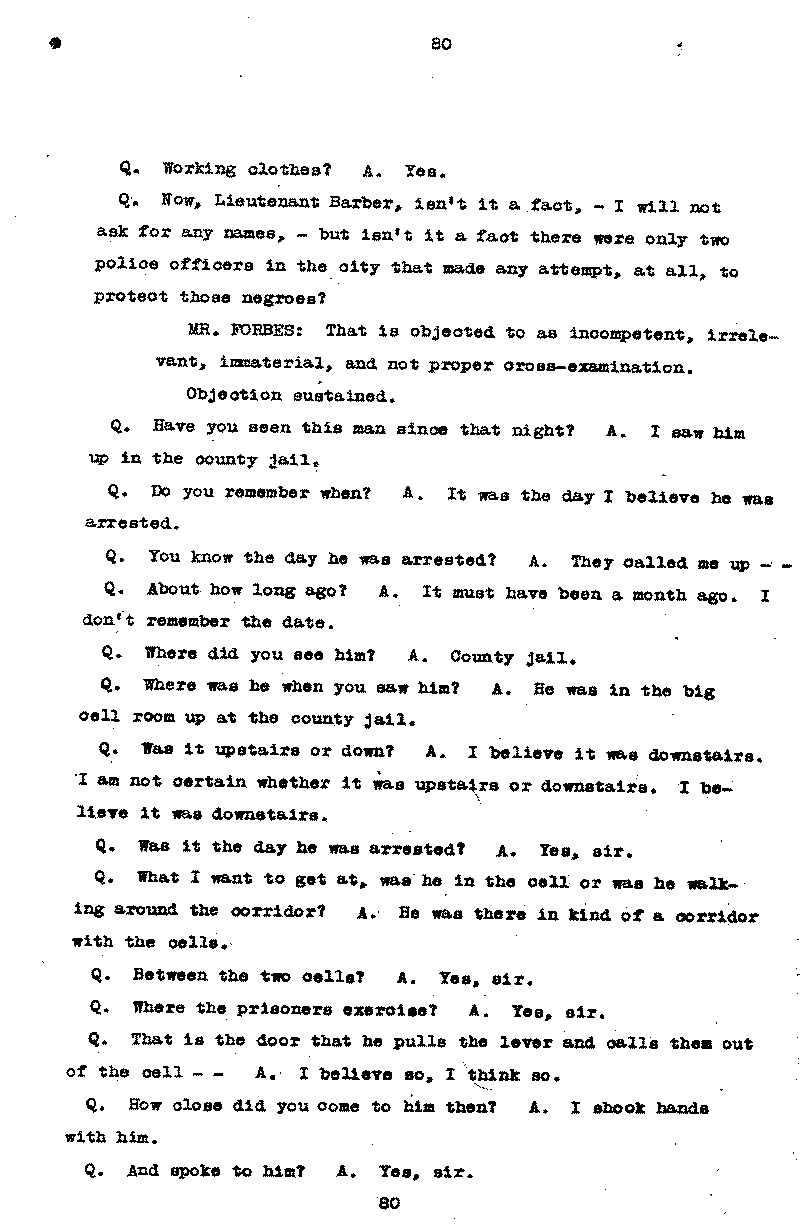
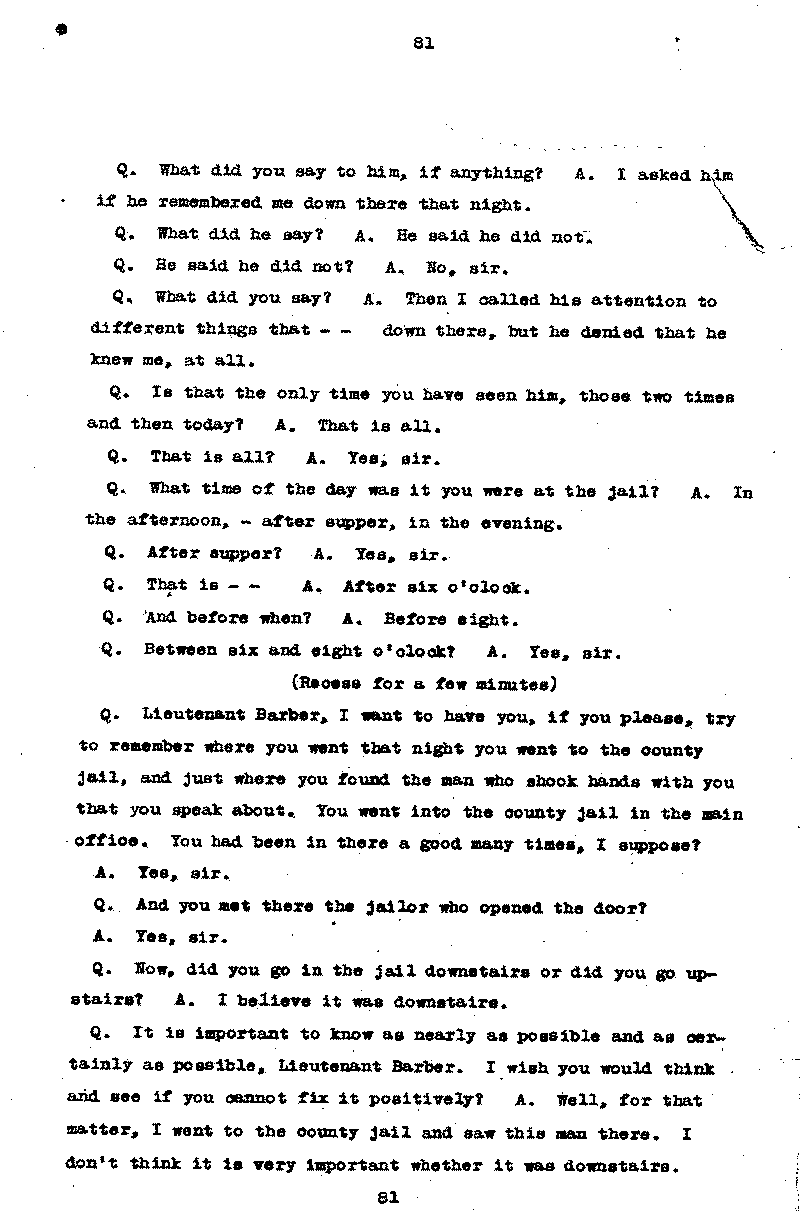
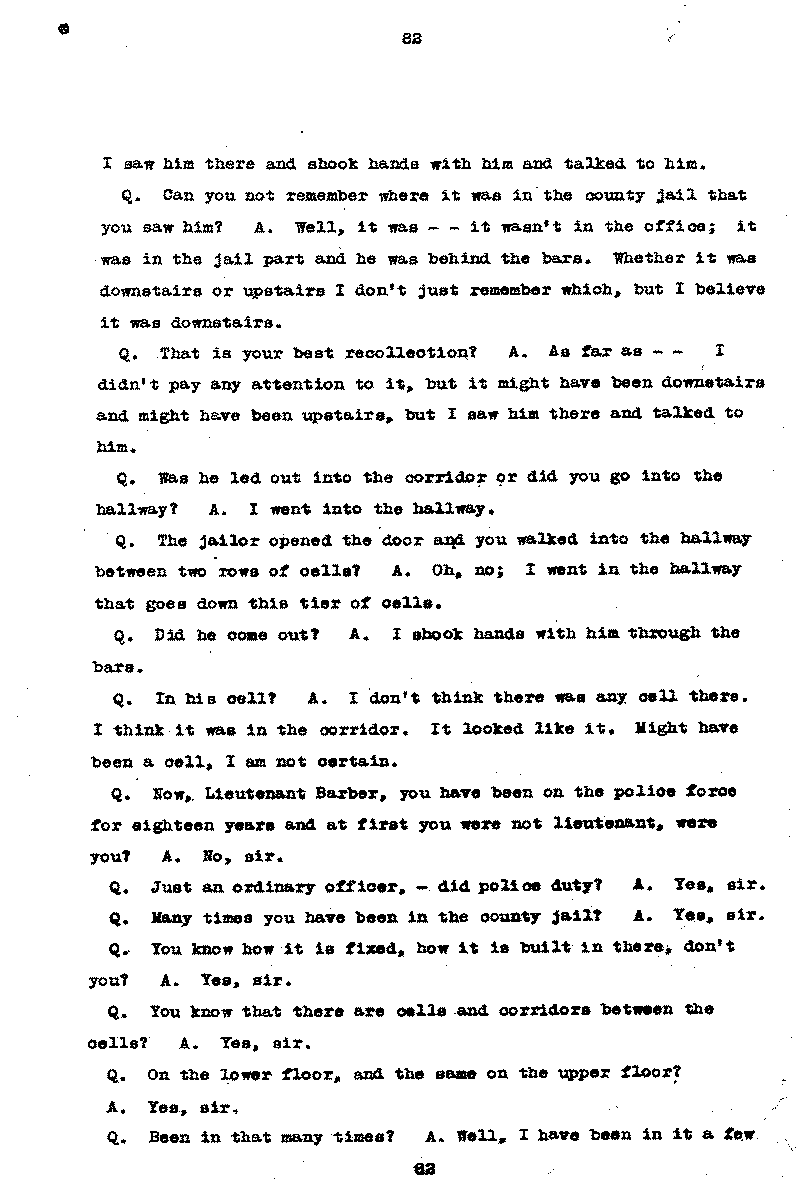
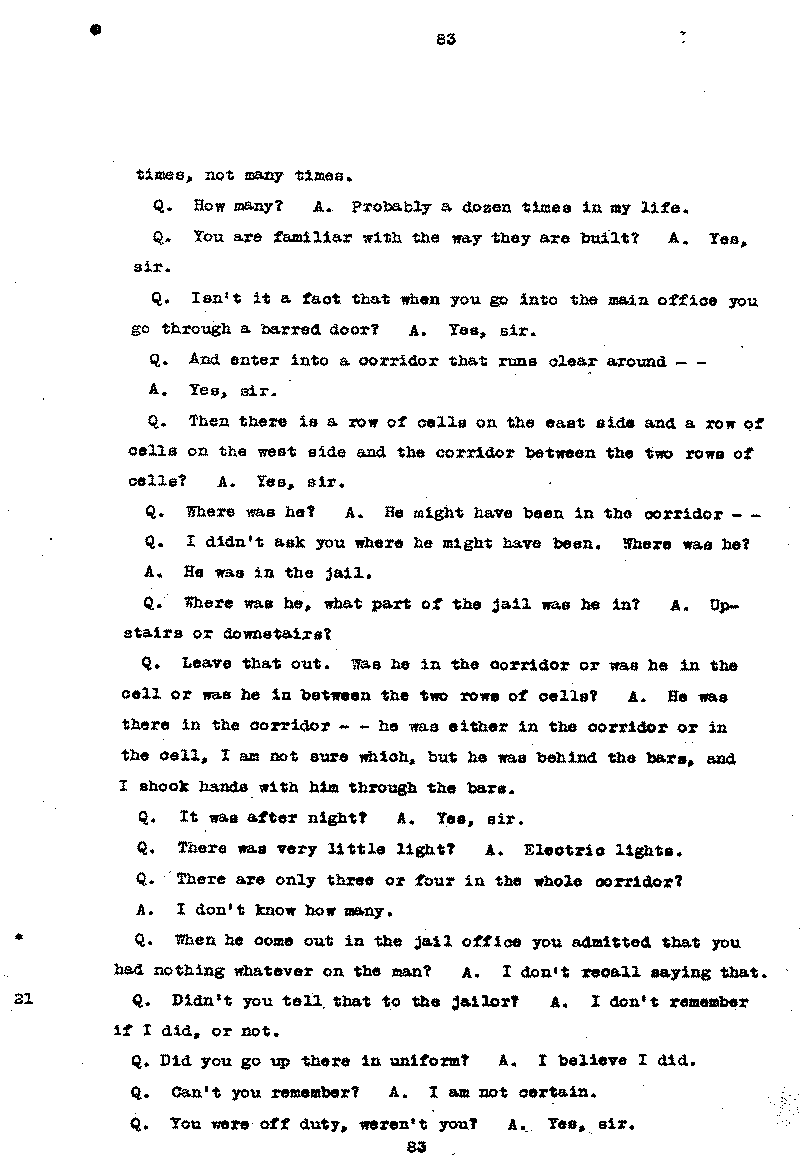
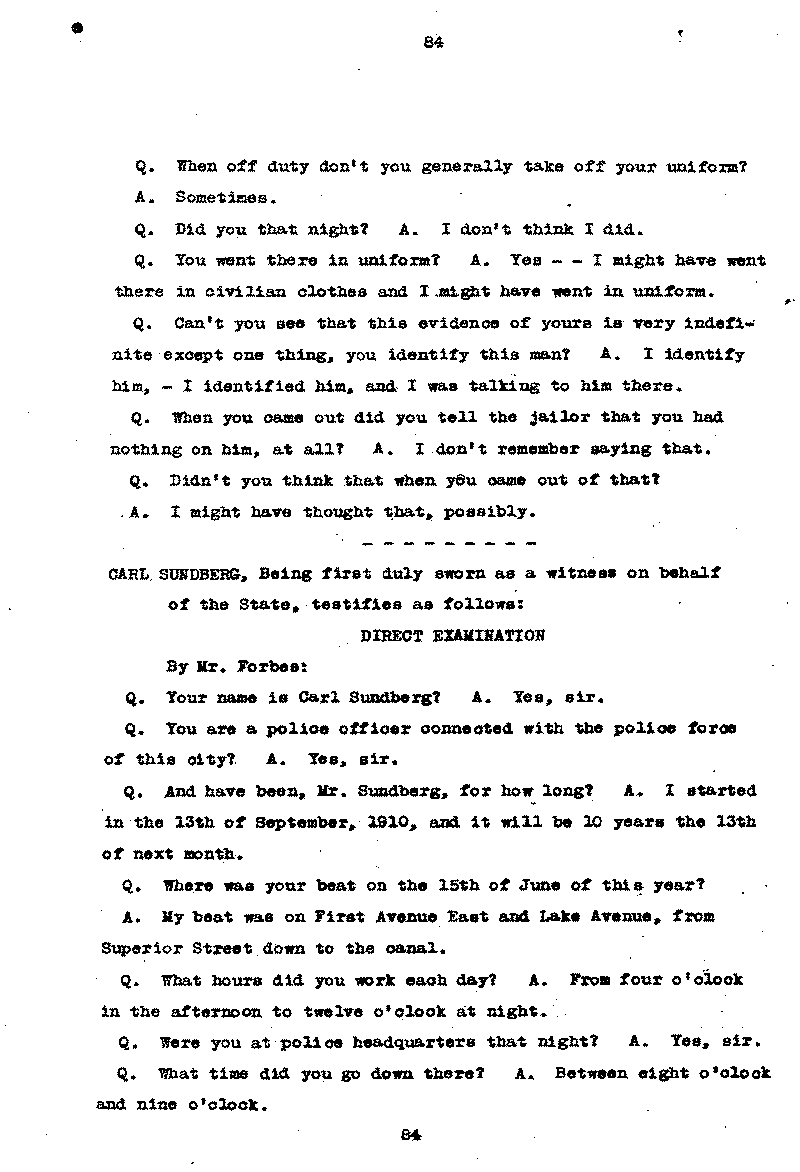
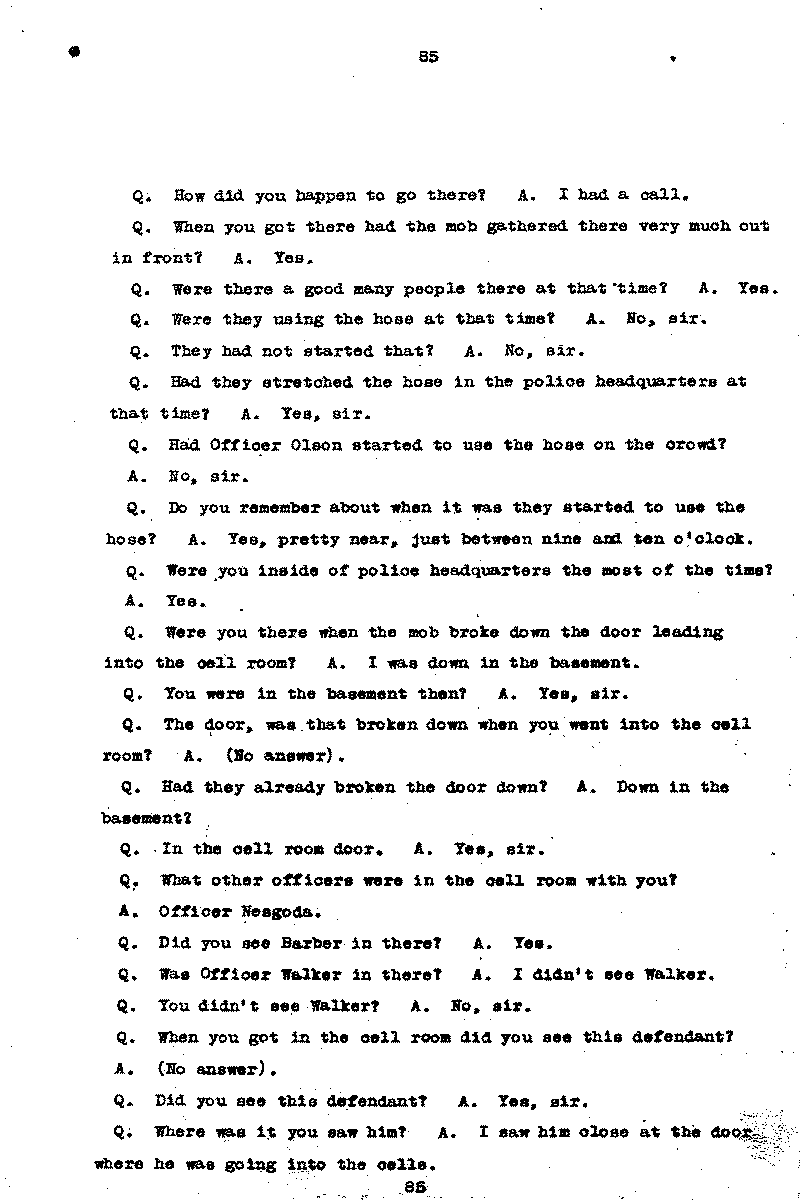
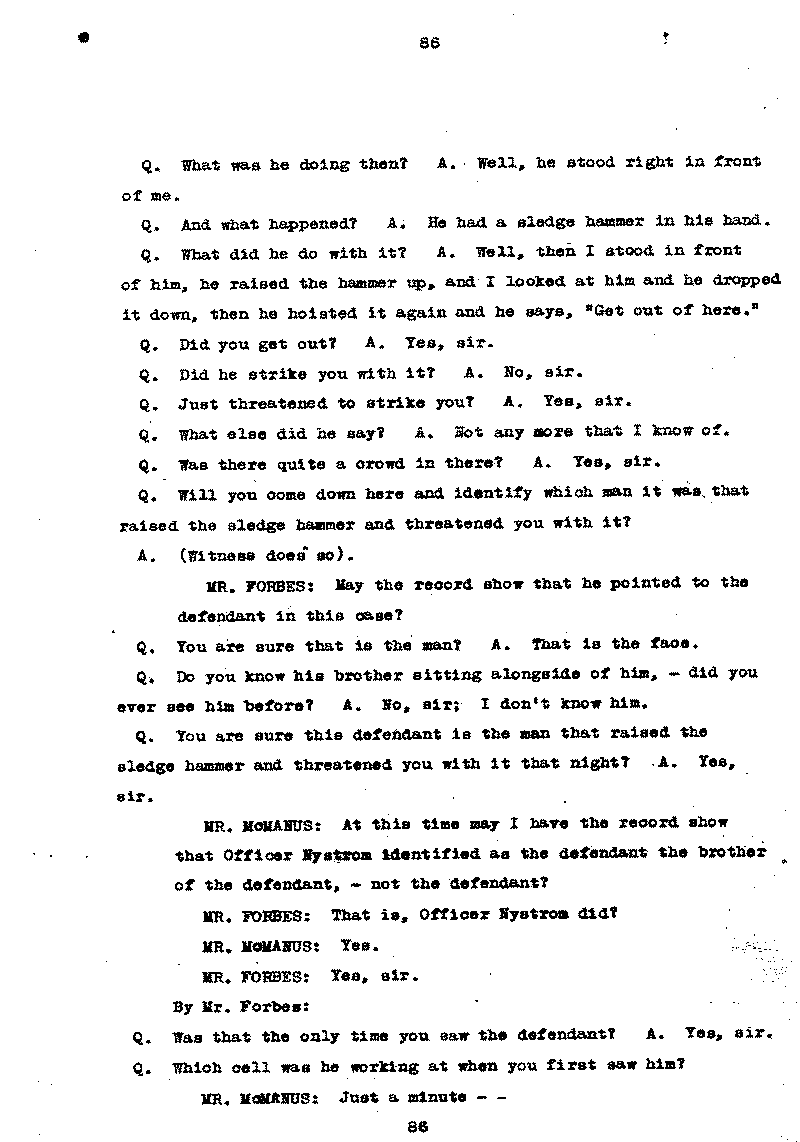
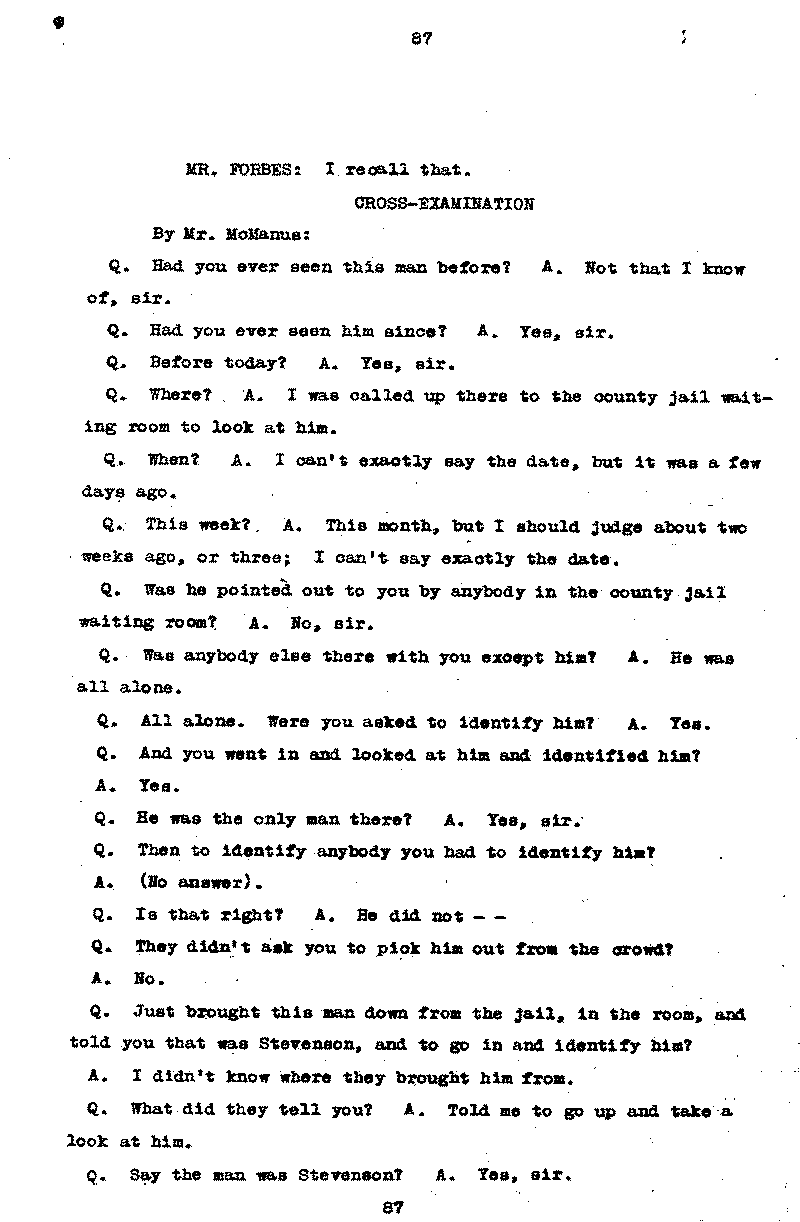
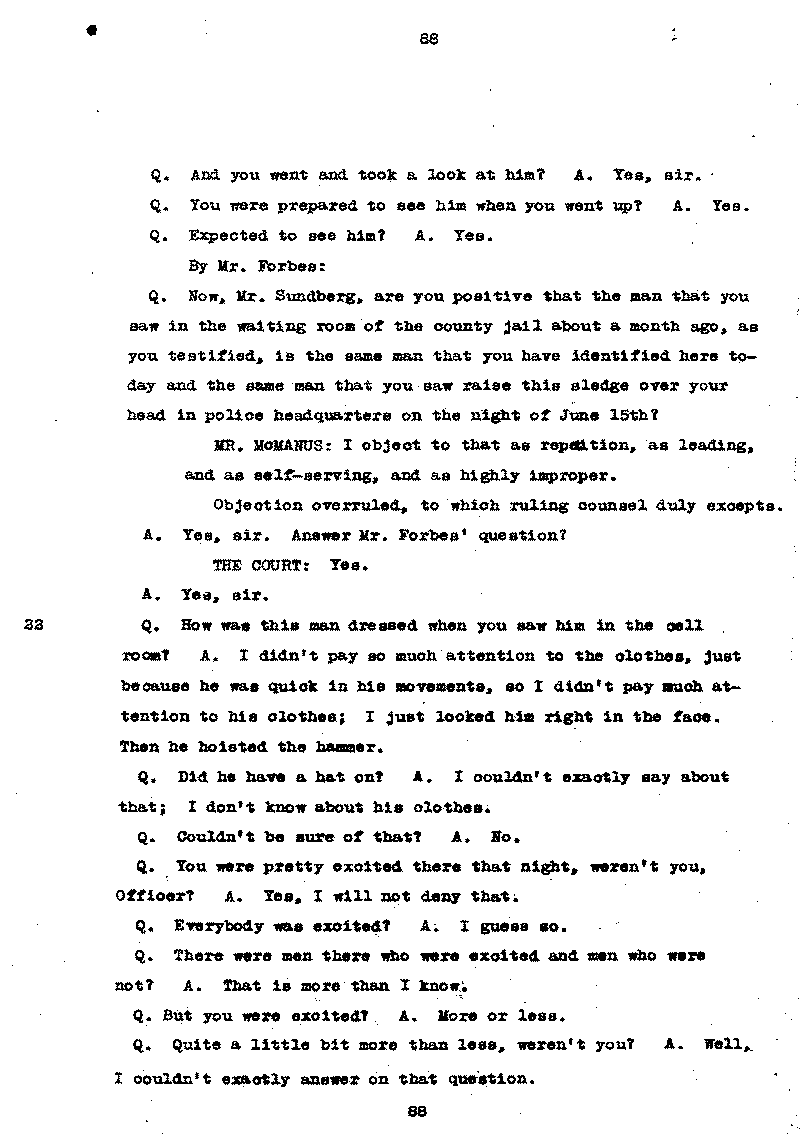
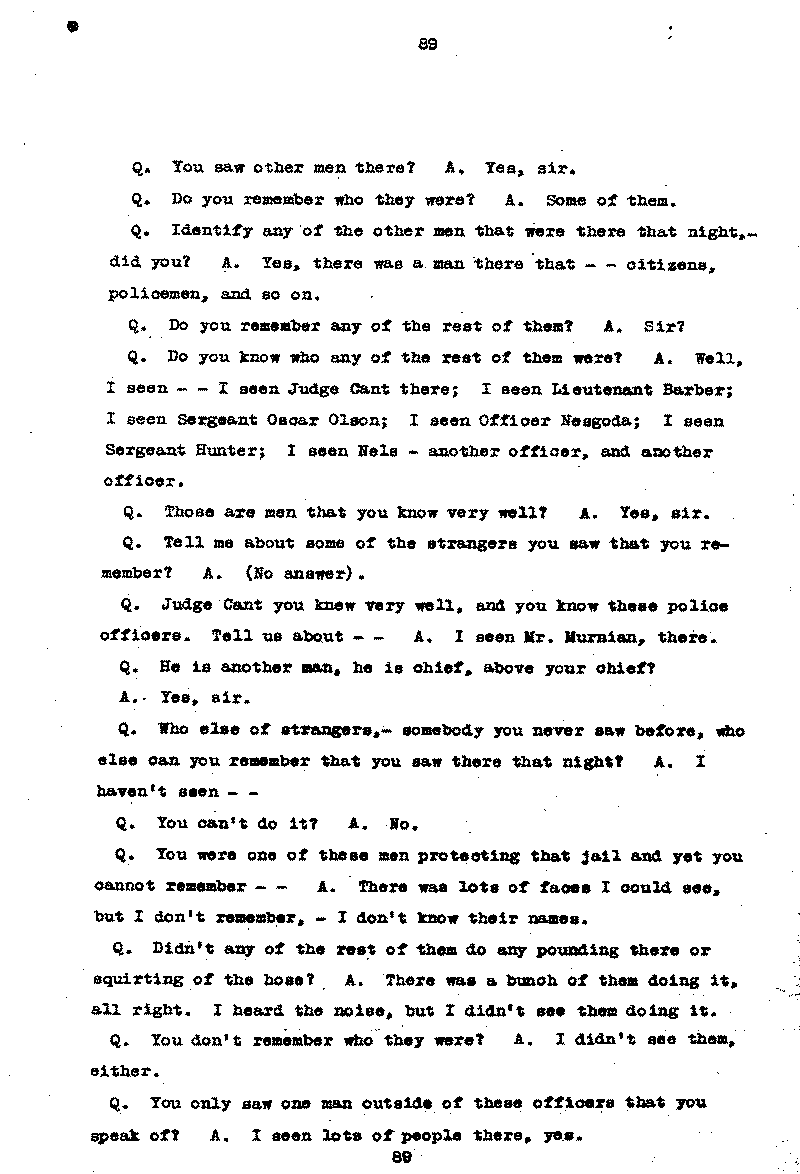
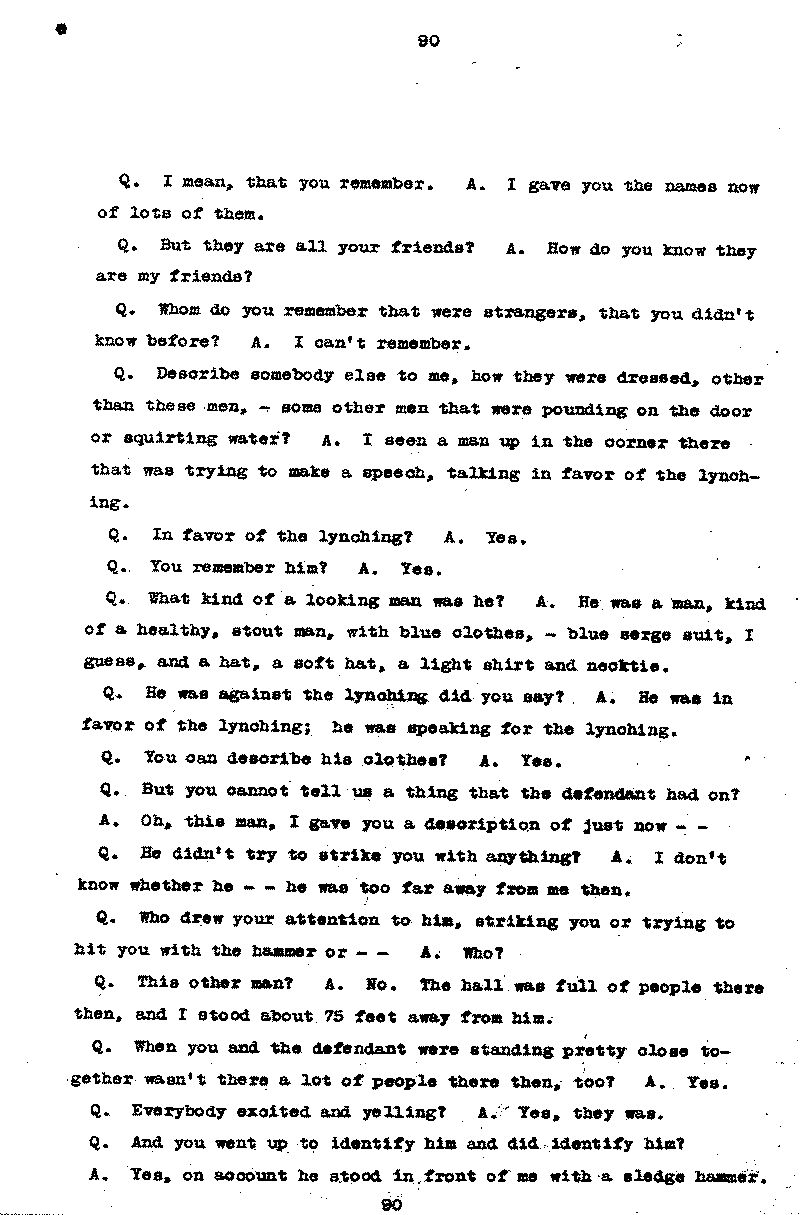
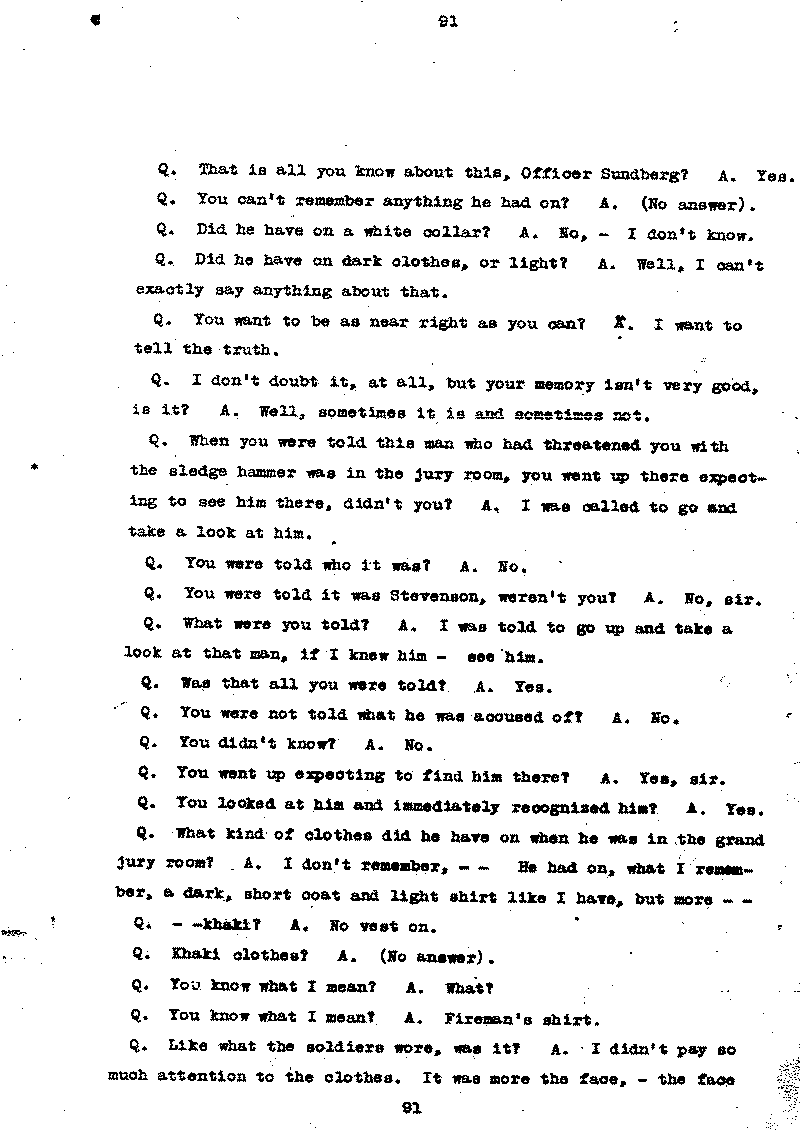
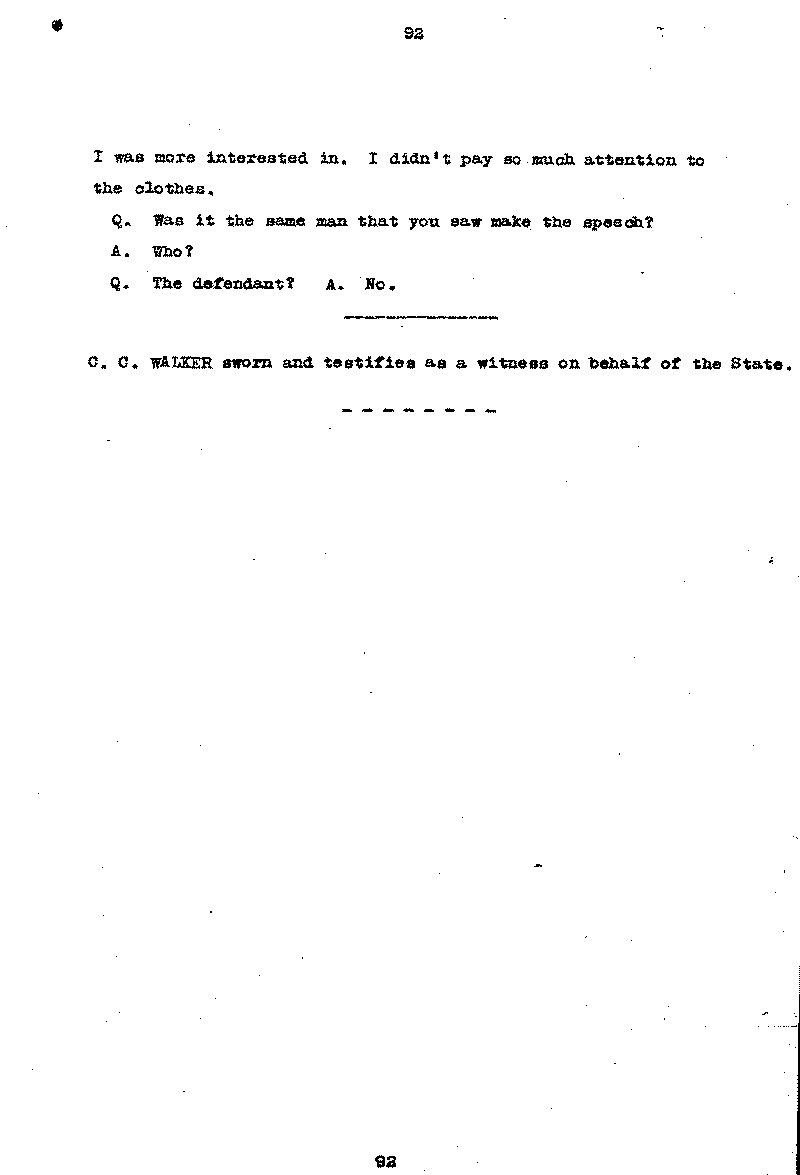
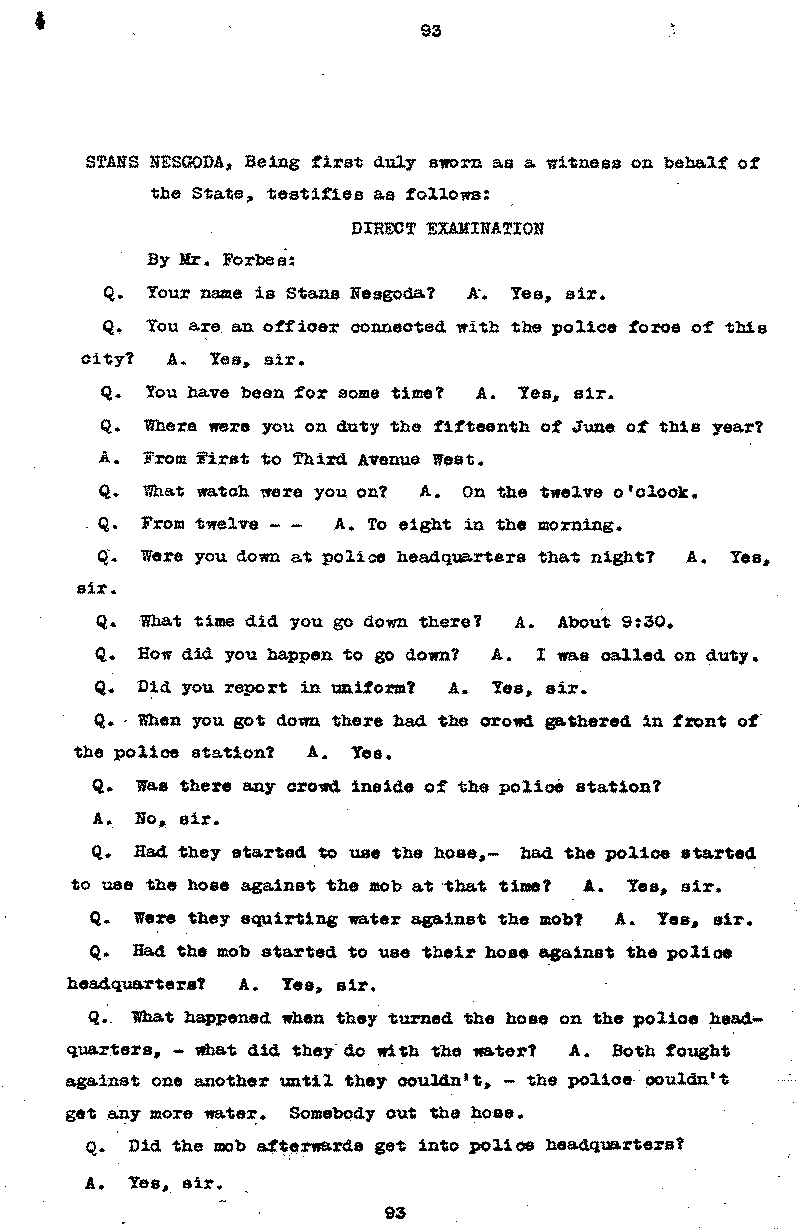
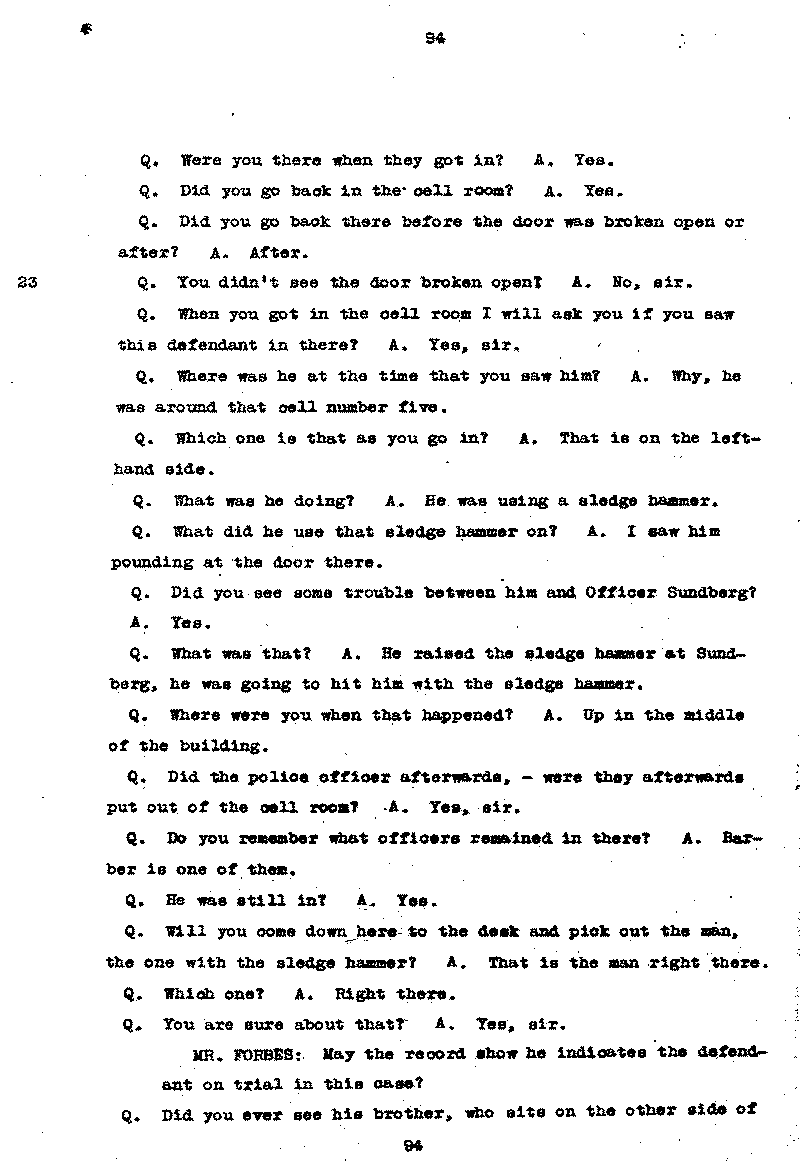
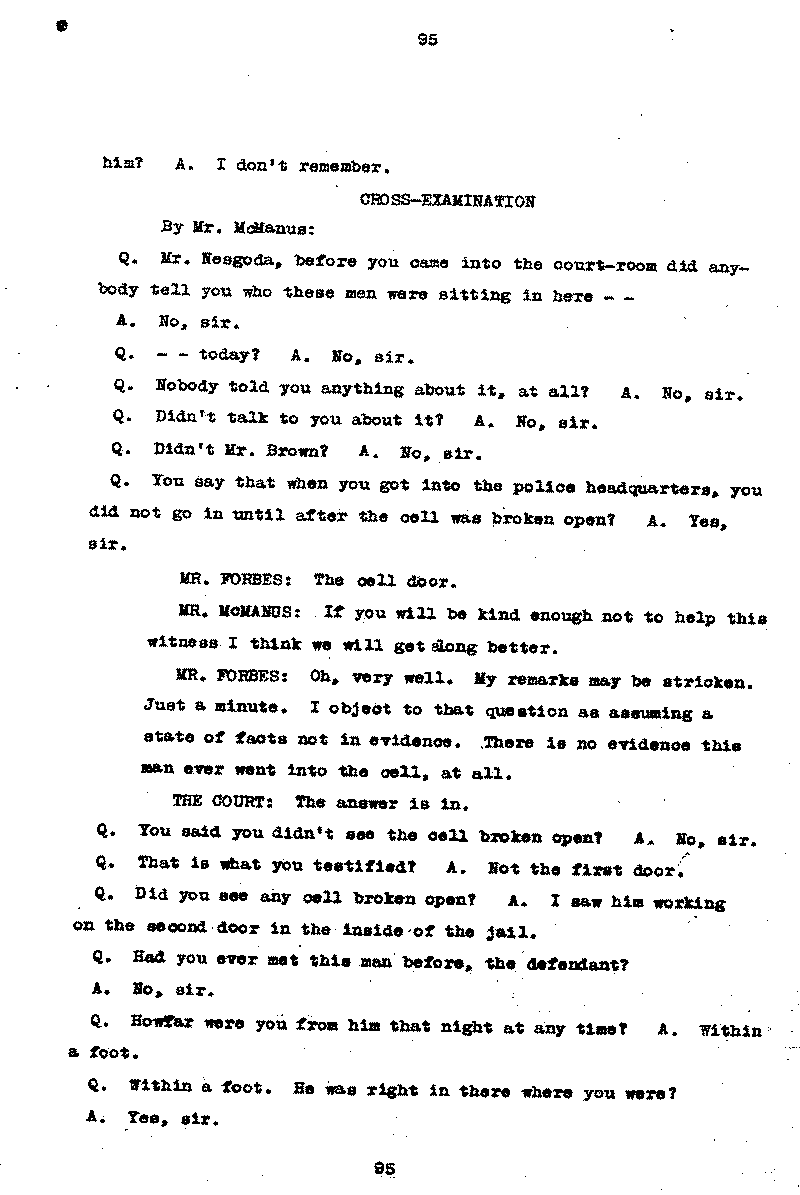
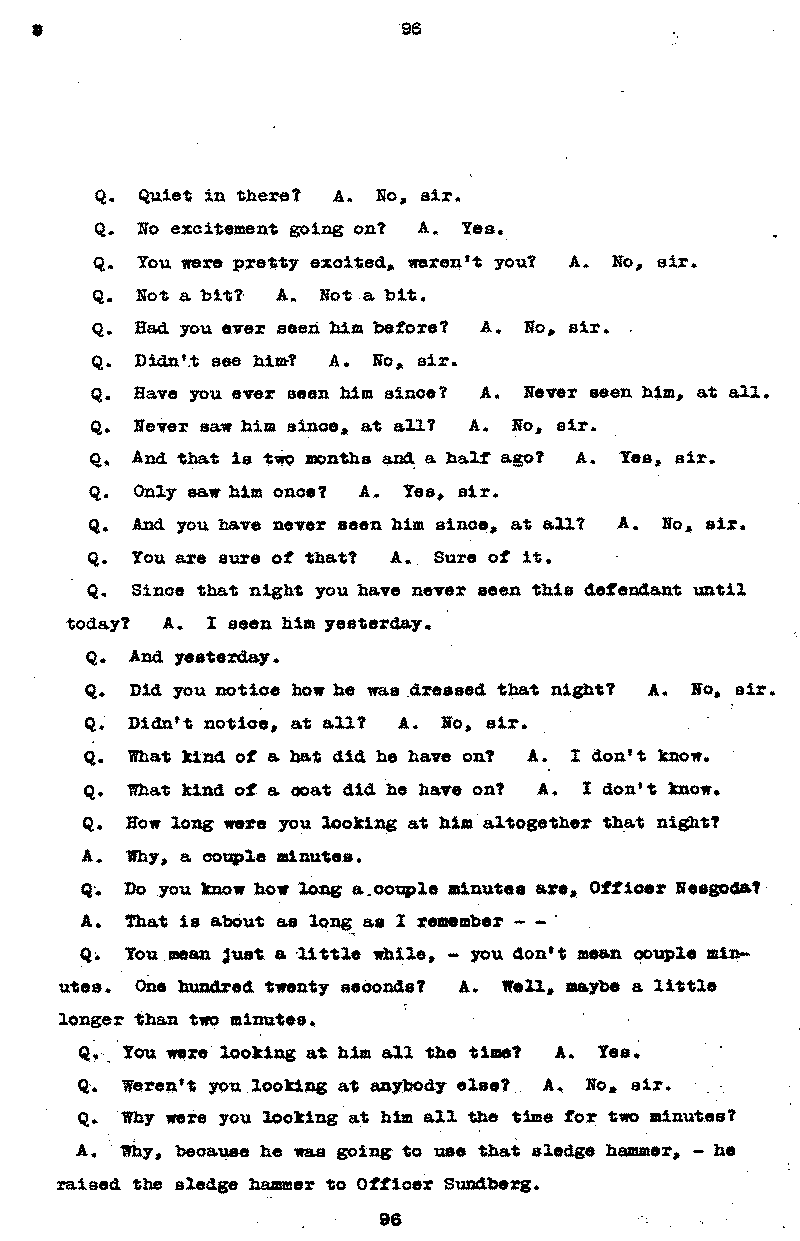
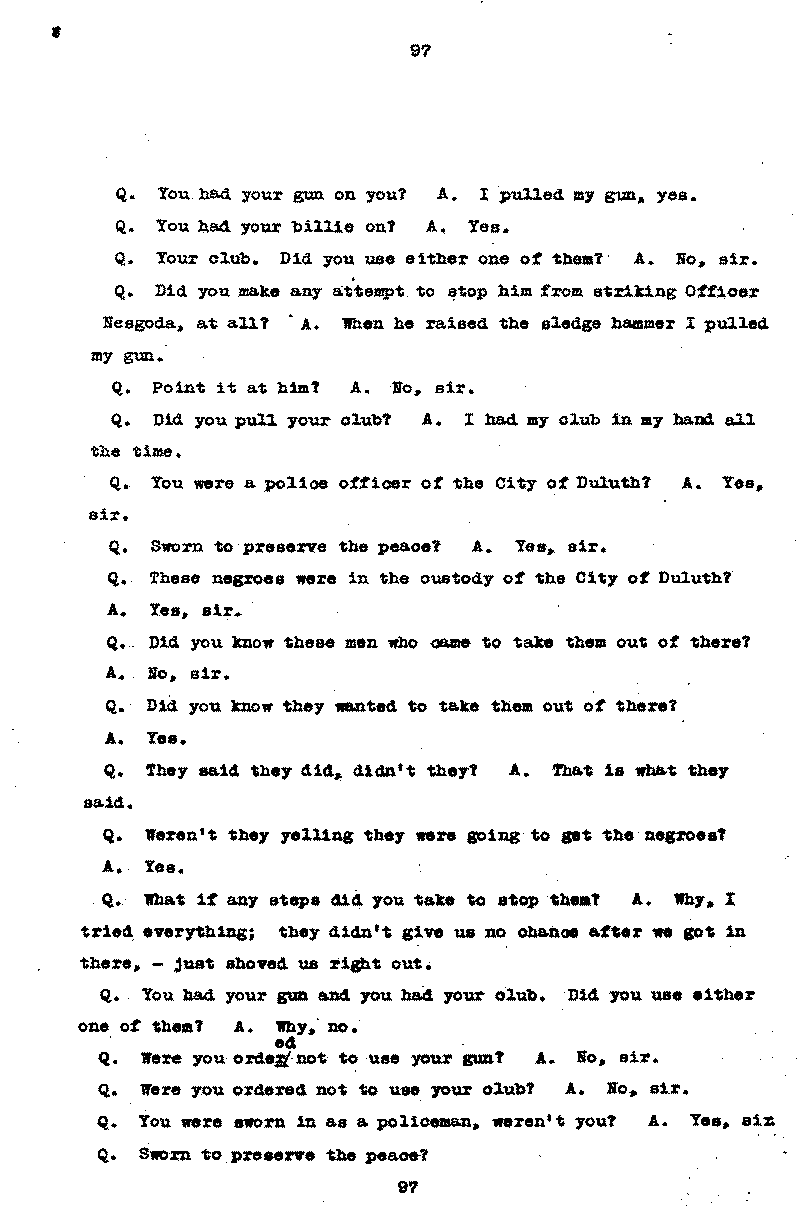
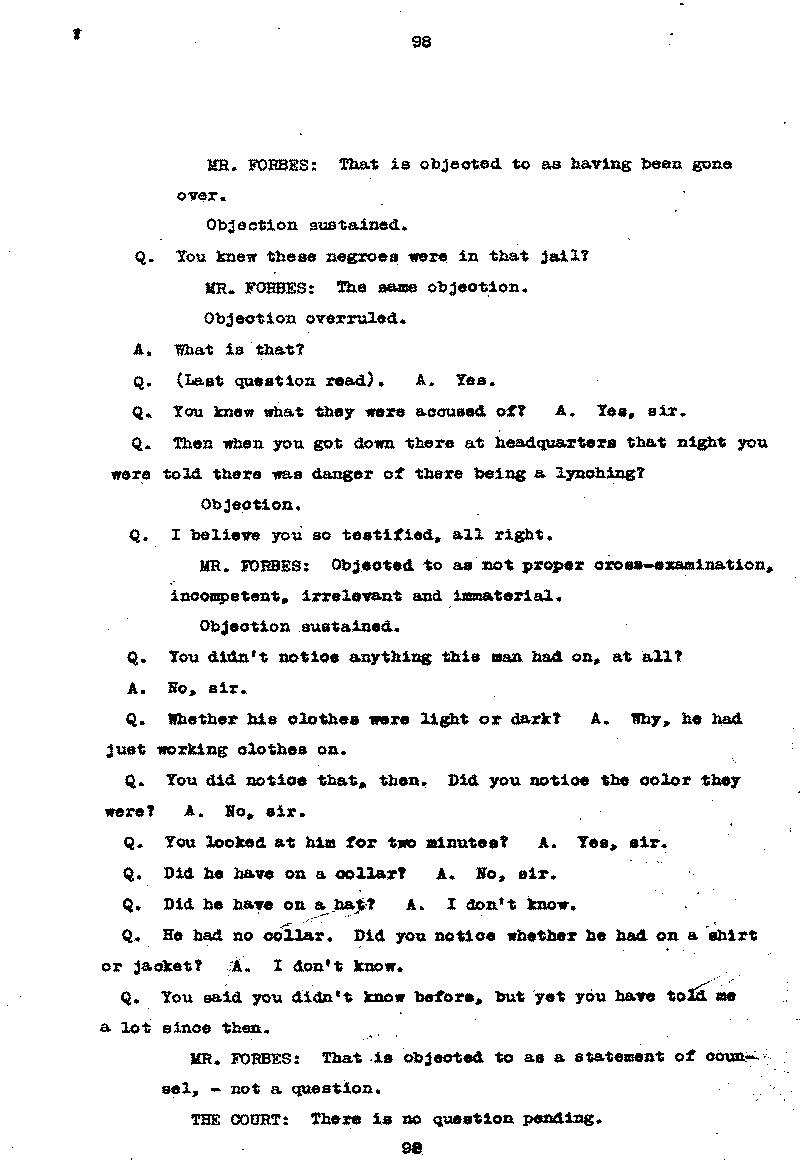
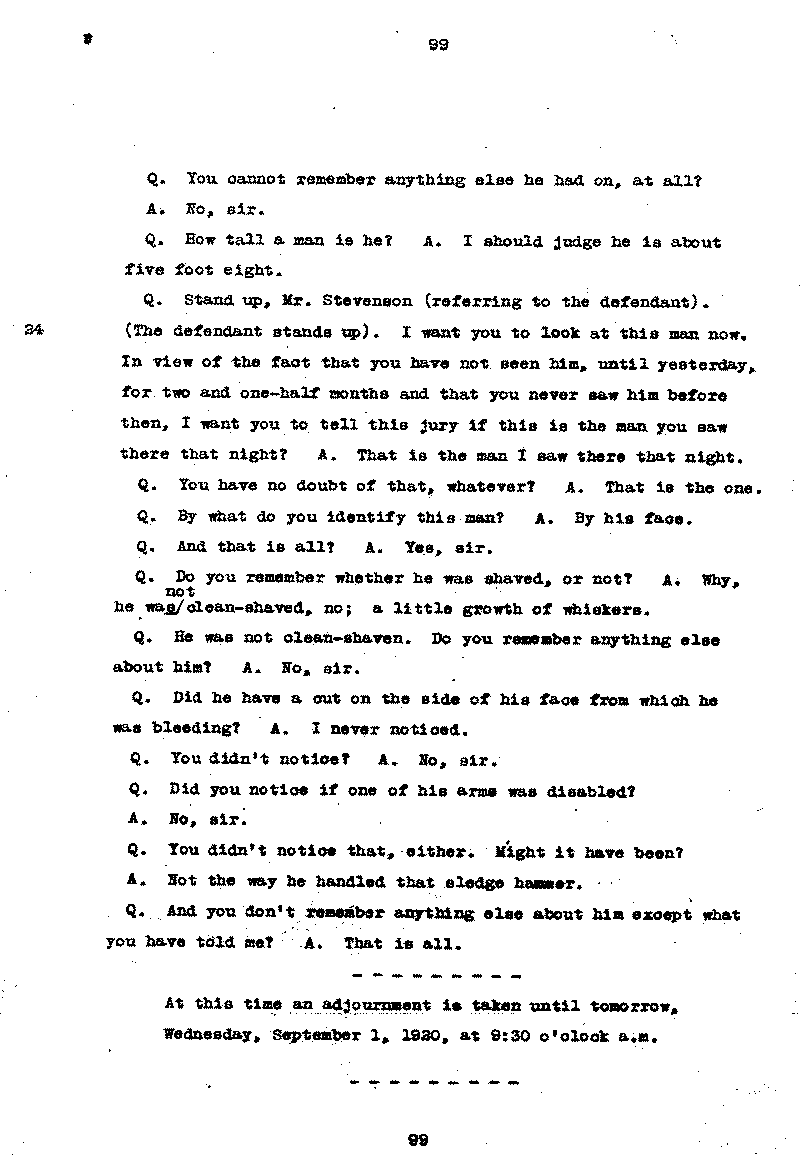
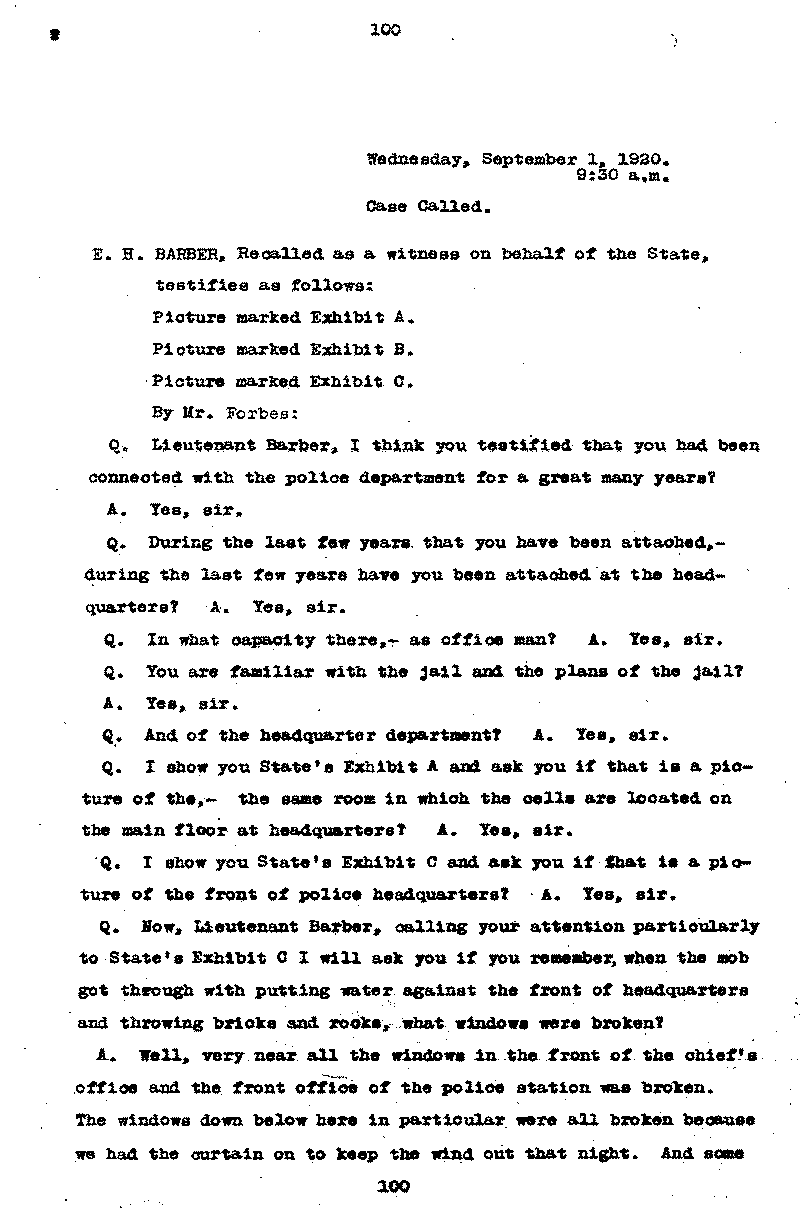
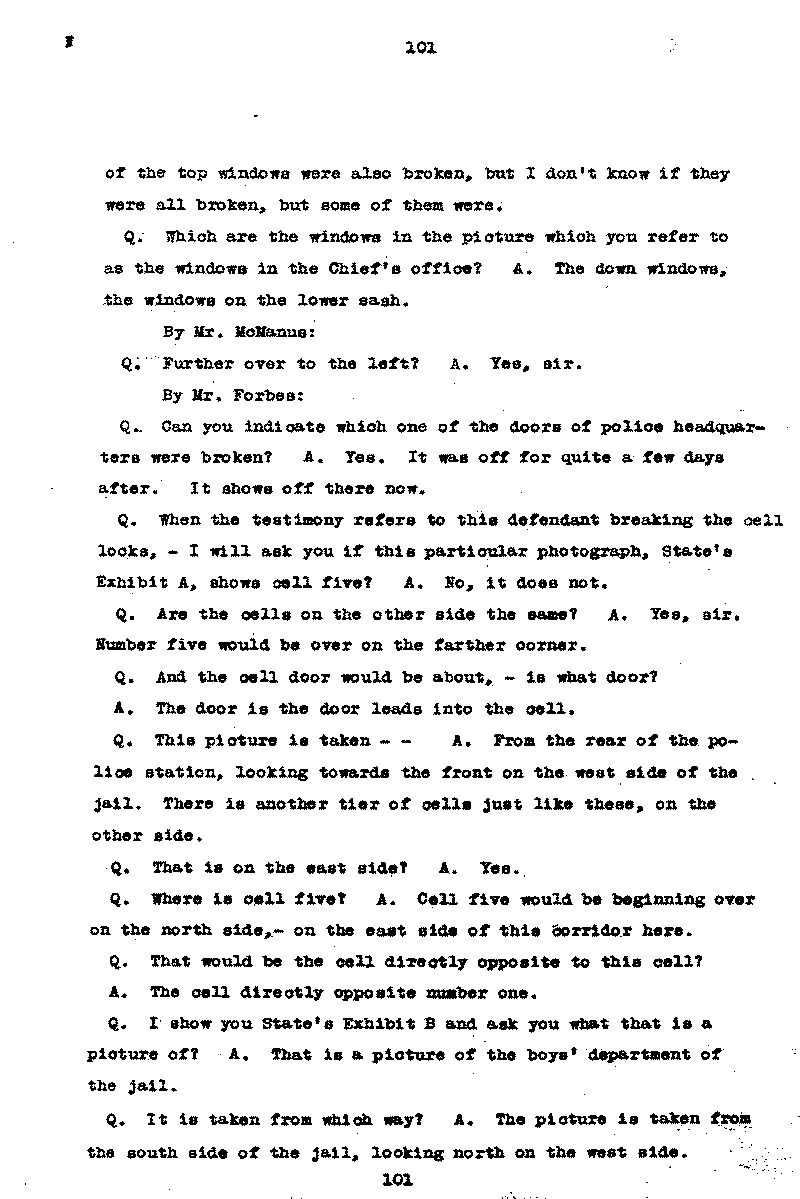
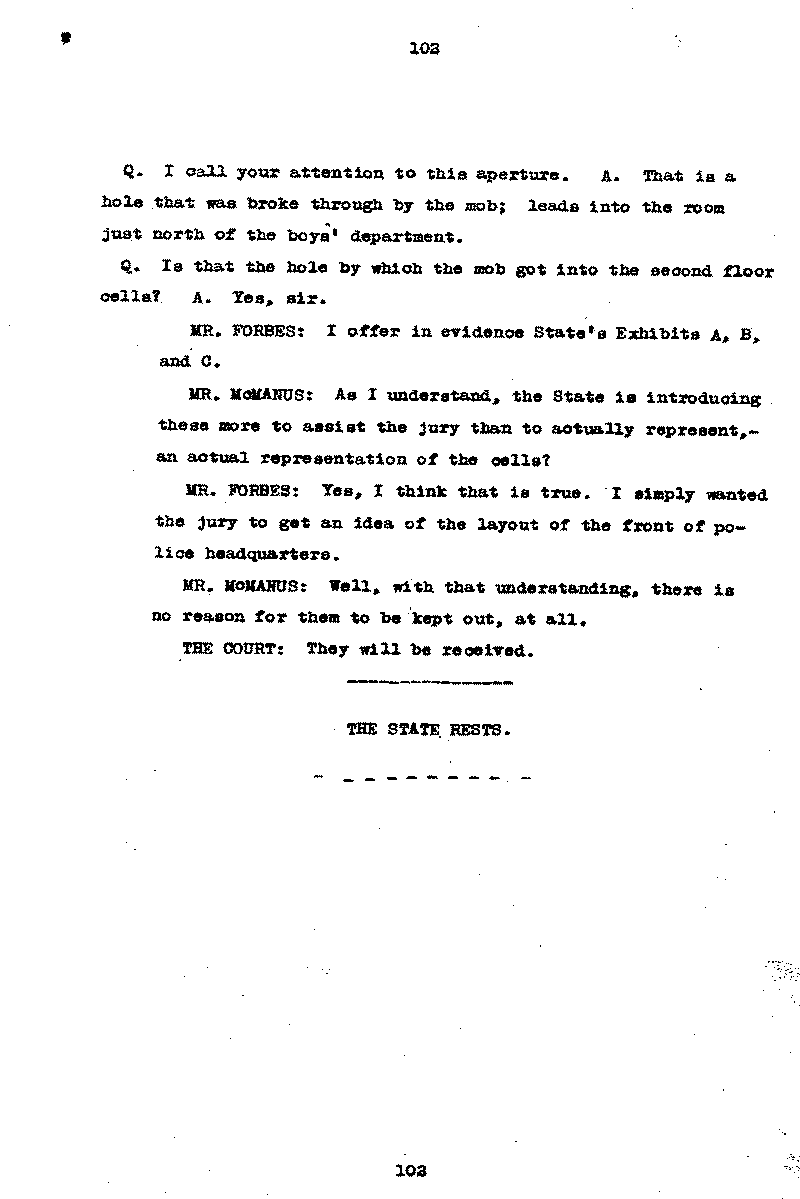
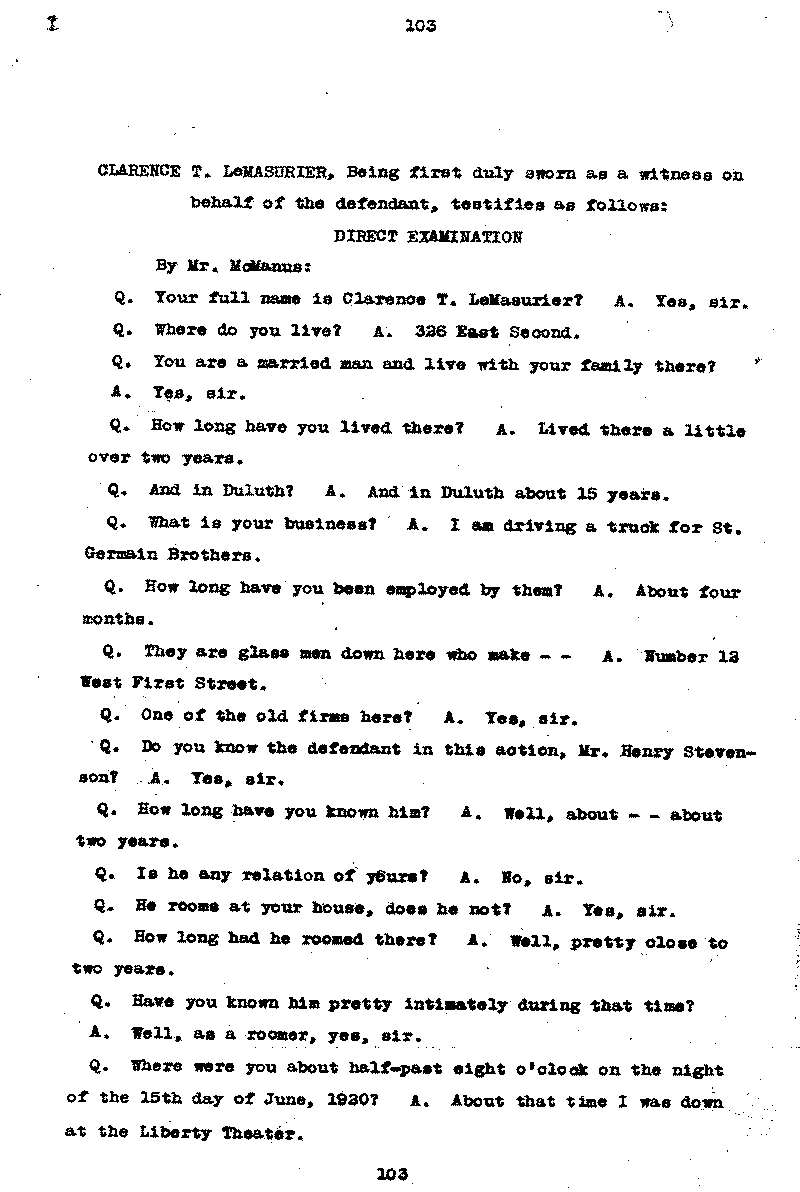
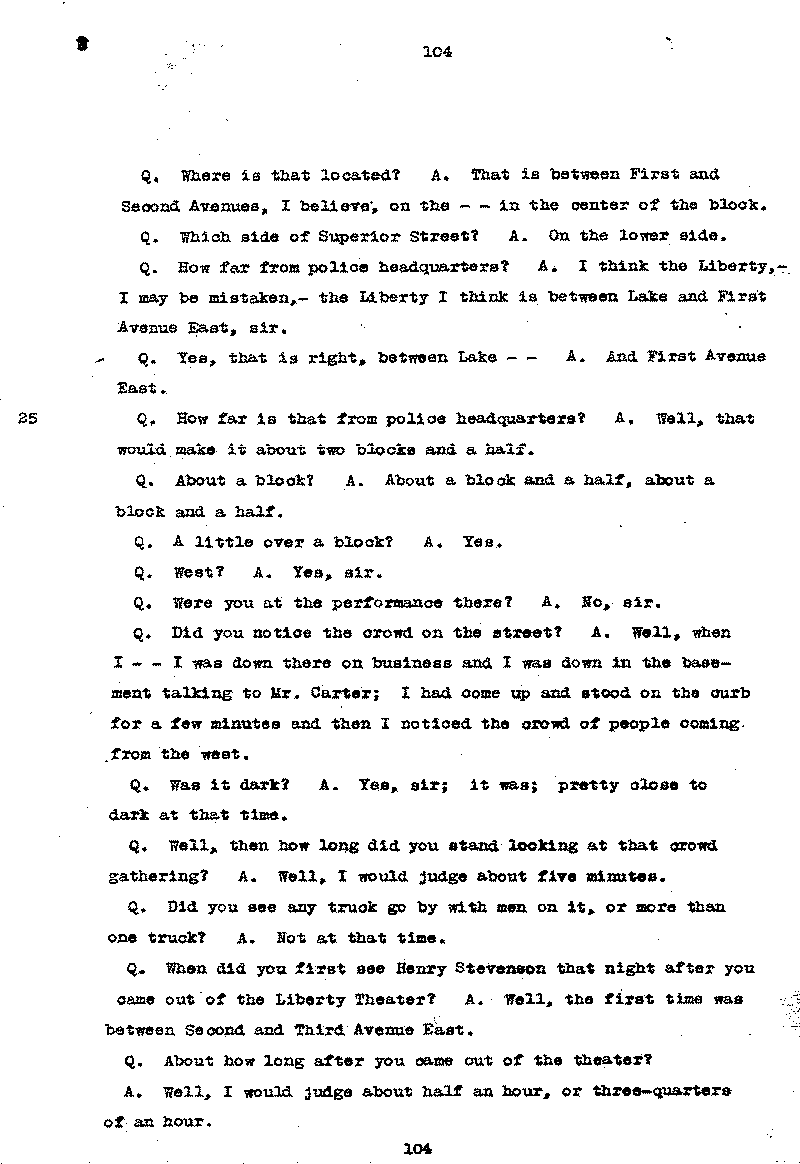
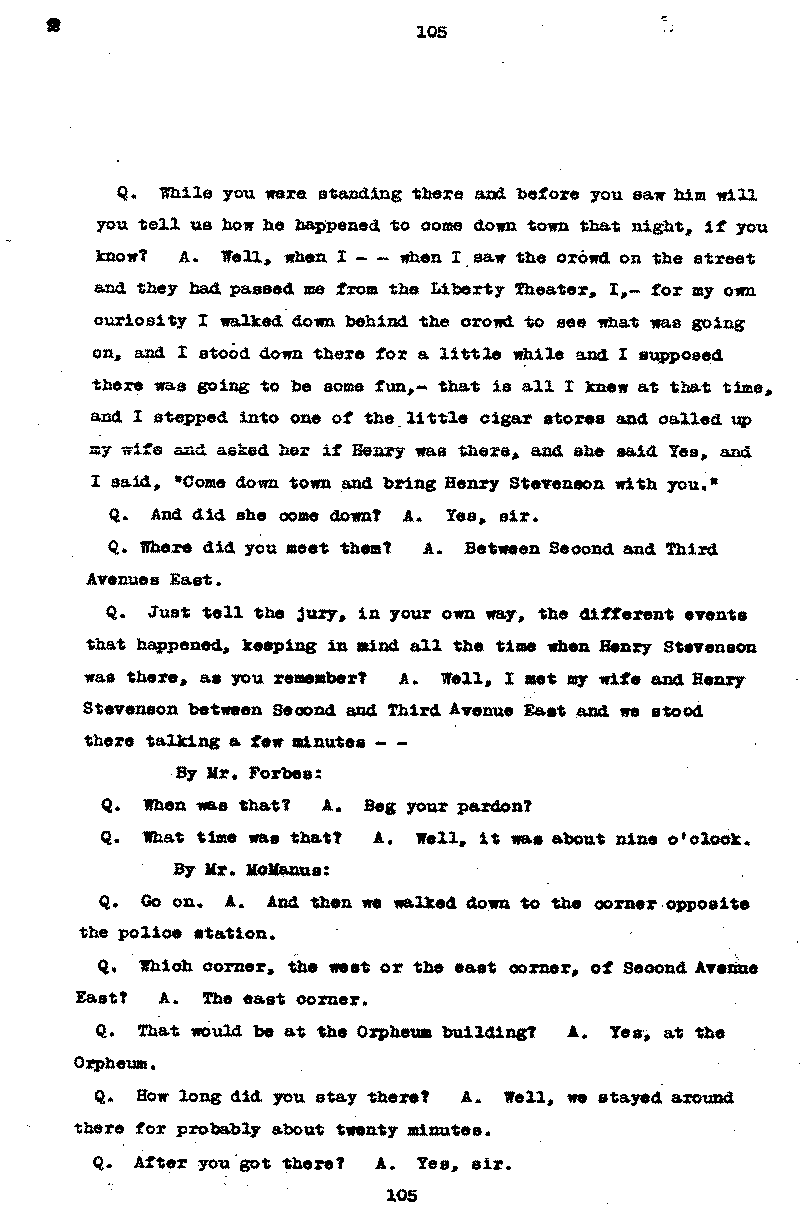
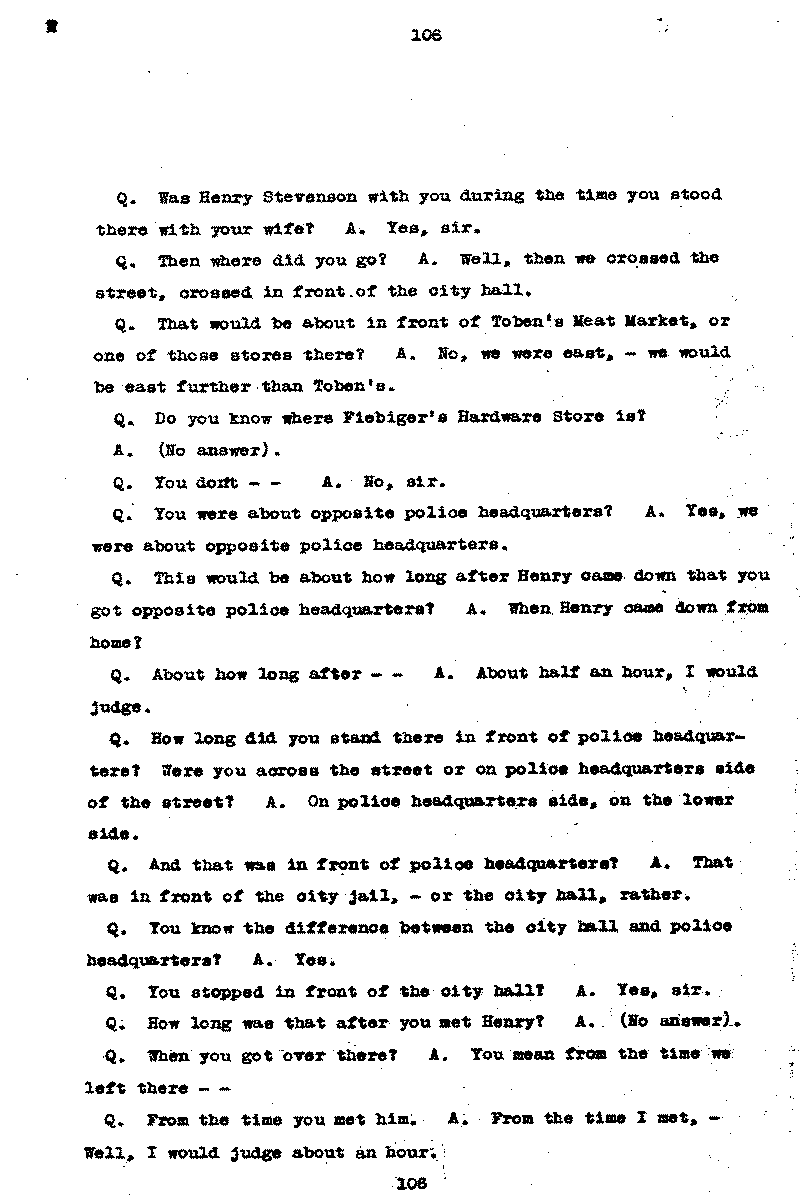
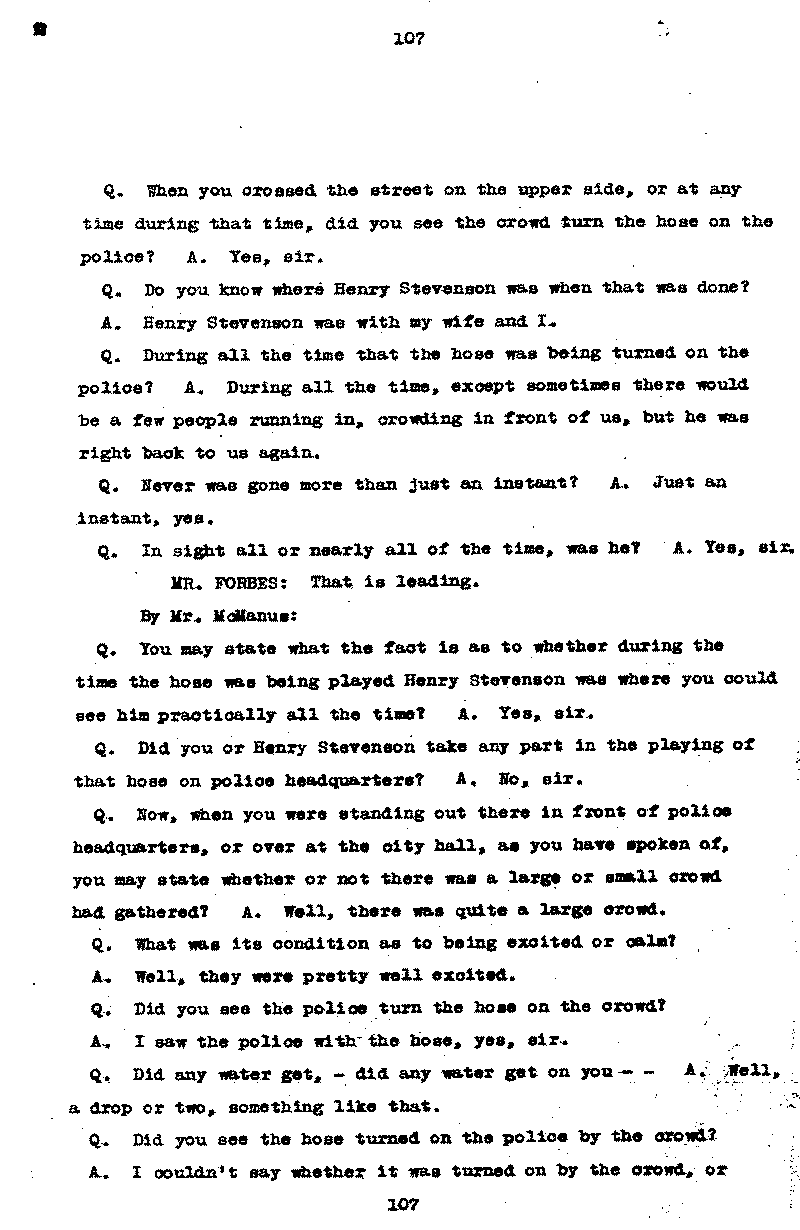
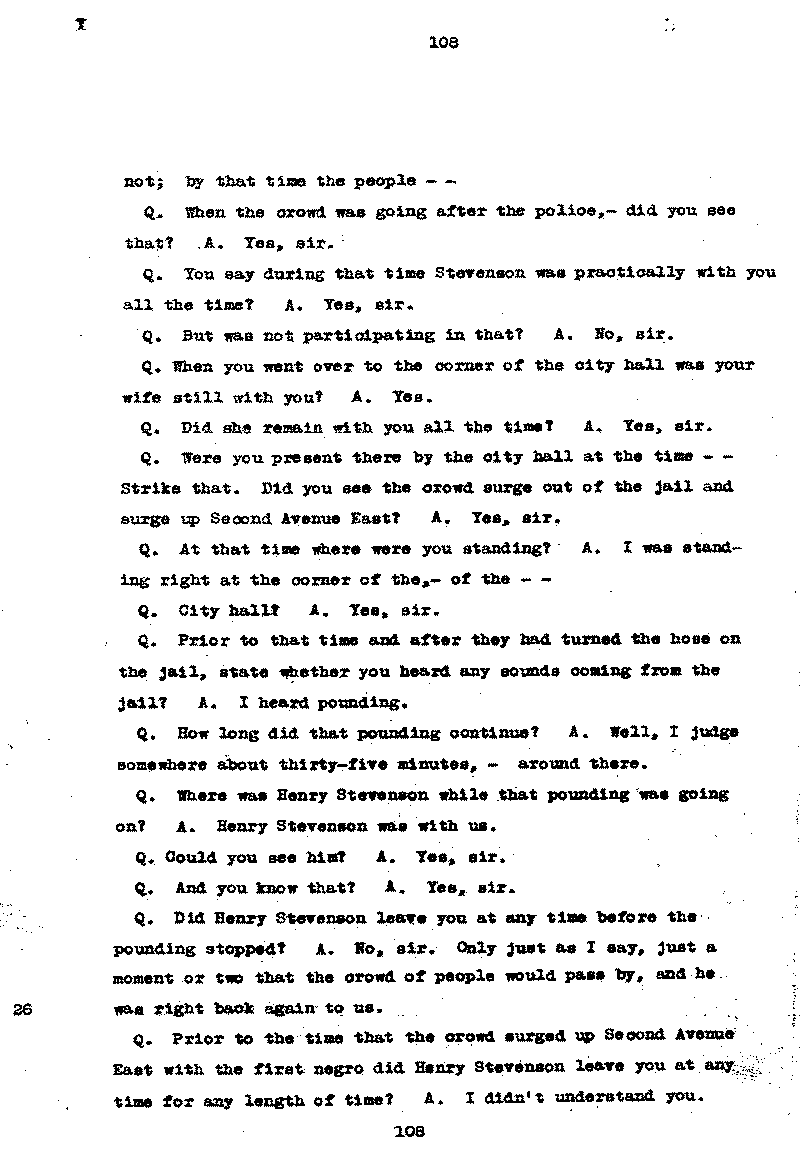
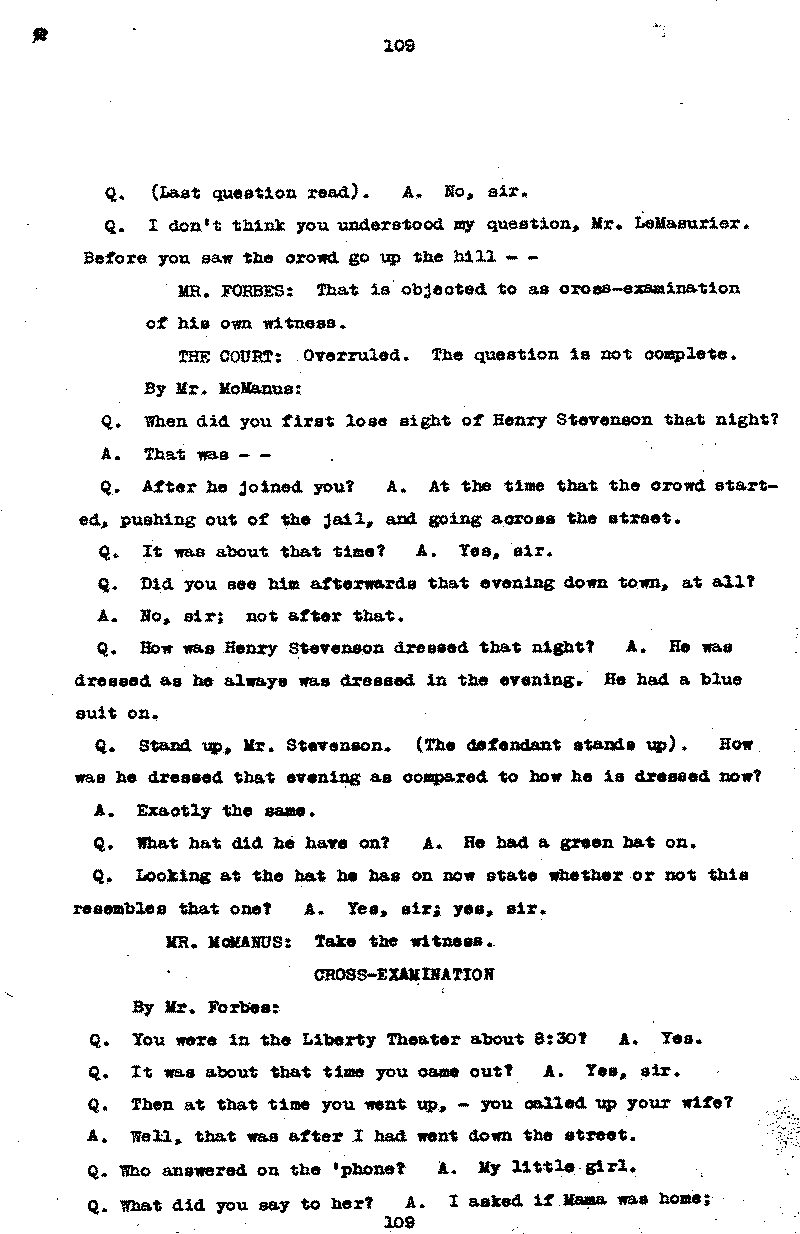
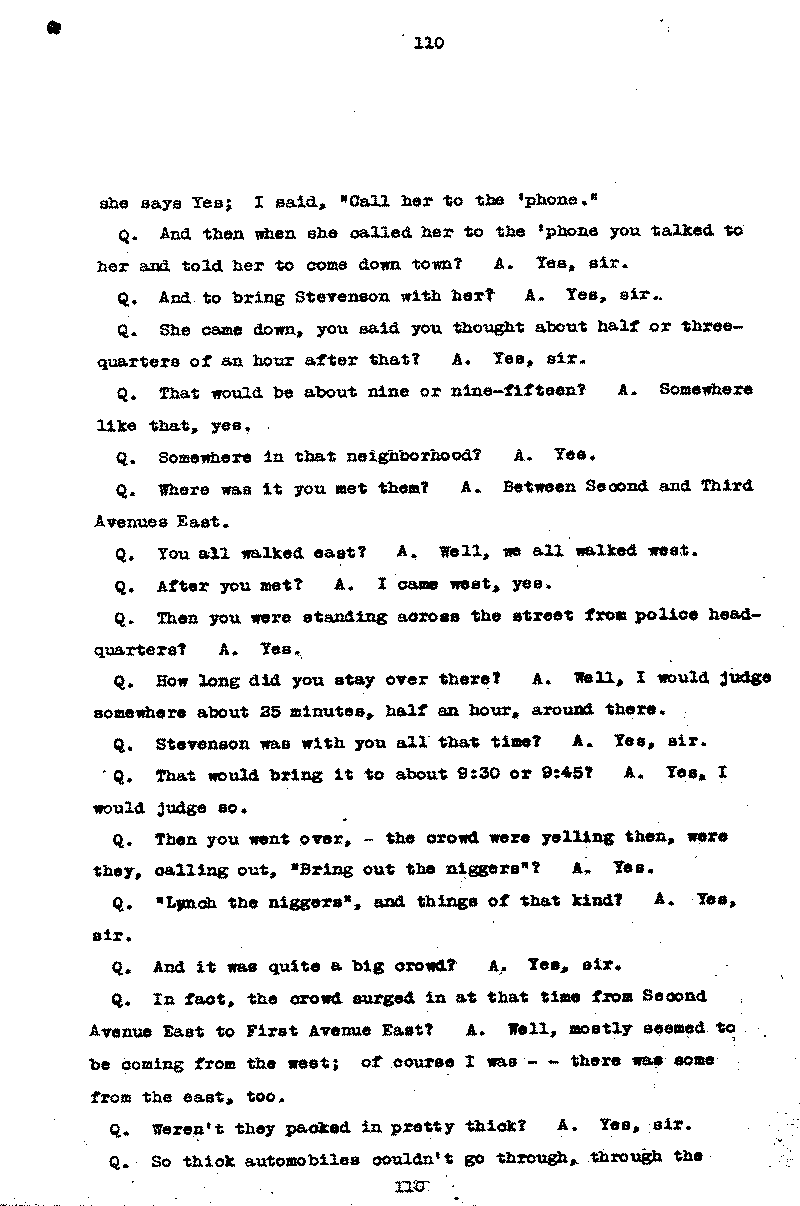
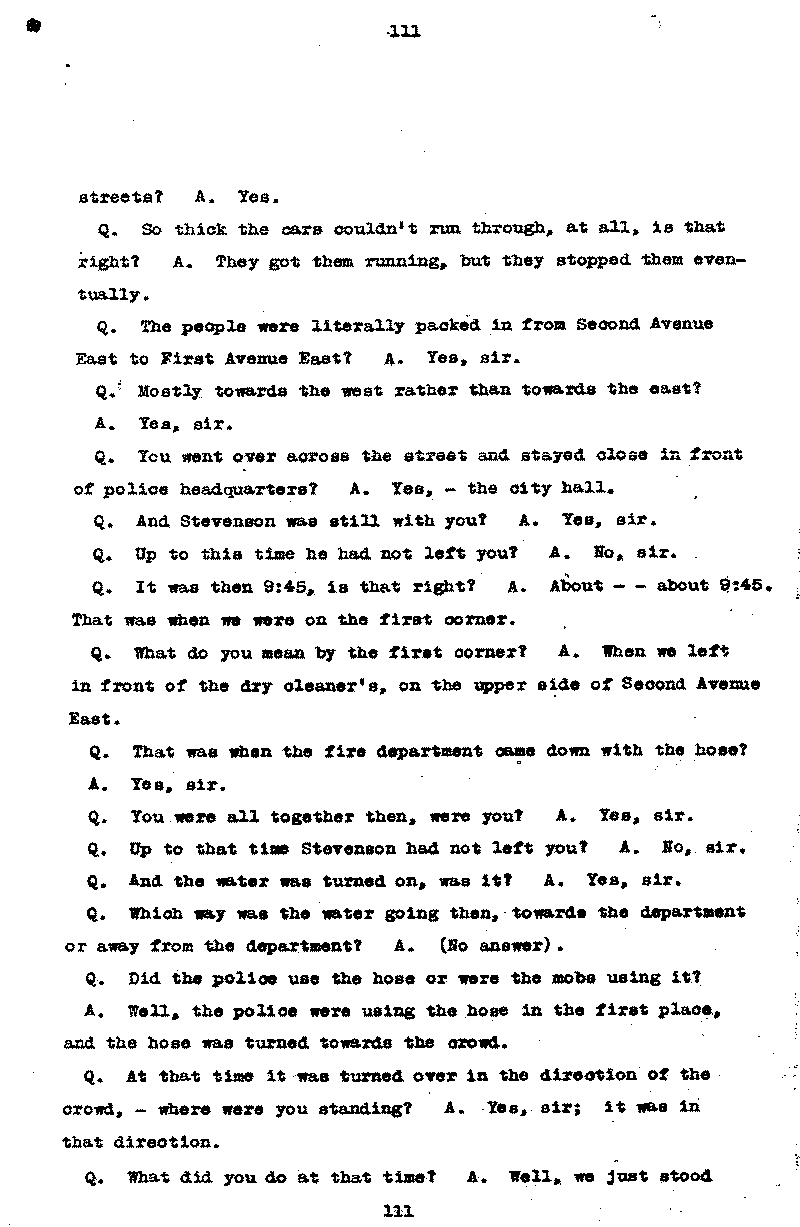
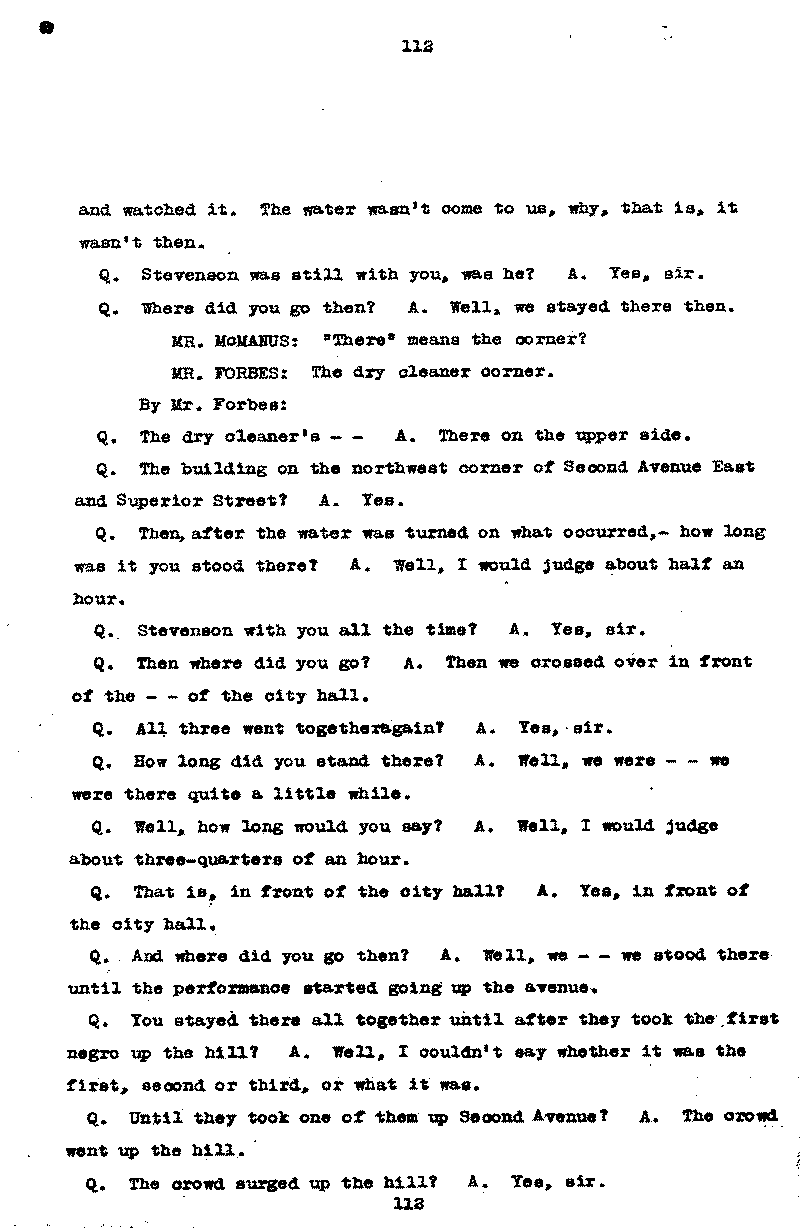
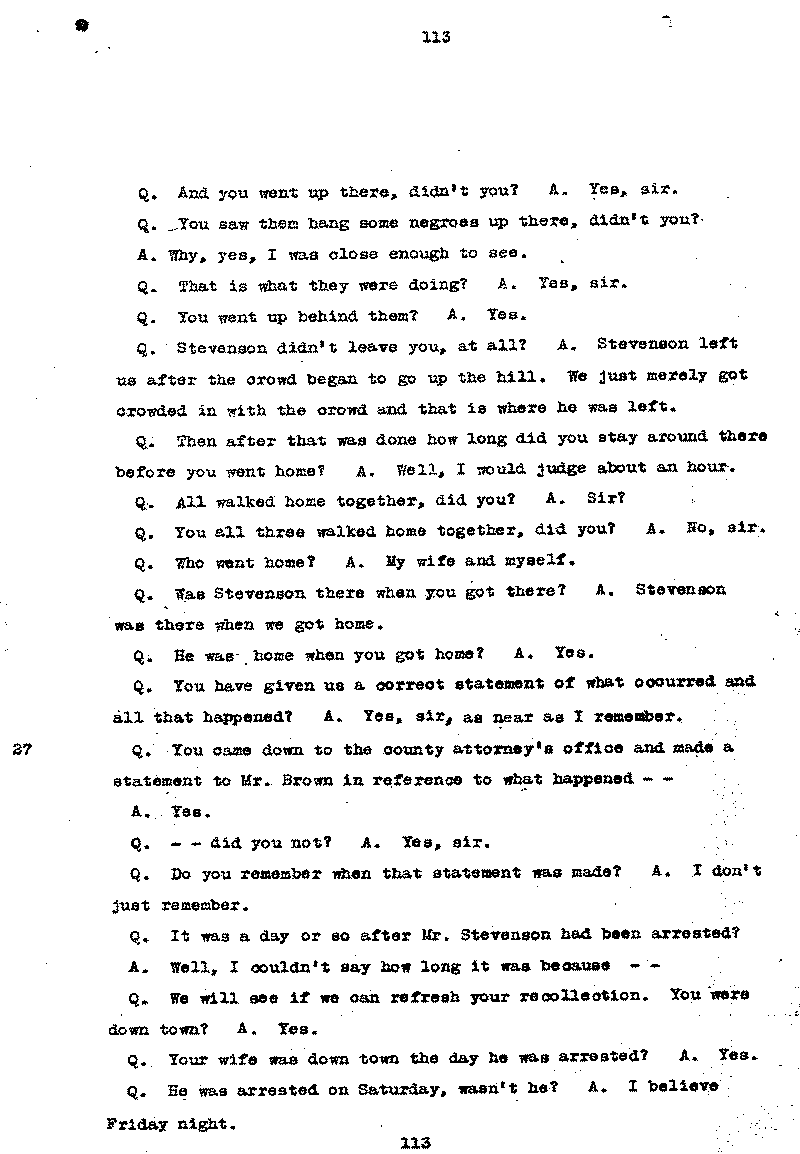
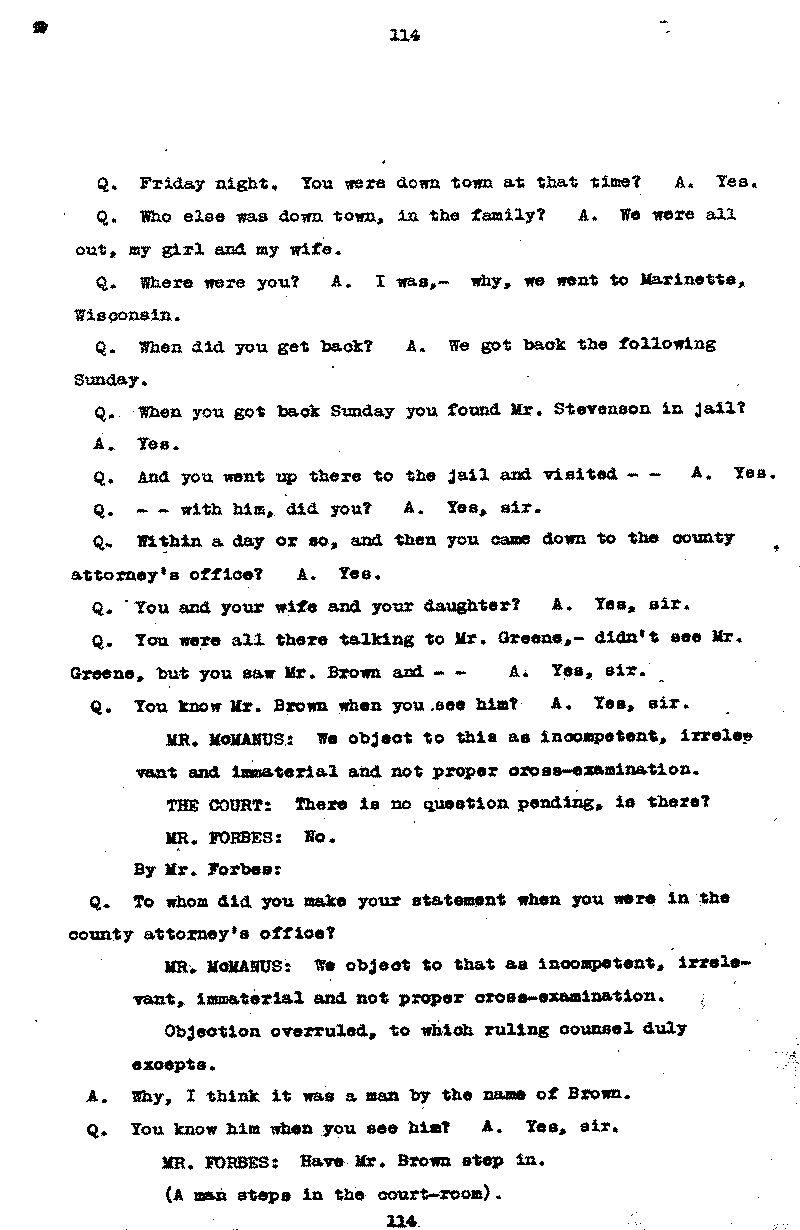
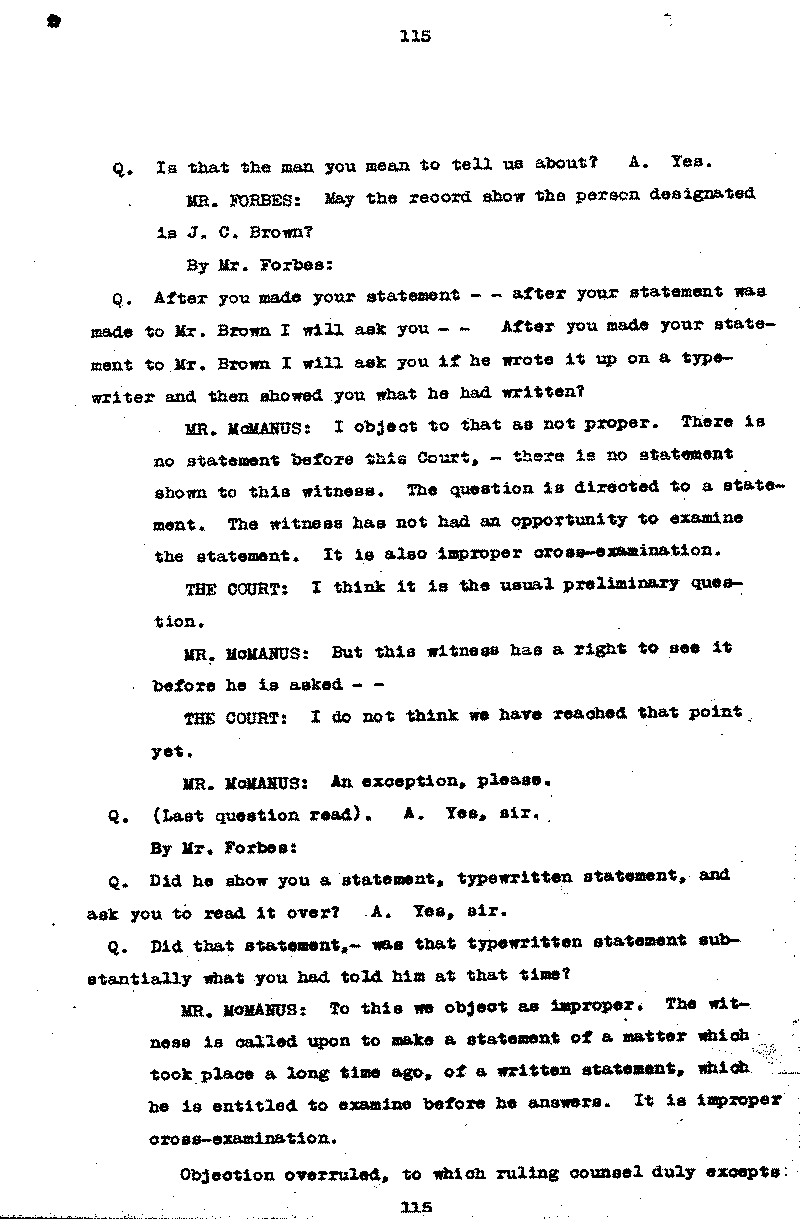
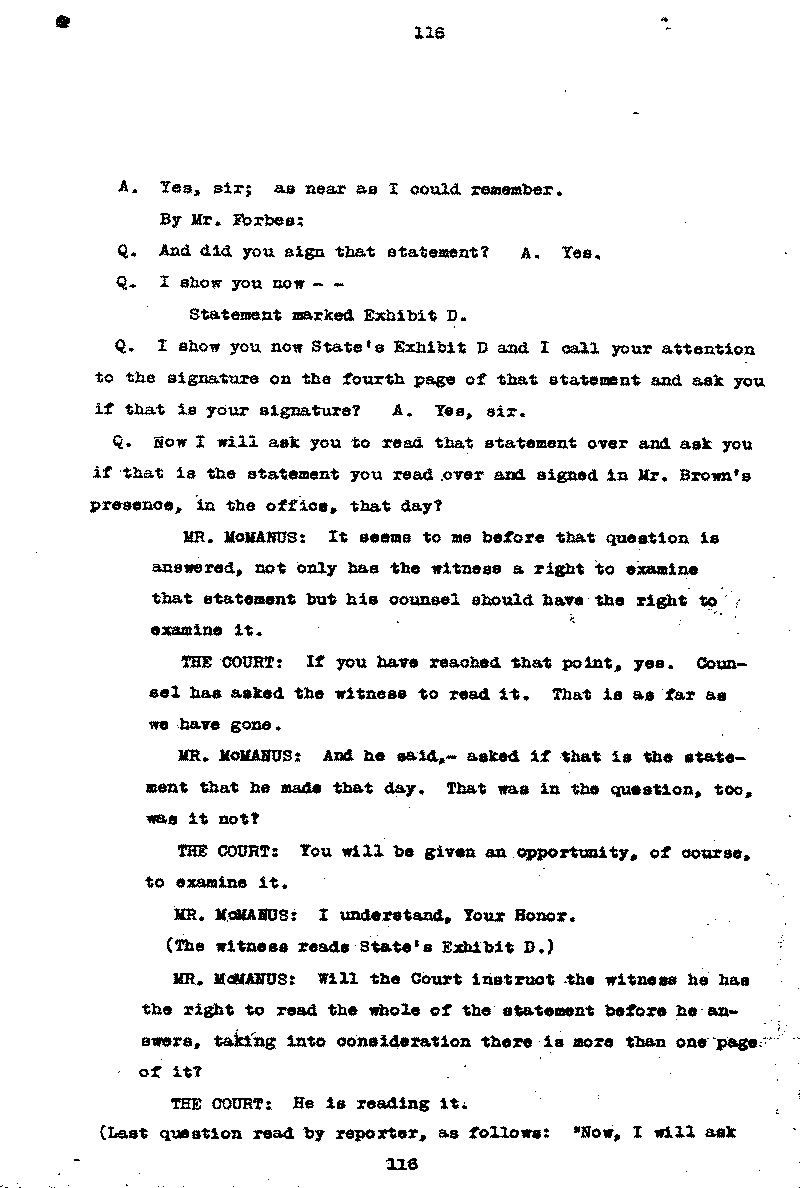
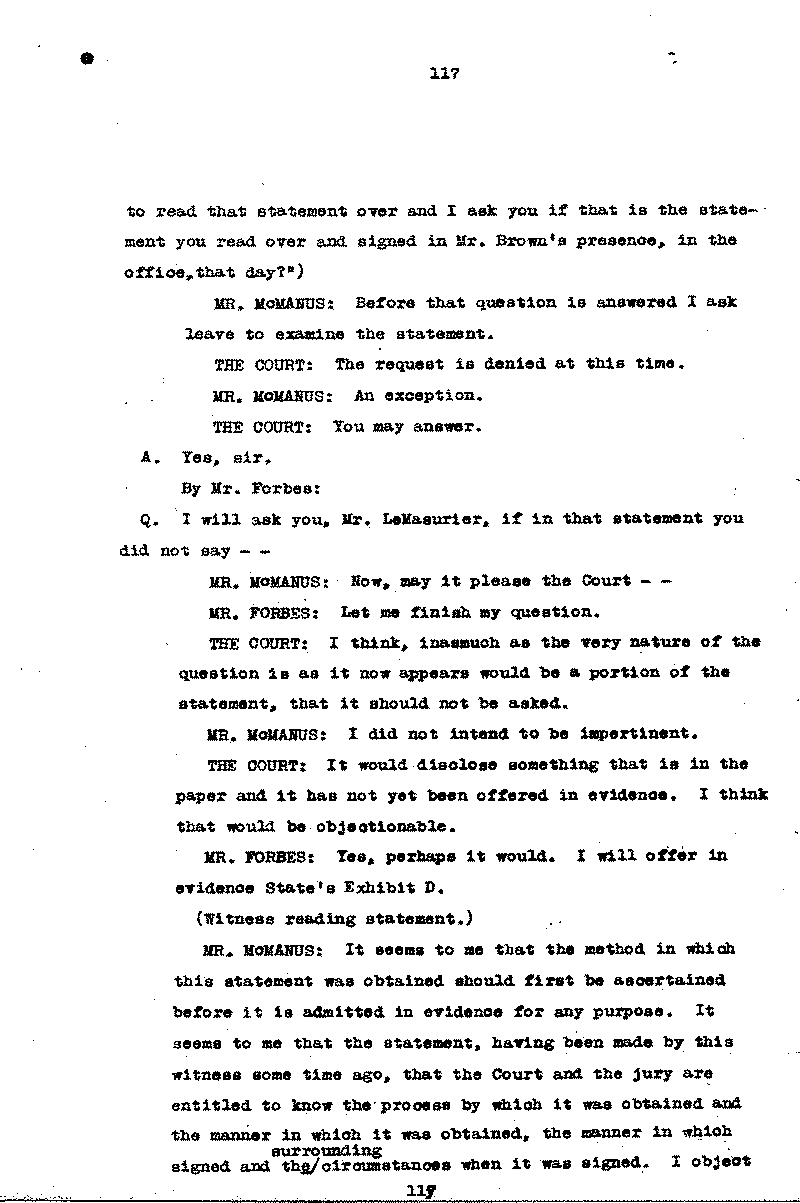
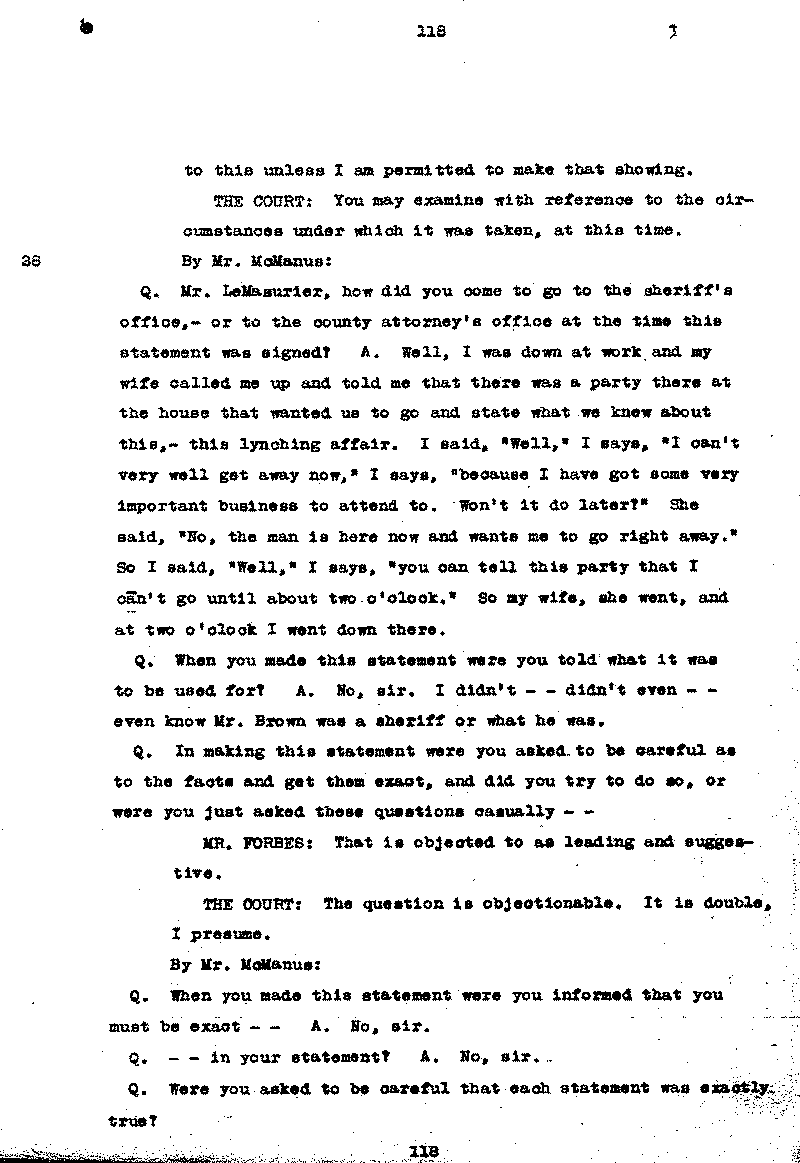
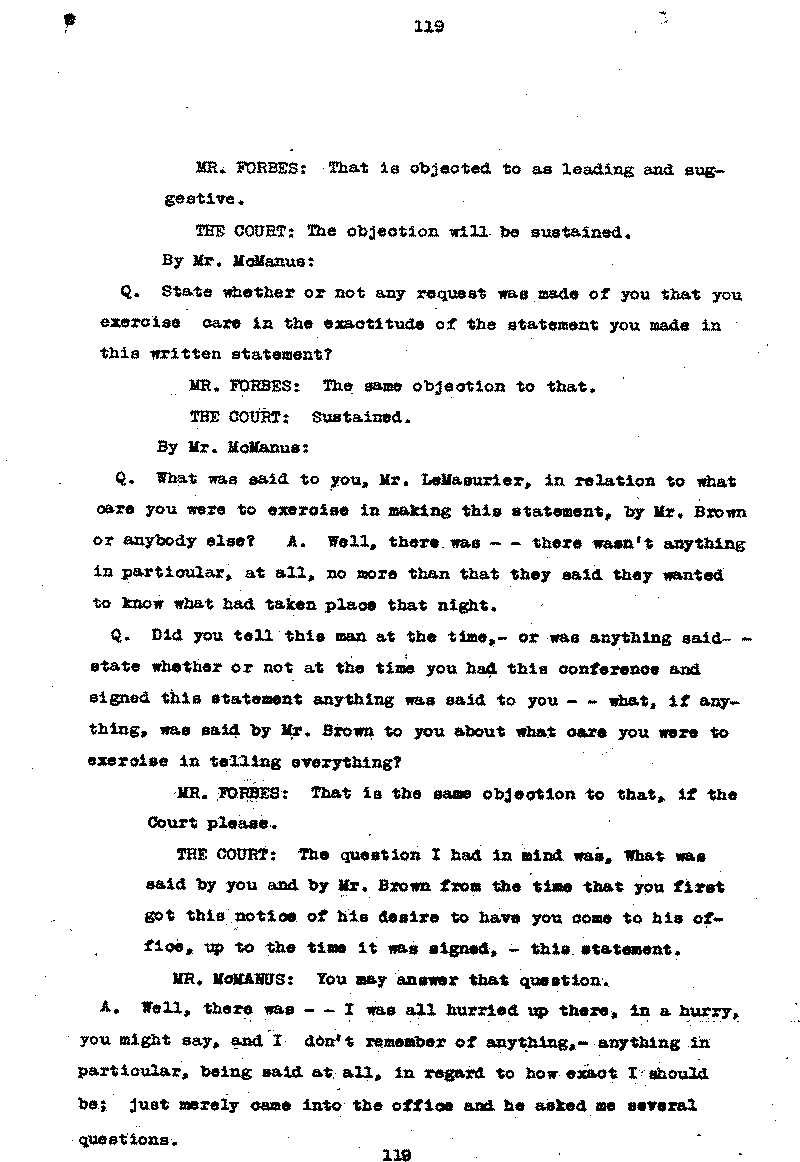
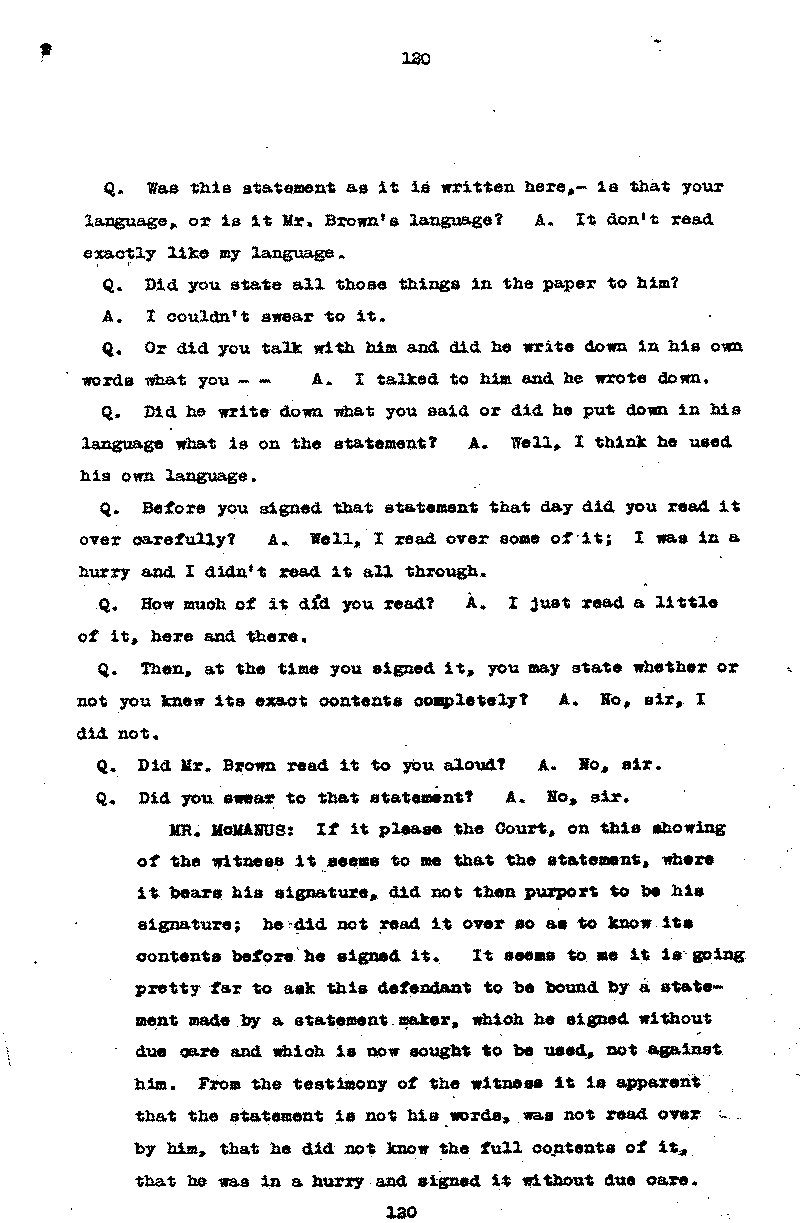
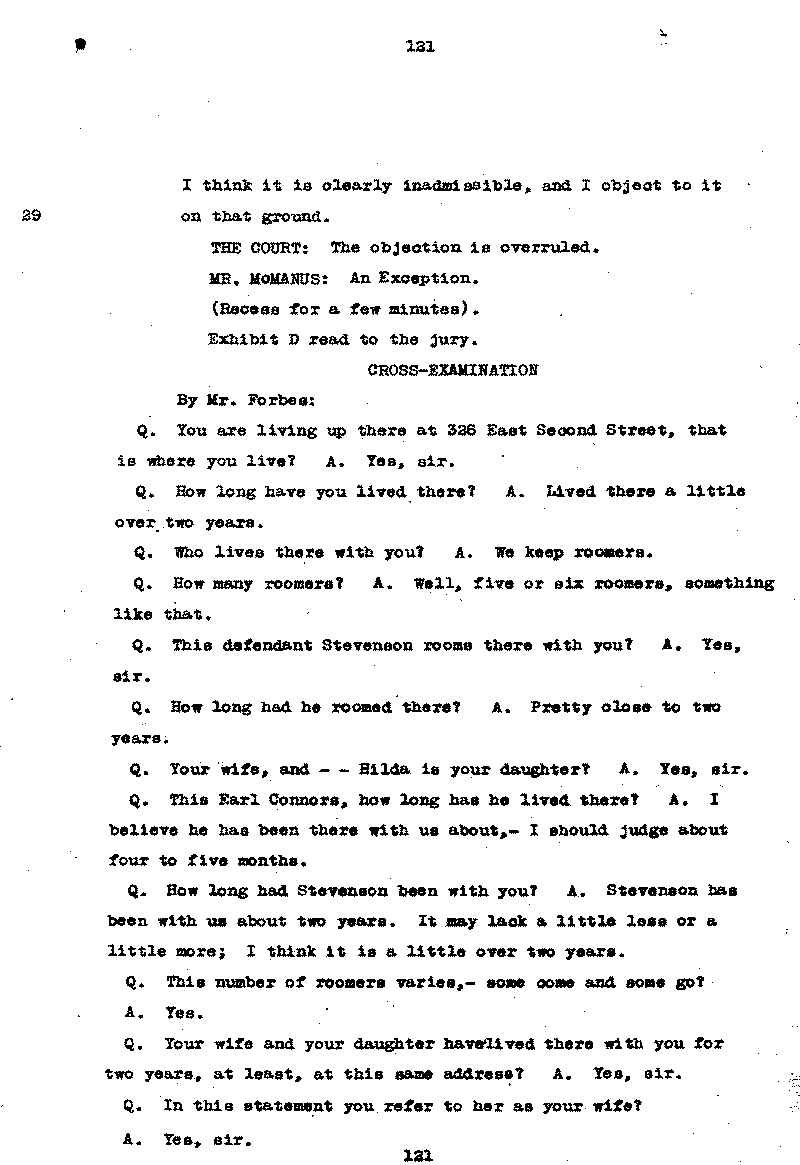
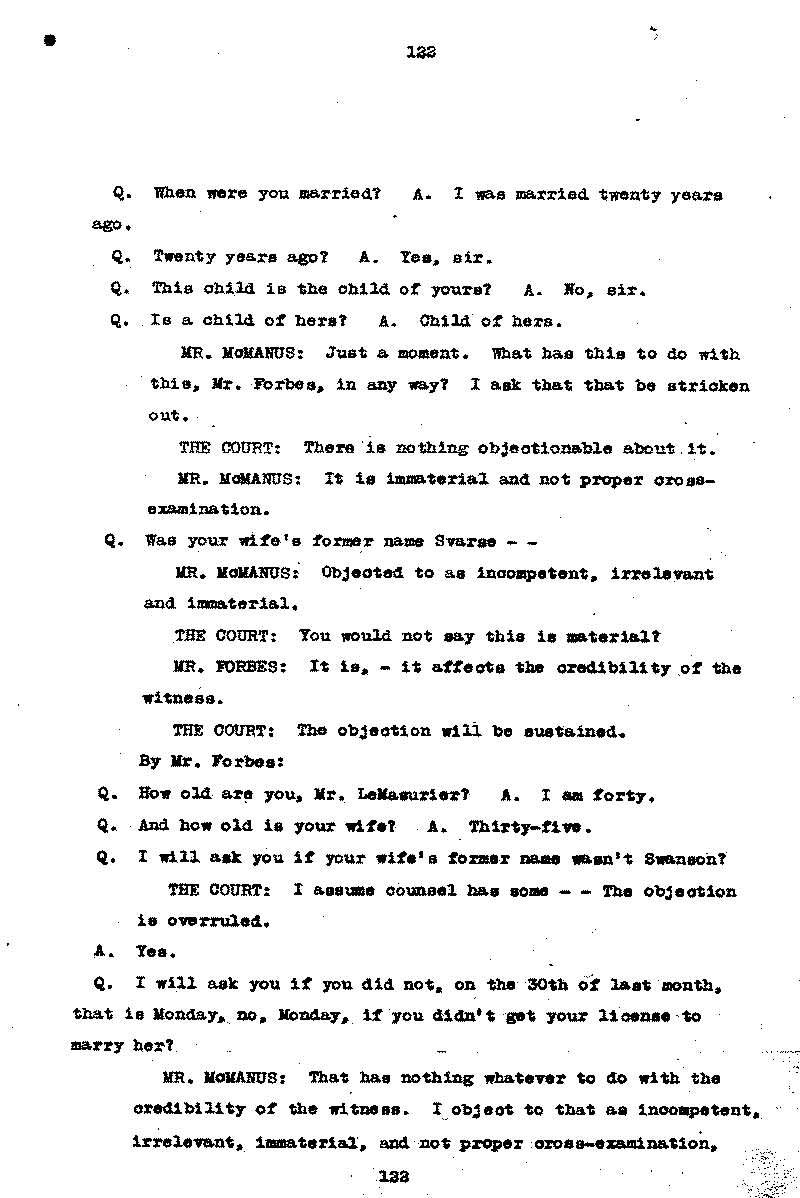
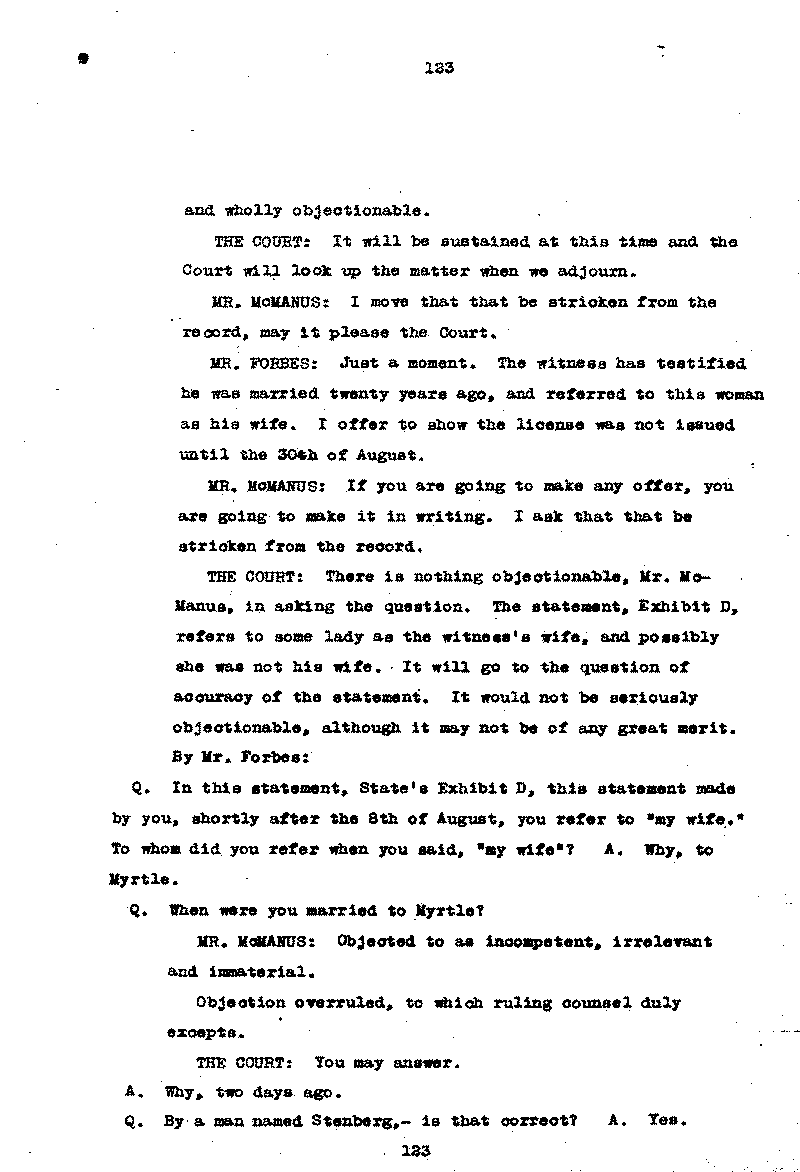
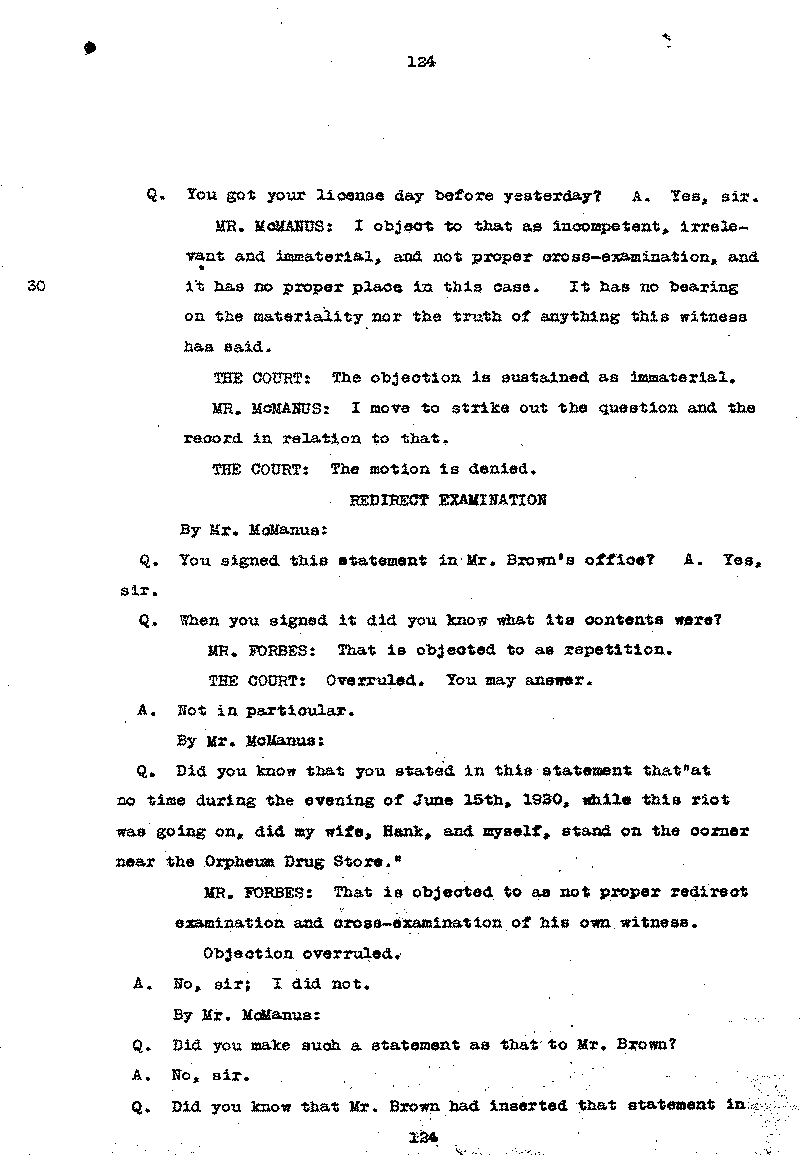
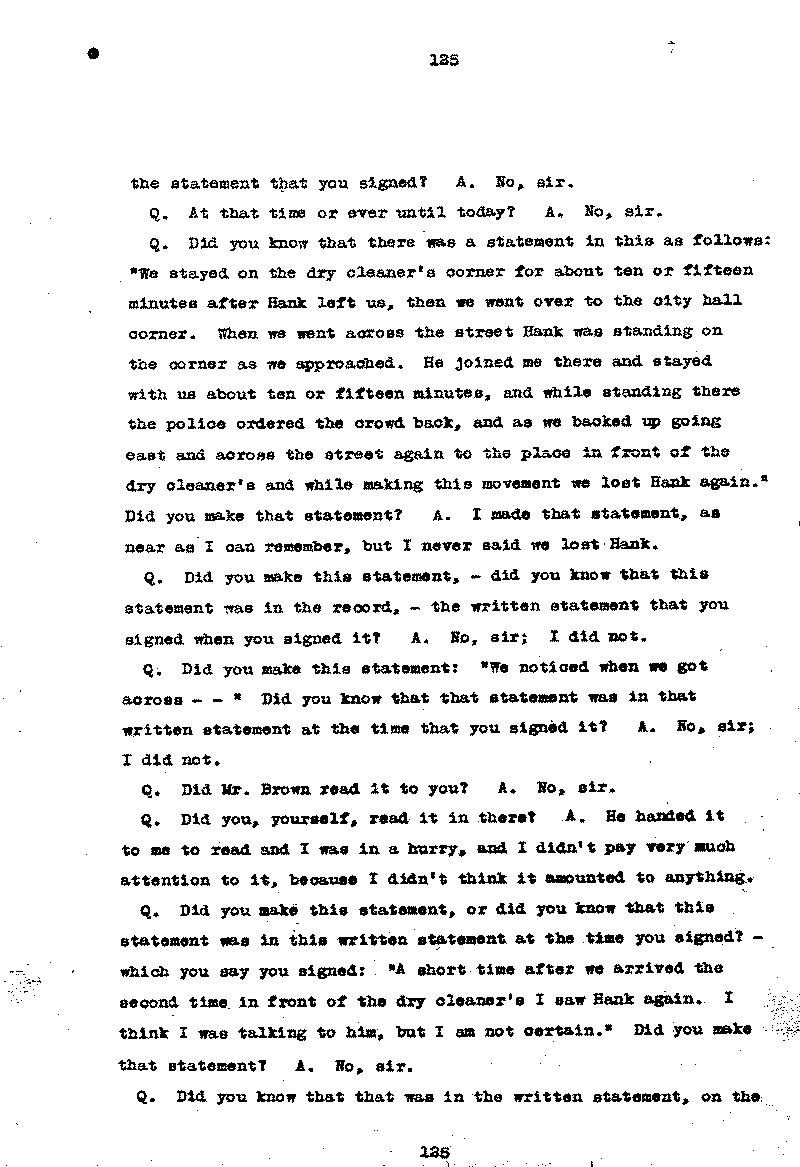
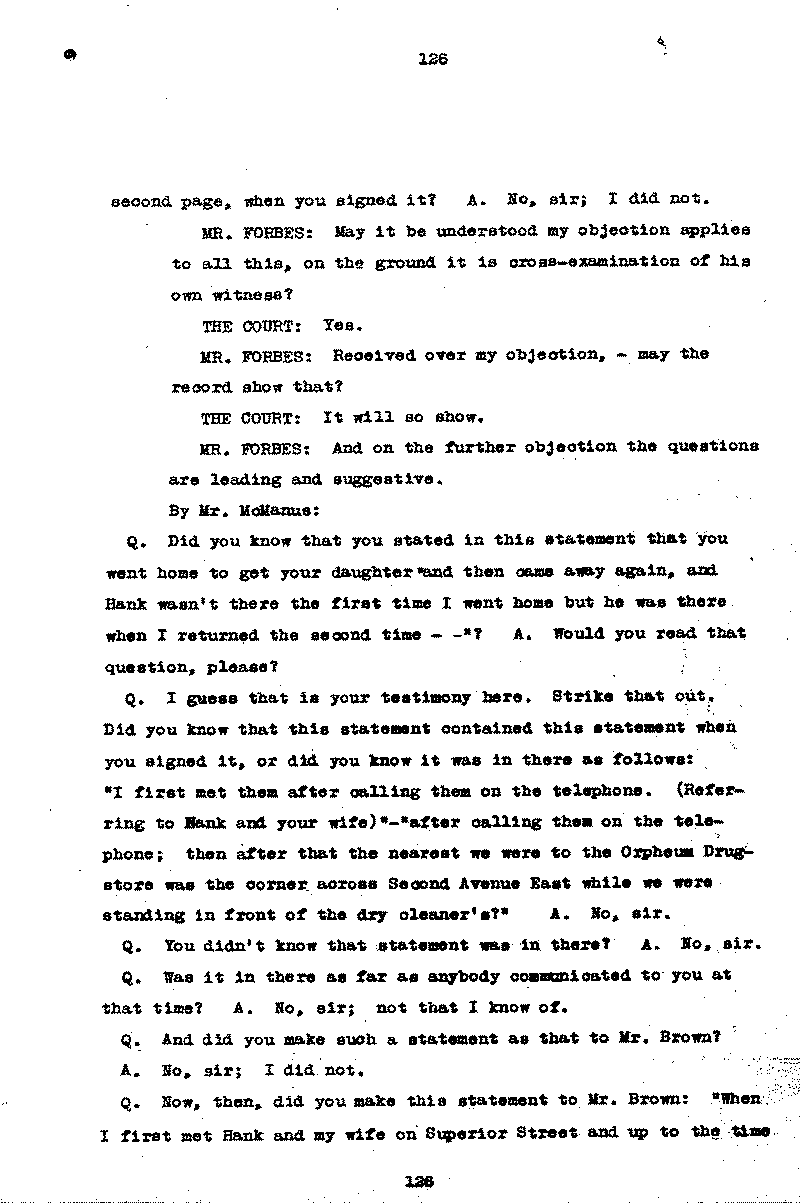
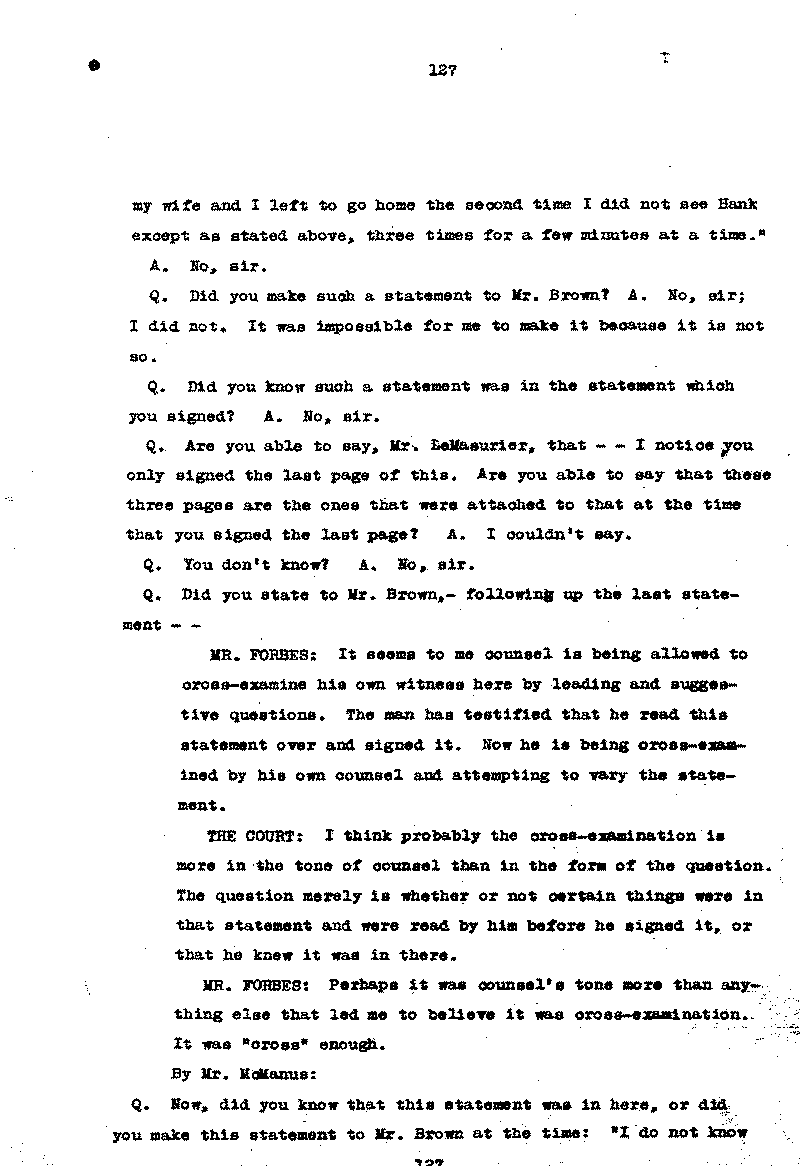
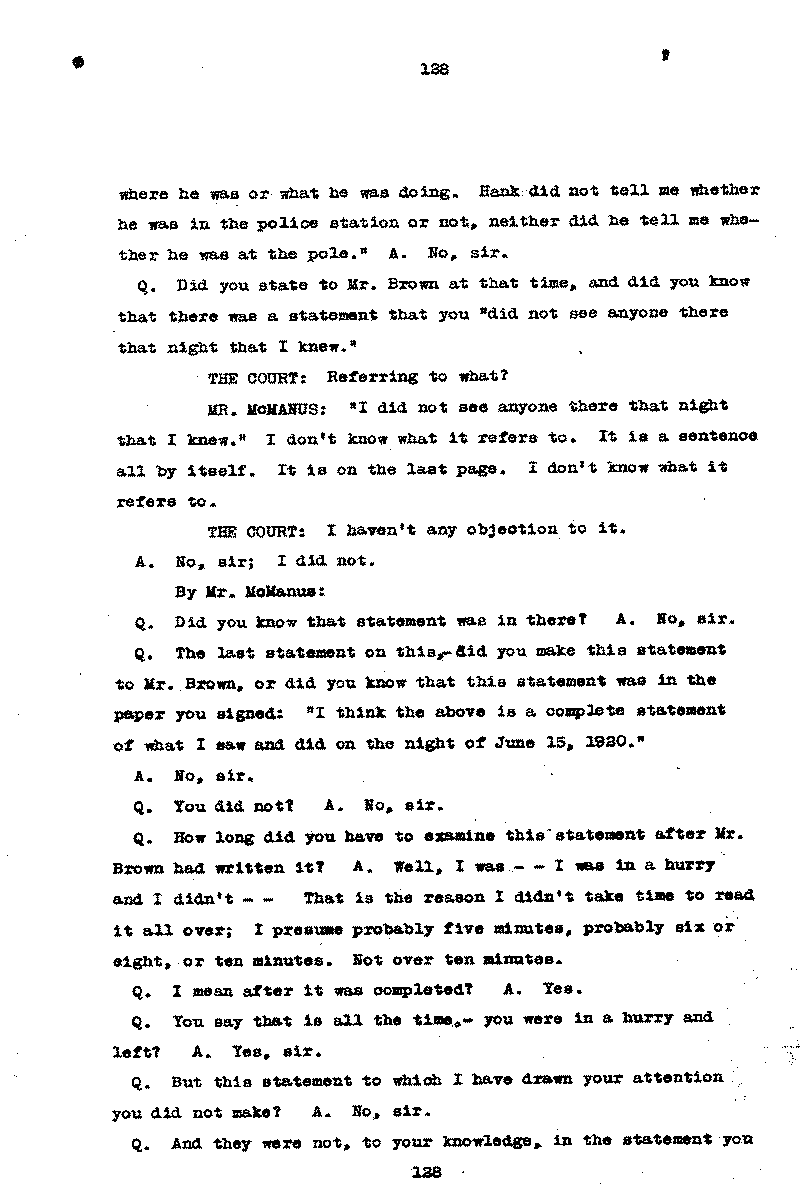
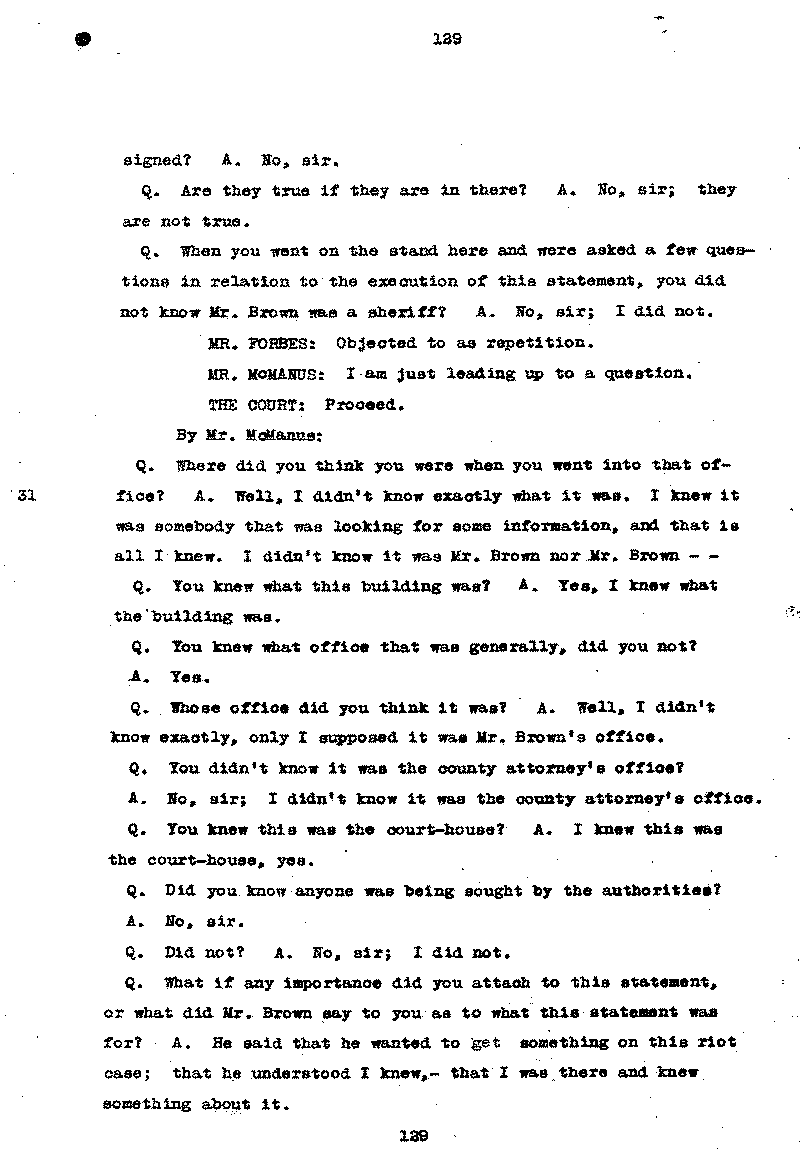
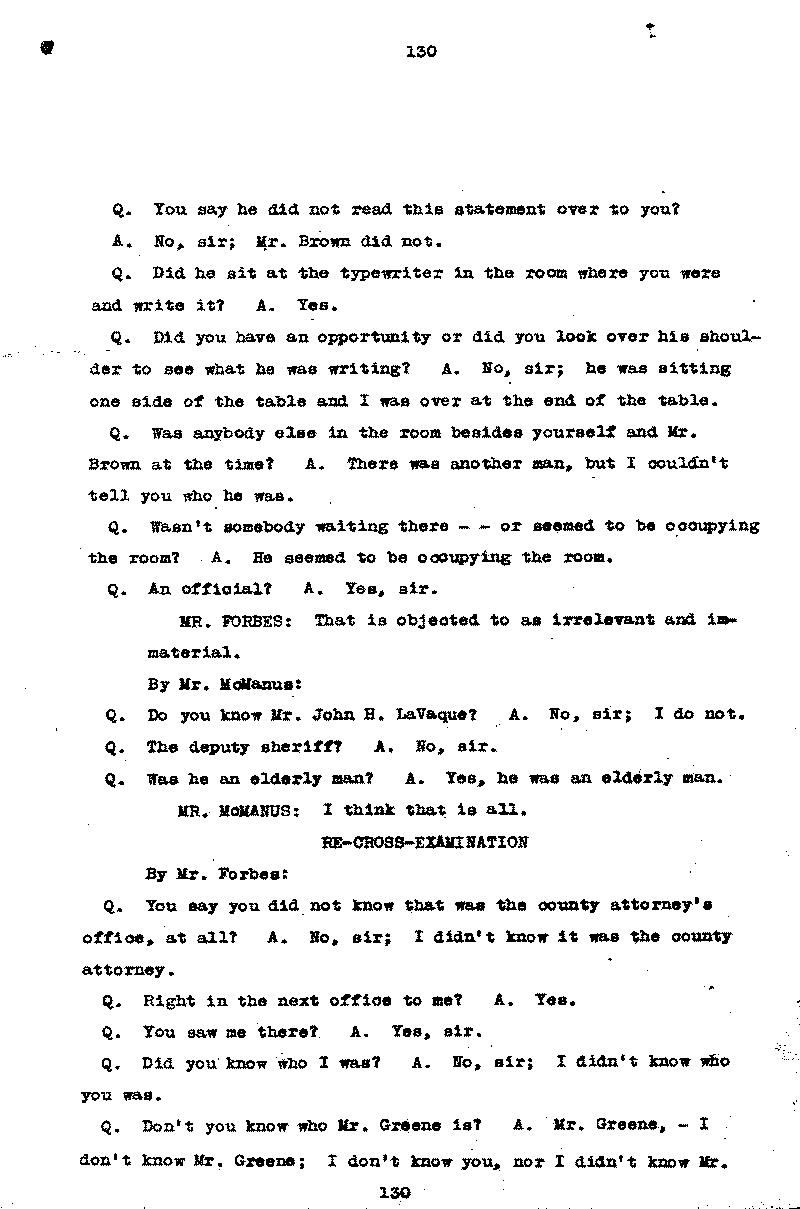
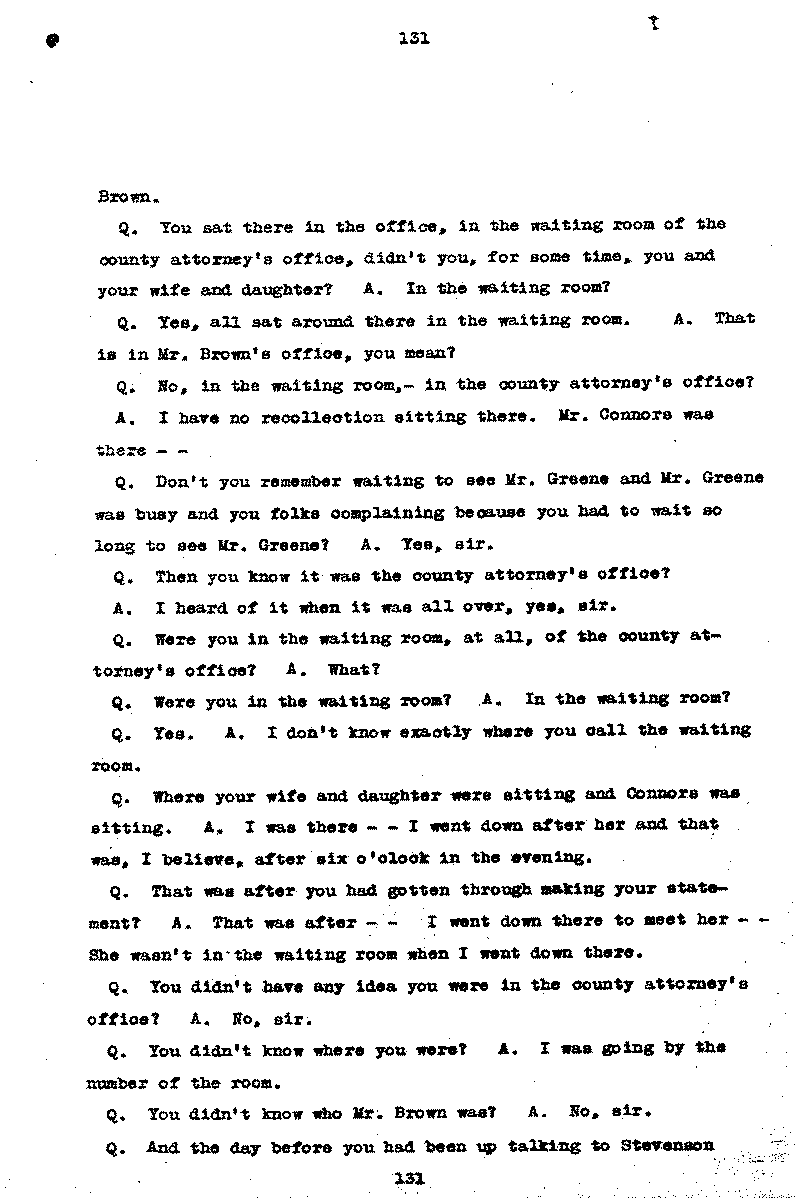
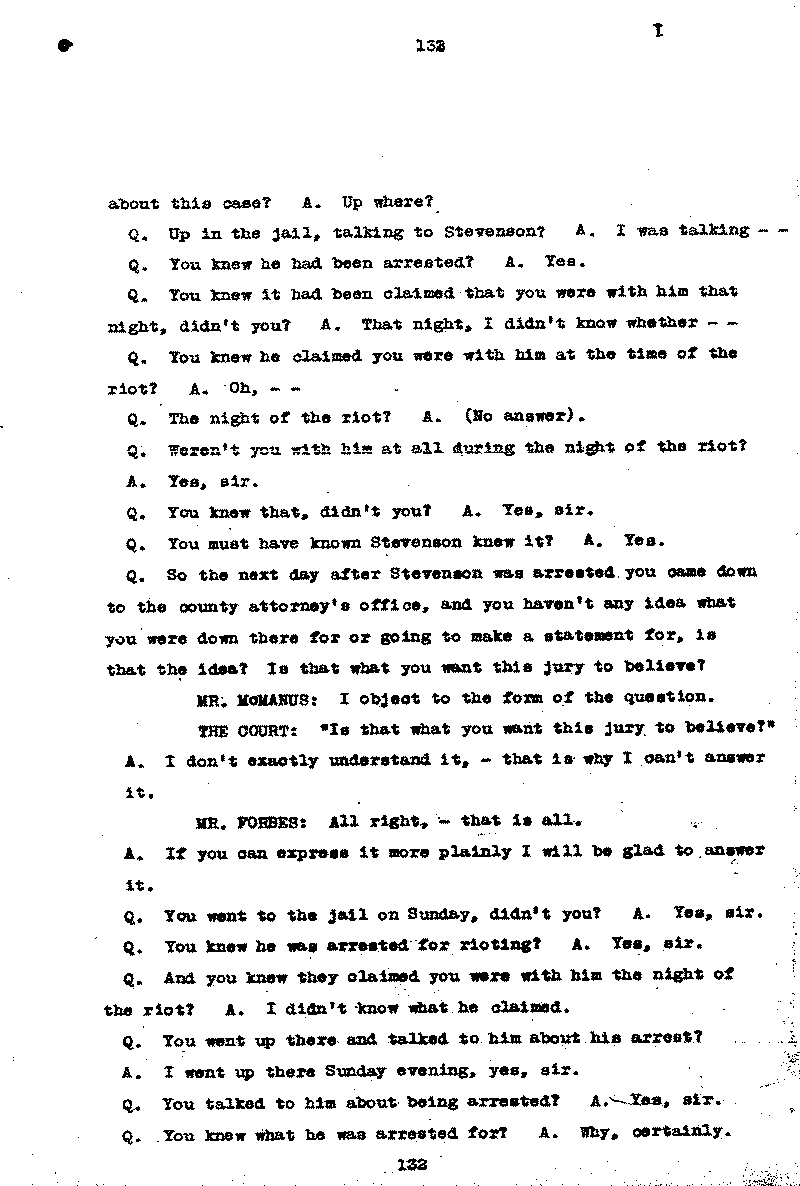
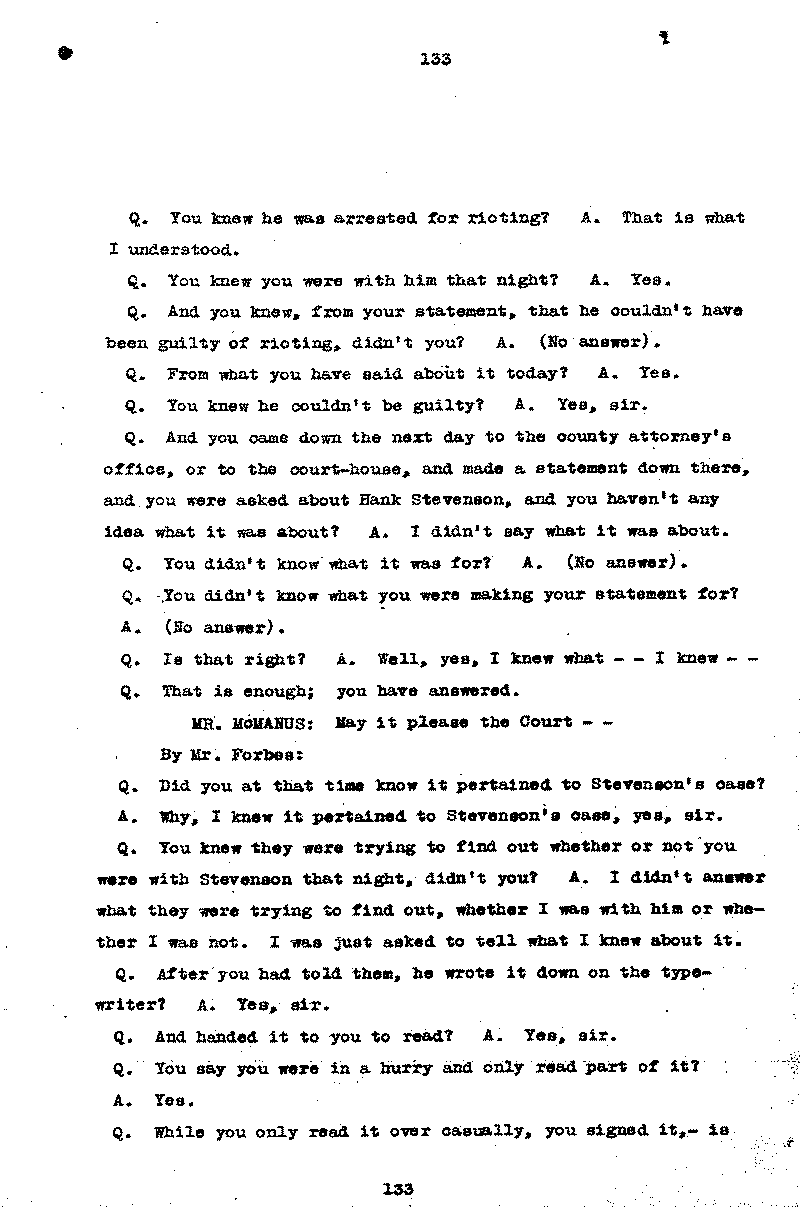
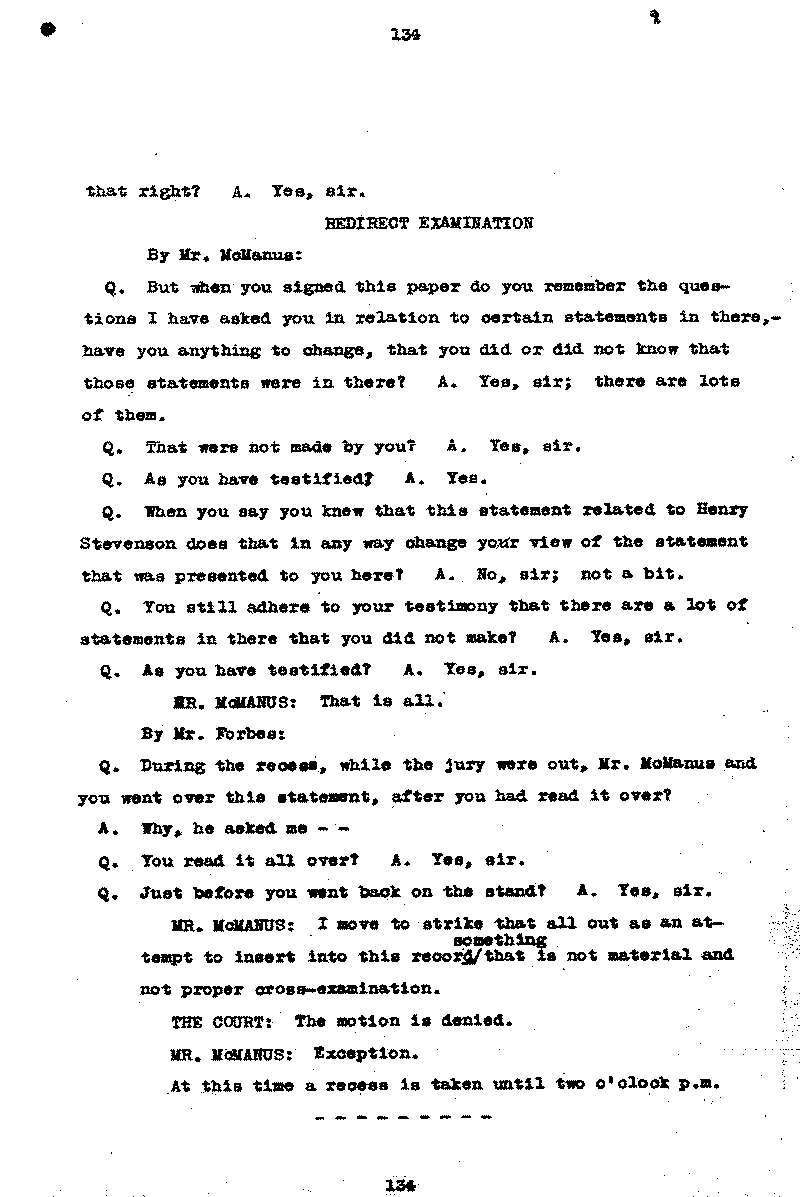
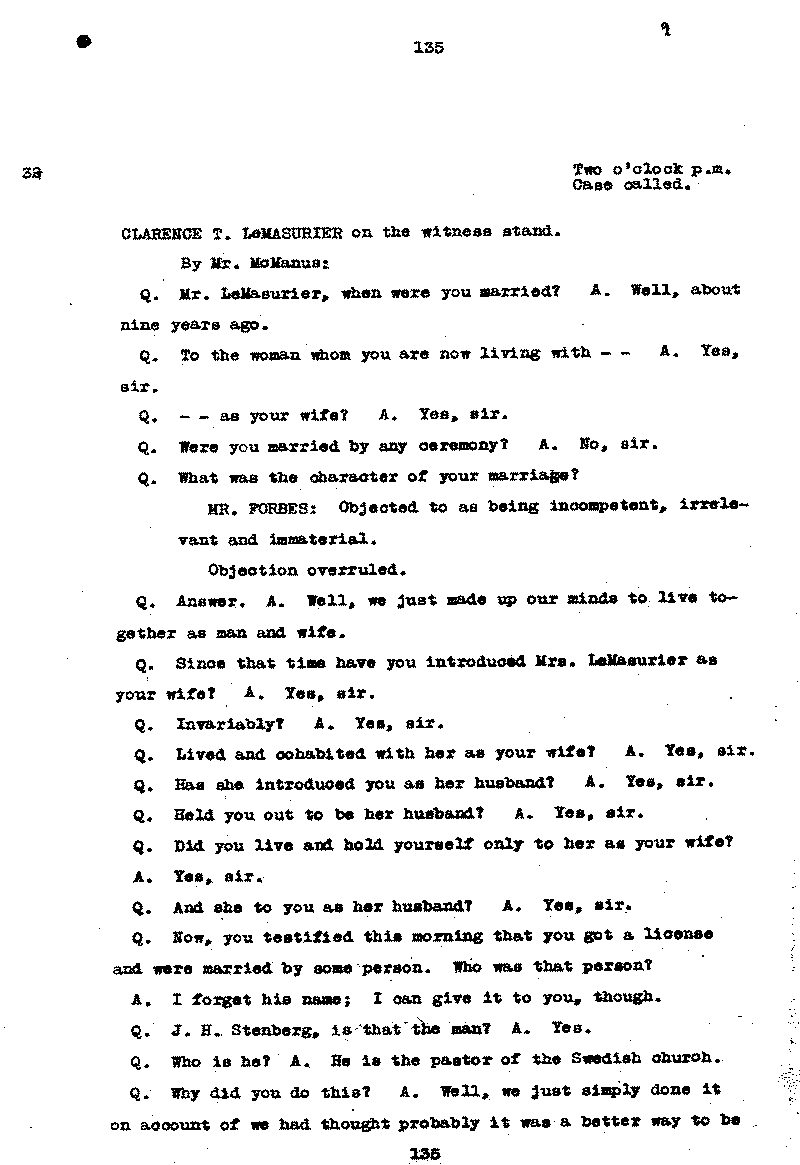
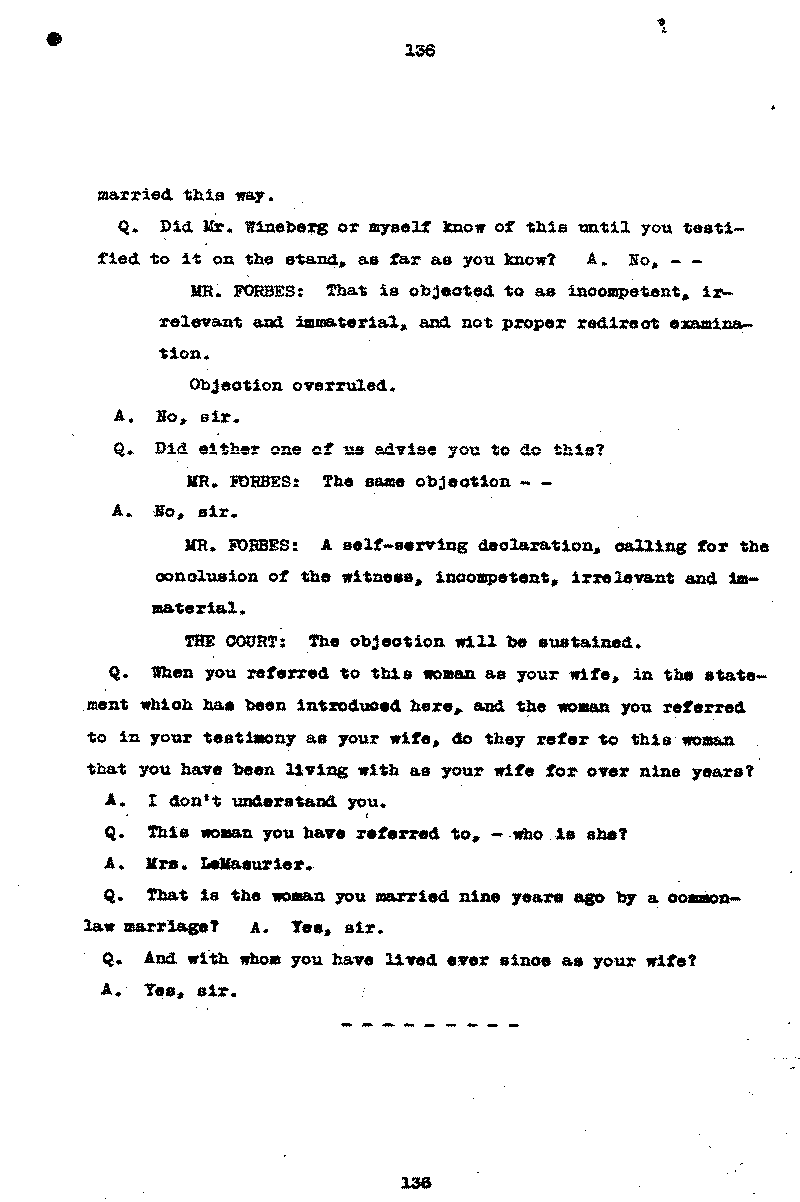
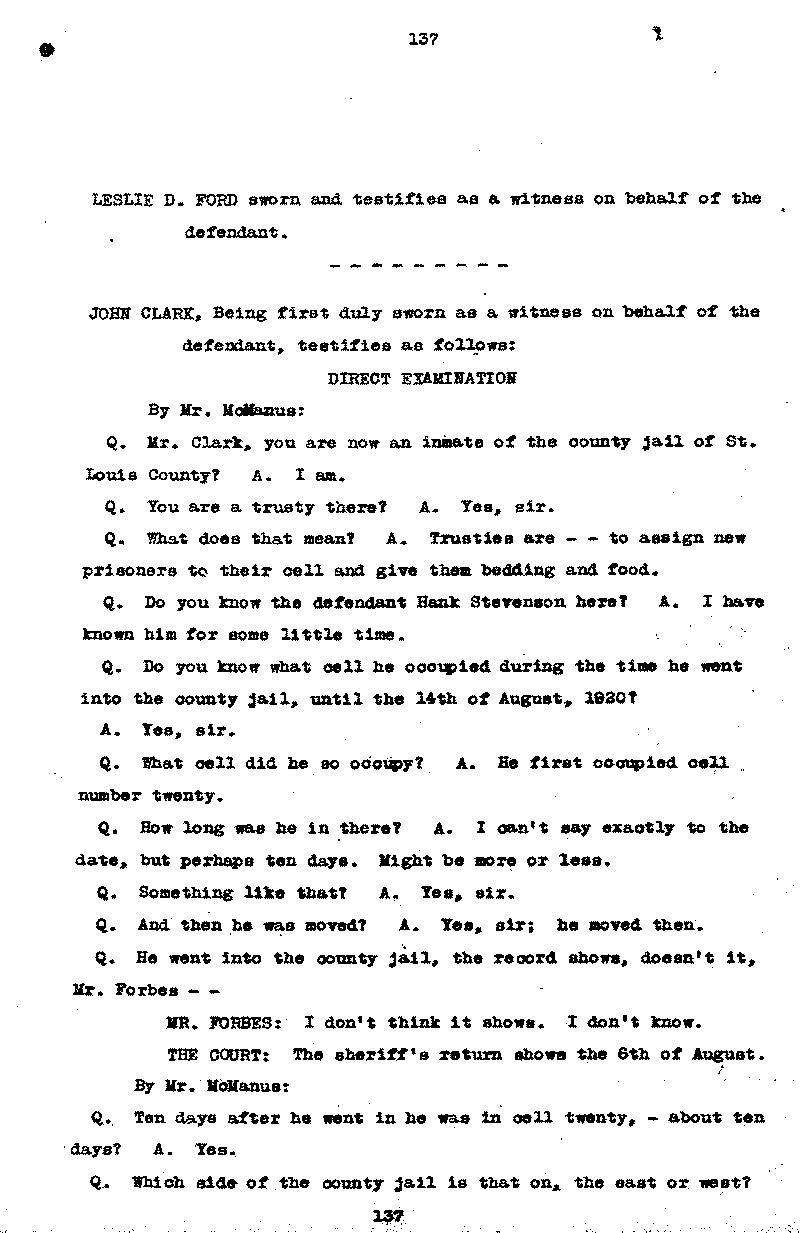
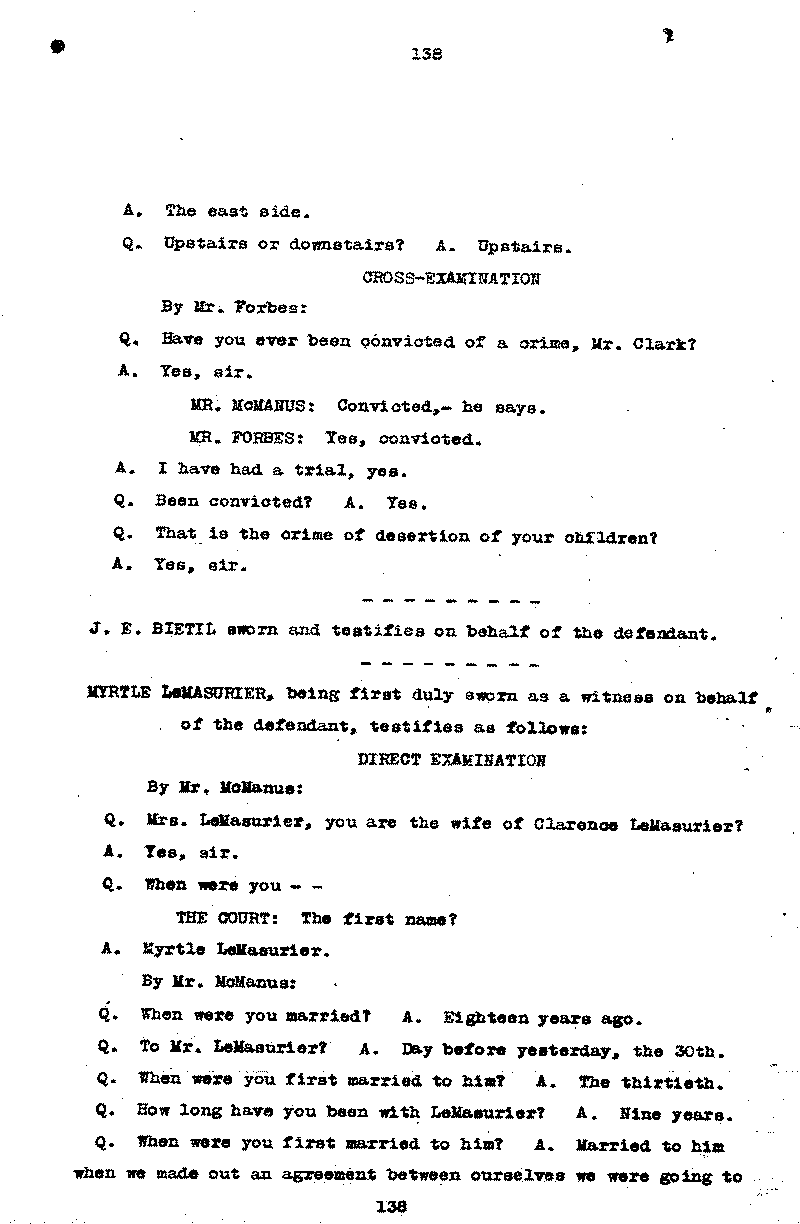
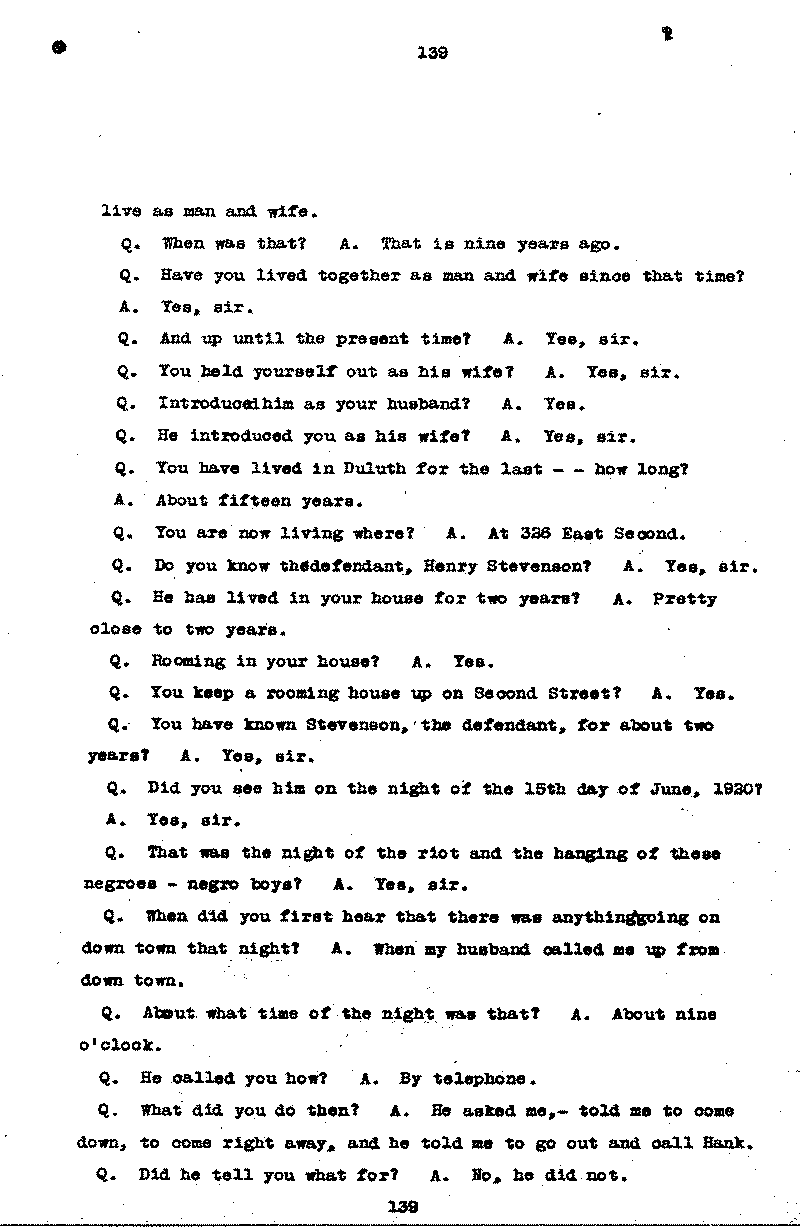
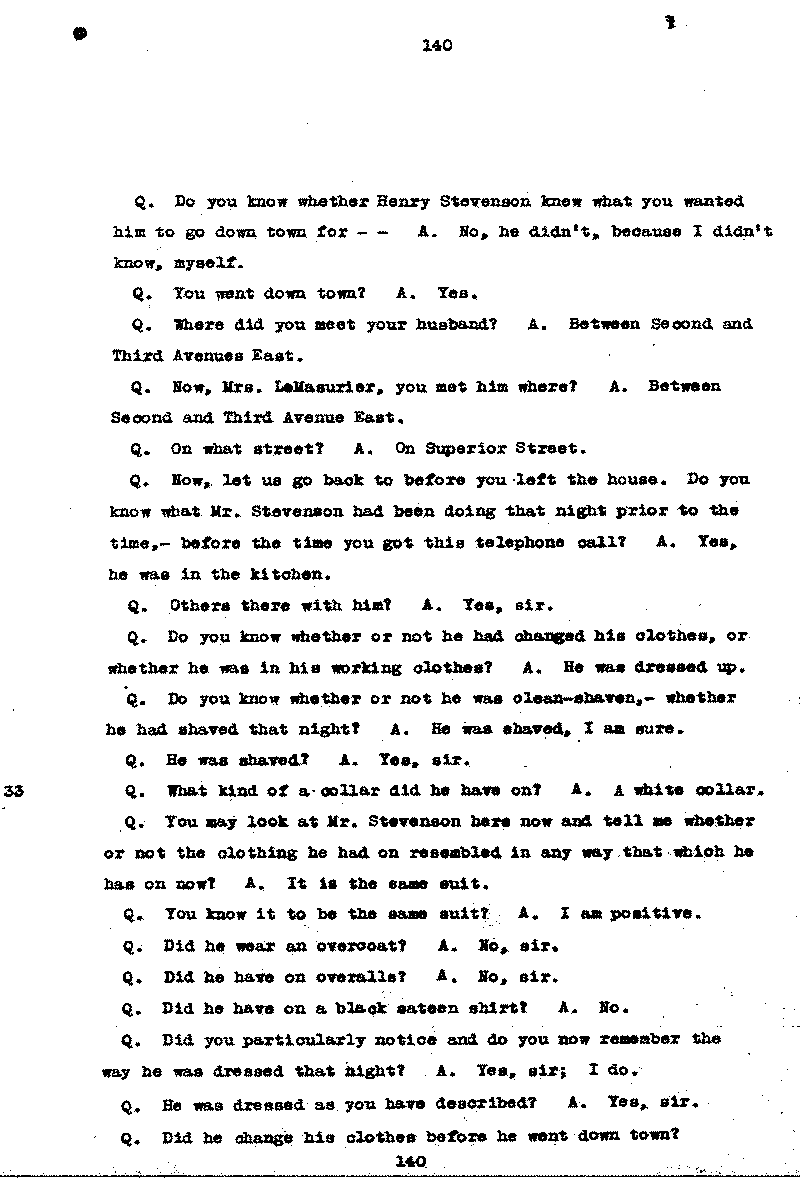
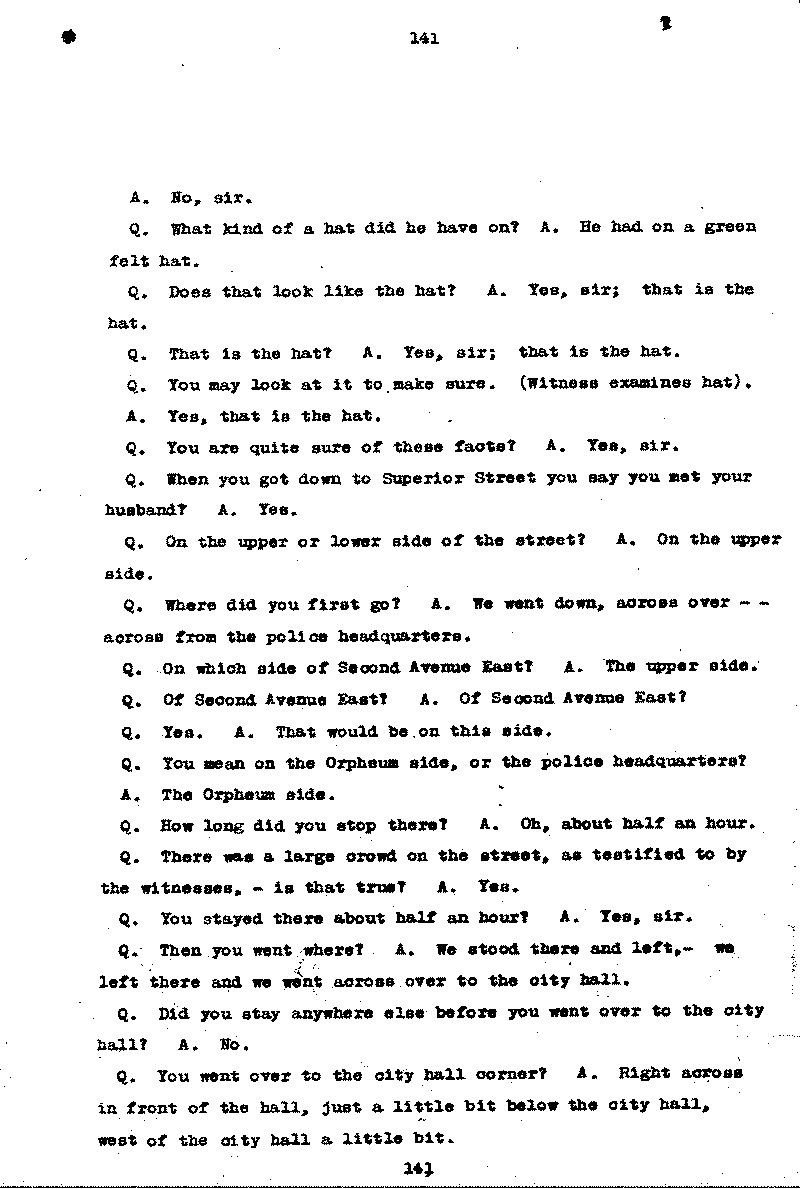
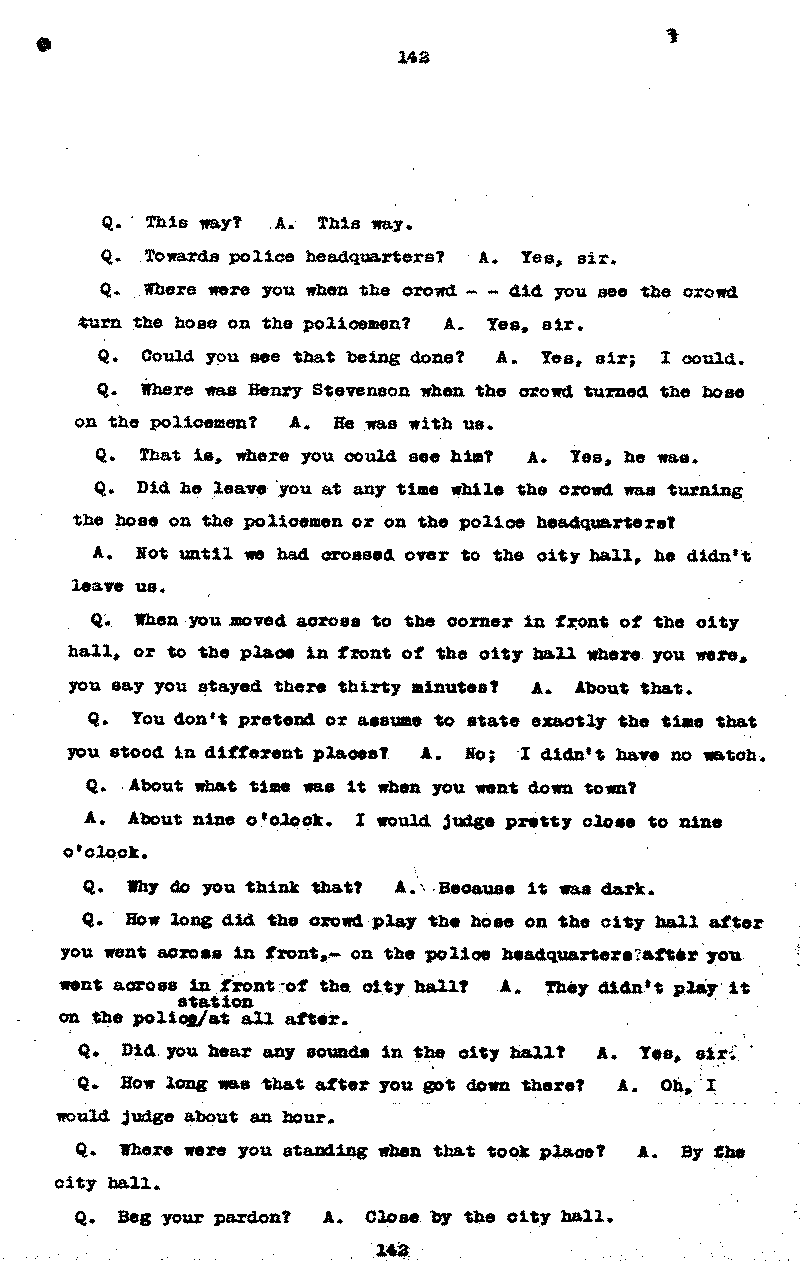
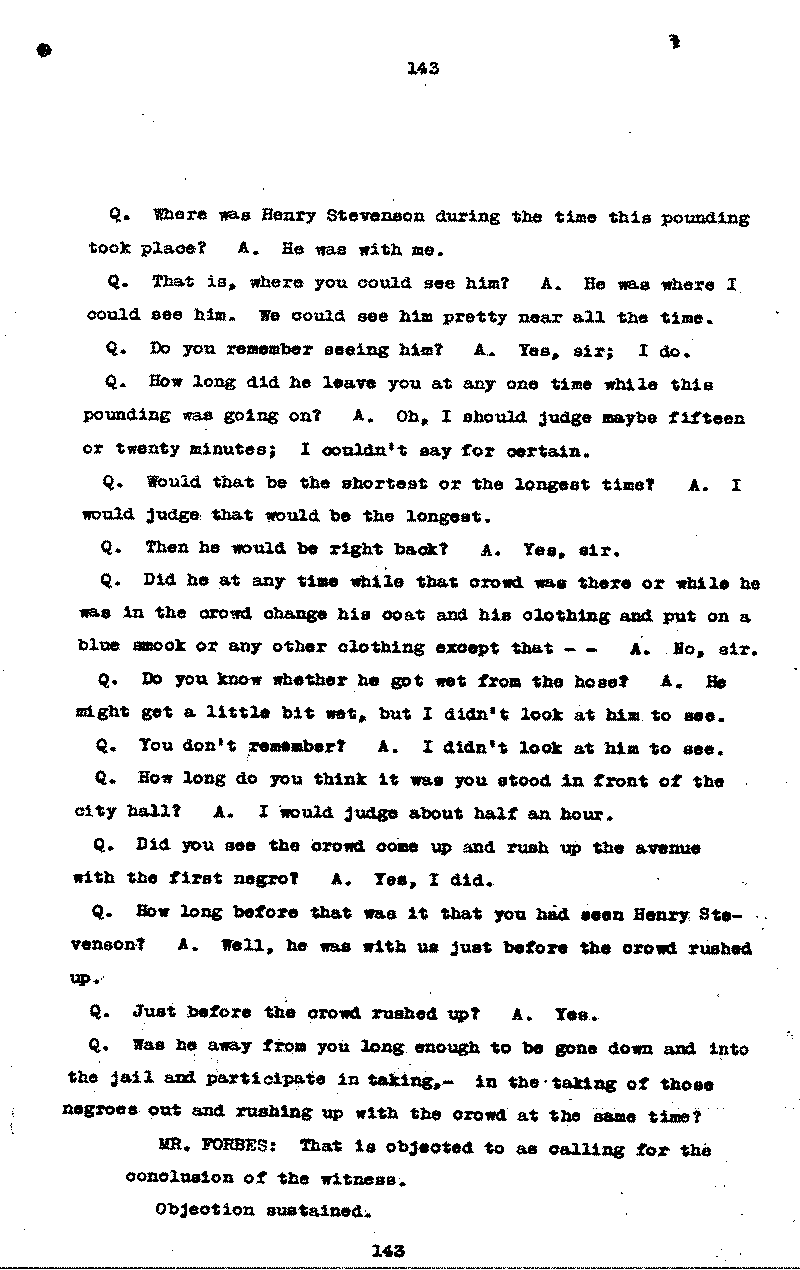
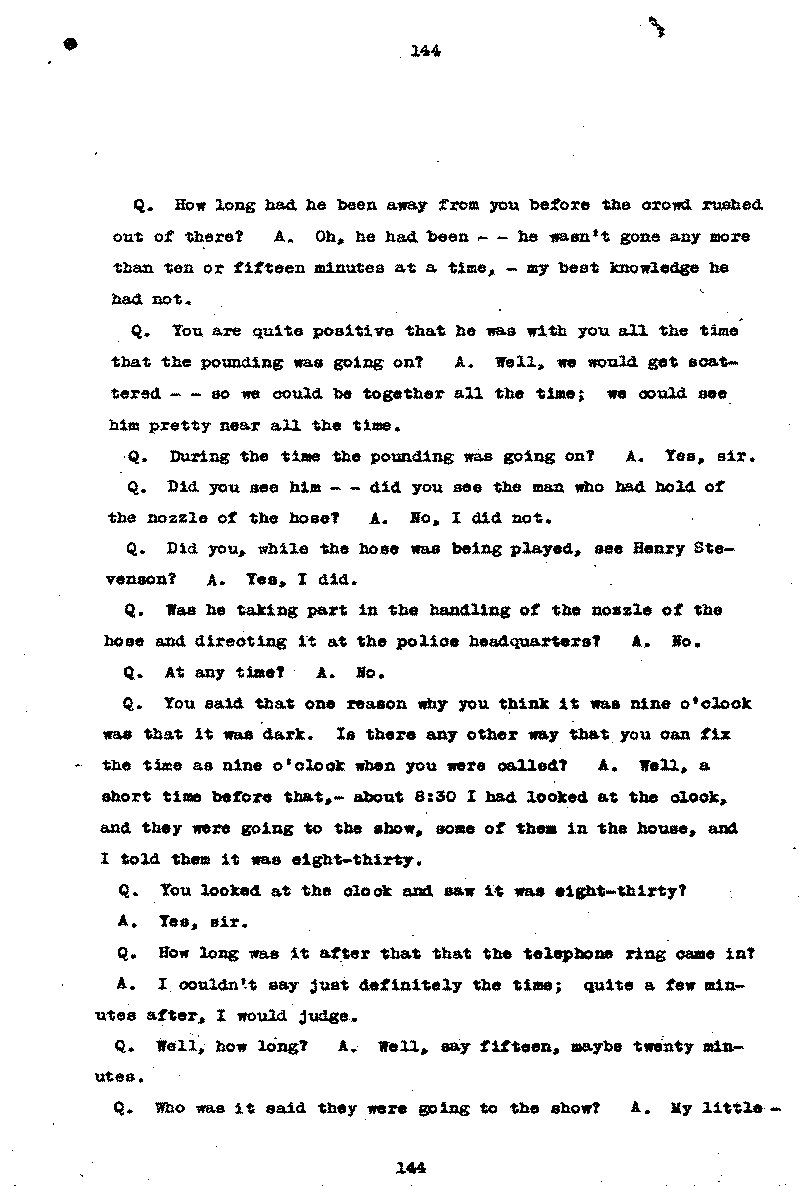
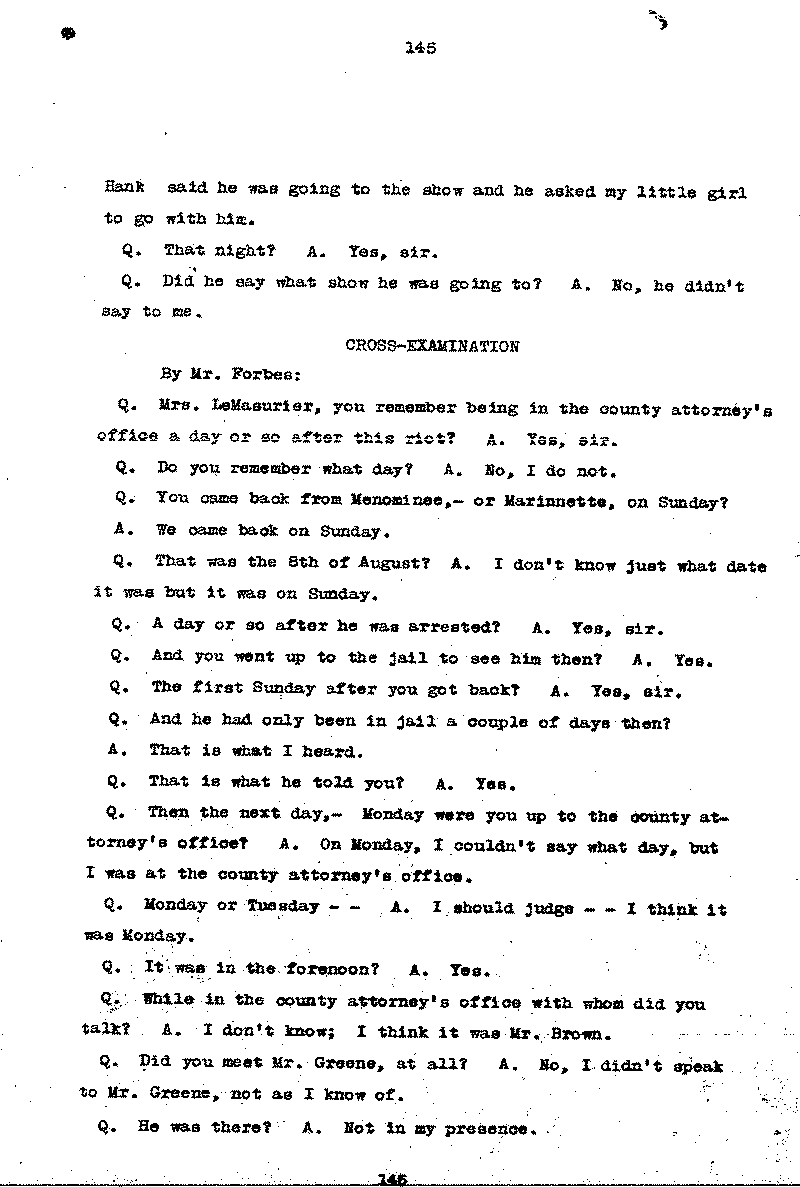
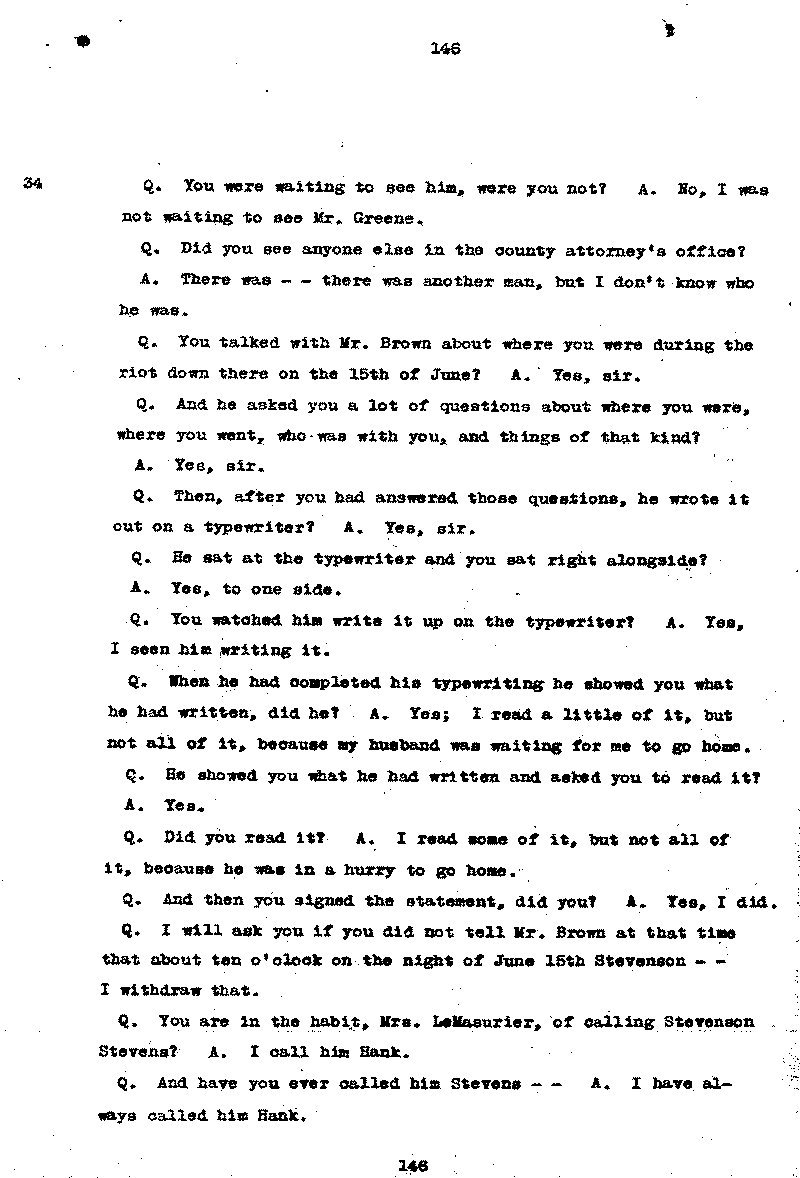
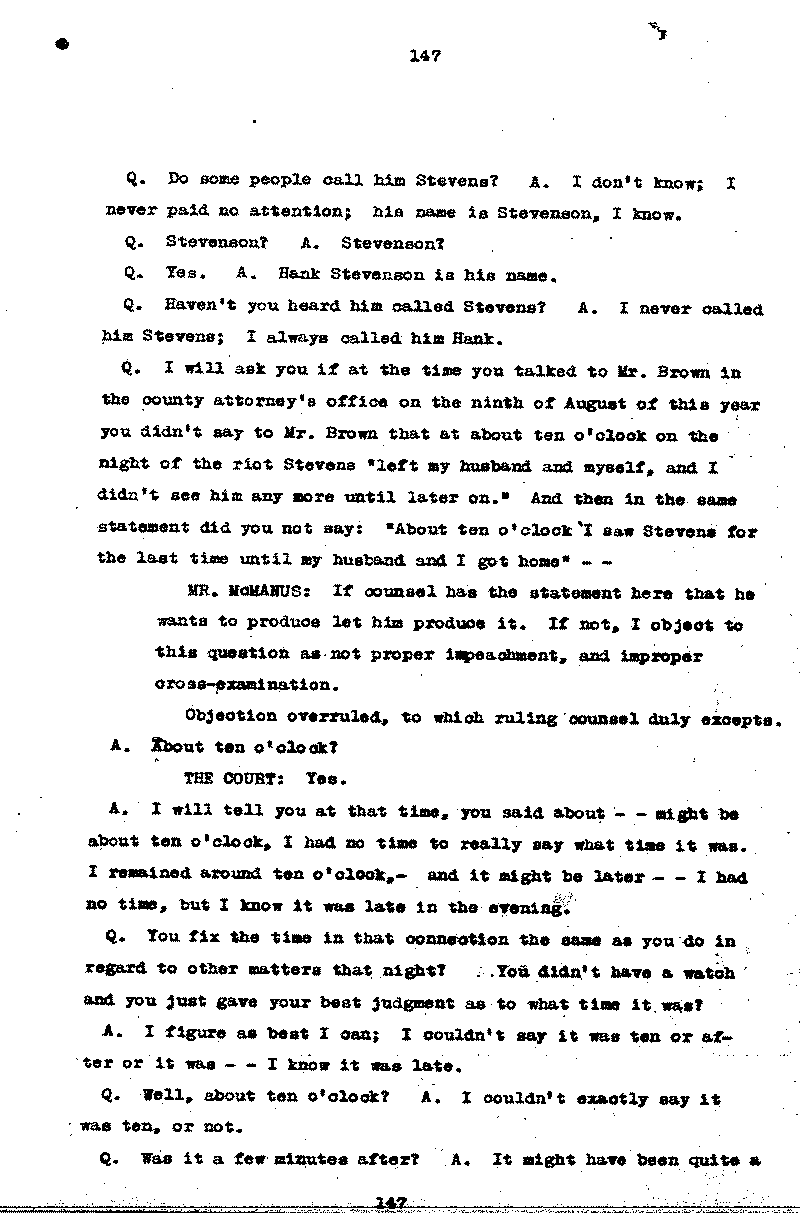
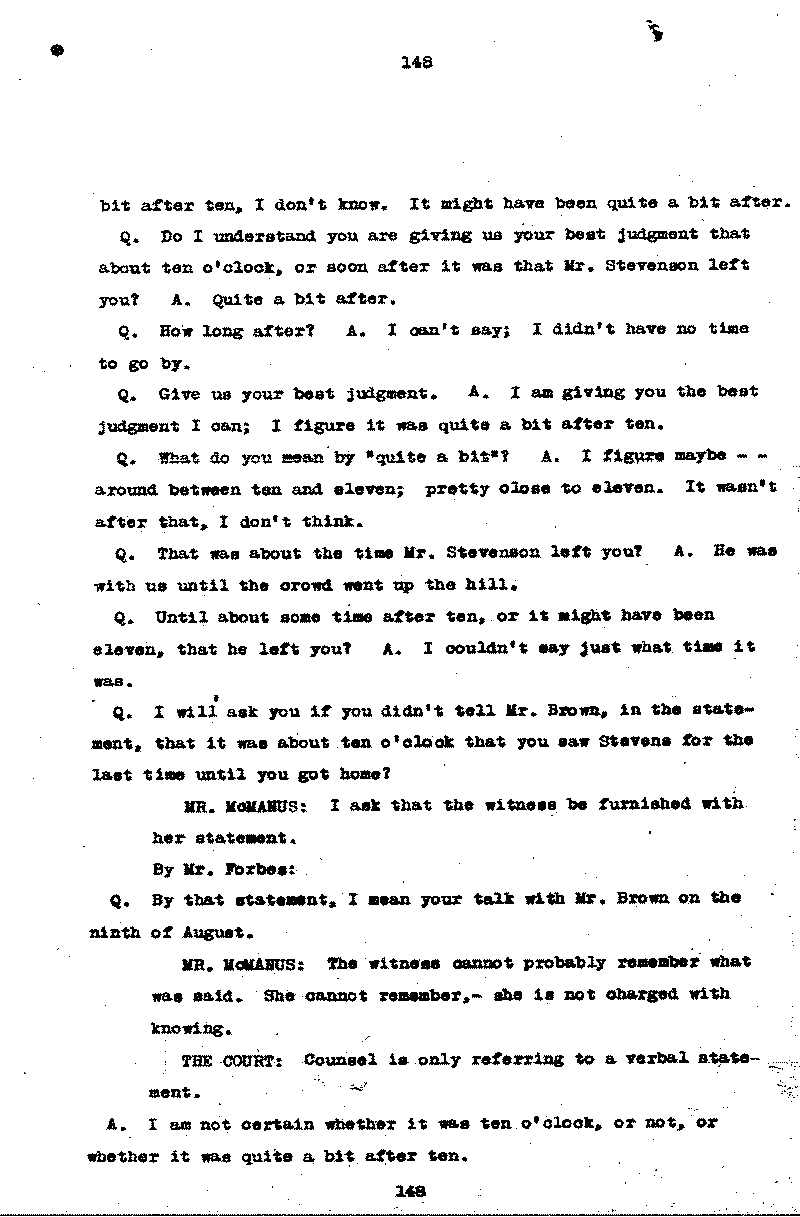
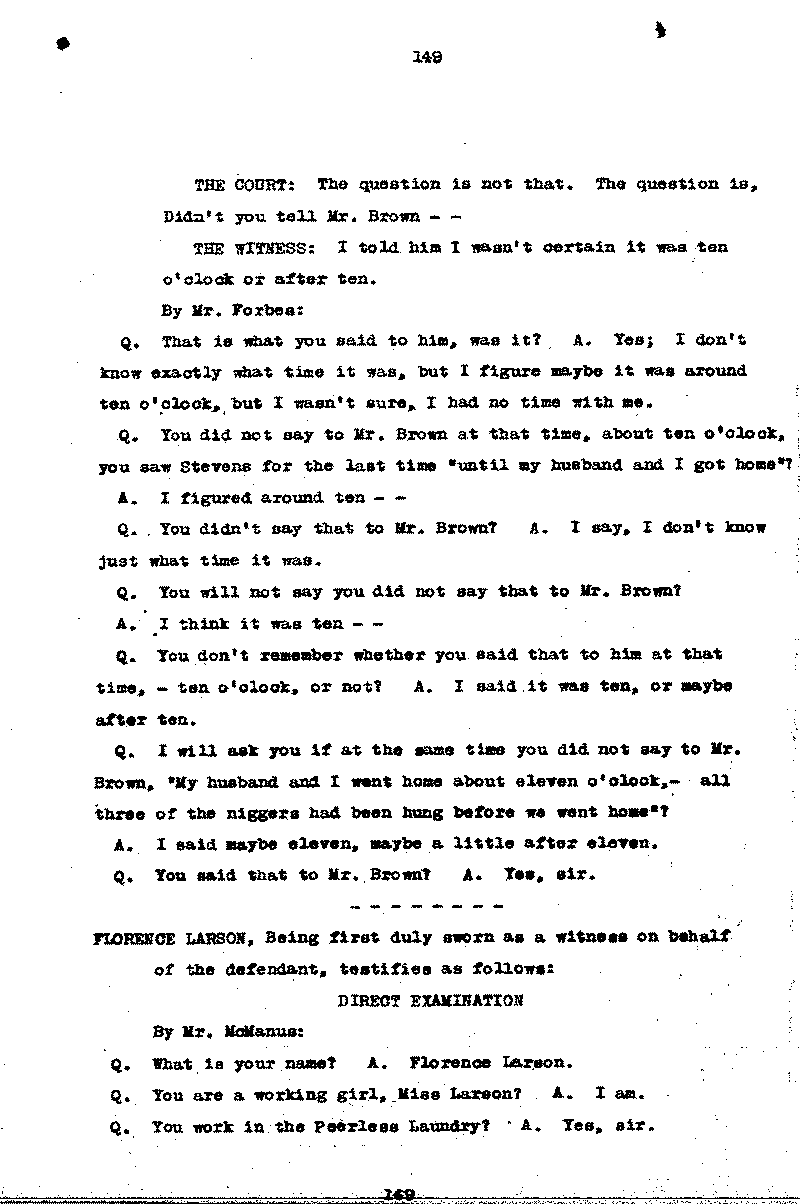
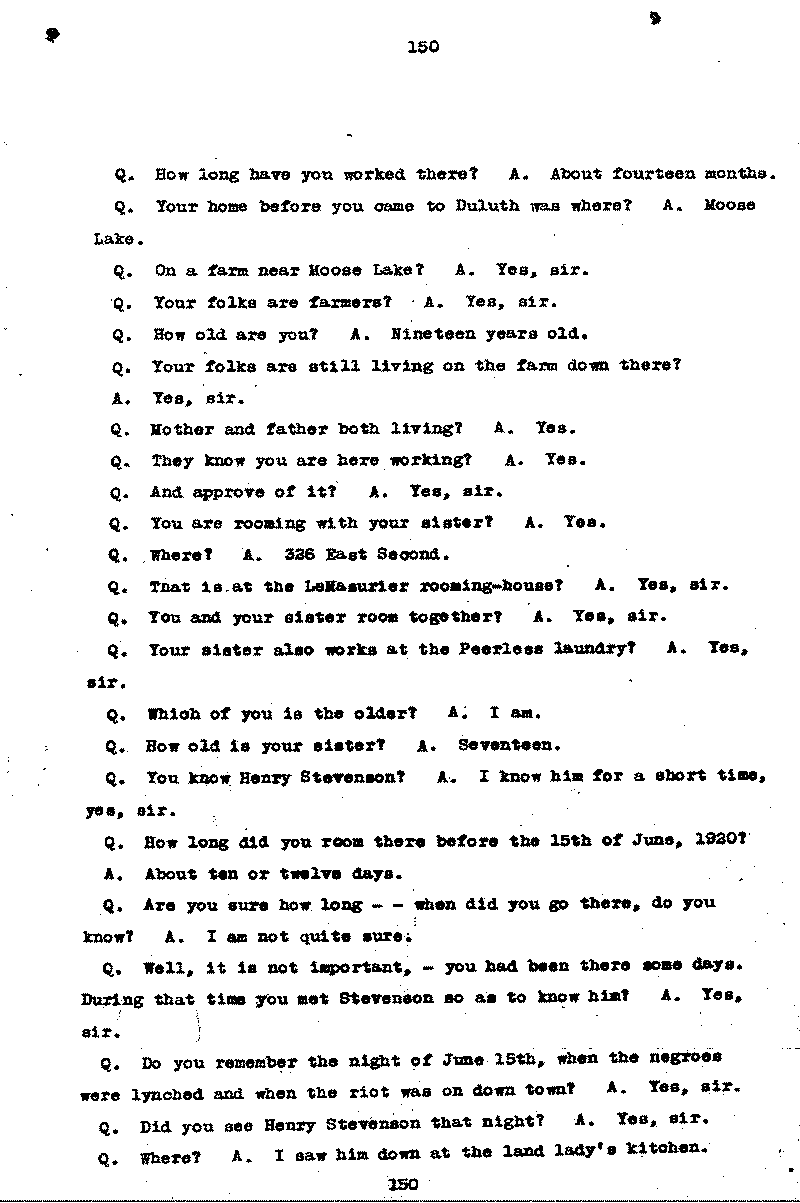
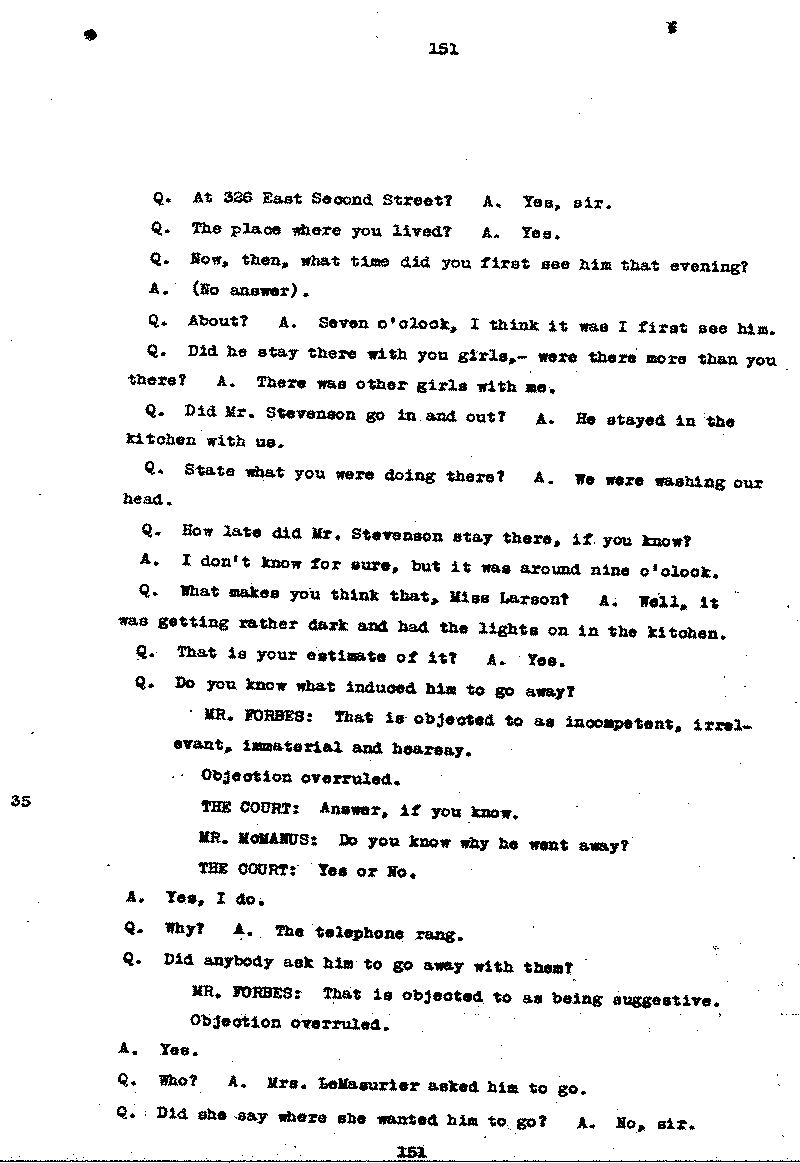
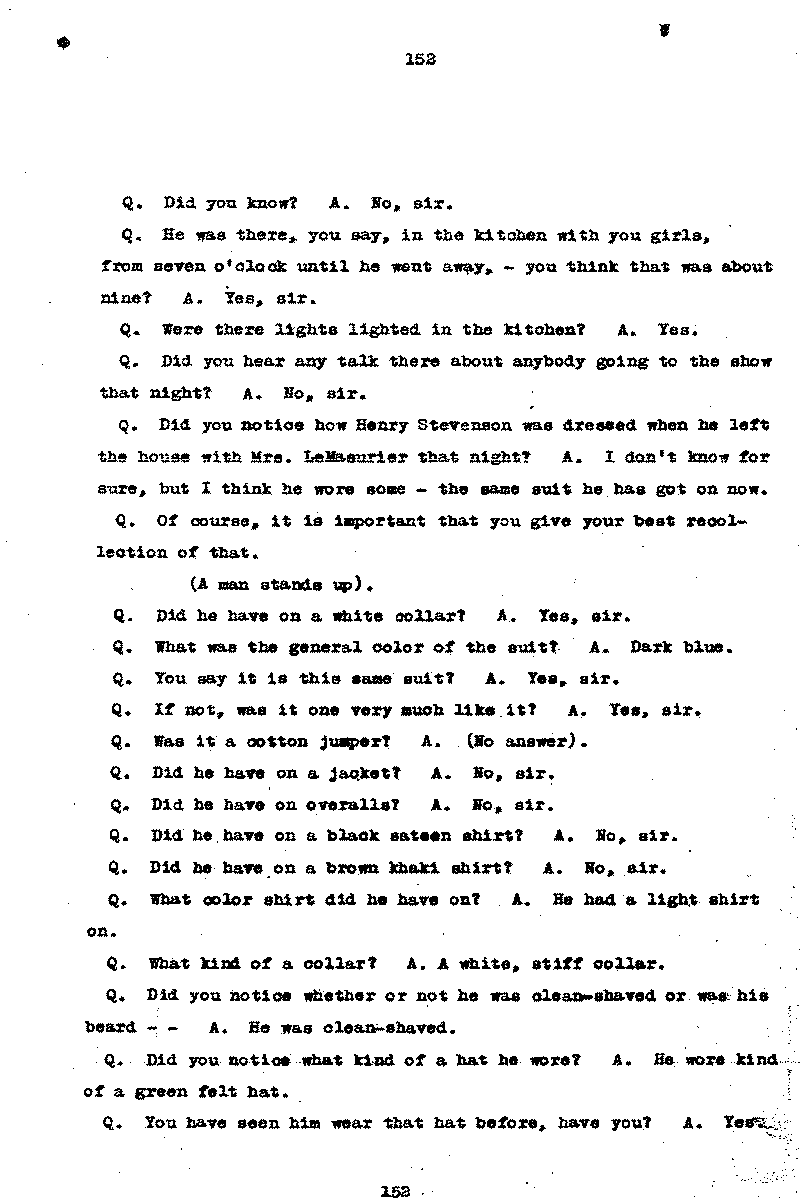
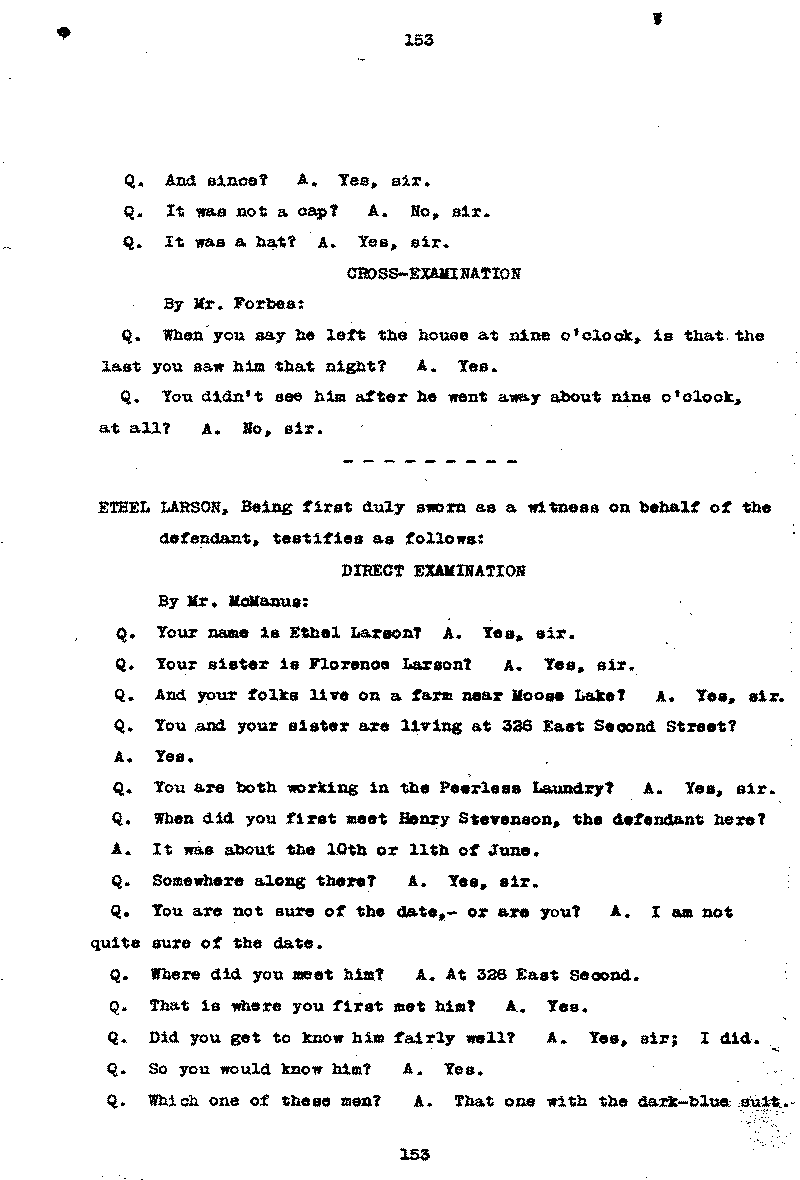
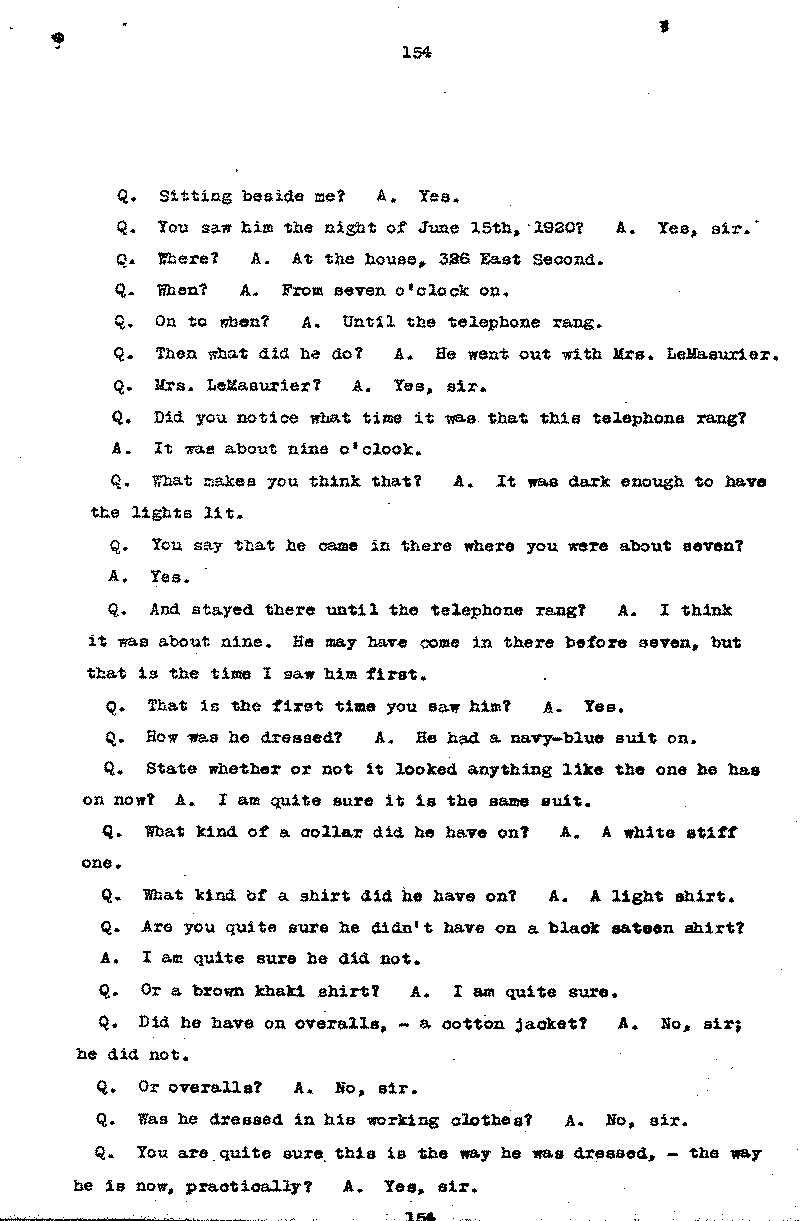
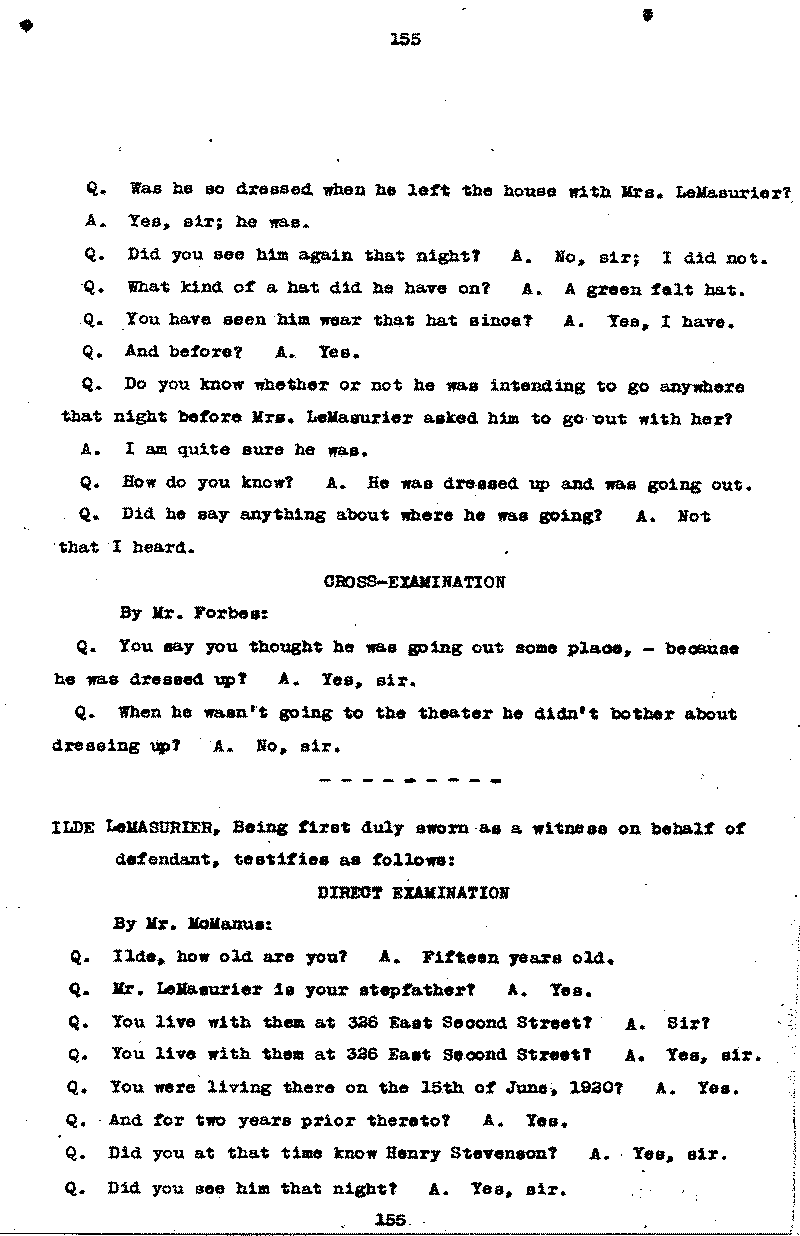
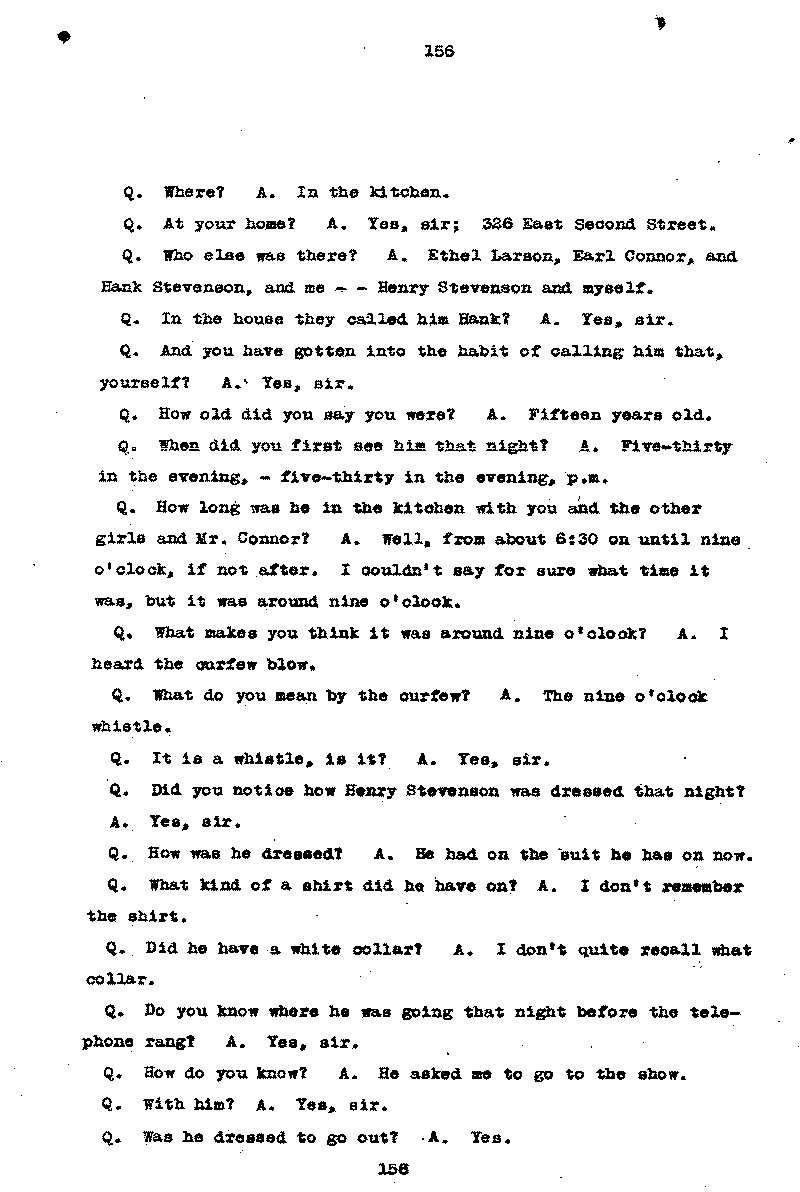
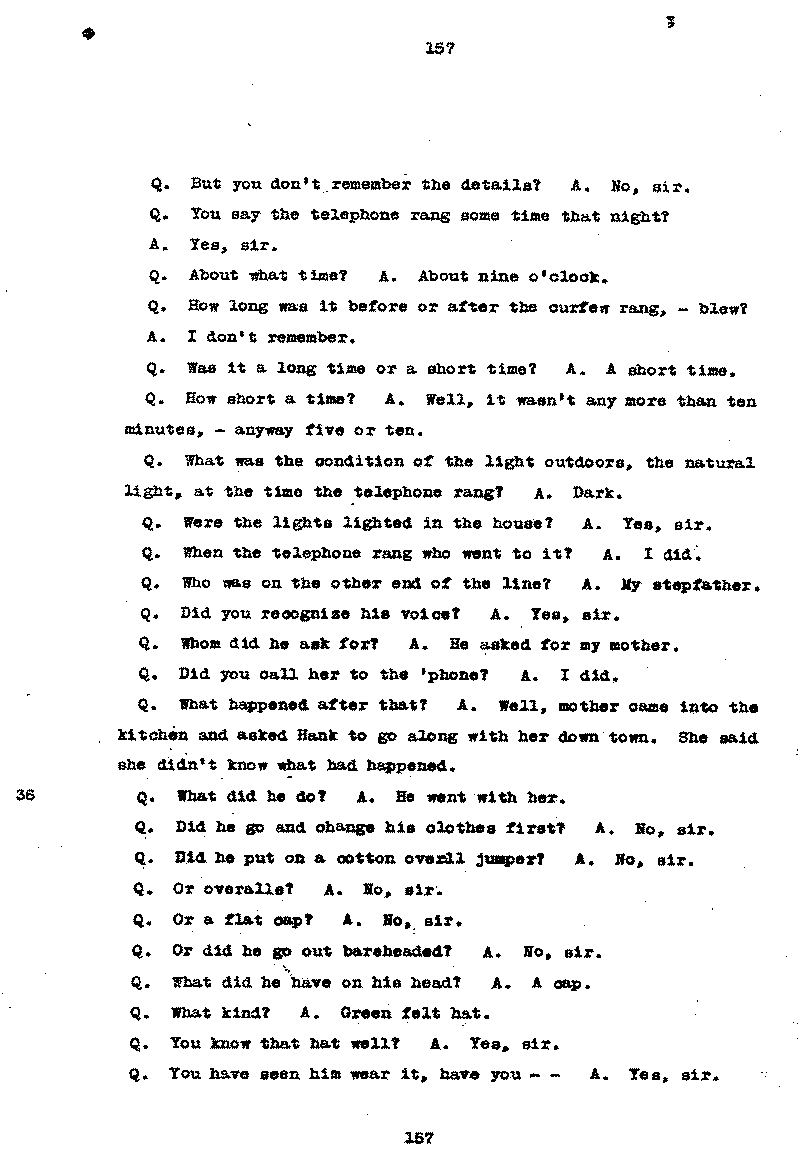
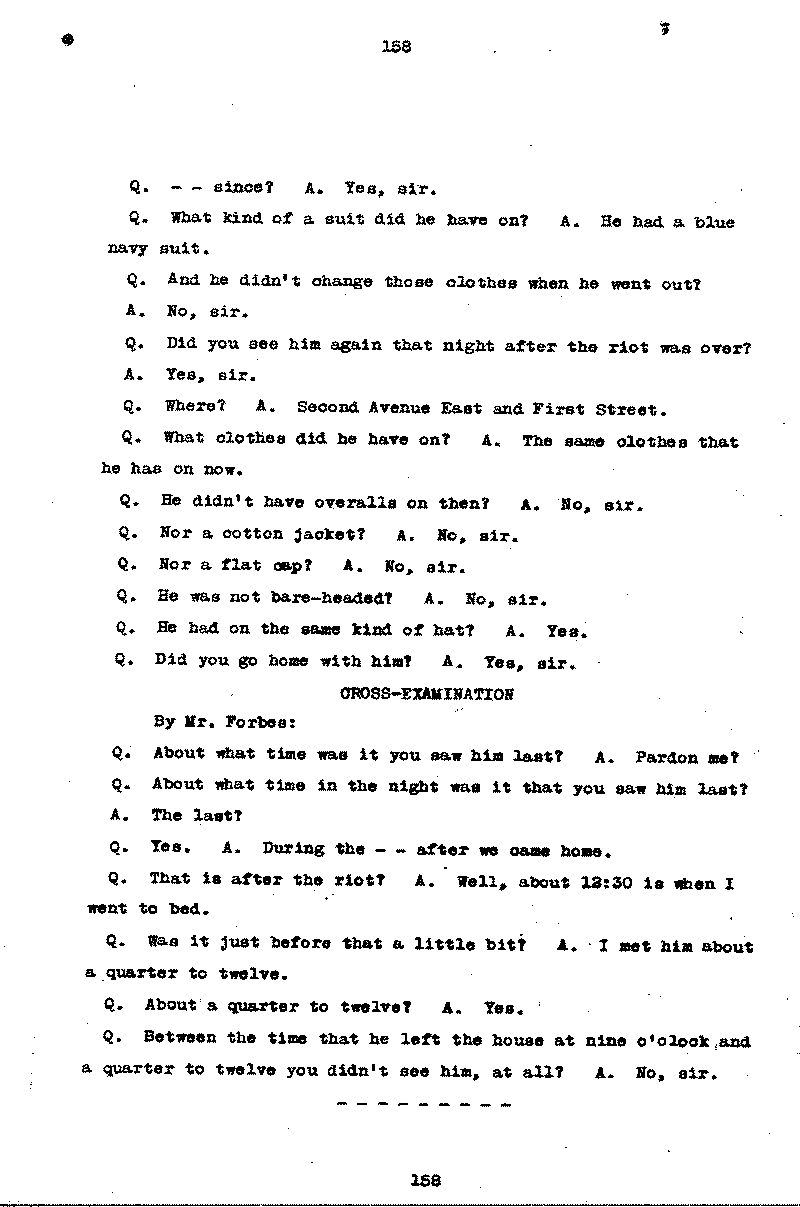
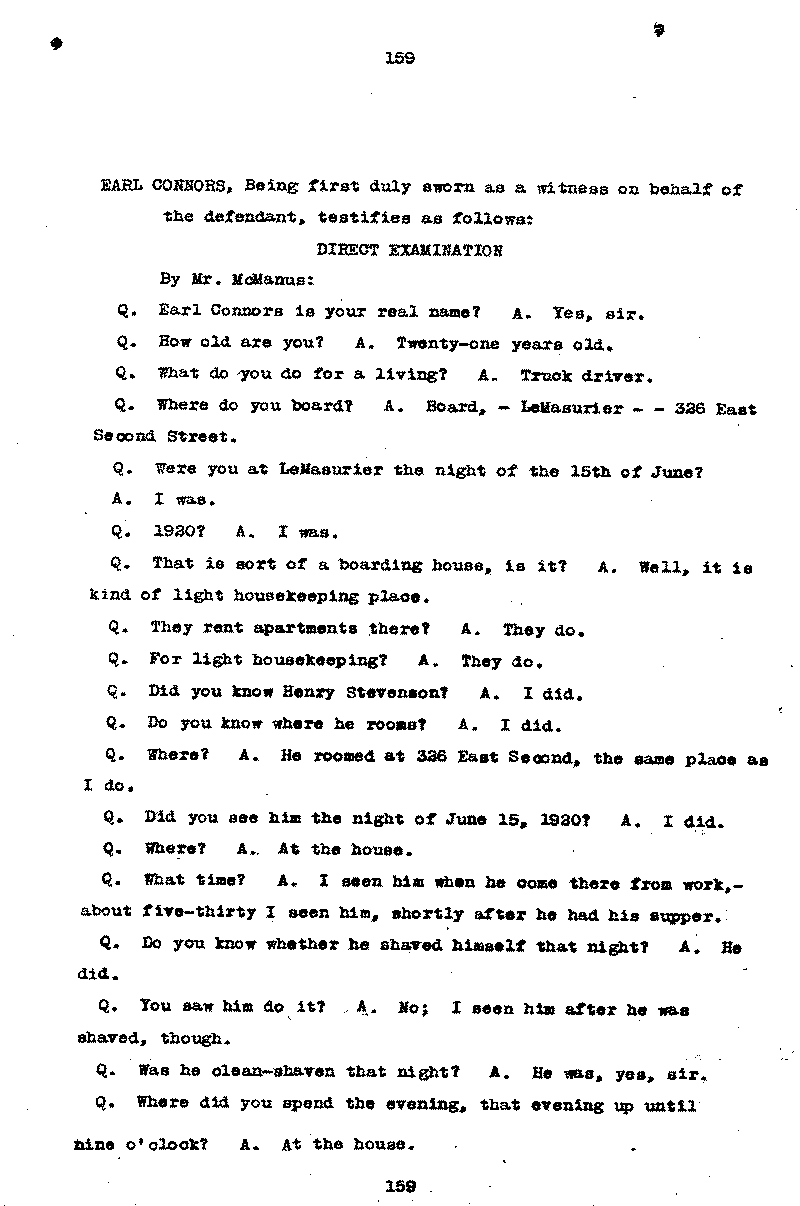
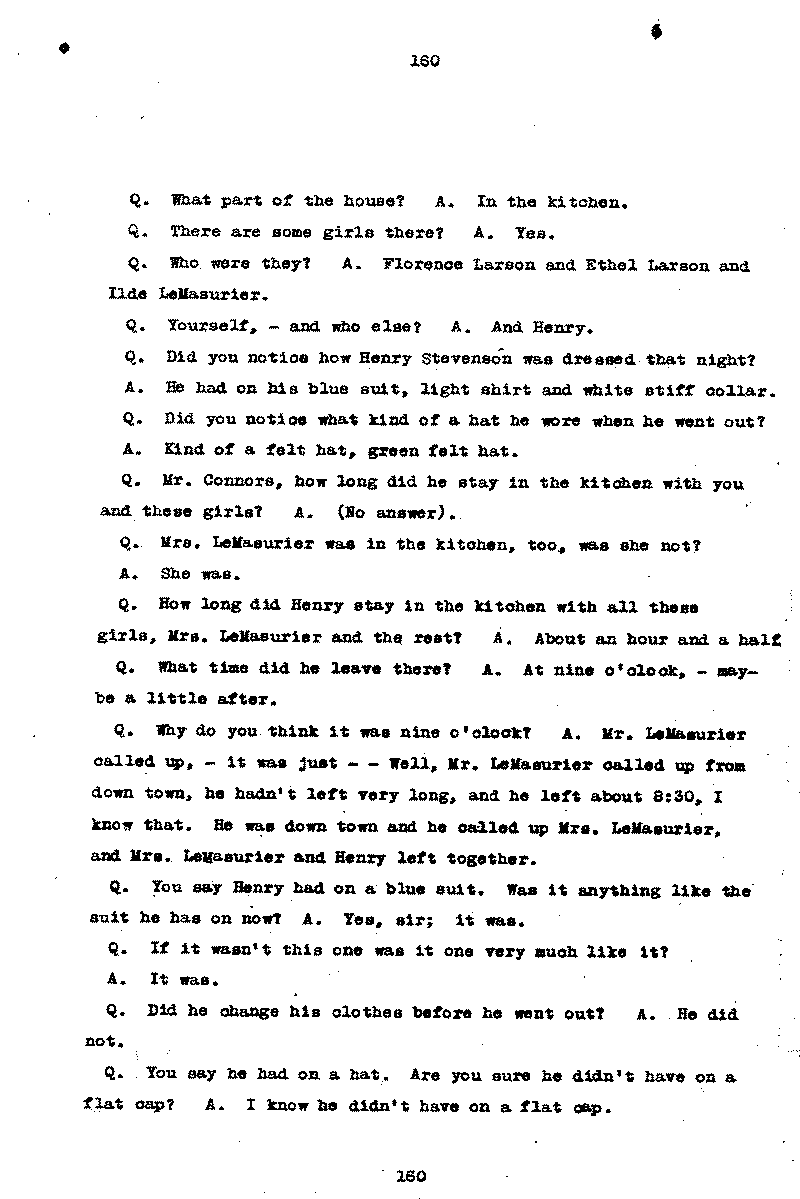
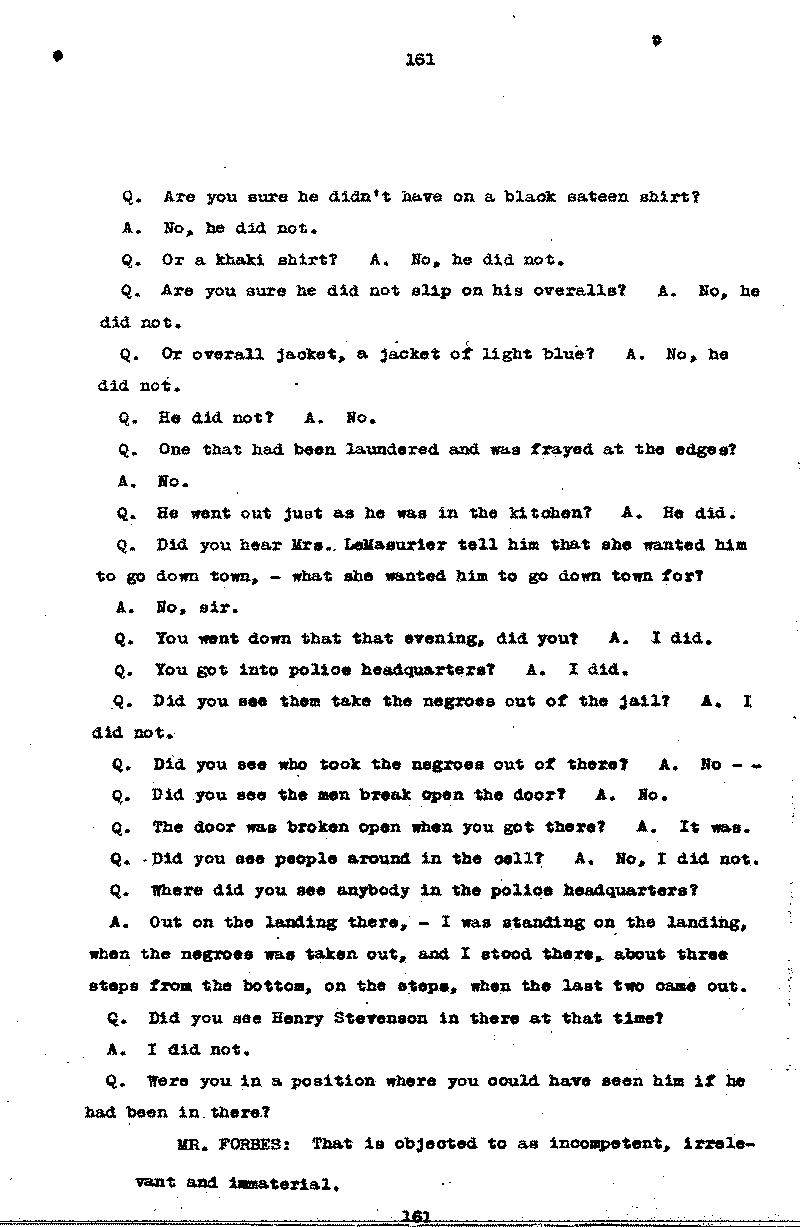
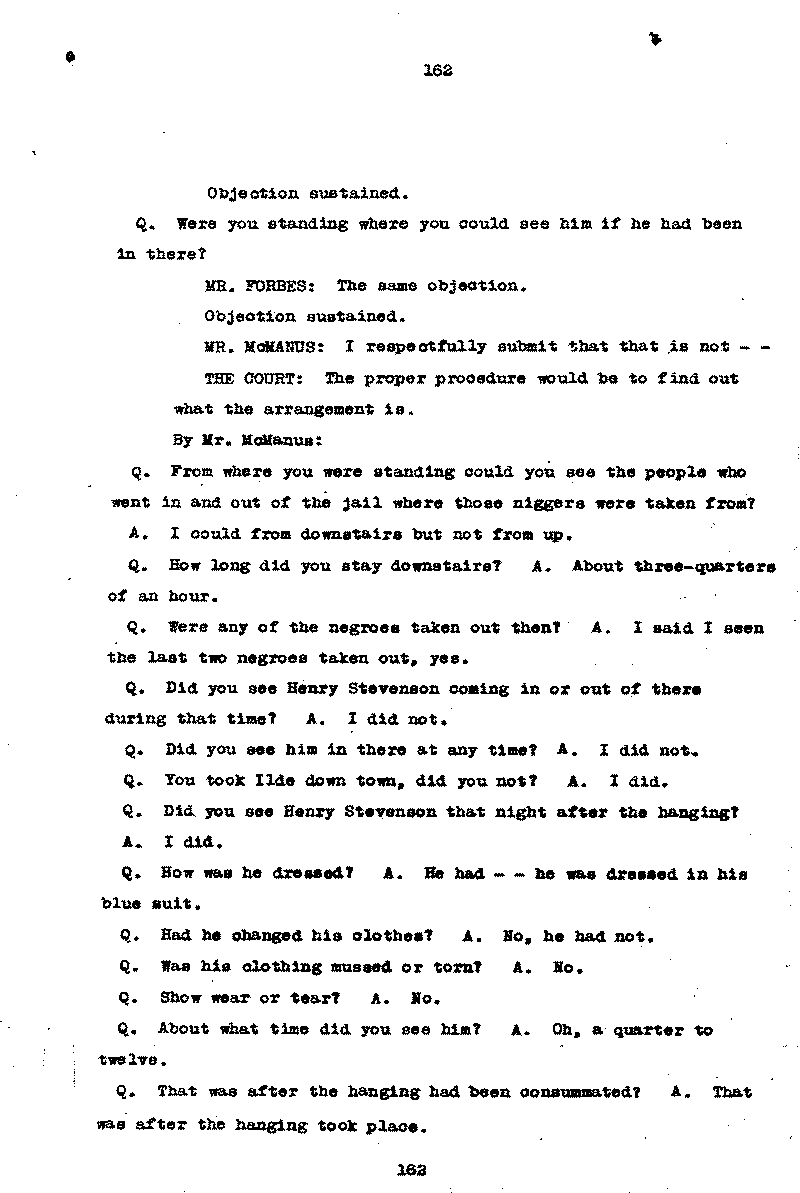
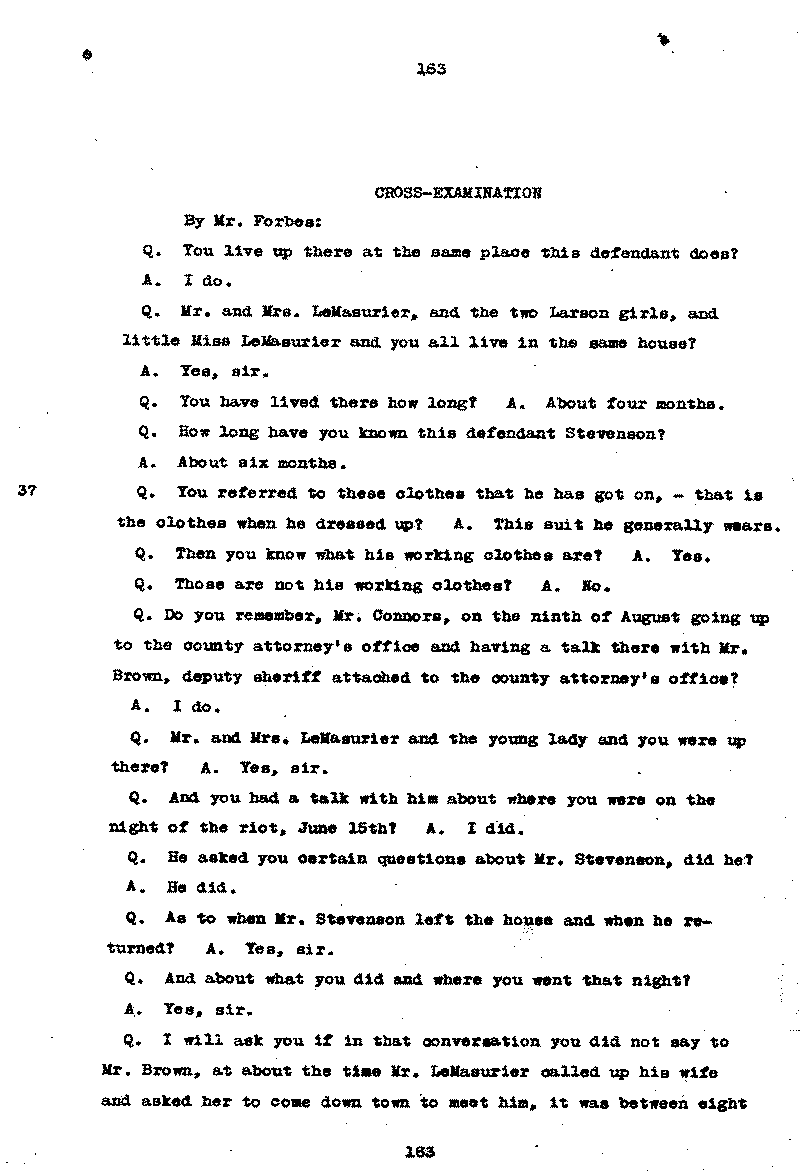
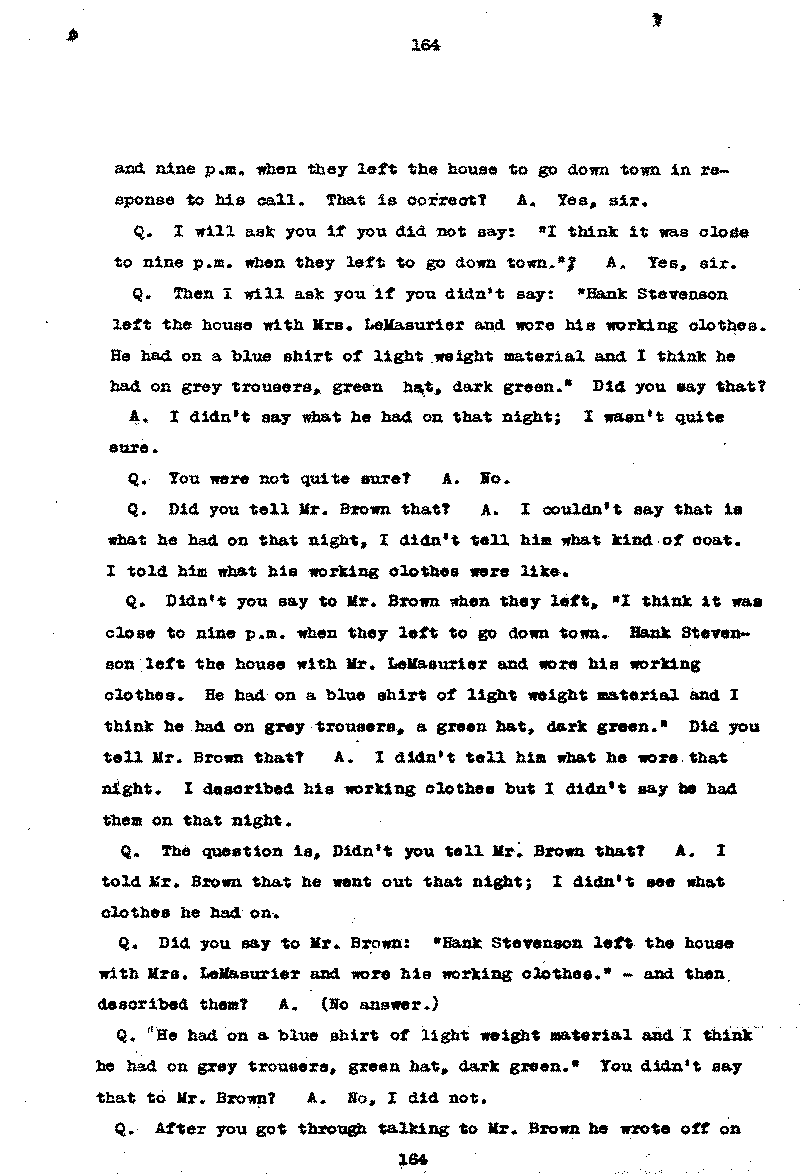
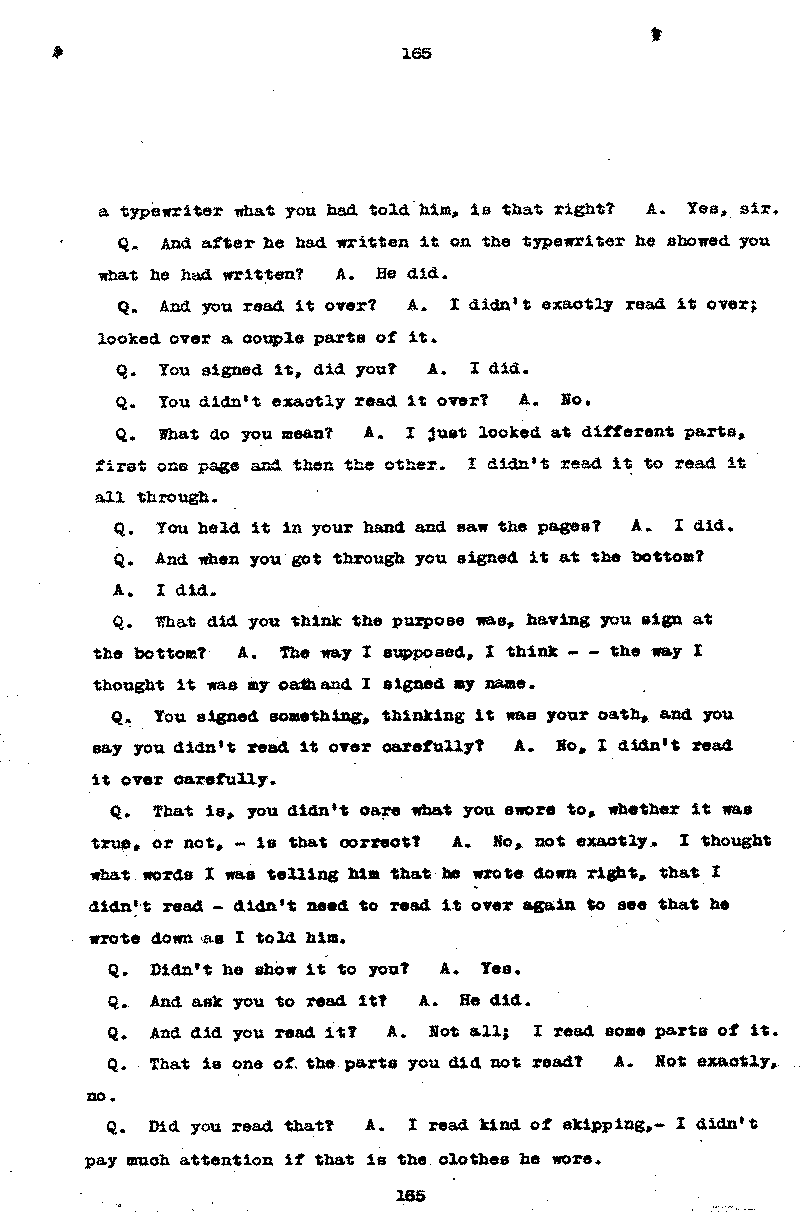
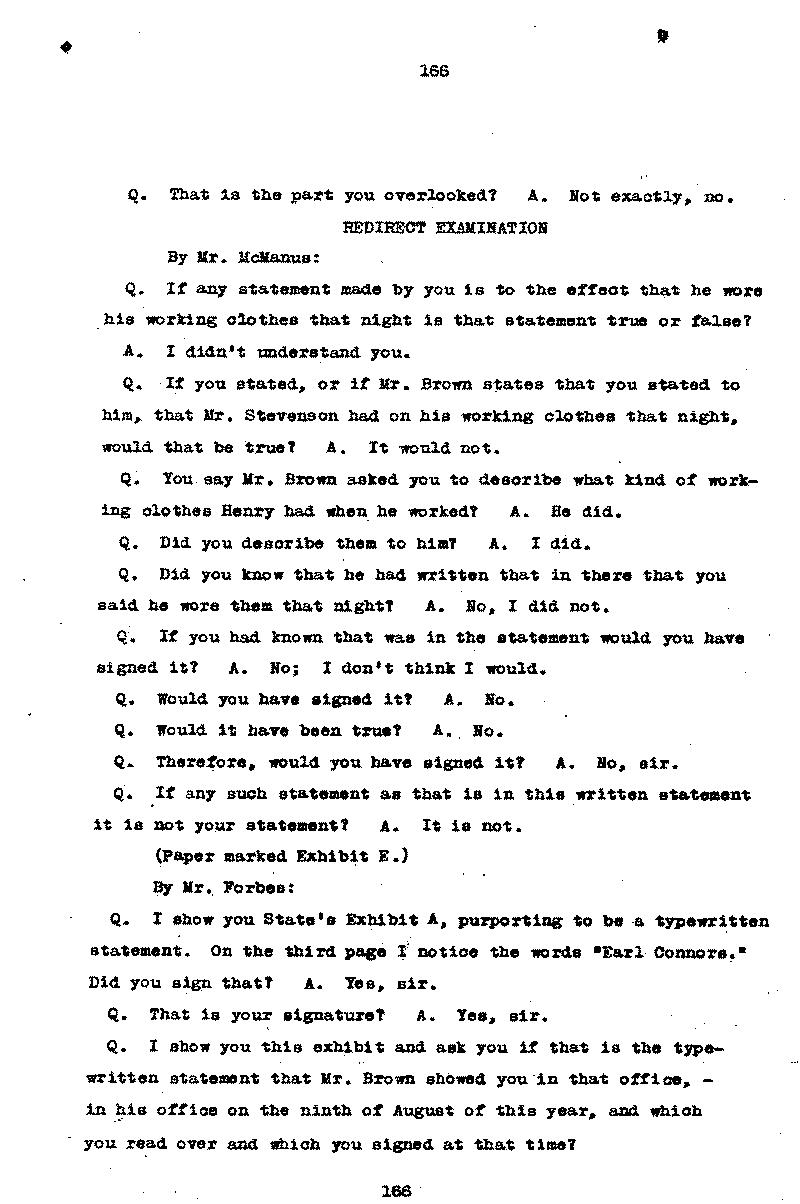
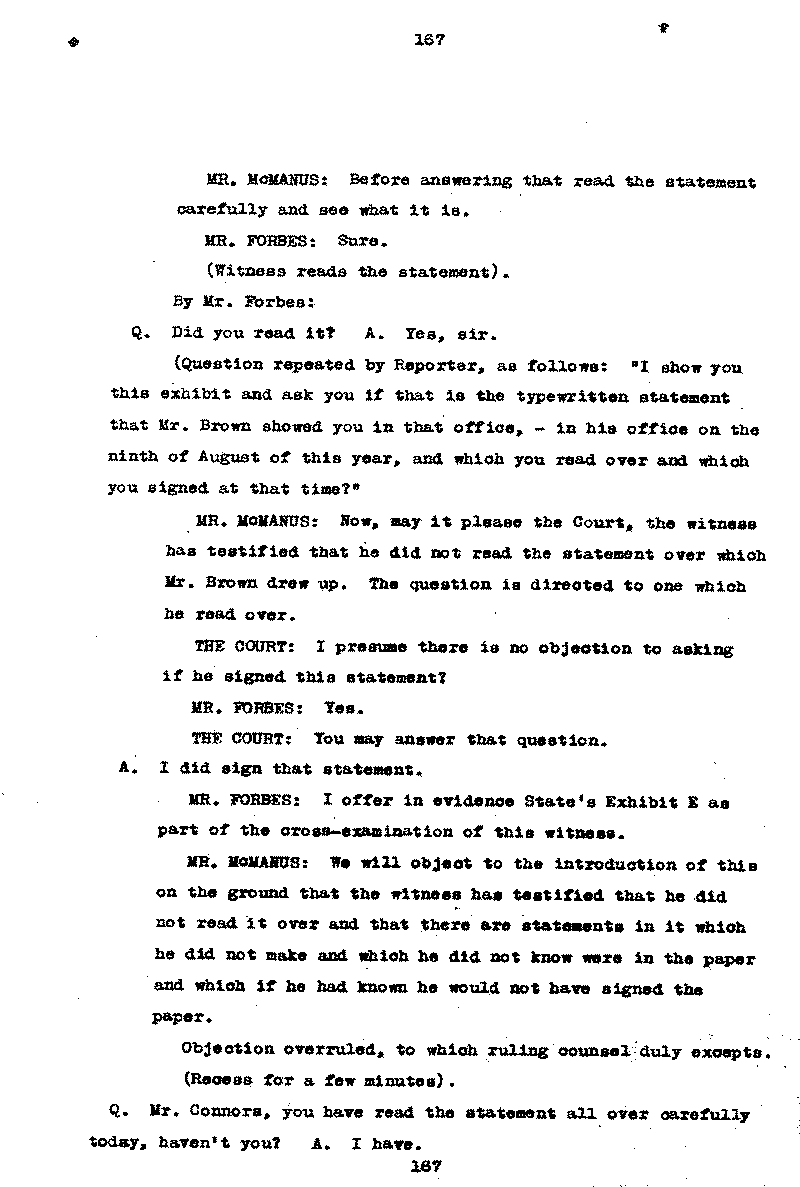
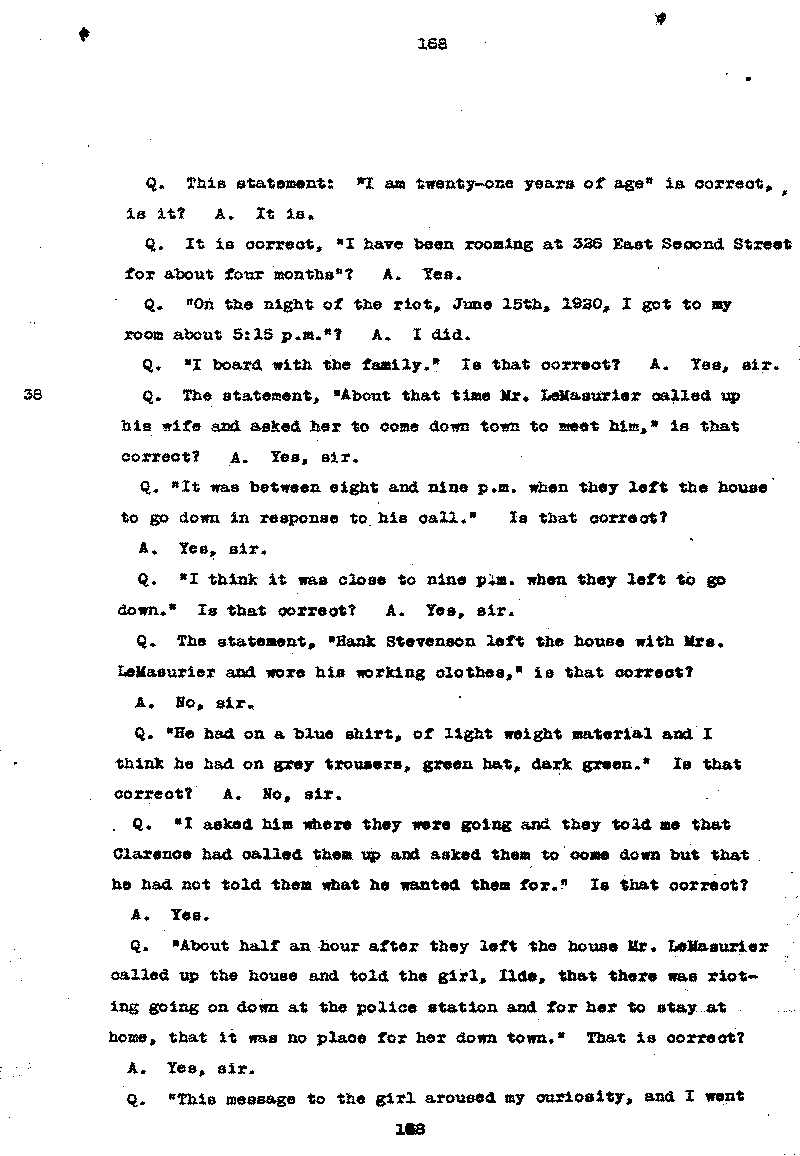
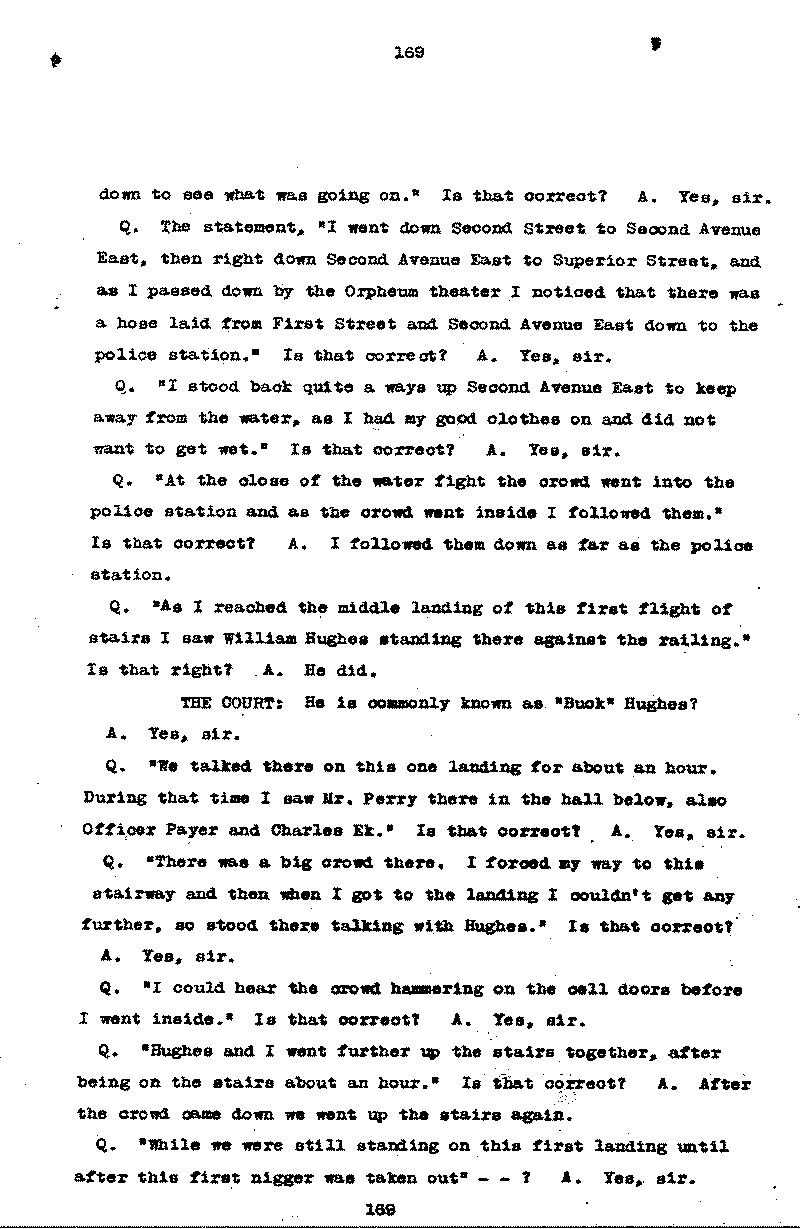
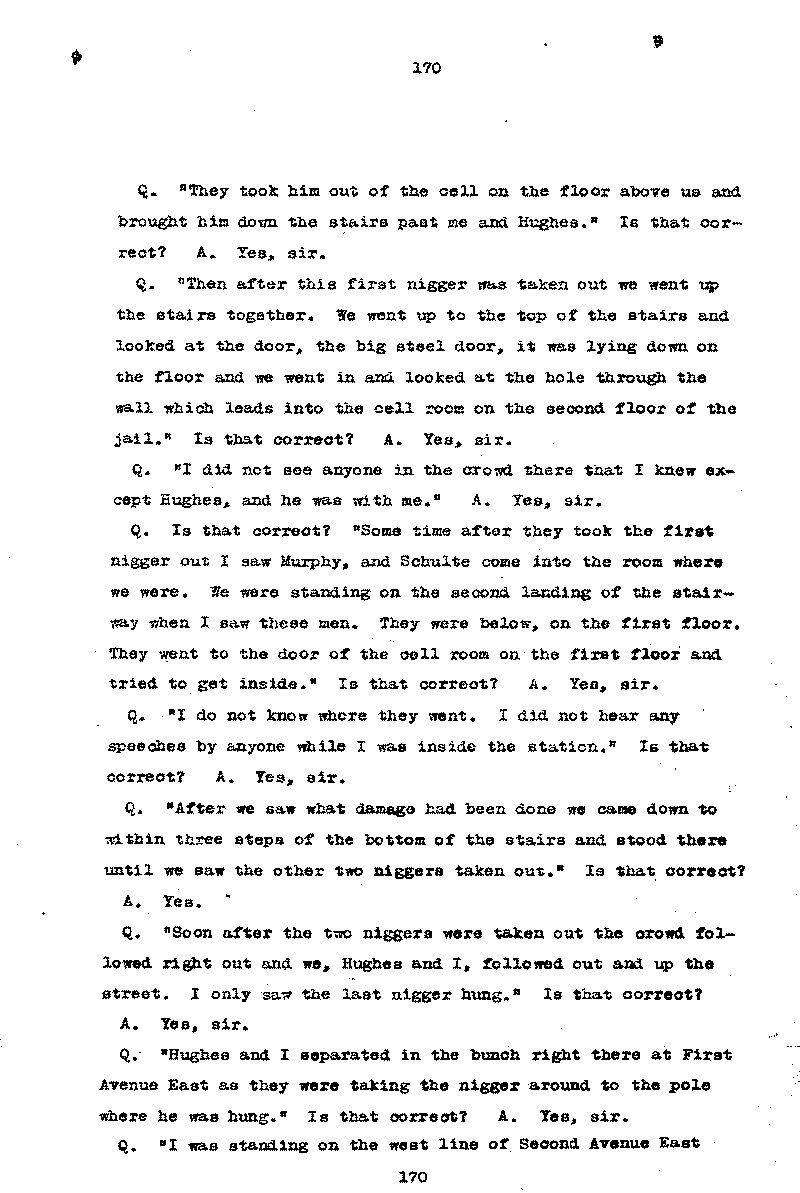
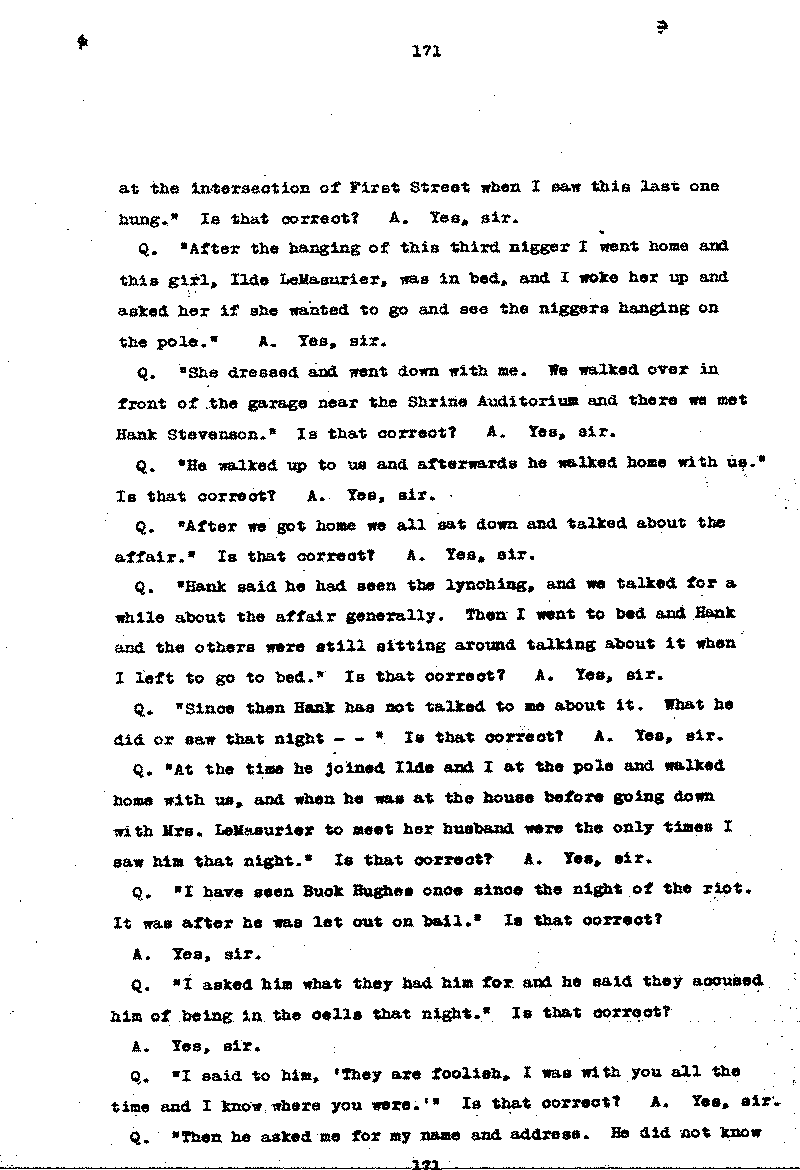
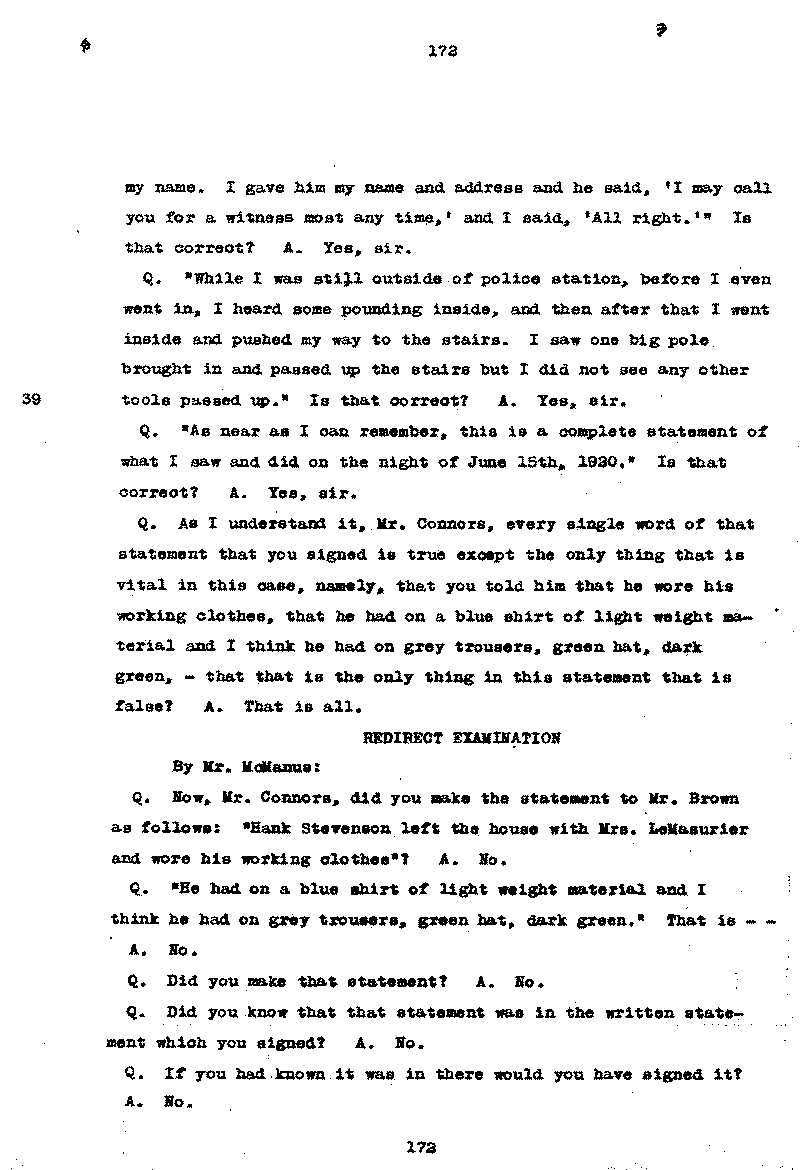
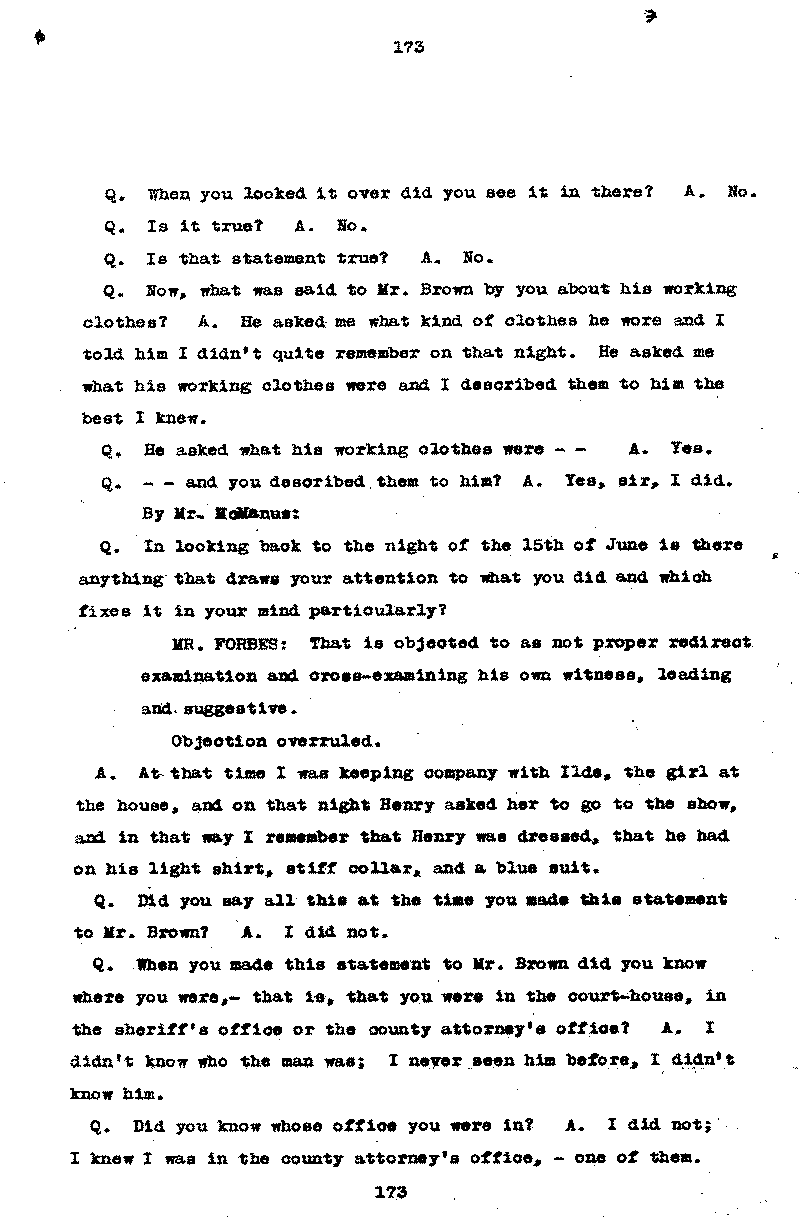
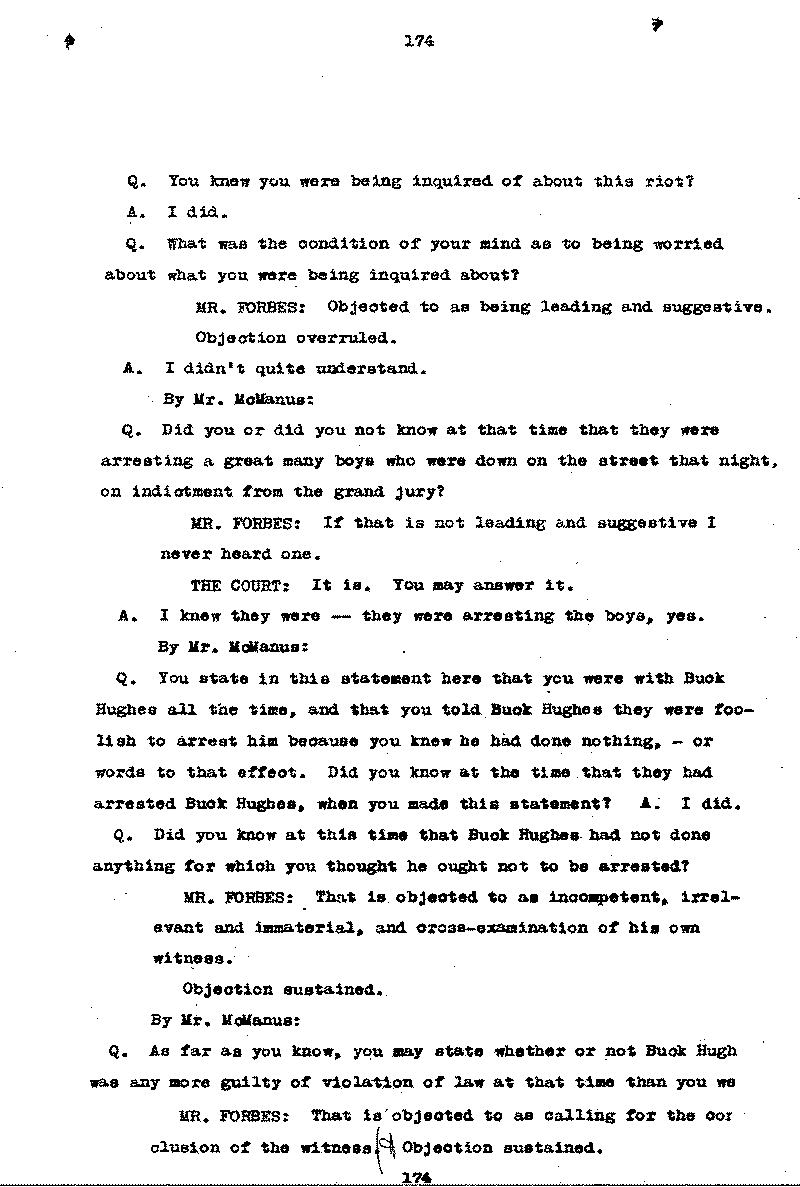
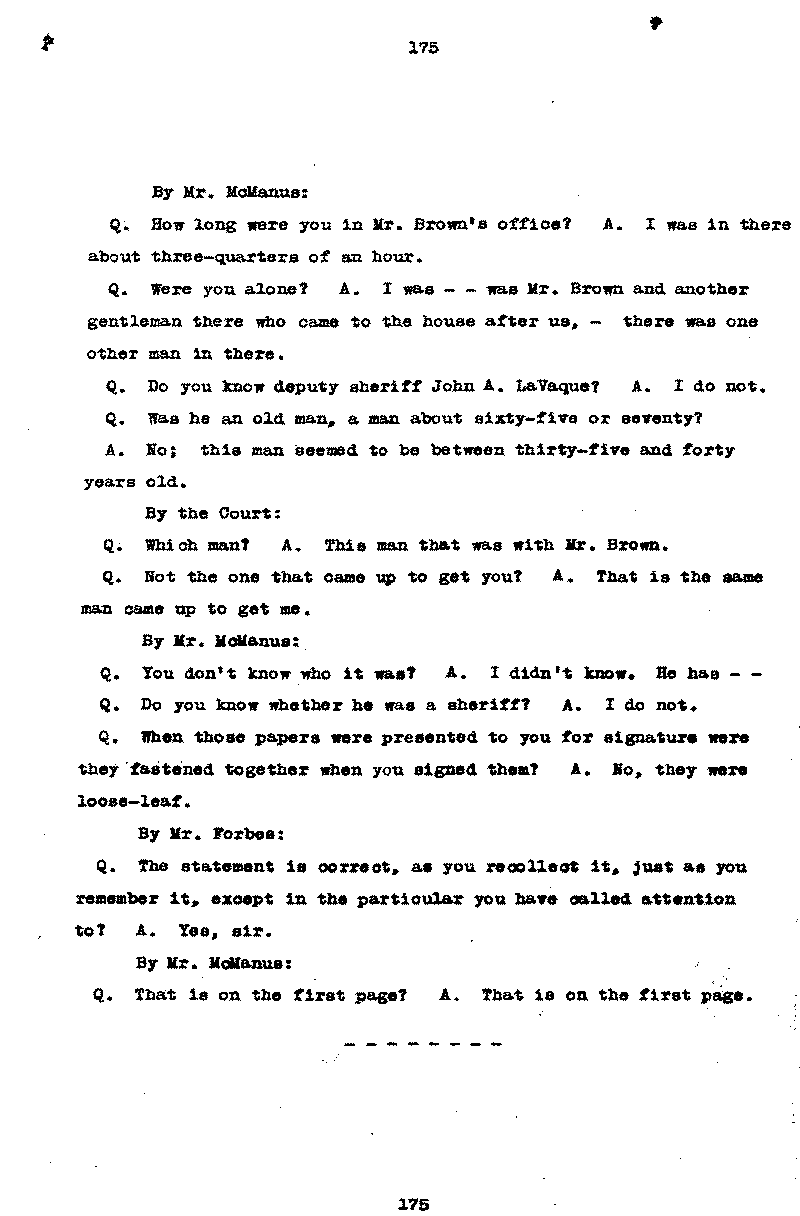
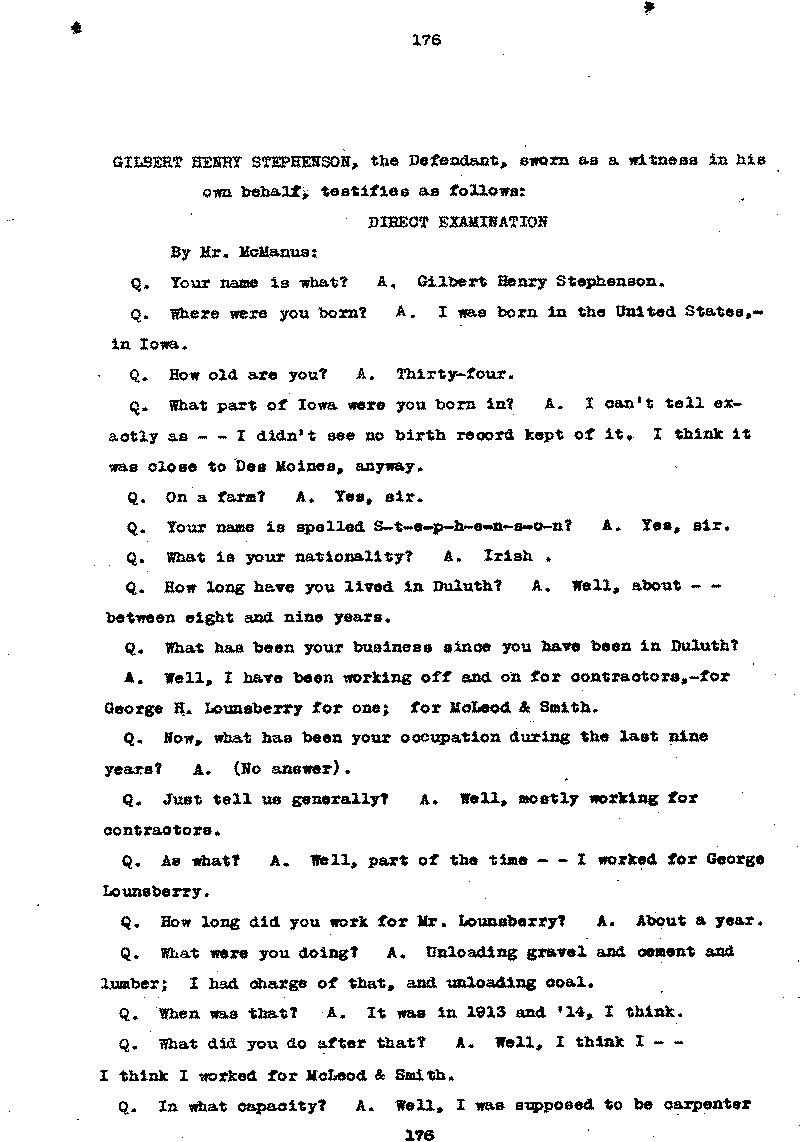
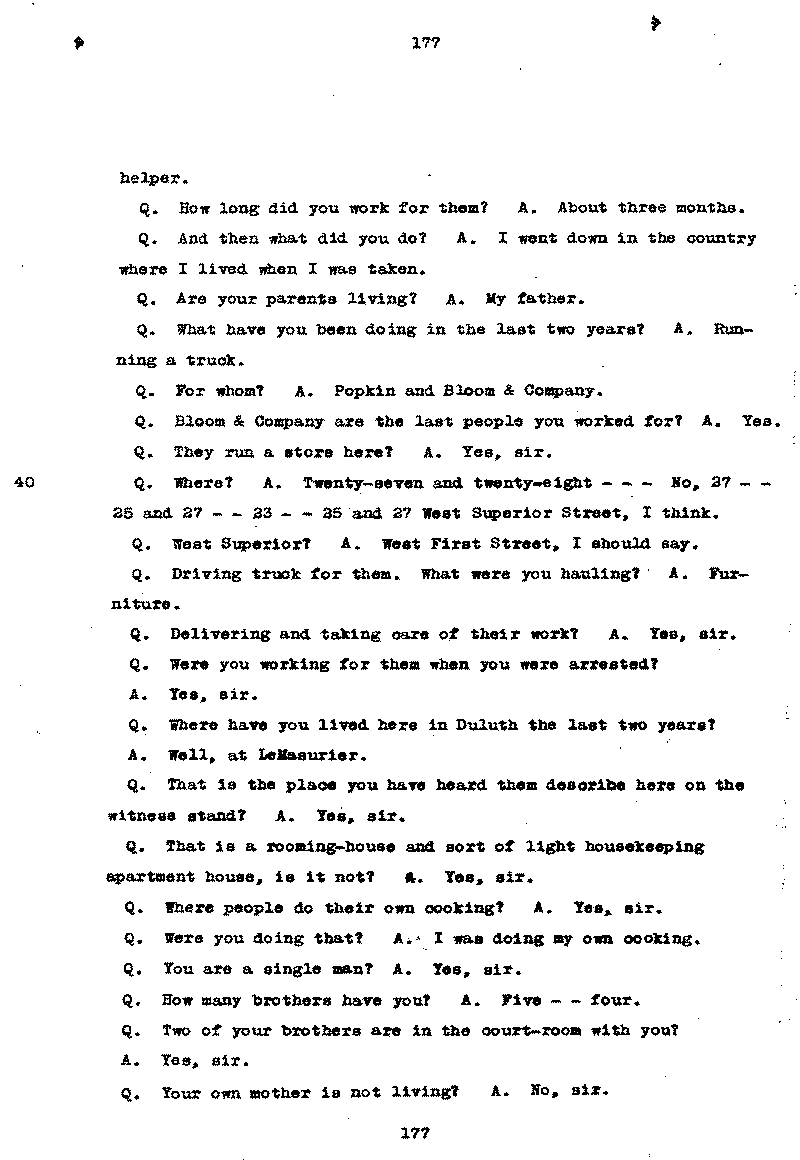
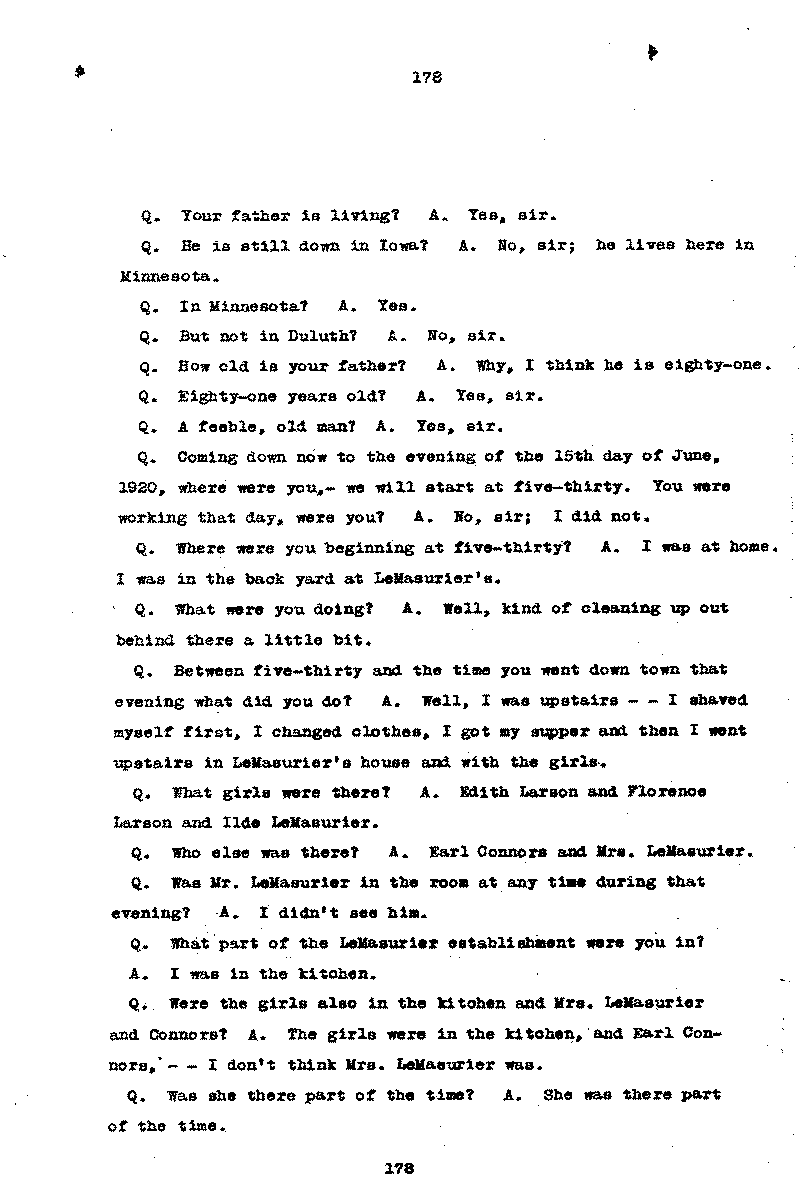
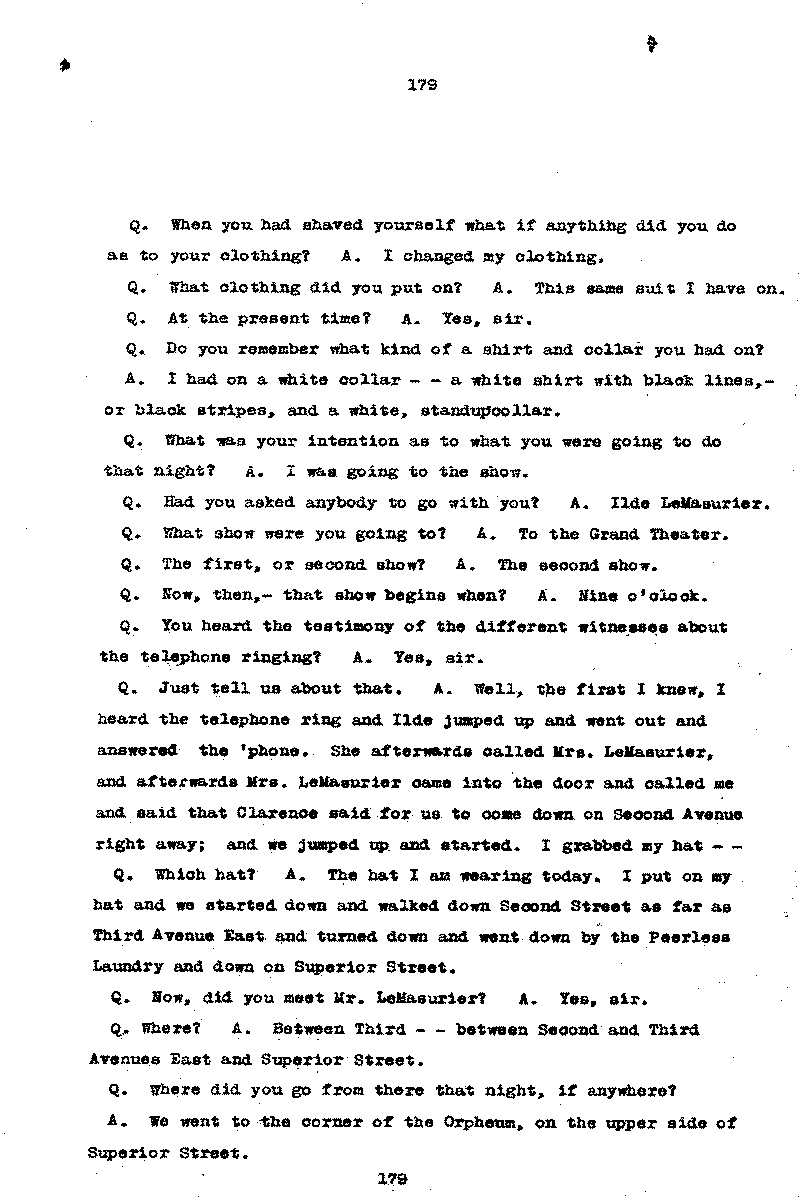
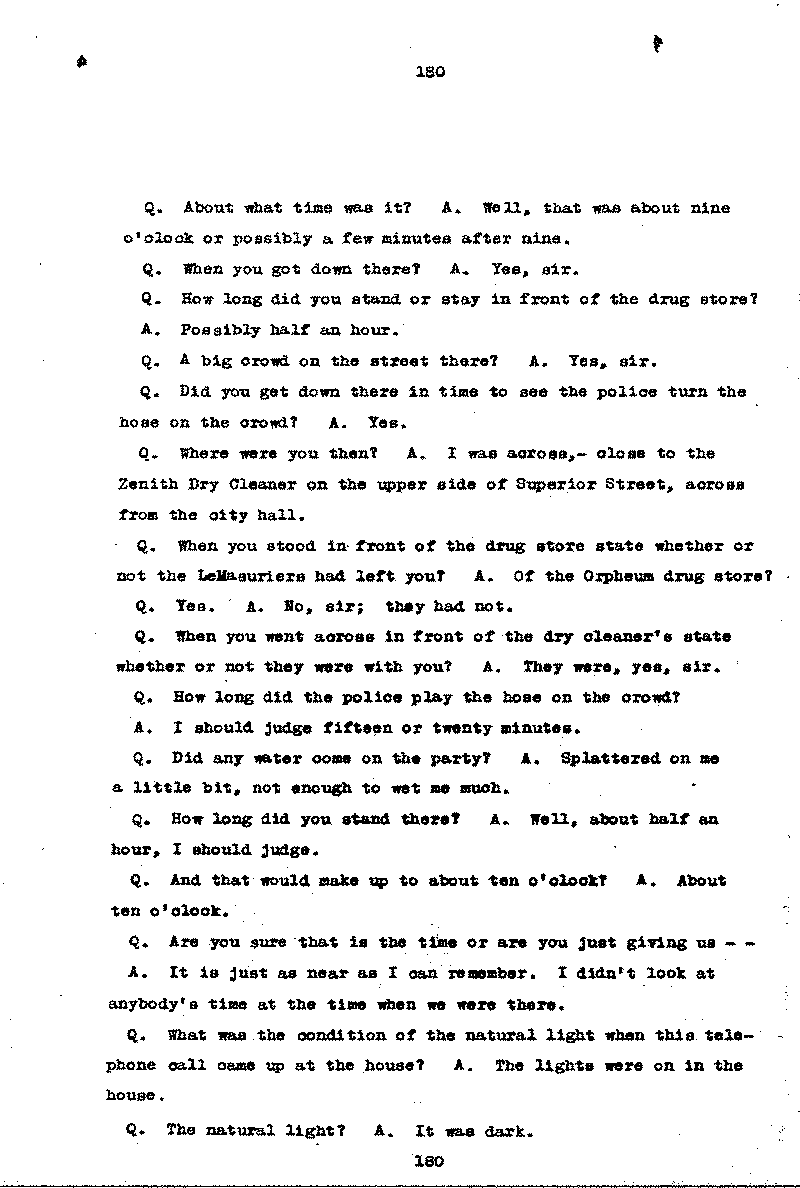
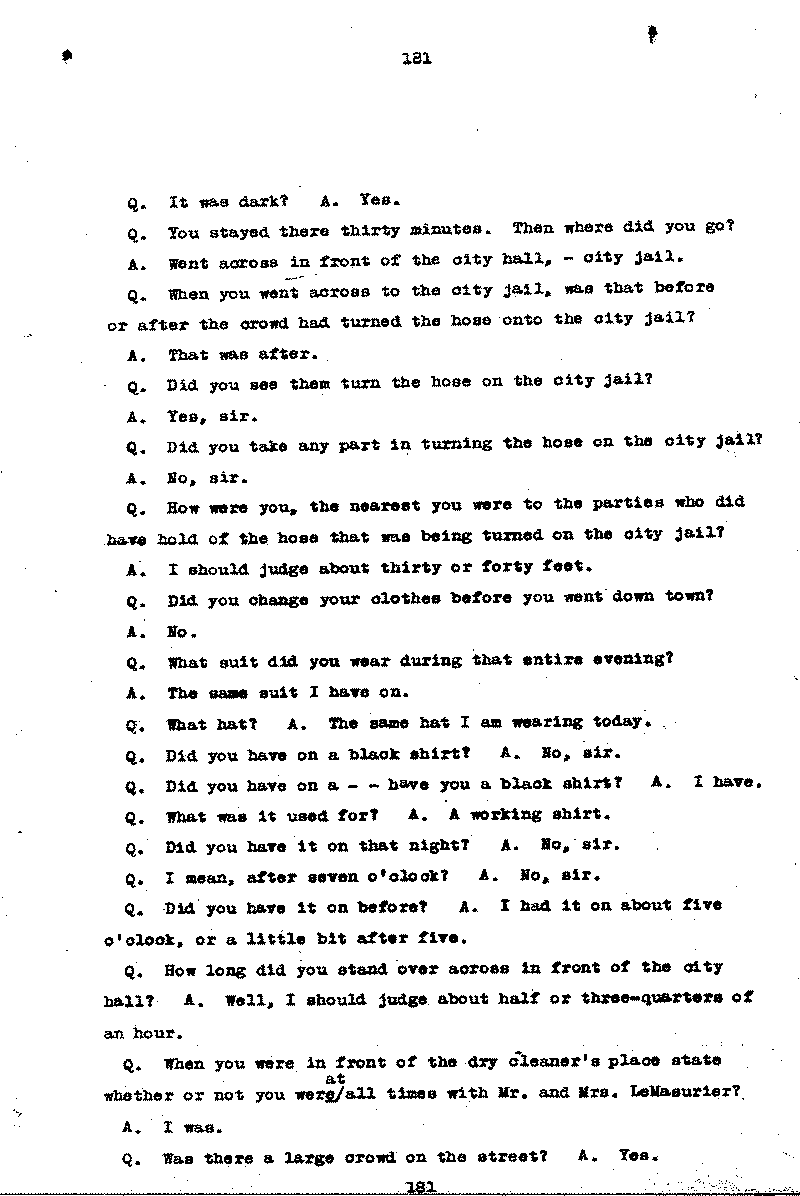
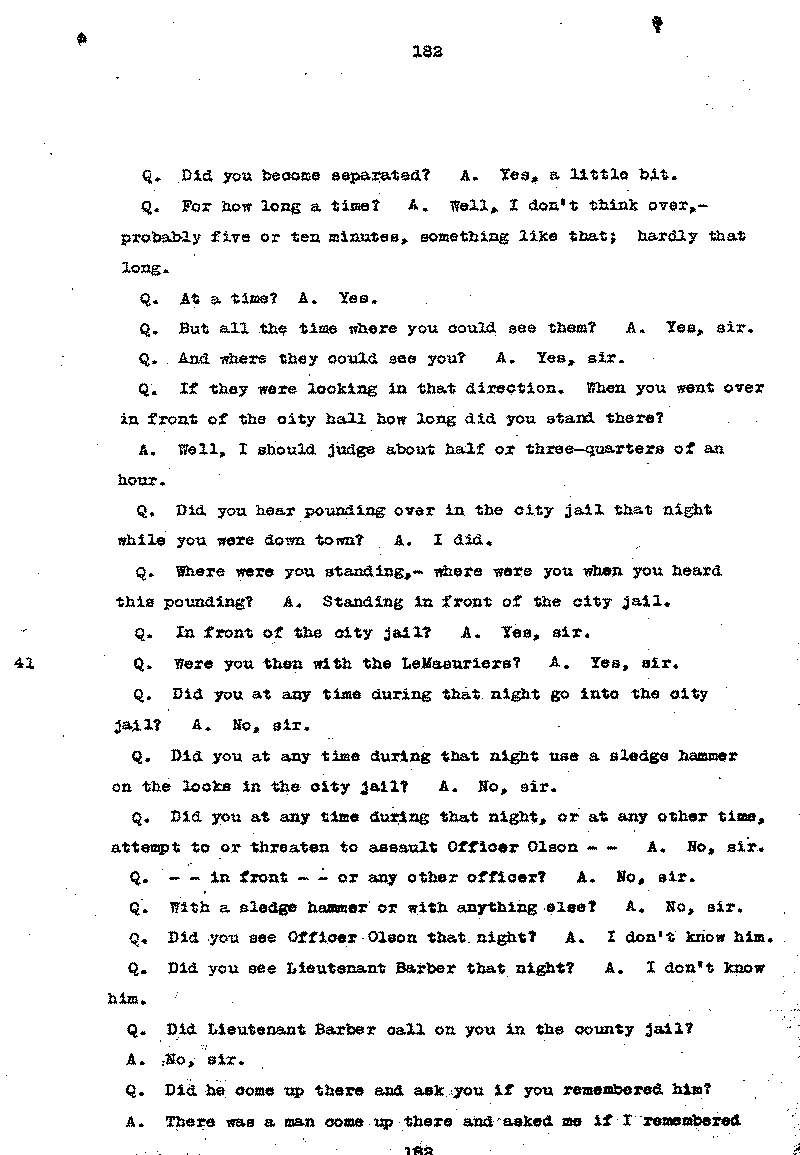
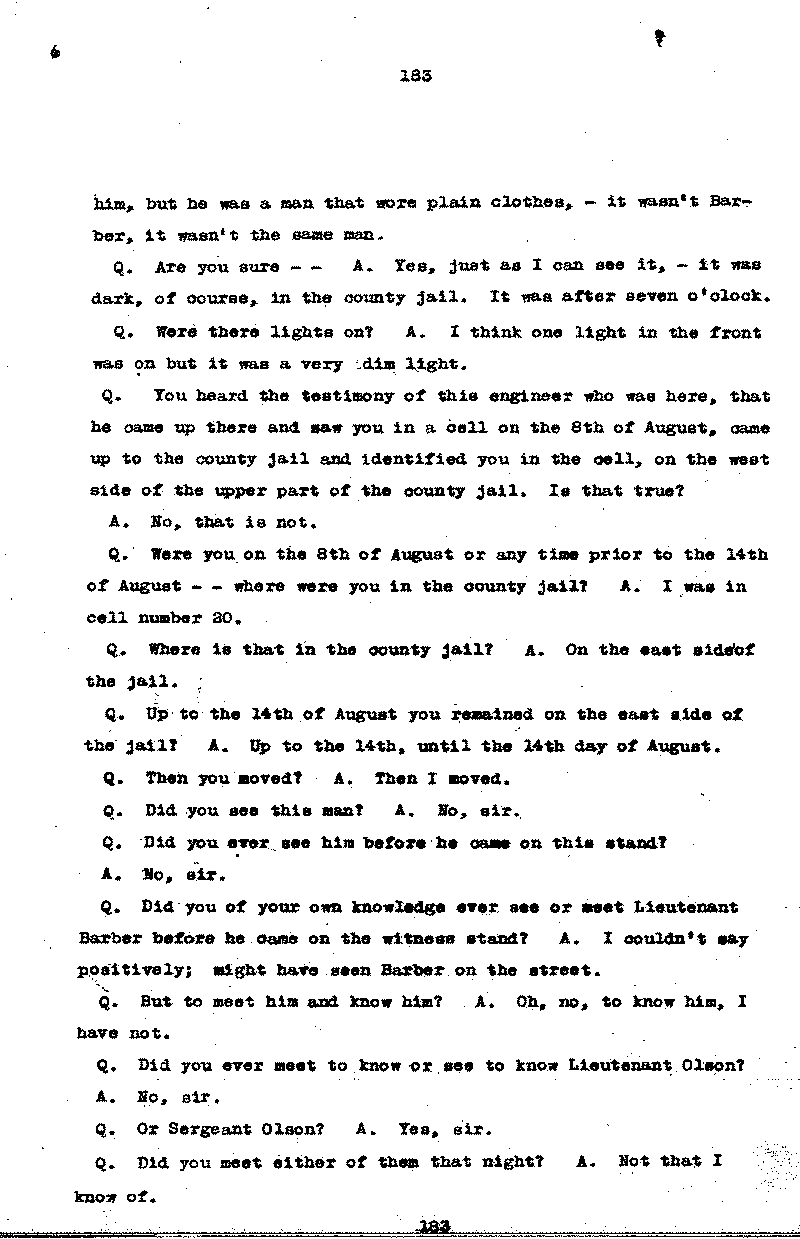
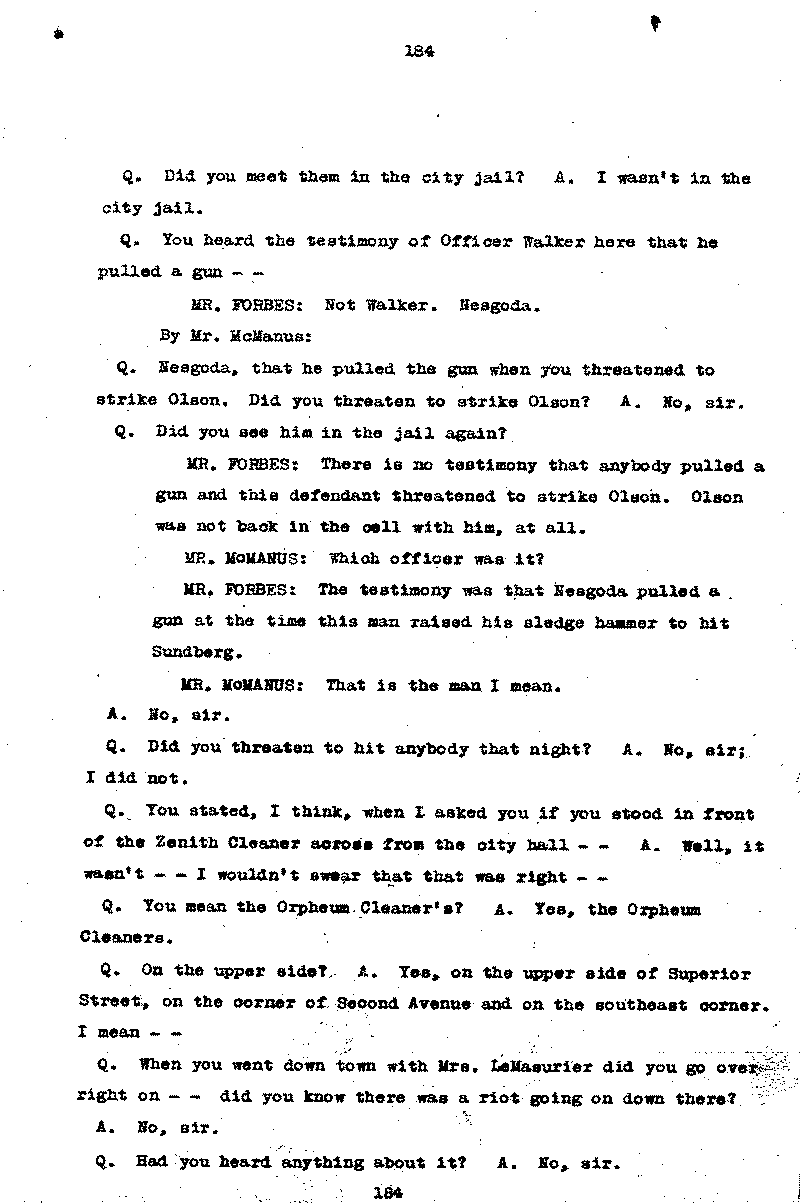
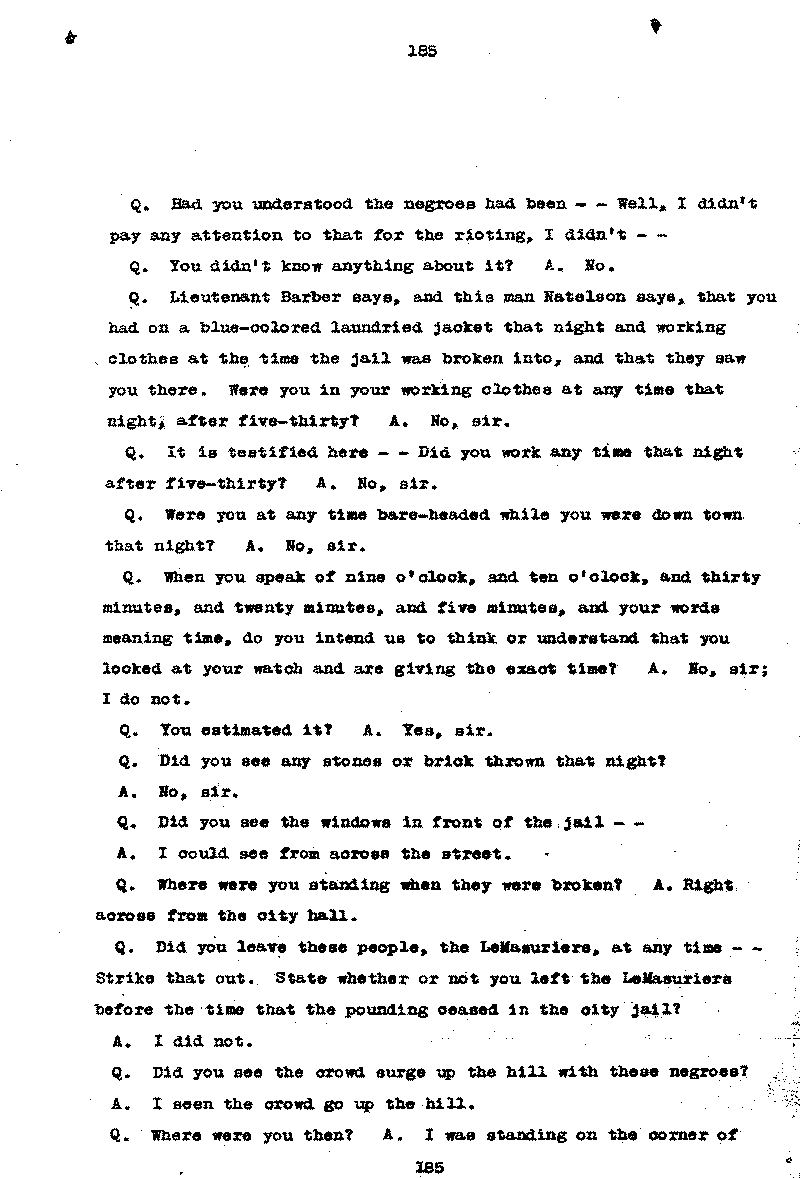
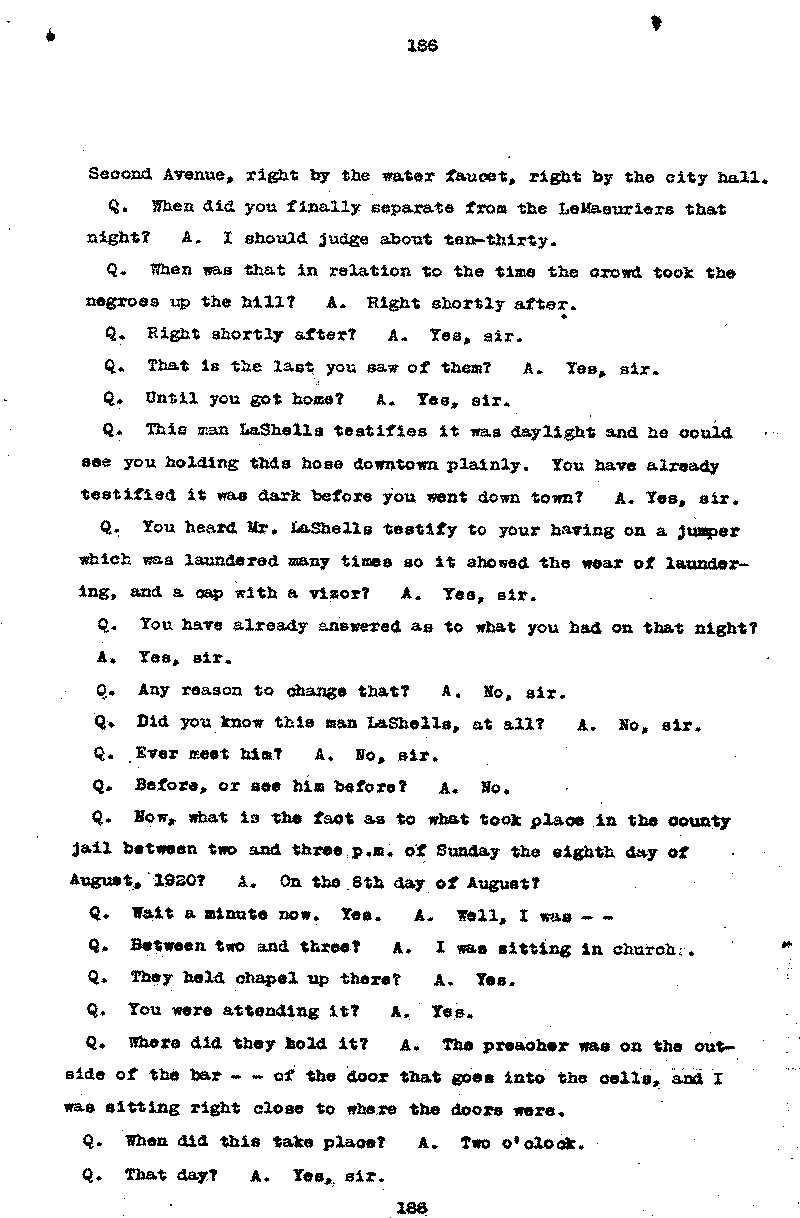
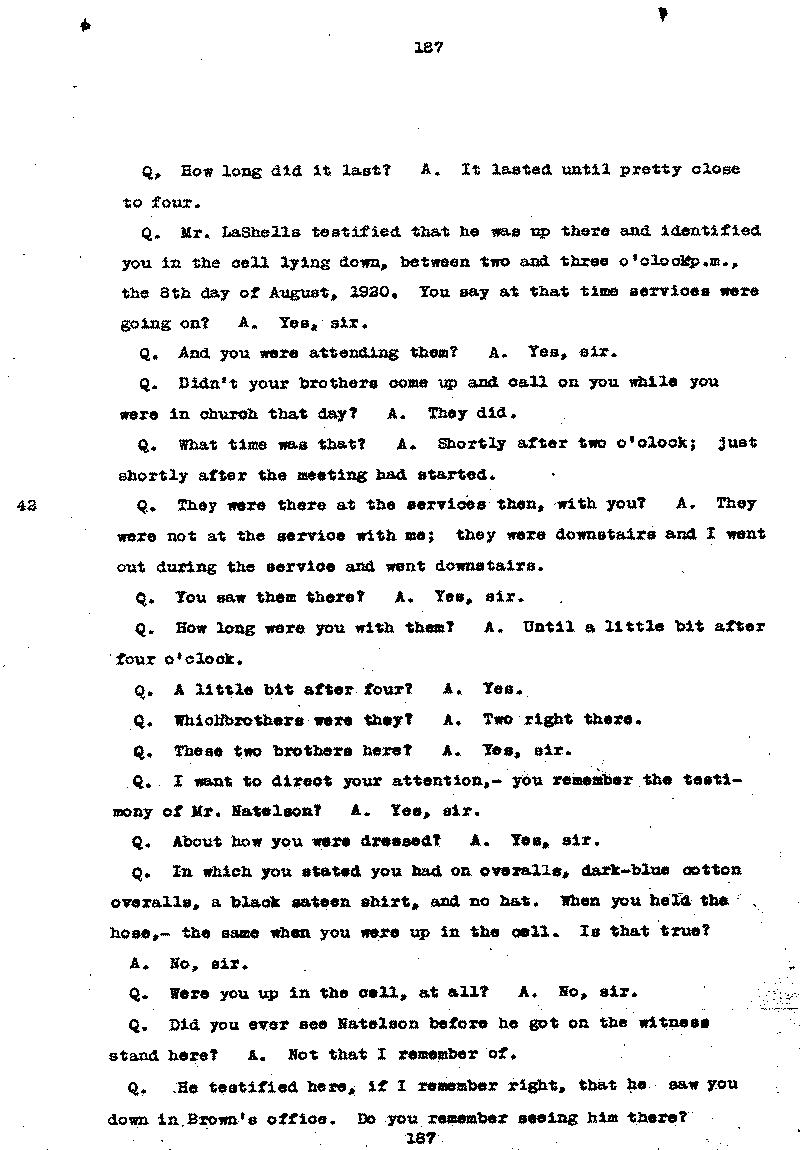
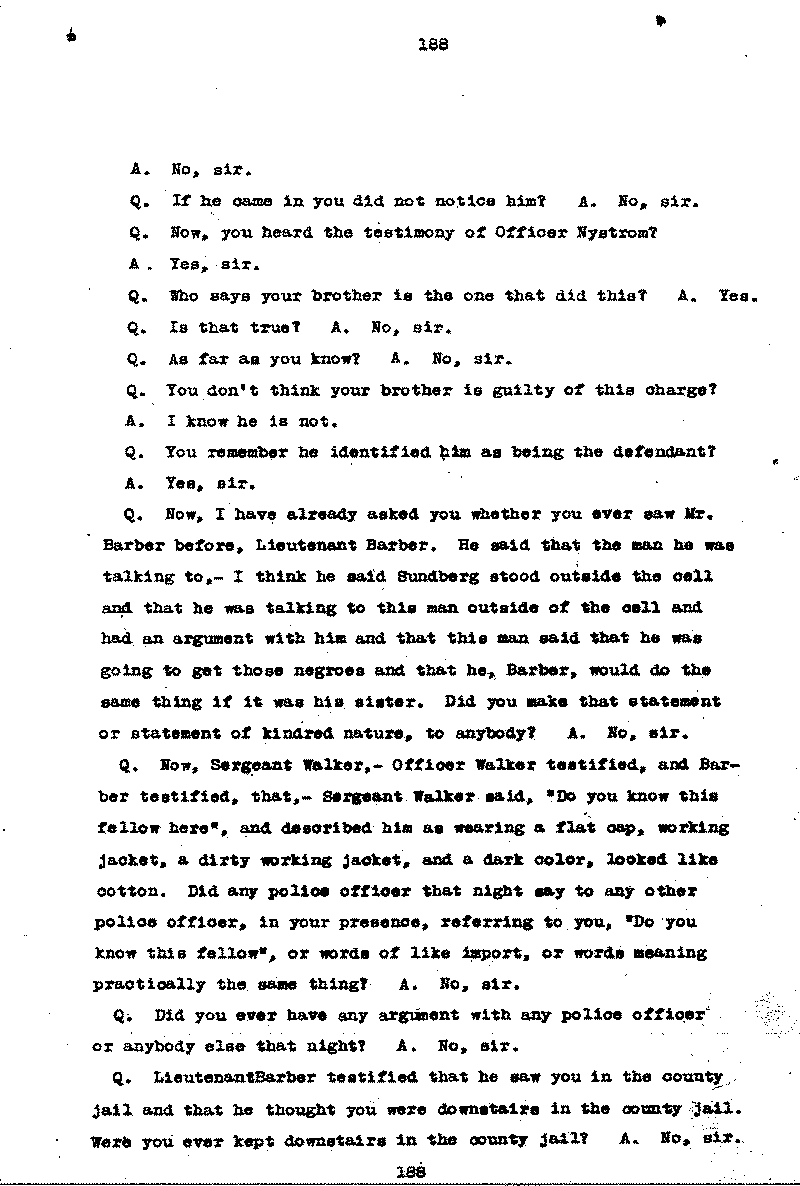
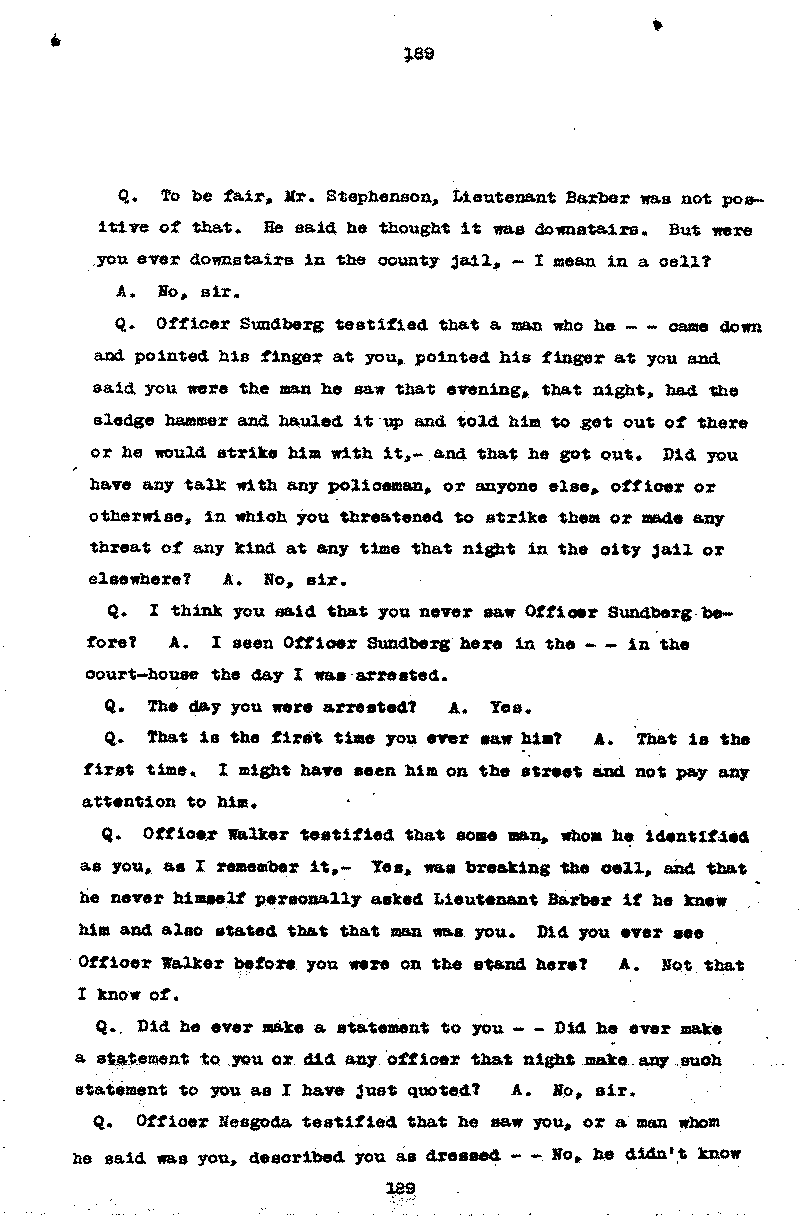
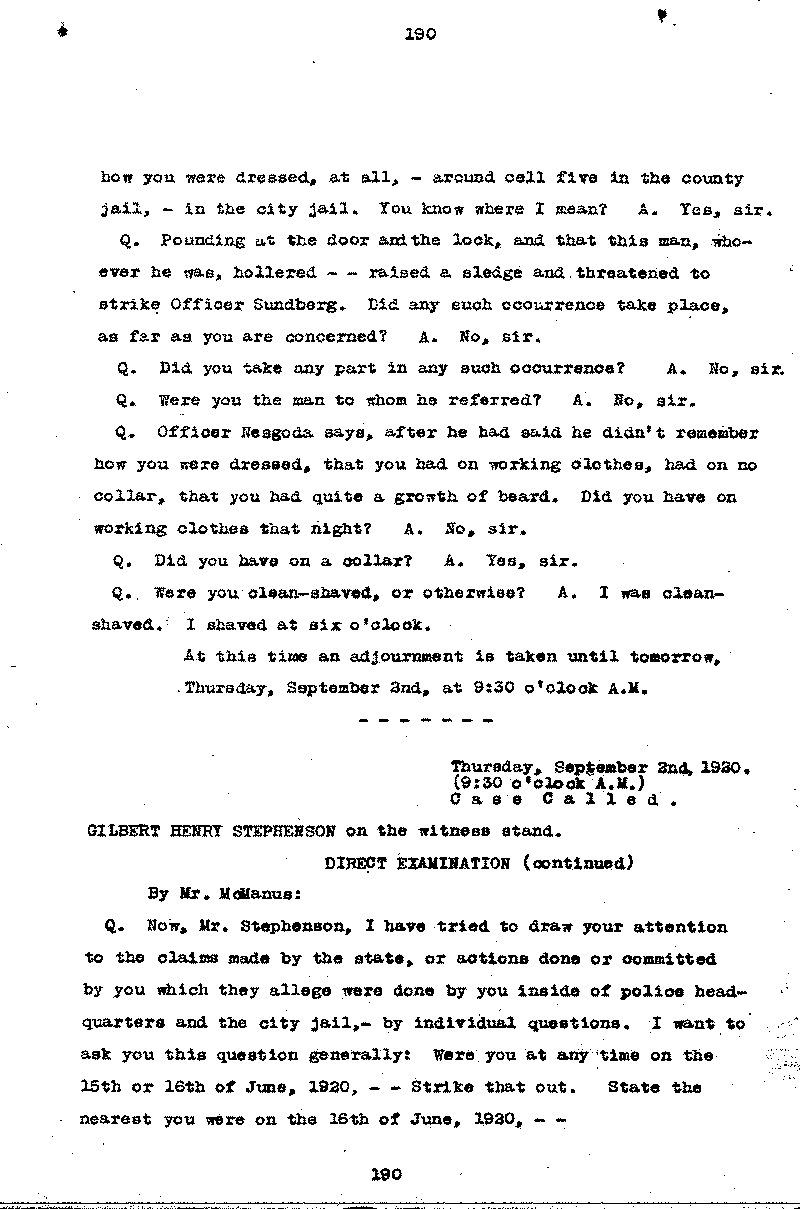
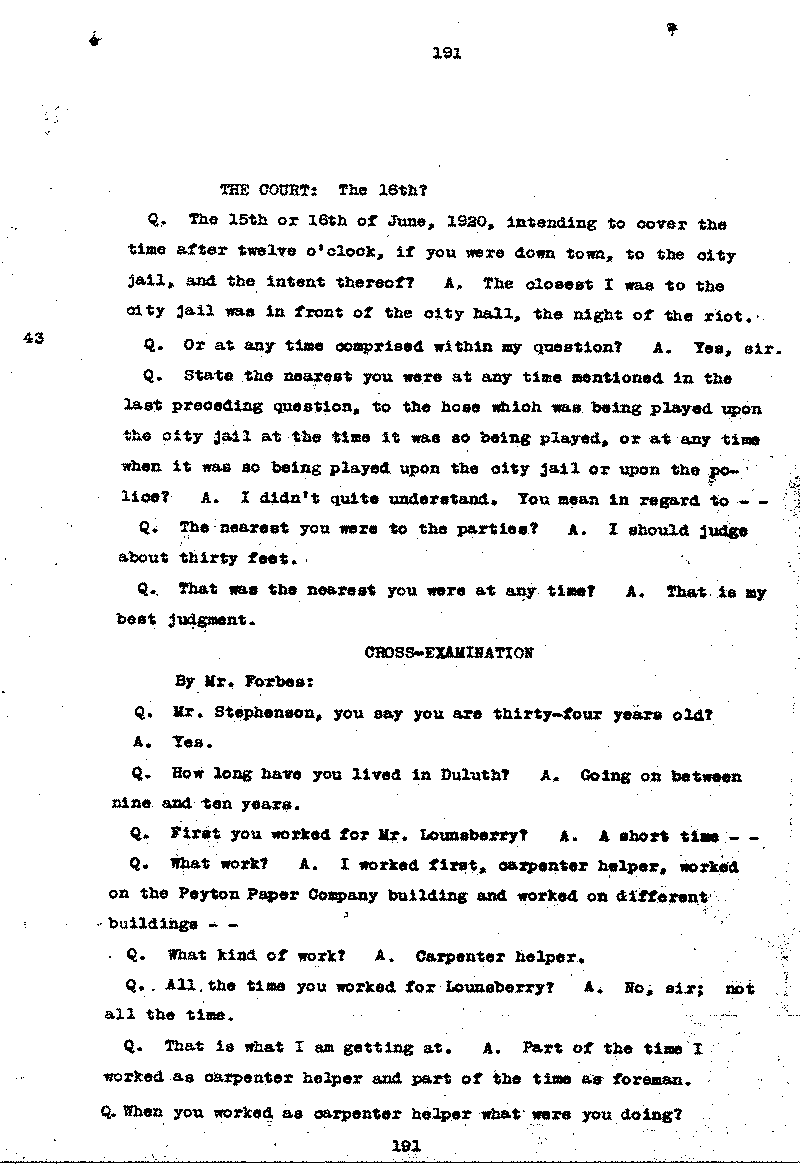
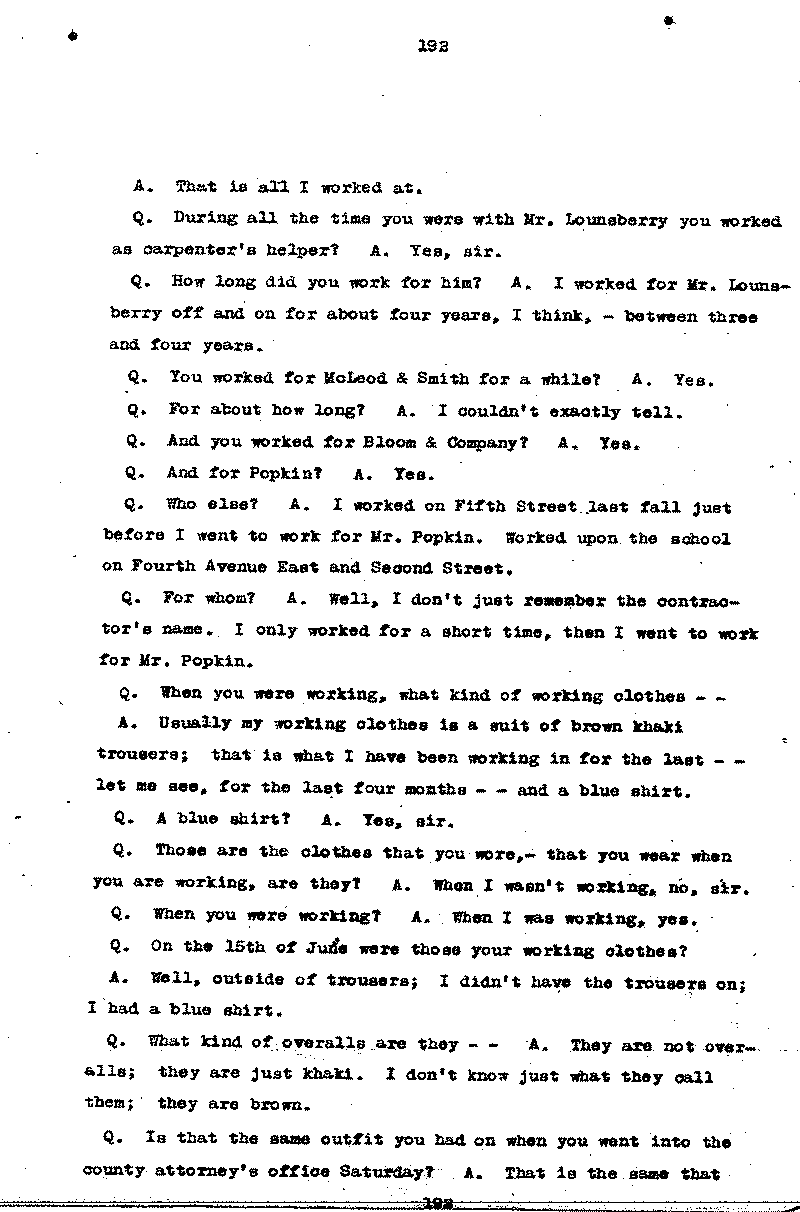
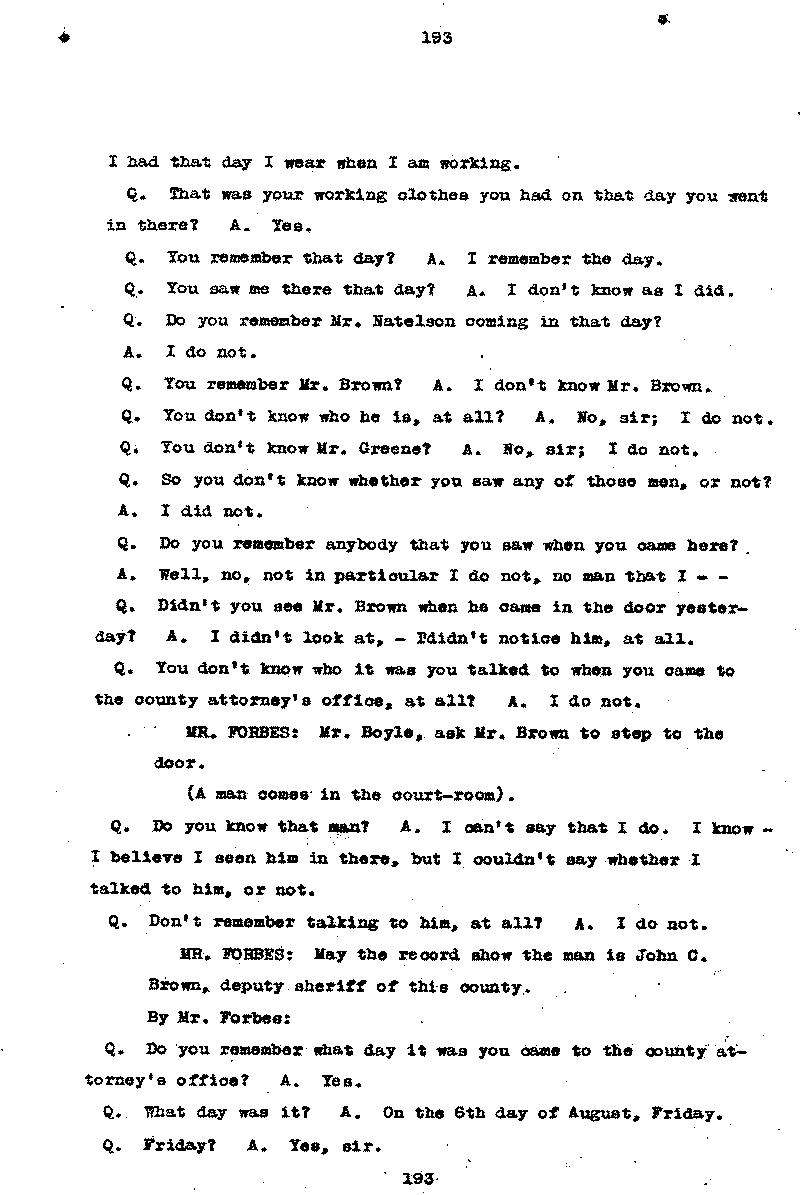
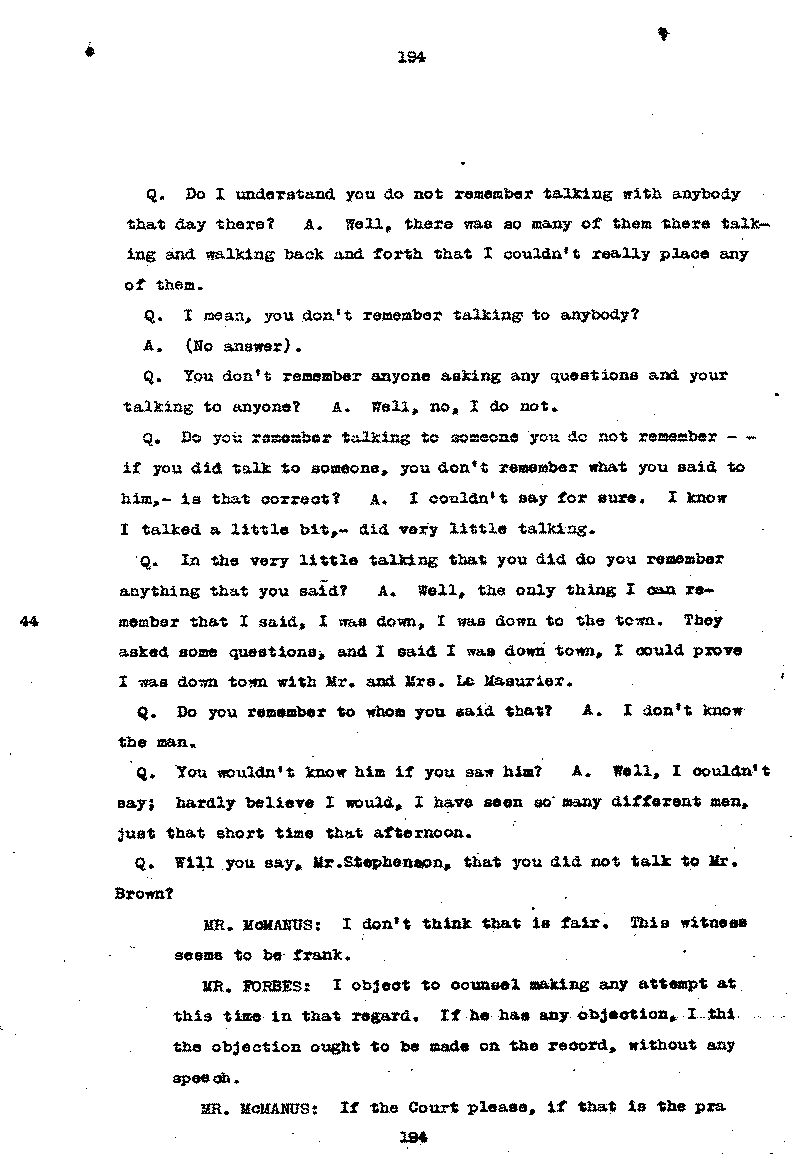
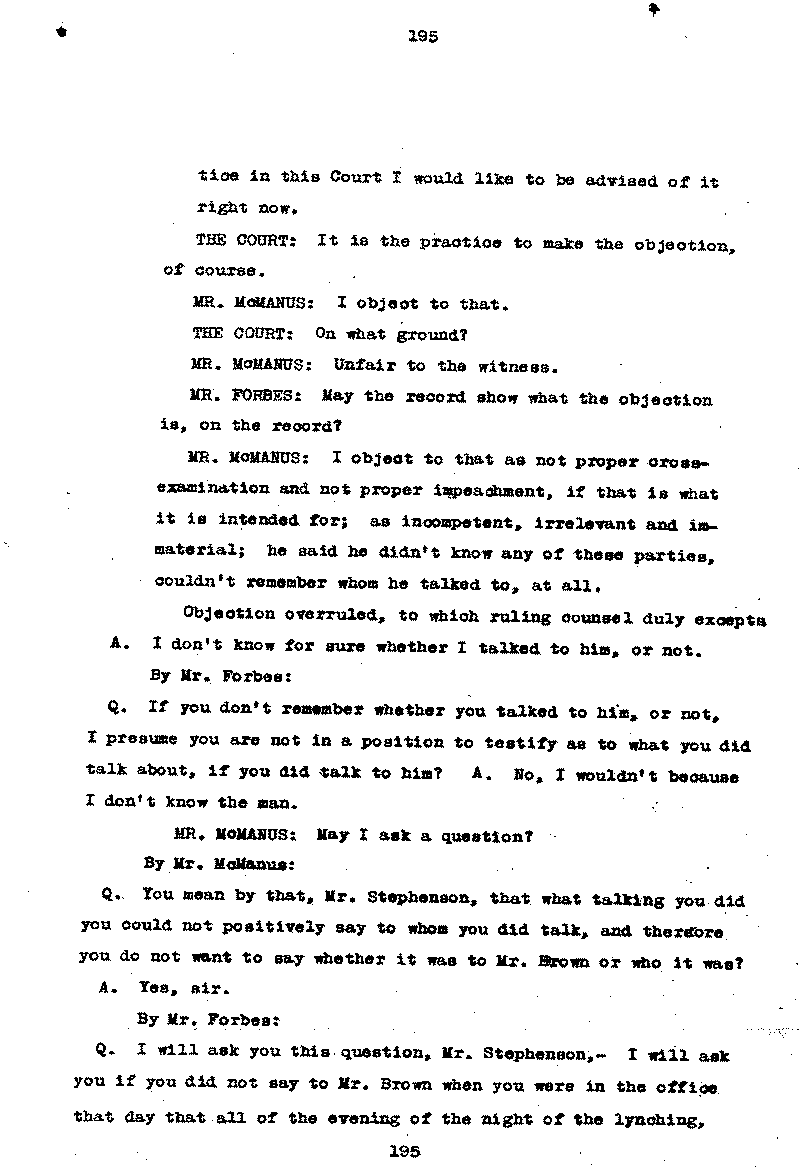
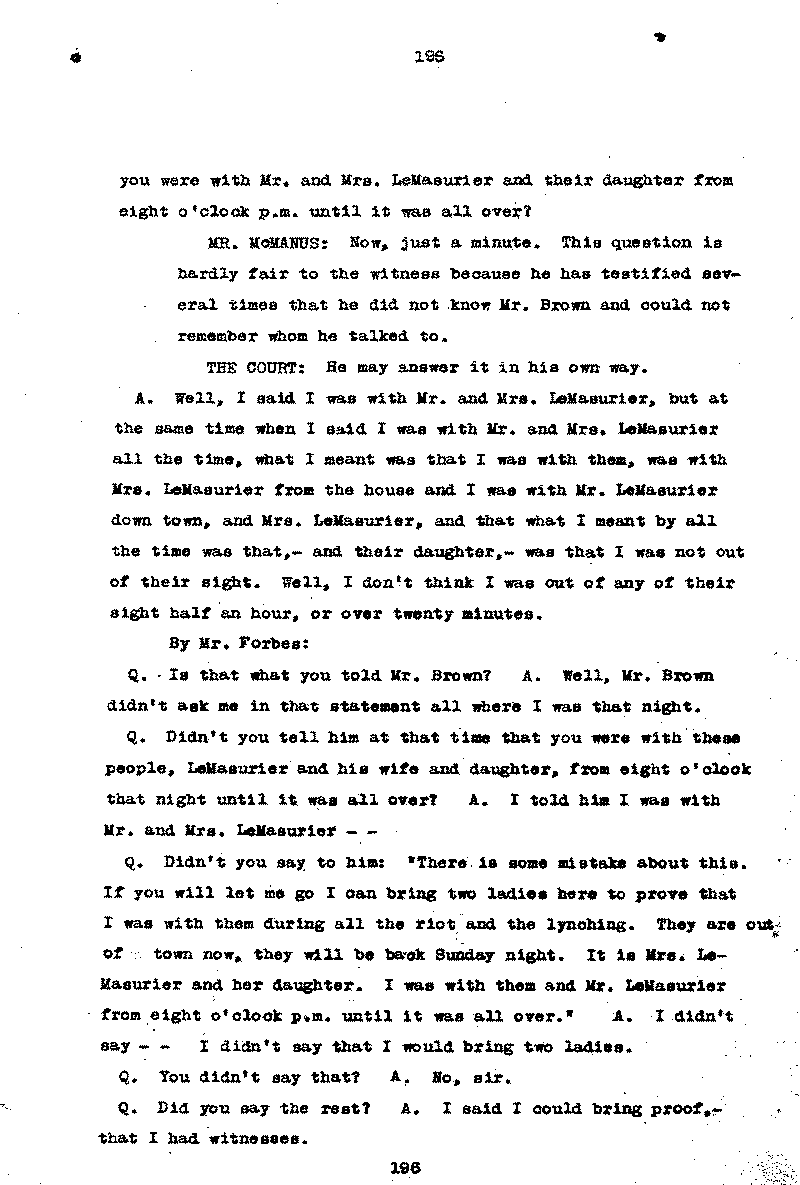
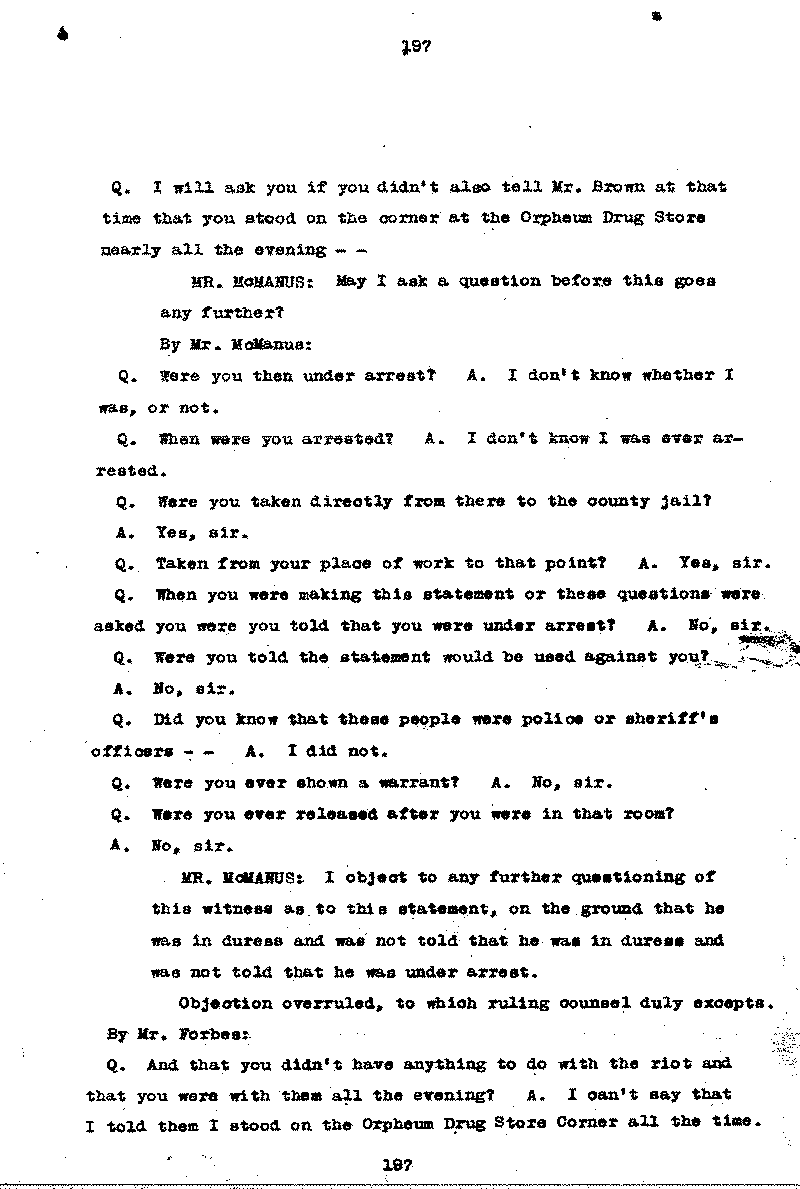
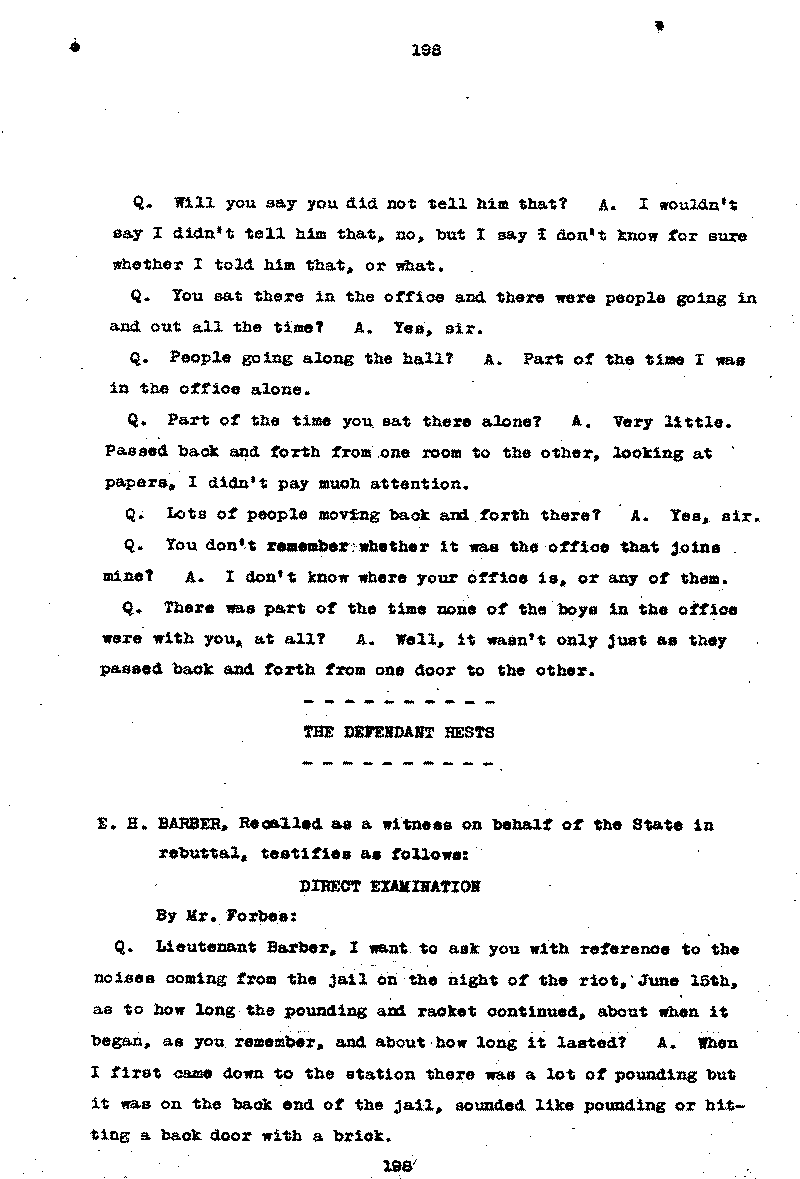
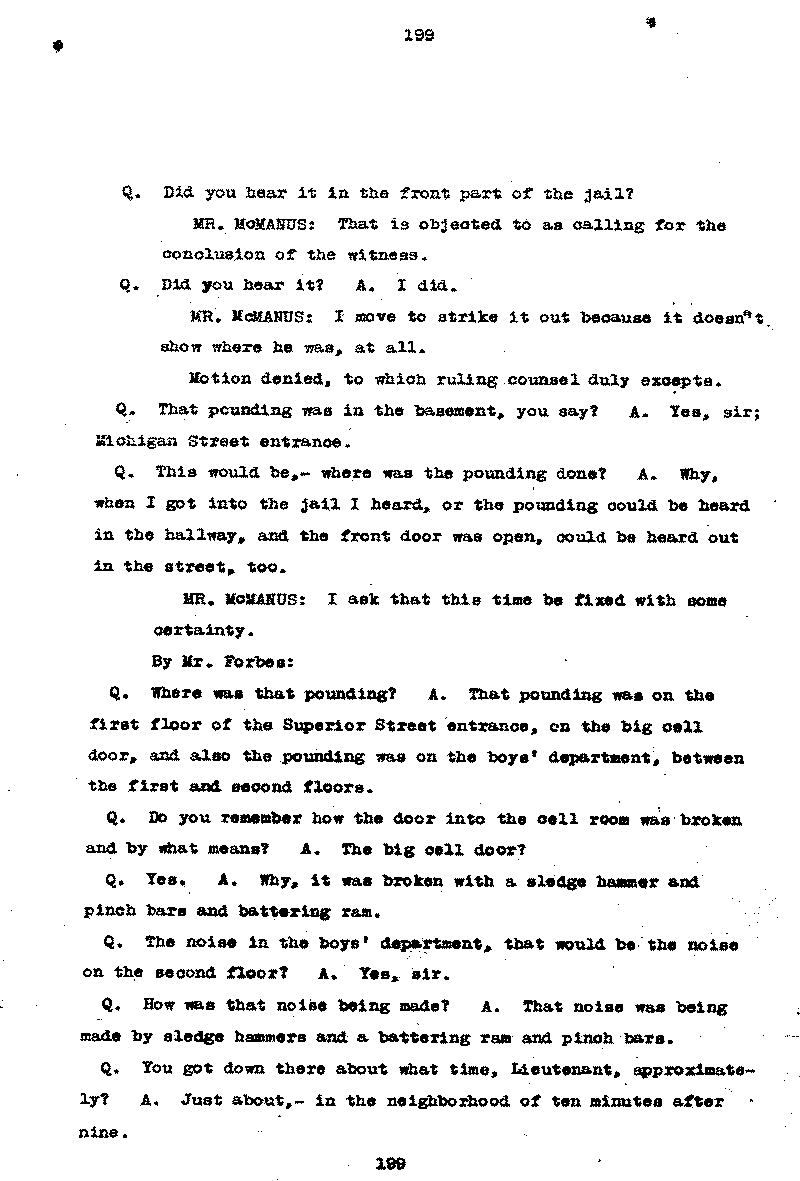
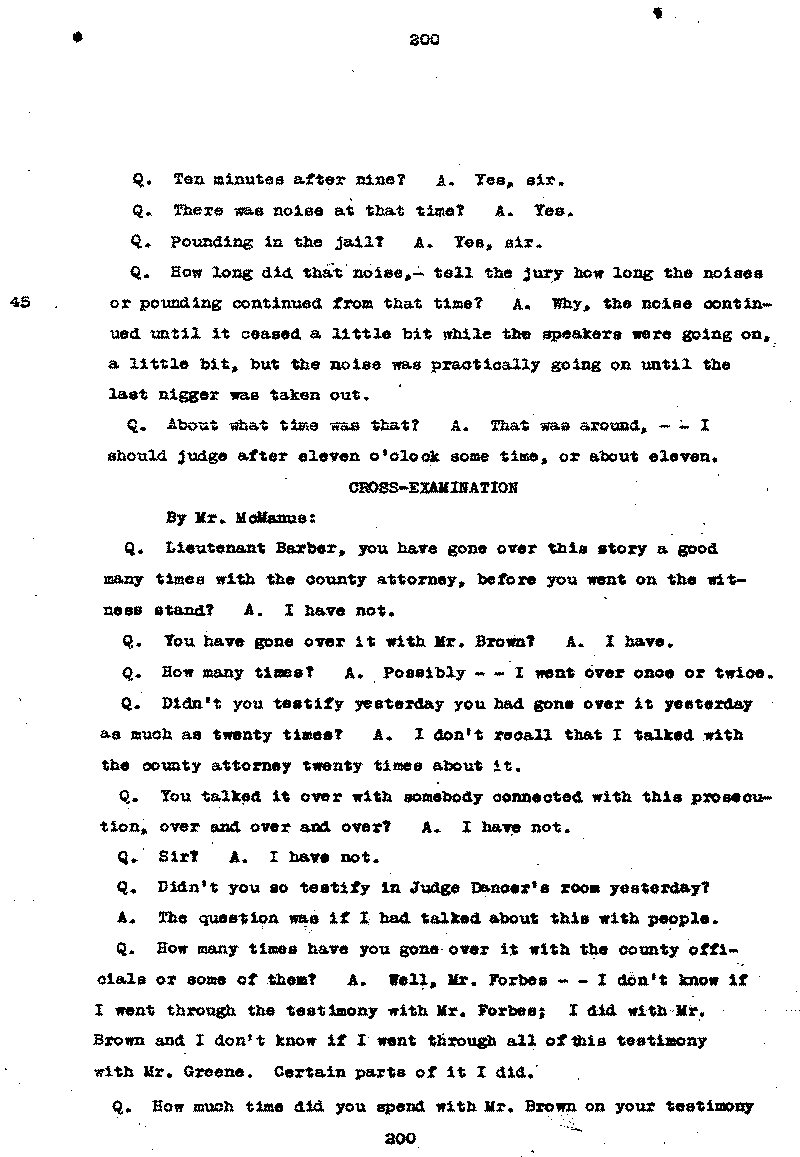
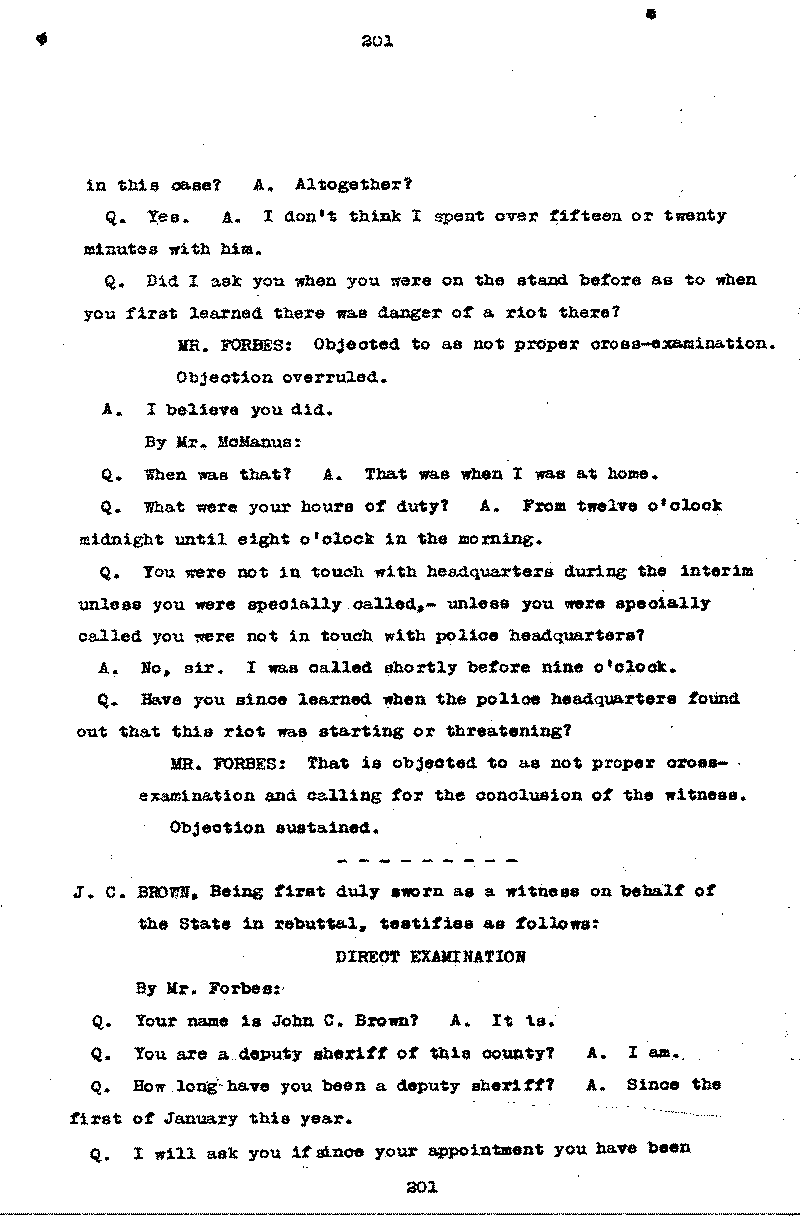
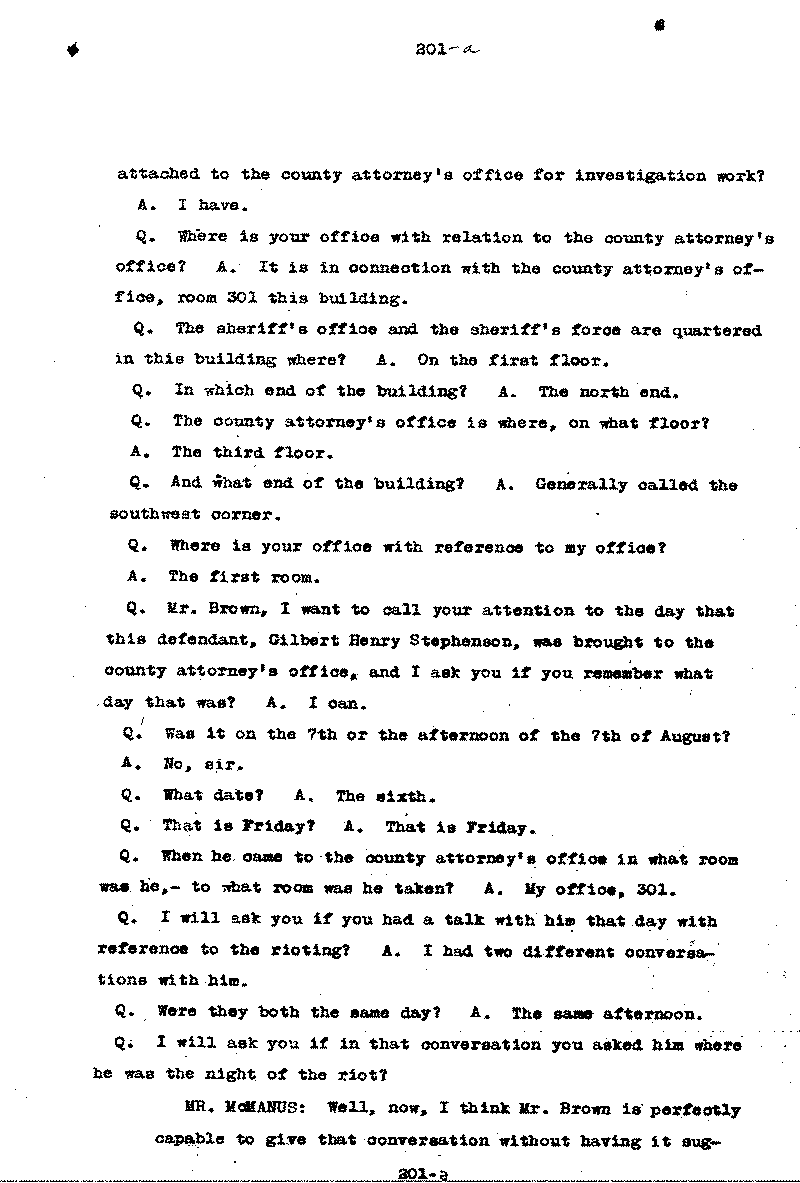
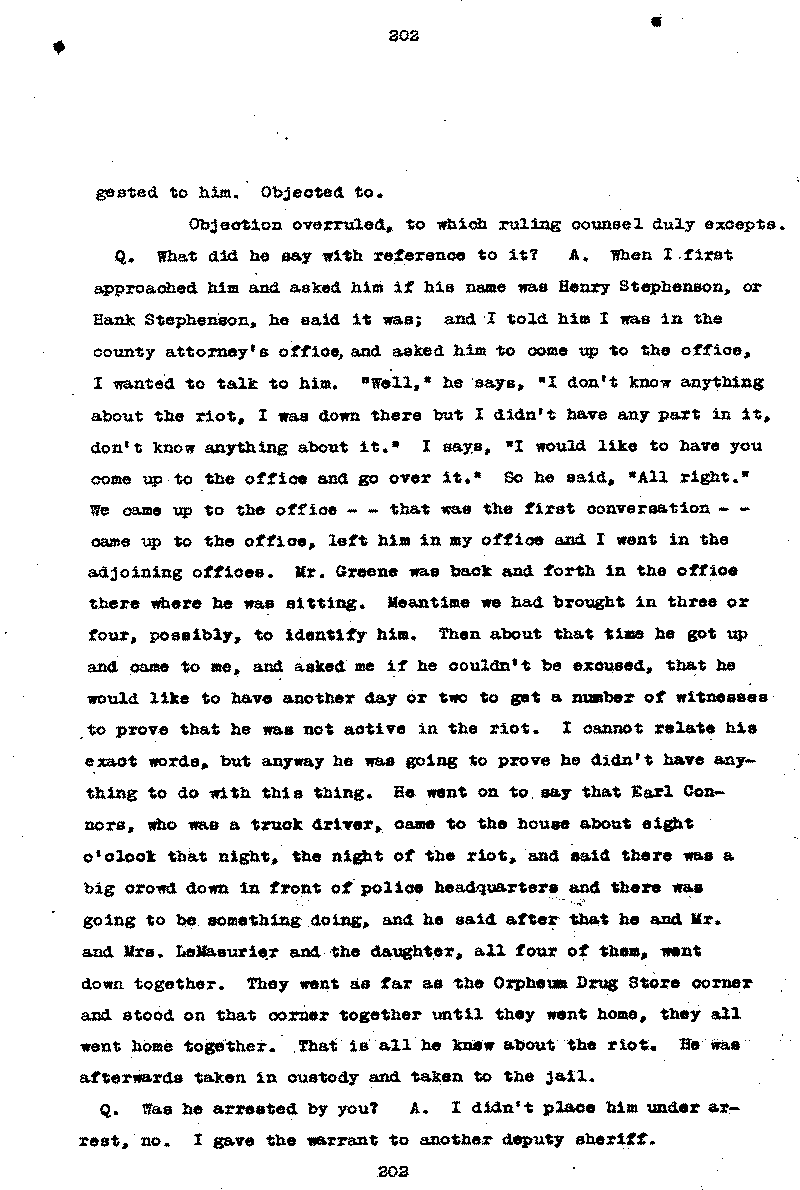
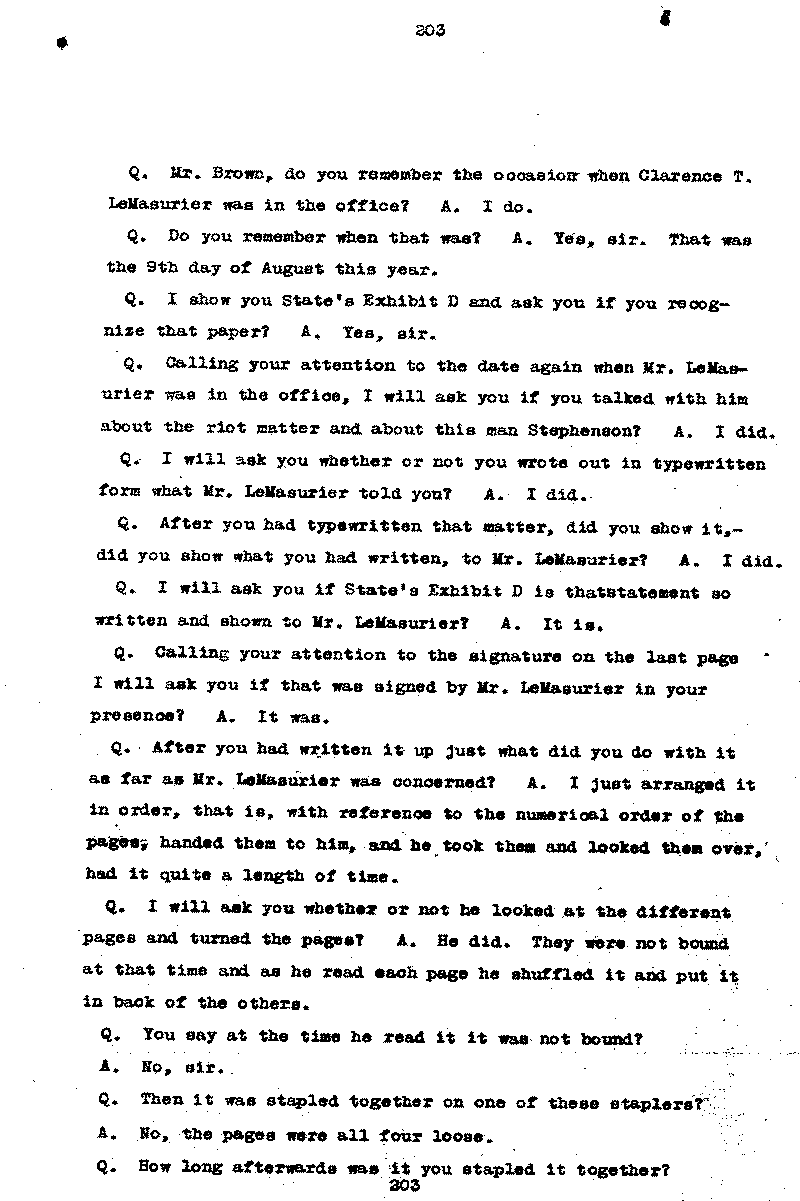
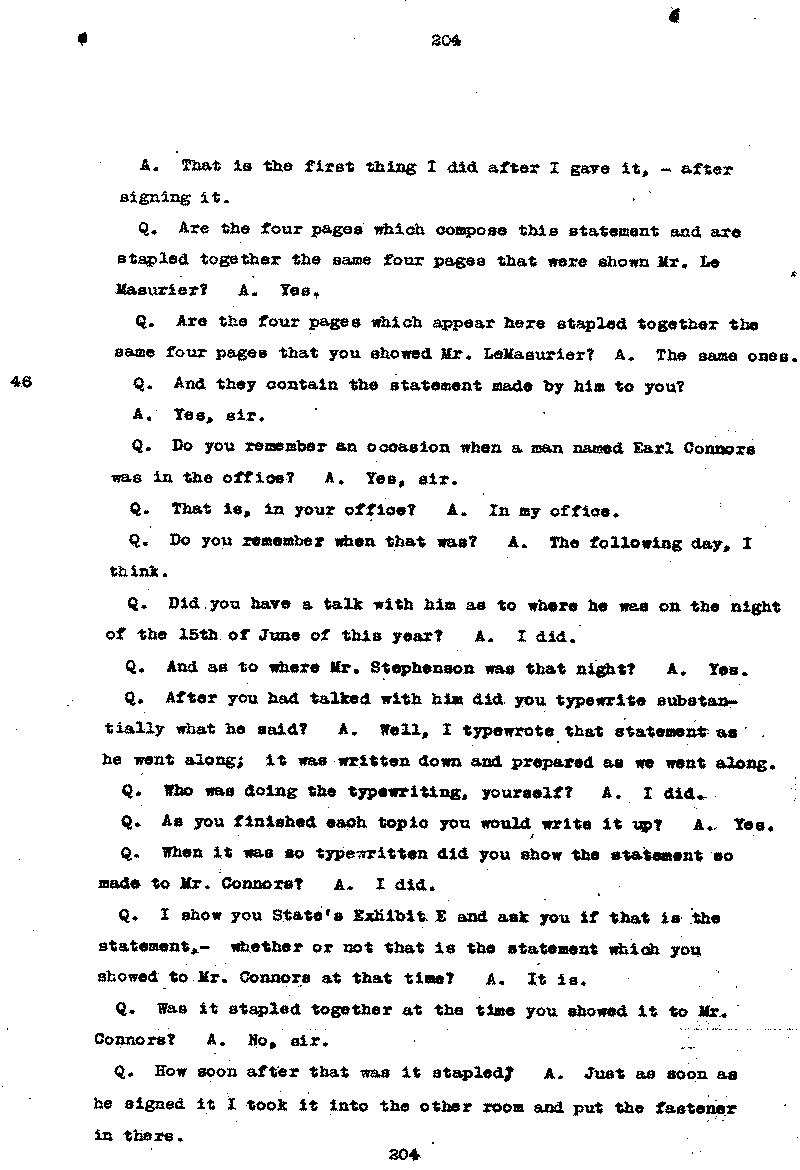
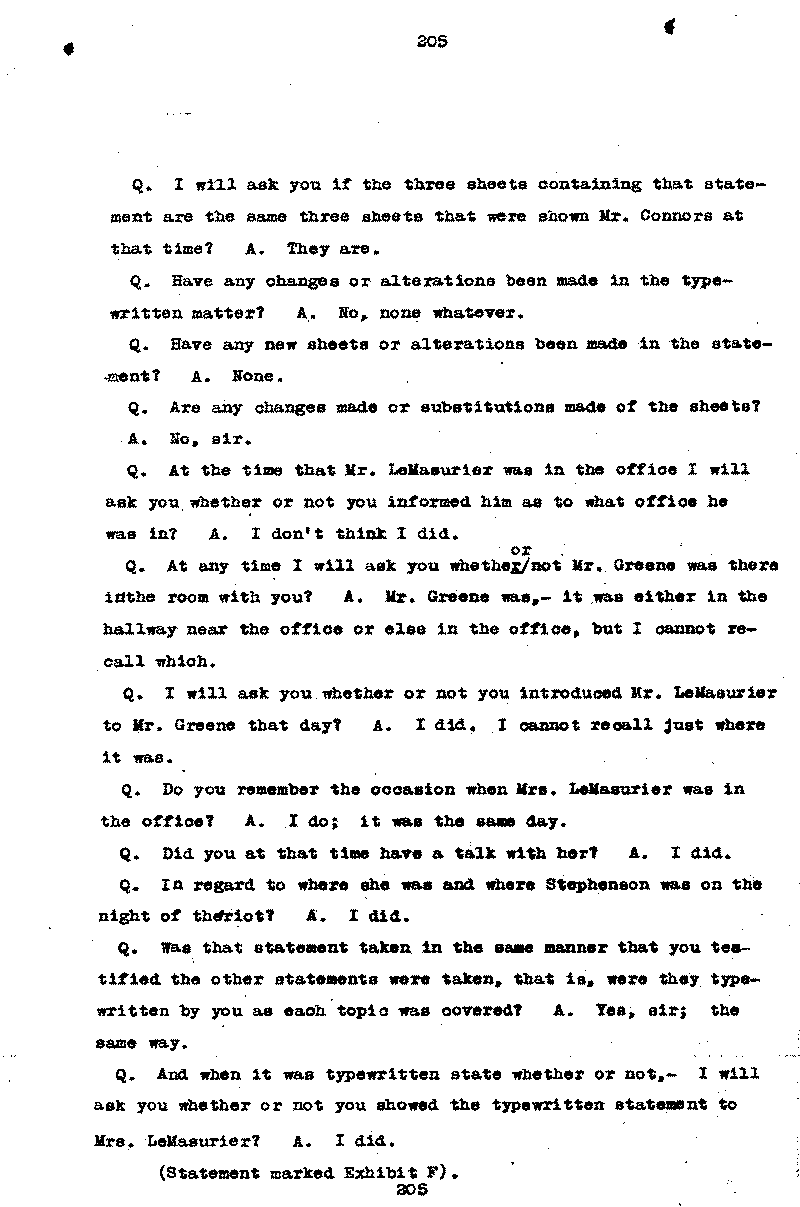
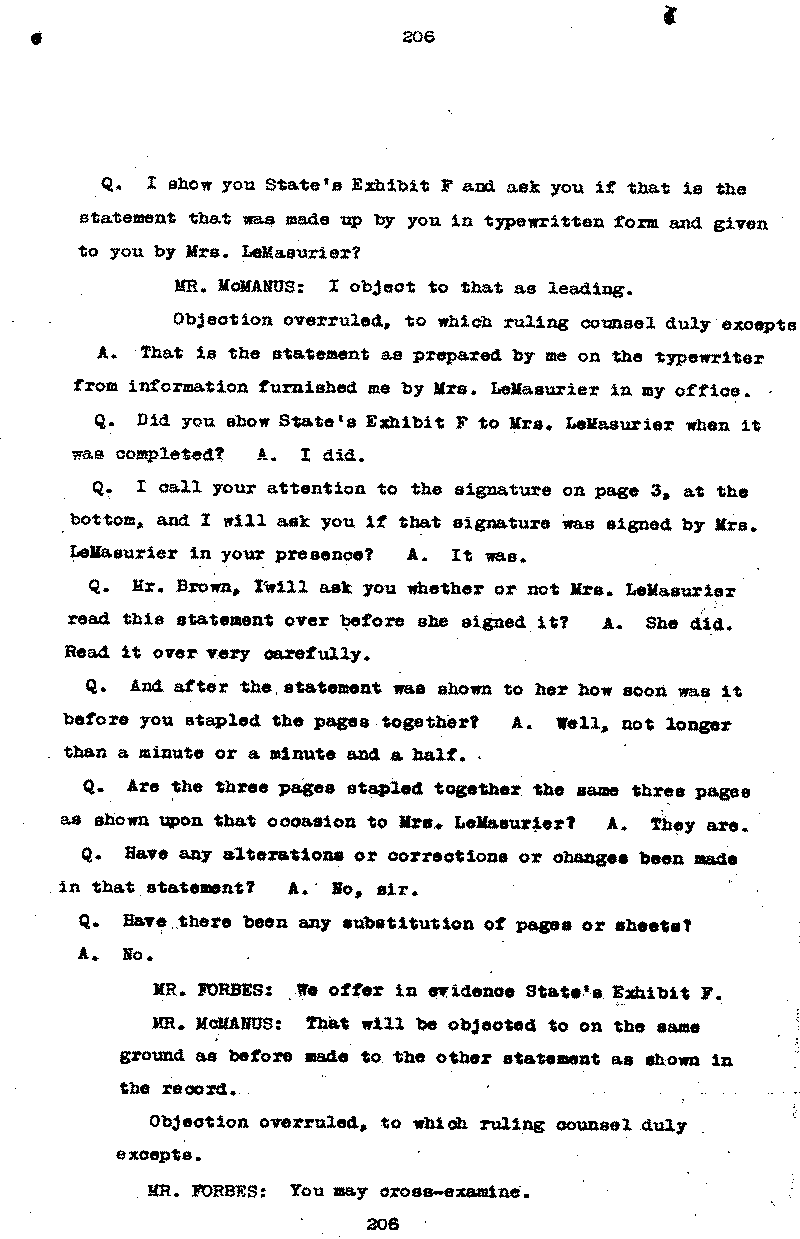
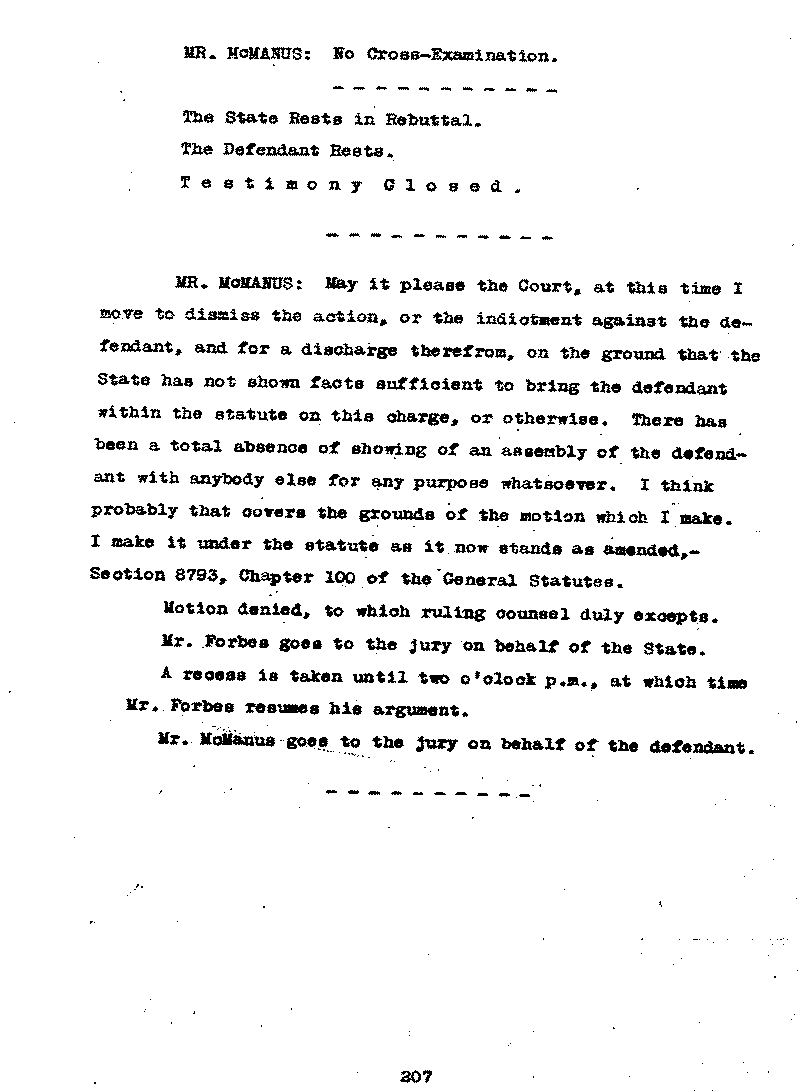
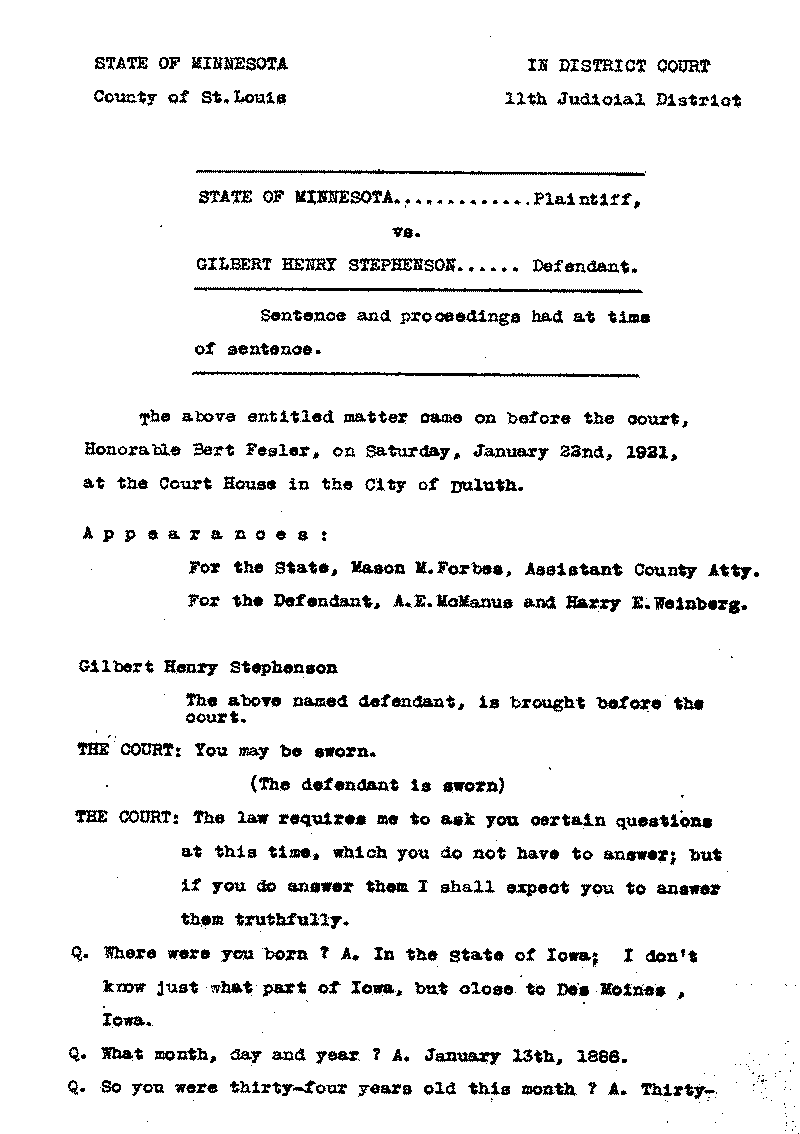
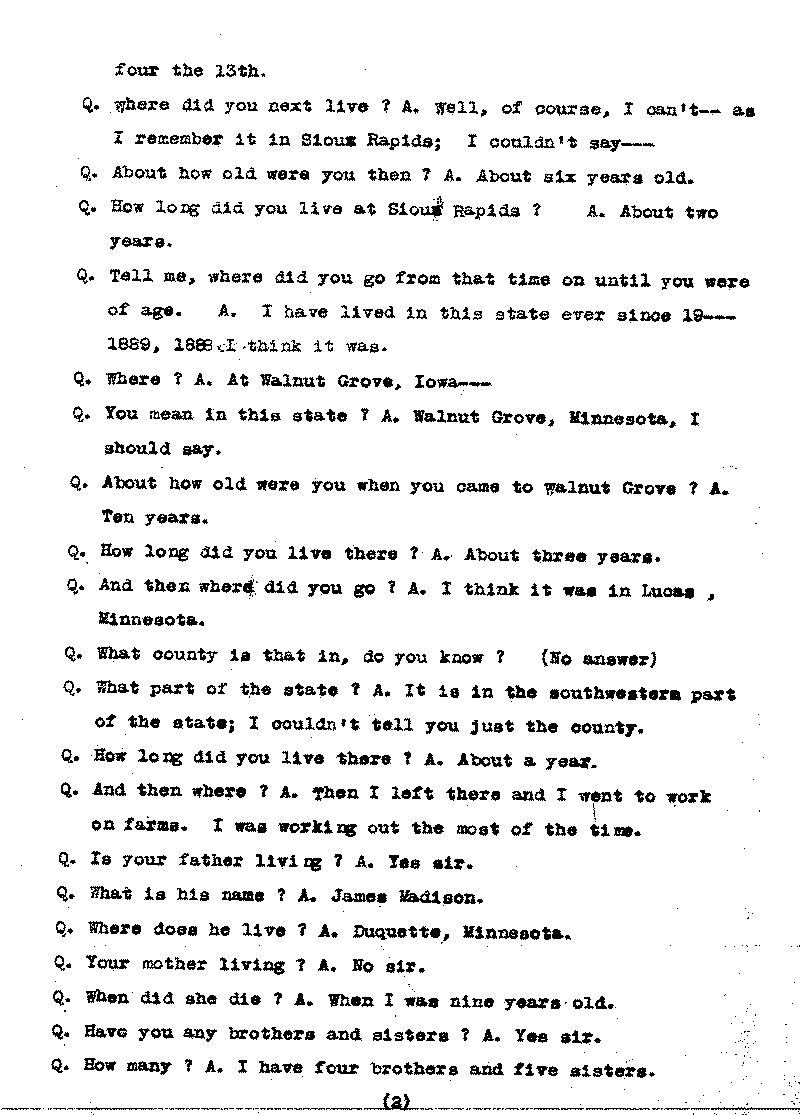
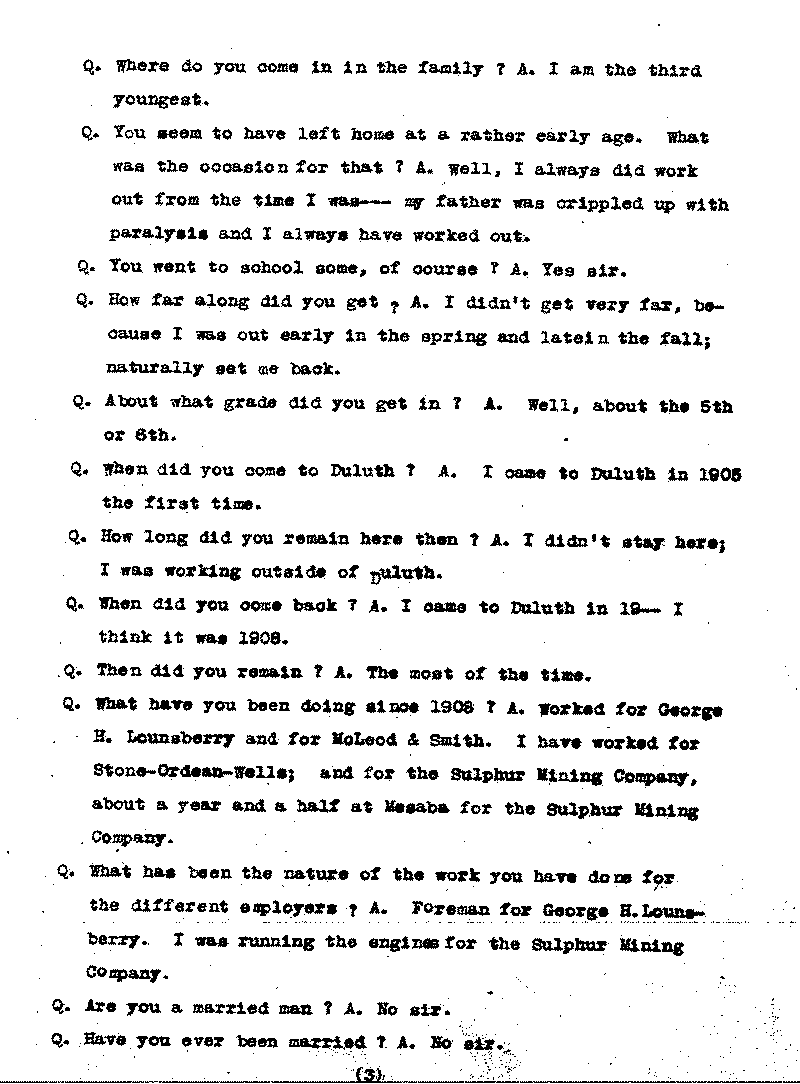
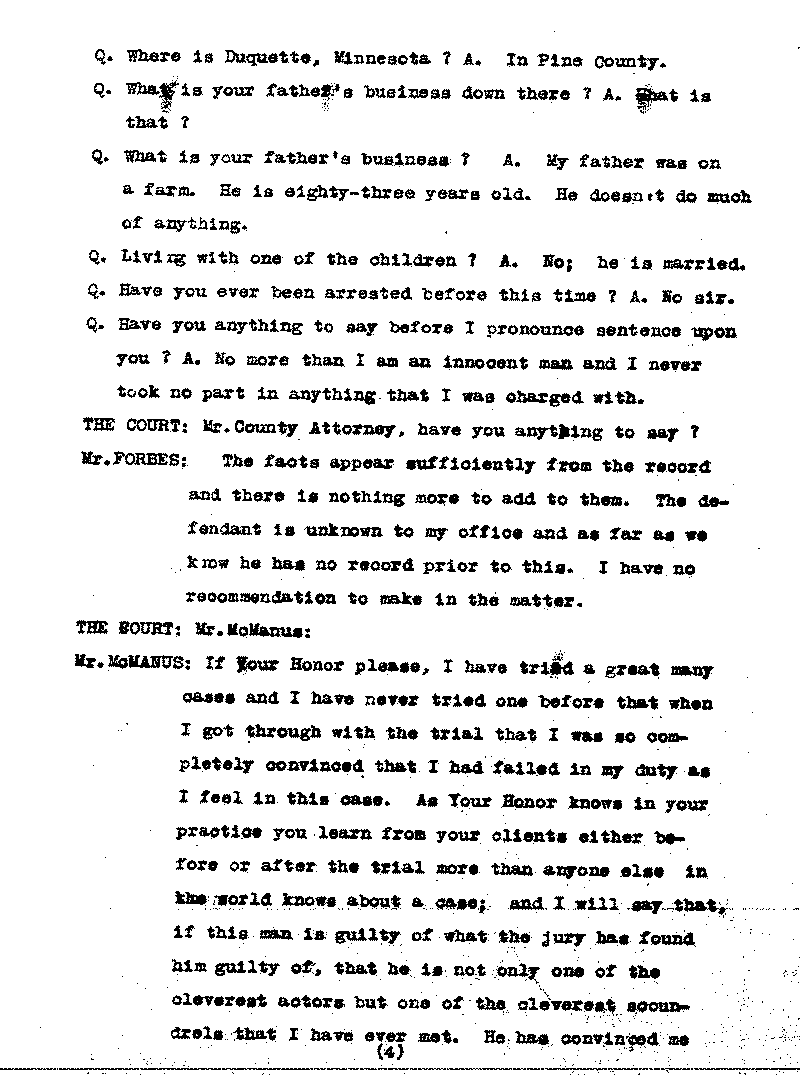
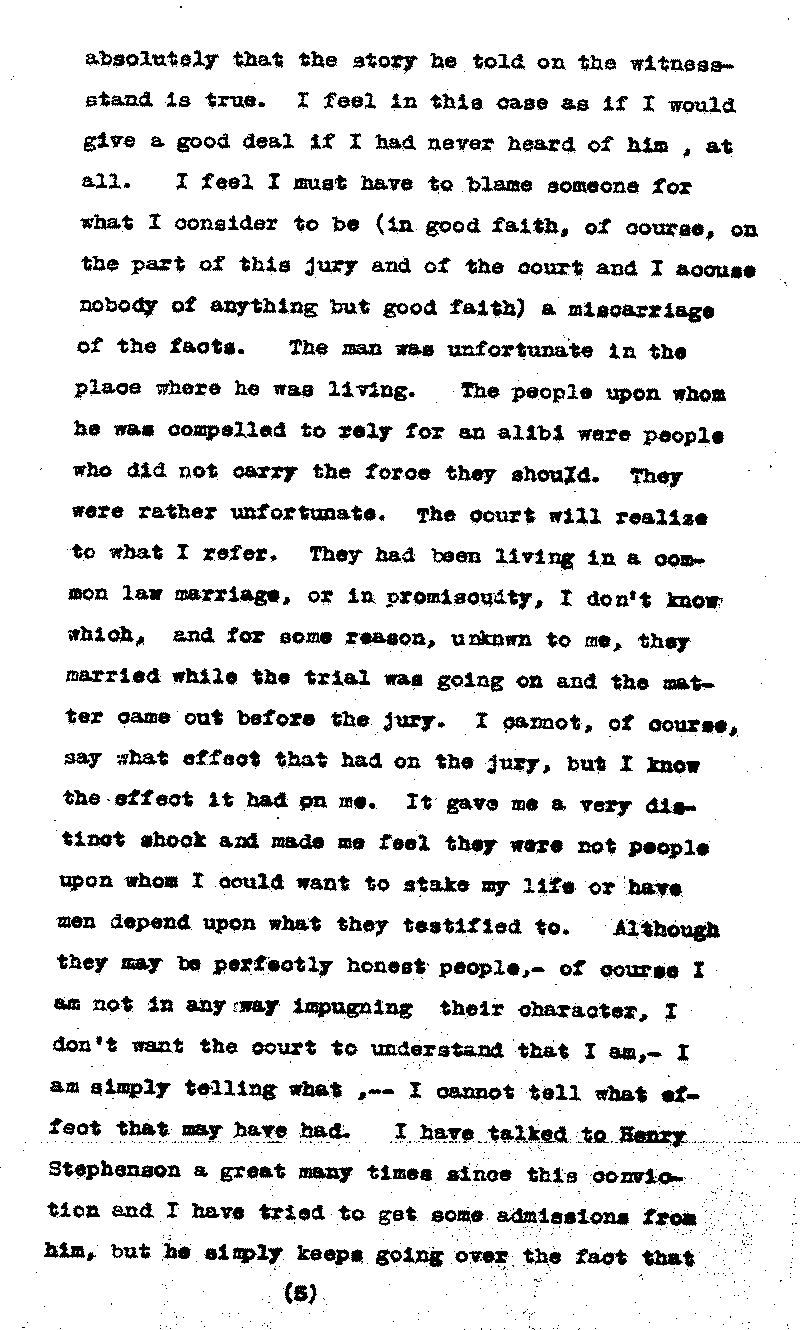
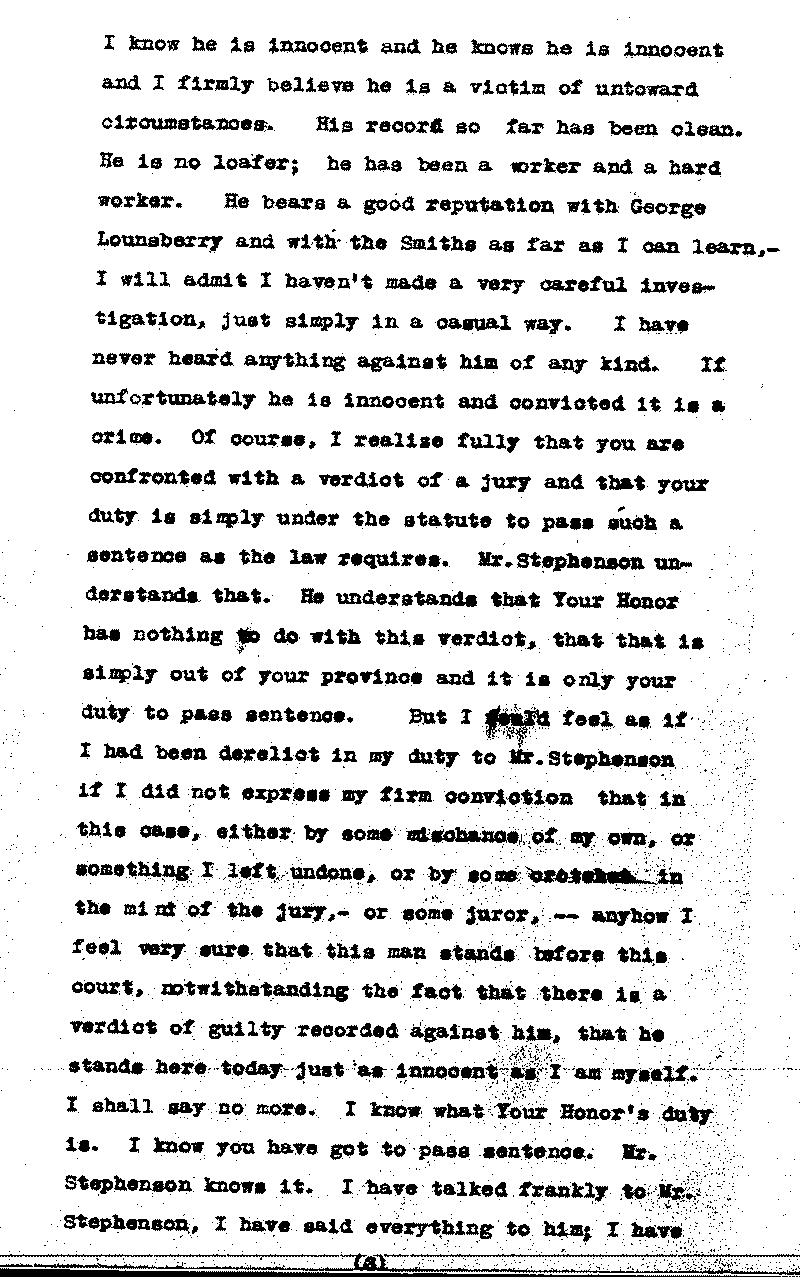
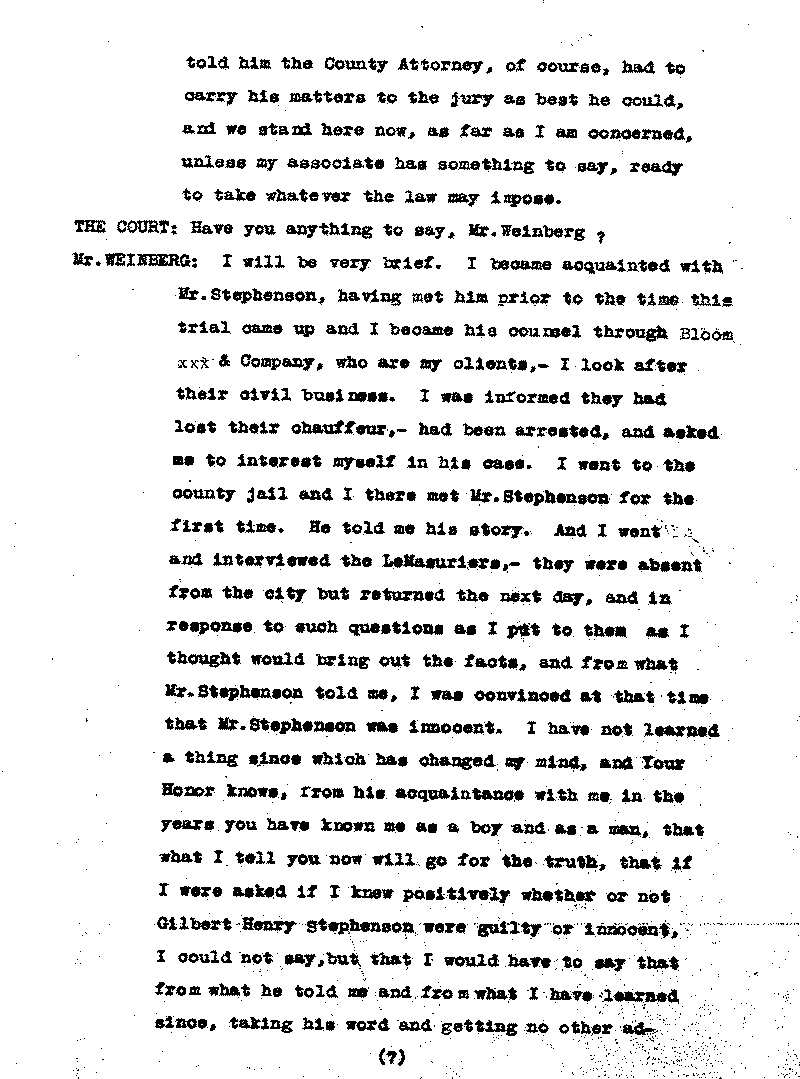
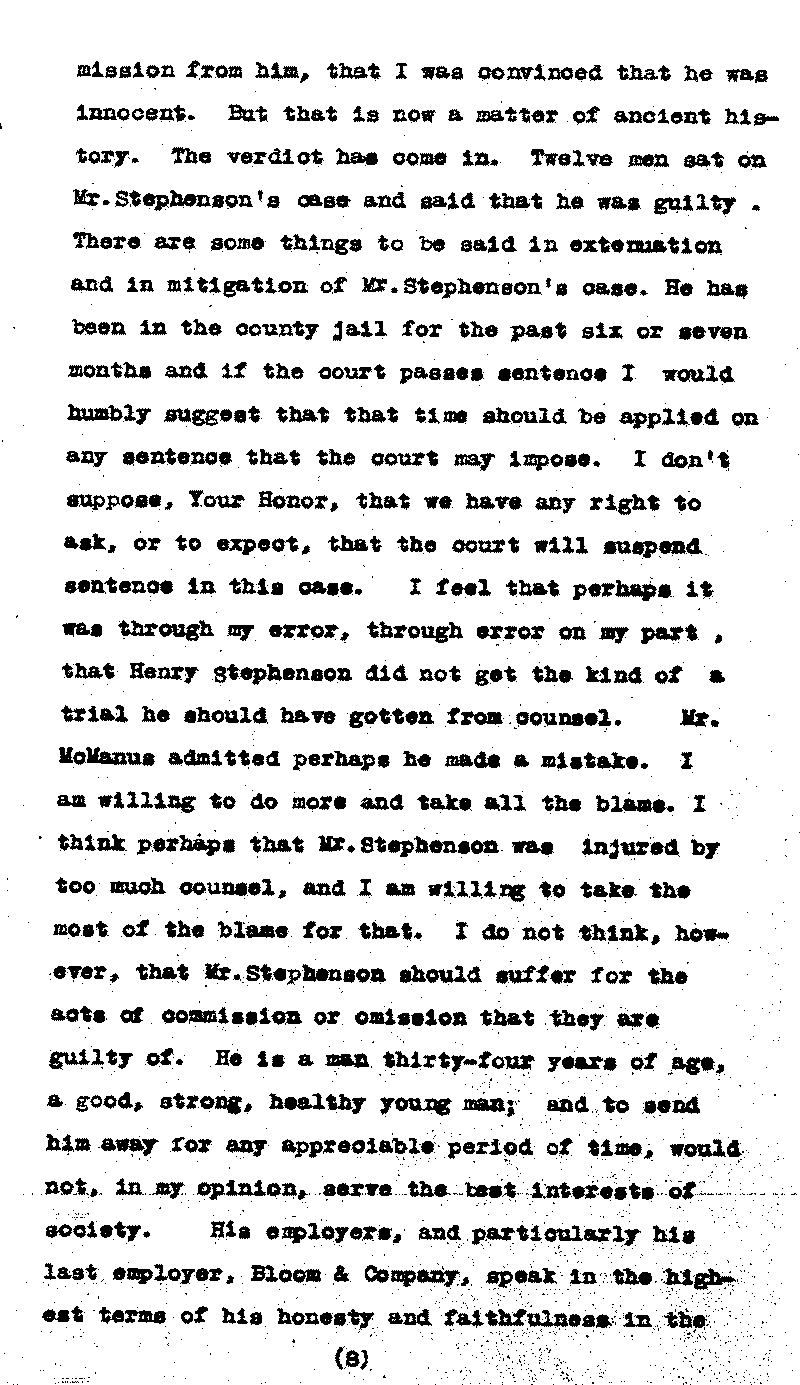
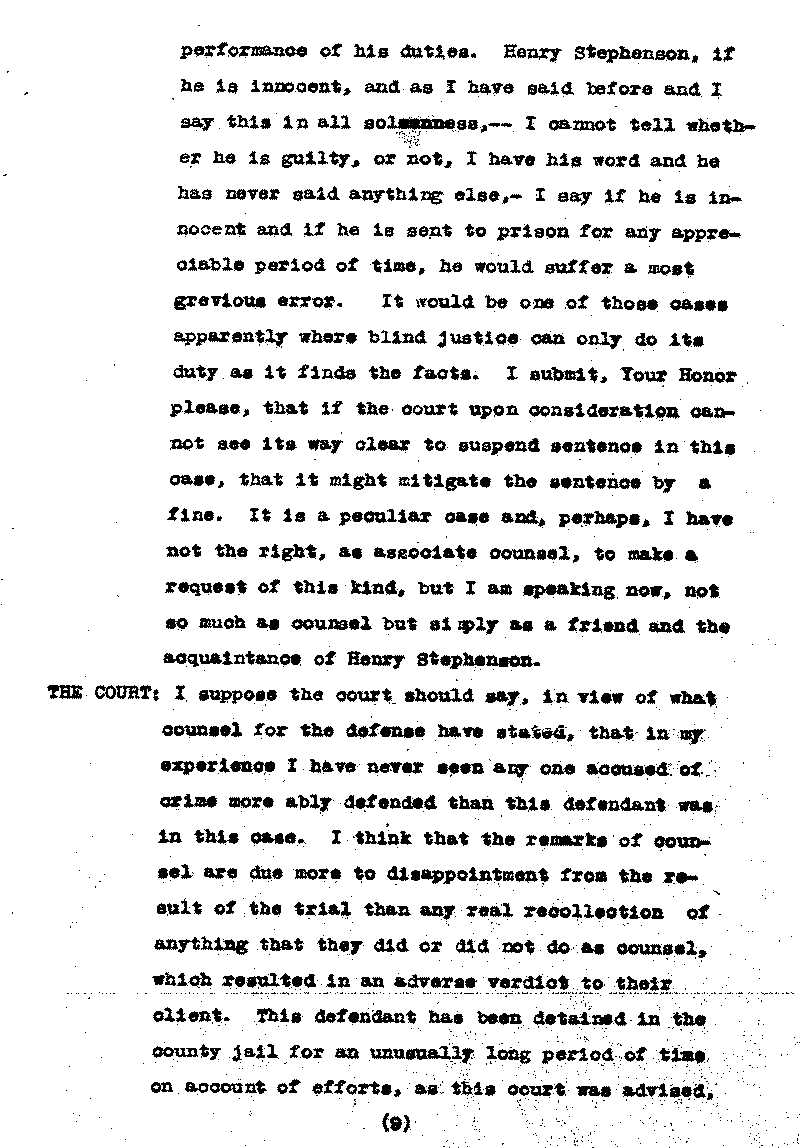
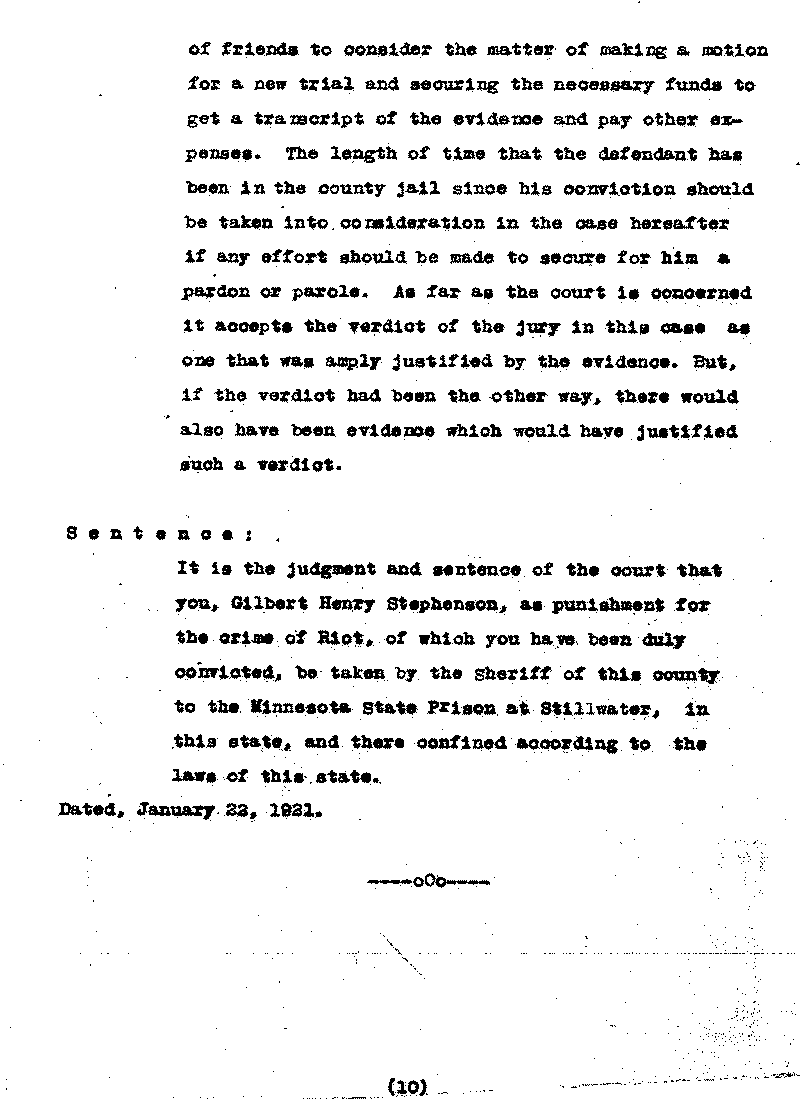
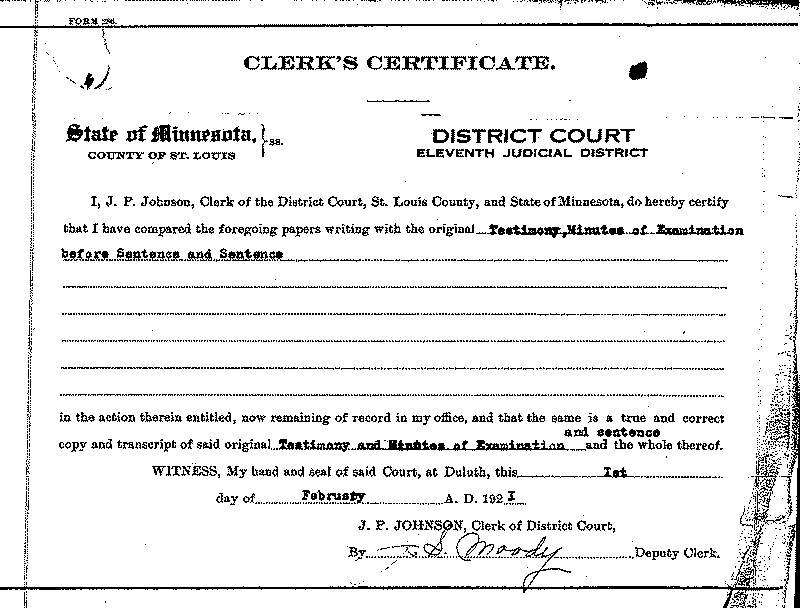
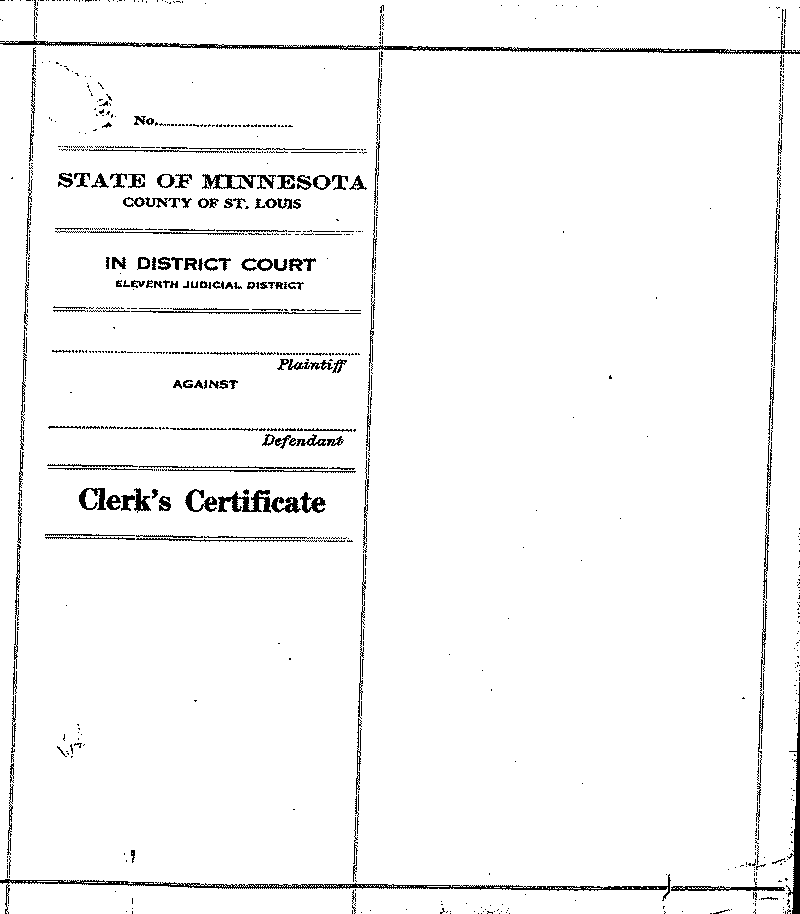
Image text
JUDGES JUDGES
HON.
J. D. ENSIGN HON. H. A. DANCER
HON. W. A.
CANT HON. BERT FESLER
HON. MARTIN HUGHES HON.
EDWARD FREE
COUNTY OF ST.
LOUIS
OFFICE OF
CLERK OF
DISTRICT COURT
Duluth,
Minn., Feb. 2, 1921
J. P.
JOHNSHON
CLERK
C. S.
Reed, Esq.,
Warden of the State’s
Prison,
Stillwater,
Minn.
Dear Sir:
I am
sending by express the testimony and minutes of examination before sentence, in
the case of State of Minnesota, vs. Gilbert Henry Stephenson. The other
commitment papers having been delivered to you at the time the prisoner was
taken by the sheriff to the State’s
prison.
The Courts have been so busy the last two
or three months it has been impossible for the reporters to get out the records
in these cases, and the court has directed me not to delay the prisoners on that
account, and that is the reason you did not receive the complete commitment with
the prisoner.
Yours
truly,
J. P. JOHNSON,
Clerk,
By J. S.
Moody
Deputy.
JSM:K
State of Minnesota,
In district court,
County of St. Louis.
Eleventh Judicial District.
6598
STATE OF MINNESOTA,
Plaintiff.
Vs.
GILBERT HENRY STEPHENSON, Defendant.
Synopsis of
Testimony and Charge of Court.
This cause came on for trial at the May 1920 term
of the district court of
the Eleventh Judicial District of
the State of Minnesota, held at the
court-house in the city
of Duluth, Minnesota, within and for the country of
St.
Louis, and state aforesaid, on Monday, August 30th, before
Hon. Bert Fesler, Judge, and a jury.
APPEARANCES:
Mason
M. Forbes, Assistant county Attorney,
For the State.
Harry E. Wineberg and
A. E. McManus,
for the
Defendant.
_____________________________________
The case is called for trial and a jury impaneled
and sworn to try the
cause.
Mr. Forbes opened the case to the jury on behalf
Of the
State.
OSCAR OLSON, Called as a witness on behalf of the State.
1
2
MR. McManus; May it please the Court, the defend
Ant objects to the
introduction of any evidence under
the indictment on the ground that the same
does not
state a public offense. Second, on the ground that
The indictment
is so general in its terms and so gen-
eral in its charges that the defense
cannot properly be
prepared to meet these charges, -has not due
notice
thereof. The statement of the county Attorney does not
in all
things comport with the statement made in the in-
dictment, nor agree with
it. Furthermore, I ask that
all witnesses on behalf of the State, as well as
all
witnesses on behalf of the defense, please be excluded
from the
court-room during the trial of this case, ex-
cept those who are testifying
at the time.
The court: Mr. Olson, take the stand.
OSCAR OLSON is duly
sworn.
THE COURT: The objection of counsel will be insert-
ed at this
stage of the record and it will be overruled.
And the request of counsel for
the exclusion of witnesses
Made by him will be granted. Counsel will take
pains to
Identify th3e witnesses and the witnesses will retire
From the
court-room as their names are called by the
Counsel.
(Witnesses retire
from the court-room).
THE COURT: is there anyone in the court-room who
knows
Himself to be a witness in this case? If so he will
re-
Tire.
(No response).
MR. McMANUS: May I have an exception to the
ruling
of the court on the matter that the Court overruled?
THE COURT:
Yes.
2
3
DIRECT EXAMINATION
By Mr. Forbes:
Q. Your name is Oscar Olson? A. Yes, sir.
Q. You are a
police officer and have been connected with
the police force of the City of
Duluth for some time?
A. Yes, sir.
Q. You were acting in the capacity of police officer on
the 15th day of June of this year? A. Yes, sir.
Q. Where were you on duty that day? A. At the police
headquarters.
Q. What were the hours of your watch? A. From four o’clock
in the afternoon until twelve, midnight.
Q. Prior to that time how long had you been on the force?
A. Since the 1st of May, 1908.
Q. You are sergeant of police? A. Yes, sir.
Q. I will ask you, Mr. Olson, if on the 15th day of June,
1920, there was under your guard and in your custody and con-
troll three Negroes by the name of Issac McGhie, Elmer Jackson,
and Eli Clayton? A. Yes, sir..
Q. Where were they placed for safe keeping? A. They were
placed in the big jail in cells. The big jail is the jail on
the ground floor.
Q. How is that big jail – And is that big jail the big
jail belonging to the City of Duluth and in this county?
A. Yes, sir..
Q Do you remember when they ere brought in? A. Yes, sir..
Q When was it? A. Seven-thirty in the morning.
Q The morning of the 15th? A. The morning of the 15th,
yes, sir.
Q. Were they in cells when you went on watch at that time,
that day? A. That I don’t know.
Q. You took charge at what time? A I reported for duty
3
4
at 7:35 that afternoon.
Q. You were on duty from four until twelve that night?
A. Yes, sir
Q. These men were in cells in the cell-room in the rear of
the main floor of the city jail? A. Yes, sir.
Q. When that evening or during the afternoon or evening was
your attention first called to any disturbance, unusual dis-
turbance, in the neighborhood of the jail? A. Around near
seven o’clock.
Q. What called your attention to it? A. An unusual num-
ber of people passing by.
Q. That was about what time? A. Oh, around, - possibly
shortly before seven, or around seven o’clock.
Q. After that did the number of people around the jail in-
crease gradually? A. Why, yes, they did.
Q. Will you explain to the jury where the people were
gathering? A. Why, on the – on Superior Street and also
Michigan.
Q. Is there an entrance to police headquarters from Michigan
Street? A. Yes.
Q. Where is the garage located? A. On Michigan Street.
Q. On Michigan Street? A. Yes, sir.
Q Is there an entrance to police headquarters from Superior
Street? A. Yes, sir.
Q. And on what floor is that? A. It is on the ground
floor, that is on Superior Street.
Q. Will you just tell us in your own language what happened
there as the people gathered? A. Why, I noticed an unusual
number of people on the street, on Superior Street and also
Michigan Street, and that went on for a little while and shortly
after there was a large number of people there.
Q. What were they doing? A. They were yelling.
4
5
Q. Could you distinguish anything they were yelling? A. No,
I cannot.
Q. Making a loud noise? A. Yes.
Q. At both the Superior Street side and also the Michigan
side? A. Those I noticed only from Superior Street.
Q. Tell us what happened after that? A. The mob started to
throw bricks and stones.
MR. WINEBERG: Can’t you fix the time of this, Mr.
Forbes, - I mean the hour?
By Mr. Forbes:
Q. Can you fix the time
that was more definitely? A. I can
fix it – some time between
six-thirty and eight o’clock.
Q. go on and tell what happened? A. They
started to throw
stones and bricks, and the police fought off the mob on
the
Superior Street side and the mob then went to Michigan Street
and also
continued to throw bricks and stone, and they were
driven away from there and
then they come around to Superior
Street side again, and resisted the police
there for some time
until they finally overpowered the police and gained
entrance
to the police station.
Q. When was the hose, if the hose was
used, when was it first
used? A. After the mob began to use stones and other
things.
Q. What was done with the hose? A. Why, we had the hose
attached
to a hydrant out at Second Avenue East and Superior
Street. The hose was
brought into the hallway of the station
and we used it on the mob.
Q. You
turned the water on – A. Yes, sir.
Q. Squirted the water at them? A.
Yes, sir. And when we
beat them off the front they went around to the rear. A
little
narrow stairway there and we beat them off there and then they
came around on the Superior Street side again. They had out the
5
6
first hose and we had sent for more hose. The mob seized the
hose, or
took the hose from the firemen and attached it to the
water main on First
Street and Second Avenue East and used it
on the police.
Q. I will ask you
what if any windows were broken in front of
the jail? A. Yes, sir.
Q.
What windows? A. Nearly all the windows in the police
station, with the
exception of one or two small ones.
Q. Were they broken that night by the
mob? A. Yes, sir.
Q. What door ? A. The outside door and the inside bar
door.
Q. On the second floor of the cell room was there any attempt
made
there by the mob – A. Yes, sir.; a hole made in the wall.
Q. How big a
hole? A. Oh, possibly close on to three feet
long and maybe abut a foot and a
half wide.
Q. In what wall was that hole made? A. It was in the wall
west
of the entrance into the jail.
Q. On the second floor? A. Yes, sir.
Q. Was
that damage all done by the mob that night? A. Yes, sir.
Q. Did the crowd,
the mob that night obtain entrance to the
cell room where these three men, McGhie, Jackson and Clayton were
kept? A. Yes, sir.
Q. How did they get into that cell room? A. They broke in.
Q. How? A. Force.
Q. Do you remember what kind of an instrument they used?
A. They had a large timber that they used as a ram against the
outside of the jail door, of the big jail, and a crow-bar. Ham-
mers. Several other instruments.
Q. I will ask you whether or not the locks of the cells in-
6
7
side of the cell room were broken? A. Yes, sir.
Q. How many, do you remember? A. Four or five4.
Q. Do you know how they were smashed? A. I do not.
Q. How far did the mob extend along the street, how far?
A. As far as I could see from standing close outside the front of the building.
Q. As far east and west as you could see? A. Yes, sir.
Q. How far would you say they extended, as far as distance was
concerned, how far east on Superior Street? A. some distance
east on the easterly line of Second Avenue East.
Q. And how far west? A. On the westerly line of first Avenue West.
Q. And was the street densely packed with people. A. Yes, sir.
Q. During all that time were they yelling and calling?
A. Yes, sir.
Q. During those hours, I will ask you, Sergeant - -
MR. WINDEBERG: What hours, - fix the hours.
By Mr. Forbes:
Q. Between four o’clock in the afternoon and twelve o’clock
at night. Were you in charge there? A. Yes, sir.
(Recess for a few minutes)
Q. I will ask you, Mr. Olson, if J.N. Nyquist, Stantz Nes-
goda, E. H. Barber, Carl Sundberg and C.C. Walker are all po-
licemen connected with the police force? A. Yes, sir.
Q. Were they on duty that night at police headquarters?
A. They were called there.
Q. Do they all come down at night? A. Yes, sir.
Q. I will ask you if they reported there under your orders - -
A. Yes.
Q. What time, about, do you fix it as the time when the mob
7
8
got into the jail and broke the hole in the wall on the upper cell
room and broke the door in the lower big cell, - the big jail?
A. some time after ten-thirty; ten-twenty, something like that.
Q. I will ask you if these three men, who had been present un-
der your custody and under your guar, Isaac McGhie, Elmer Jack-
son and Eli Clayton, were removed by the mob from the jail?
A. Yes, sir.
Q. And were they hanged subsequently? A. Yes, sir.
Q. I don’t know, - were you hit with anything during the riot
down there? A. I don’t know whether I was hit, or not, but I
had several bruises the day following.
Q. Was the water turned on you, at all? A. Yes, sir.
Q. That was the water from the hose? A. Yes, sir; from the
mob’s hose.
Q. From the mob’s hose? A. Yes, sir.
Q. When the crowd got into the jail I will ask you whether or
not, - in the police headquarters, if the halls and corridors and
all places were filled with the crowd? A. Yes; packed.
Q Was anything done, Mr. Olson, that night, to try to keep
the mob quiet or disperse them? A. Yes, sir.
Q. By whom? A. By myself and other police officers.
Q. By any citizens? A. Yes, by one.
Q. Was there any – A. That I could see.
Q Were there any speeches made by anyone at that time to quiet
them? A. Yes.
Q. by whom? A. Myself, Attorney McClearn, and by a man who
I didn’t know.
Q. Was that prior to the time the cell room door was broken?
A. it was before the cell was broken, yes.
Q. And before the hole was made in the wall of the upper cell
room? A. Yes, sir.
Q. All this happened here in the City of Duluth, County of
8
9
St. Louis and State of Minnesota? A. Yes, sir.
MR. McMANUS: No cross-examination.
- - - - - - - - - - - - - - - - - - - - - - -
WILLIAM F. LASHELLS, Being first duly sworn as a witness on be-
half of
the State, testifies as follows:
DIRECT EXAMINATION
By Mr. Forbes:
Q. Your name is William F. LaShells? A. Yes, sir.
Q. Where do you live,
Mr. LaShells? A. 109 East Fifth.
Q. What do you do, what is your business?
A. Engineer.
Q. Where are you employed now? A. Missabe dock.
Q. Did you
come right from the dock? A. They took me right
off my engine.
Q. You
want to go back as soon as you can? A. Just as quick
as possible.
Q.
Calling your attention to the night of the riot here, the
fifteenth of June
of this year, I will ask you if you were in
the neighborhood of the police
headquarters during that disturb-
ance? A. I was.
Q. When was it you
first got there? A. About six-fifteen.
Q. Were there very many people there
then? A. There was a
few.
Q. How long after that before the crowd
reached a consider-
able size? A. Oh, abut a quarter from – six-thirty
until
nine o’clock, pretty good size eight o’clock.
Q. Did
you see a truck going up and down Superior Street
during that time? A. I
did.
Q. About what time was it you saw the truck? A. I saw the
truck going
along first, - just a few minutes after six.
Q. Were there many people on
the truck? A. There was about,
9
10
I should judge eight or nine, something like that; I never
counted
them.
Q. What were they doing, talking? A. Some of them was hold-
ing a
rope behind and some was on the truck calling to the people
on the street to
come and join a necktie party.
Q. Where did the truck go, in a general way,
as you saw it?
A. I was on First Avenue East and Superior Street when
it
first passed me; it turned around and come down, - it went down
the
street twice that I saw.
Q. Do you remember where the truck ultimately
stopped?
A. The last I saw of the truck it went on around the corner
of
First Avenue East and it was parked there.
Q. South of Superior Street? A.
yes, just a little.
Q. Where did the people go that were on the truck? A.
Well,
they had all left the truck before, come up and stay around
the
police station.
Q. At that time were there a good many people around
the po-
lice station? A. Quite a few, yes, sir.
Q. What were they doing?
A. Standing around the way a crowd
would usually in excitement.
Q. Were
you there when the officers were using the hose?
A. Yes, sir.
Q. Were
you there when the mob was squirting water against
the officers? A. Yes, sir.
Q. What time did that occur? A. Well, the
officer had the
hose first and the crowd didn’t get the hose until the
second
time that the wagon come up just outside of the police station
with
the hose, that is when the fireman gave the crowd the
nozzle, - that is where
he got the nozzle, gave it to him off
of the truck - -
Q. At that time
were there a great many people around police
10
11
headquarters? A. Quite a few, yes.
Q. had they started calling and
yelling at that time?
A. Some of them had, yes.
Q. Do you remember what
they yelled? A. “Get the Negroes”,
different things like that.
The same as fellows would holler.
Q. do you remember abut what time it was
that the mob got
their hose? A. As near as I could judge, not having a
time,
I guess it was along about eight or a few minutes after eight
that
the mob got control of the hose.
Q. Did you recognize anybody holding the
hose in the mob?
A. Yes, sir.
Q. Calling your attention to this
defendant I will ask you
if you saw him there that night? A. Yes, sir.
Q.
Whereabouts ? A. He was on the hose, on the nozzle, in
the middle of the
street, with another man.
Q. How far away from the police headquarters? A.
About the
middle of the street, a little past the center.
Q. What were
the police doing with their hose at that time?
A. They were holding the hose
on the two men that had the
nozzle and they couldn’t get the water
through it.
A. Did you see this defendant again that evening? A. I
did.
Q. Where did you see him? A. In the police station.
Q. About what
time was that, if you can remember the time”
A. Well, that was in the
neighborhood of, - I should judge
twenty, - twenty-five minutes after they
had got the hose. As
soon as they got the hose they drove the police
back.
Q. What happened to the police? A. They drove the police
back with
the water.
Q. What was the mob doing then? A. Some of them grabbed
the
police hose and pulled it out, - out of the way.
Q. Where did they
go? A. They used that hose to, - used both
11
12
hoses.
Q. Did the mob then get into the police headquarters?
A. Yes,
sir.
Q. Were there many people in there ? A. There was, after
they got
the water and drove them back, clean out of the office
there and broke the
windows, shot the water through the windows.
Q. When after that was it that
you saw the defendant Steven-
son? A. After they got - - got in control of
the police sta-
tion, of course, they abandoned the water, that was after -
-
they didn’t use the water any more after that, - after they
got
control of the situation.
Q. Was there much water around on the
floor? A. Yes, Sir.
Q. How deep? A. I couldn’t say whether - - how
deep it was.
But two hoses playing, it was pretty wet. Everything was
pretty
well soaked.
Q. I will ask you this question, if you saw the
defendant on
the hose outside, - and at that time where were you? A.
I
was right at the side of the door, on this side of police
sta-
tion.
Q. East or west? A. On the west side.
Q. I will ask you if
they went into the police station?
A. I did.
Q. Where did you go? A. I
went right in on the main floor.
Q. About what time was that, if you know?
A. Well, I should
judge that was in the neighborhood, - as close as I could
say,
nine o’clock.
Q. When you got inside of police headquarters
where did you
go? A. I went right on the main floor where the rest of
the
crowd was.
Q. Had the mob gotten into the cell room then? A. No,
sir.
Q. How long after that was it that they got in? A. Well,
12
13
that was, took them some time to break through.
Q. How did they get into
the main cell room? A. With
sledge hammers and bars.
Q. by breaking what?
A. By breaking the locks and the doors.
Q. I will ask you if they got into
the cell room? A. They
did.
Q. Did you go into the cell room? A. No, sir;
I stayed on
the outside.
Q. When was it after you got into police
headquarters that you
saw this defendant again? A. The first time I saw this
man
after I got in here, when he was breaking the lock with a
sledge
hammer.
Q. Which lock did they break? A. Well, now, I
couldn’t say
just what lock it was, because I don’t know, - I am
not acquaint-
ed with the place enough to know, but it was a cell lock. I
could easily show it if I had it, of course I don’t know how
the
cells are, - that is, I don’t know the numbers of the cells,
but it
was towards the back end of the station where the lock
was broke, the first
one.
Q. Where were you standing then? A. I was just back of
them, -
there was three or four.
Q. Was the lock you refer to, that the defendant
was breaking,
was that a cell lock? A. Yes, a lock of the cell.
Q. On the
cell door? A. Yes, sir.
Q. That was after they had gone through the big
door? A. Yes.
Q. Of the cell room? A. Yes, sir.
Q. Did you go down there
with them? A. I went there after
they had opened it, yes, sir.
Q. How
far away were you from the defendant when he was break-
ing the lock? A. Oh,
probably six or seven feet. As close as
I could crown up.
Q. You saw him
breaking the lock of the cell? A. I saw him
13
14
hitting it and finally gave away.
Q. Did you see him again that evening -
- A. No, I never
saw him any more after he broke the lock. I left and come
back
outside to the front door.
Q. Did you notice whether or not there
was any Negroes in that
cell that he was breaking? A. Yes, sir.
Q. There
were? A. Yes, sir.
Q. After you came out did you stay around there for a
while?
A. I stayed until one o’clock.
Q. Were you there when the
three colored men, McGhie, Jack-
son and Clayton, were brought out? A. I was
there, yes, sir.
Q. They were brought out by the mob, were they? A. Yes,
sir.
Q. And were they subsequently hanged? A. They were.
Q. by the mob?
A. Yes, sir.
CROSS-EXAMINATION
By Mr. McManus:
Q. When did you say you work for? A. I am working at
the
Missabe dock, for the Stack Construction company, on an engine.
Q.
What kind of an engine is it? A. Well, it is a steam-
engine.
Q. Are you
the engineer or the fireman? A. I am the engineer.
Q. have you a fireman? A.
No, sir..
Q. You fire the engine yourself? A. I do.
Q. Burns soft coal?
A. Yes, sir.
Q. A pretty smoky job you have got? A. Well, at times.
Q
You were down town that night, did you say, at six-fifteen?
A. I was.
Q.
You saw the truck going up and down the street? A. I did.
Q. What are your
hours as engineer? A. I work six – twelve
hours a day - - ten hours a
day.
Q. From when to when? A. Well, I leave my home at six - -
14
15
about six-five in the morning.
Q. And work until when? A. Work until six
– five-thirty at
night.
Q. Out at the Missabe dock? A. Yes,
sir.
Q. Where did you live, did you say? A. 109 East Fifth.
Q. You had
to go down town to get home? A. Yes, sir.
Q. What time did you usually have
your supper? A. Oh, about,-
supper is ready when I get home.
Q. What time
do you usually get home? A. About six o’clock.
Q. Did you get home
this night at six o’clock? A. I happened
to lay off for sixty days at
that time, wasn’t working, stayed
right at home, wasn’t working
there at that time, at all.
Q. Then you ere on sort of a vacation at that
time? A. I
was, - I had worked nine months straight and I took sixty
days
layoff.
Q. Are you working now? A. I am.
Q You were at First
Avenue East and Superior Street when you saw this truck drive by? A. Yes,
sir.
Q. With a rope behind it and that is in the papers - -
A. I am not
taking the paper, thank you.
Q. I am not asking you that. I say, you have
seen it described
in the papers, haven’t you? A. Well, I told you I
haven’t read
the newspapers but very little since I have been in this
town,
and my not believe it, but I haven’t - -
Q. Are you a
French Canadian? A. No, sir; I am a Yankee.
Q. Do you read? A. I do.
Q.
You haven’t read the papers about it, at all? A. Oh, my
wife has read
it quite a bit, yes, read to me a little bit.
Q. The truck passed you first
going east on Superior Street,
and the it passed you another time? A. Yes,
sir..
Q. Finally it went down to Second Avenue East, turned around
15
16
the corner and disappeared? A. No, sir.
Q. Where did it go to? A. It went
up to Second Avenue and
turned around and come back to First Avenue East.
Q. Then where did it go? A. Then they went up and down the
street again,
then it went off east of First Avenue East, - be-
tween Superior Street and
Michigan Street and parked there.
Q. Did you go down to look at it where it
was parked?
A. I was standing right on the corner.
Q. Where were you
standing when it first passed you?
A. Standing just on the corner, right
there, - just a door or
two from First Avenue East on Superior Street.
Q.
You must have followed them down - - A. It didn’t park
on Second
Avenue East.
Q. Parked on First? A. Yes, sir.
Q. You say about eight
o’clock the crowd got hold of a hose?
A. Well, no I didn’t say
it was eight o’clock.
Q. Was it dark then? A. Yes, it was getting good
and dark, -
towards dark when they got the first hose.
Q. When was it
the crown out this hose? A. As near as I
could tell, a few minutes after
eight.
Q. How long after the crowd got the hose did you see the
de-
fendant with the hose? A. The defendant was in the middle of
the
street with the hose as soon as they got the nozzle - -
Q. And that was
about eight o’clock? A. No, it was later
than eight, after they got the
nozzle.
Q. How long was it after eight, about? A. I would say fif-
teen
or twenty minutes - -
Q. Wasn’t it after nine o’clock when he
got that hose? A. No,
I couldn’t say.
Q. You swear it wasn’t
after nine o’clock before you saw the
defendant there? A. No, I
couldn’t swear to the time. I didn’t
have no time on me, I am
only guessing - -
16
17
Q. You don’t know? A. I don’t know the real time, no.
Q You
are sure you saw the defendant? A. I am positive.
Q. Did you ever meet him
before? A. No, sir.
Q. Ever see him since? A. No, sir; not until I saw him
here.
Q. Here in the court-room? A. That I know of.
Q. How was he
dressed that night? A. Well he had on some
kind of a jumper, - I don’t
know. He wasn’t dressed up, had on
some kind of a jumper. it had been
laundered.
Q. What color? A. Kind of, - looked to me like it was
overall jumper that had been washed.
Q. That was midnight on the
15th - - A. you would not
call it day time would you? After six
o’clock is night, after
sundown.
Q. if the sun is up at six - - A.
I don’t believe the
sun was up at that time.
MR. FORBES: the
record may show, I have no reason to
doubt that that is correct, counsel
asked me if I would
state it for the record, and I am willing to state
it,
and the record may show that I concede that.
MR. McMANUS: It would
be sunset that night at eight-
thirty-eight?
By Mr. McManus:
Q. Yes. Did you see what the
defendant had on? A. yes.
Q. It was an overall jumper, you think? A. I
believe it was.
Q. It had been laundered? A. I think so, yes.
Q. He had
on overalls, too? A. I can’t say what he was wear-
ing for
trousers.
Q. What kind of a hat did he have on? A. he had a cap.
Q. What
color cap? A. I couldn’t say what color cap he had on.
Q. Was it a
cap, or peak, or otherwise? A. Well, it
was - - I think it was just the
ordinary cap, with a little - -
17
18
Q. With a little vizor? A. Yes.
Q. Or peak, do you call it? A. I
don’t know what you call
it.
Q. how near were you to him? A. Well,
at one time I wasn’t
over - - crossing the street, when they had the
hose I wasn’t over seven or eight feet from him.
Q. In front of him or
behind him? A. Right across in front
of him.
Q he had hold of the hose?
A. he had hold of the nozzle.
Q. Two of them? A. Two of them at the time,
yes.
Q. Nobody else? A. Nobody was holding the nozzle at the time
because
the water wasn’t yet in there.
Q. How long before somebody else did
take hold of the nozzle?
A. Just as soon as they got the water through the
nozzle.
Q. Who else had hold of the nozzle besides him? A. I don’t
know who it was.
Q. Whom else did you see there that night that you
recognized?
A. Several others.
Q. Well, who? A. I couldn’t say
their names, I didn’t know
them.
Q. Who else have you now clearly
in mind that you saw that
night besides this man ? A. Who else did I see
there that was
mixed up in it?
Q. Yes. A. Quite a few of them that is
here, that I saw
there.
Q. Can you remember their names? A. I don’t
know abut the
individual’s names, - I don’t know about
anybody’s name.
Q. Would you know them again? A. I know lots of them,
yes.
Q. Would you know them again if you saw them? A. Yes, sir..
Q. Are
you going to be a witness in other cases against these
men who are charged
with this same offence? A. I don’t know.
Q. What were you doing there?
A. I was looking on.
18
19
Q. You were right in the cell? A. Yes, sir - - I wasn’t
in the
cell, though; I was in the jail.
Q. You said you were? A. No, I did
not.
Q. How? A. I did not.
Q “I stood on the outside. The first
time I saw the man was
where he was breaking the lock with a sledge hammer. I
went
through the opening and saw the niggers in there.” Did you
tes-
tify to that? A. I went through the door.
Q. Did you testify that
you went in through to the cell after
the cell was broken open and you saw
the Negroes in there?
A. I testified I went through the main door that was,
- to the
cell.
Q. Did you say you saw the Negroes in there? A. I saw
the
Negroes in there, yes, sir, through the door, but I didn’t go
through the door.
Q. Did you testify that you stood three or four feet
back of
him when he was breaking the door? A. I did.
Q. What part did
you take in this riot? A. I took the part
of a citizen to uphold law and
order.
Q. Did you do anything to sop them from breaking this door?
A. I
tried to.
Q. What did you do? A. I --- I came up and asked as
law-
abiding citizens to uphold law and order, and not damage
property.
Q. You say you saw this man holding this hose? A. Yes.
Q. And
you saw another man holding the hose with him?
A. Yes, sir.
Q. How was
the other man dressed? A. The other man was
dressed with some kind of a dark,
- dark cloth, I don’t know what,
I couldn’t say what it was; it
was dark cloth of some kind.
Q. Was he a larger man than this one, or
smaller? A. I be-
lieve he was smaller.
Q. How long did you see this
defendant hold that hose?
19
20
A. Oh, I guess he must have had the hose, anyhow it was, -
twenty
minutes before they got loose from it.
Q. Was the stream coming from it
during all that time?
A. Not all the time, no, sir.
Q. Any of the time?
A. Quite a bit of the time, yes.
Q. That was right - - A. They didn’t
get the water through
it for a while.
Q. How long was it before they got
water? A. I guess it
must have been at least ten minutes before they got
water through
it.
Q. Well, was it longer than that? A. No, I
don’t believe
it was.
Q. Did he hold it twenty minutes after that?
A. No, twenty
minutes altogether.
Q. He held it ten minutes before they
got water? A. I think
about ten minutes before they got water through
it.
Q. You have testified that it was about eight o’clock, or
maybe
a little after, before they got the hose? A. Well, I
don’t know just
exactly what time because I never had a time-
piece.
Q. About ten minutes
after the water came through the hose?
A. Ten minutes, about.
Q. Will
you say to this jury whether or not that occurred, -
that all occurred
between eight and eight-forty-five? A. Well,
I know it was right along there;
it wasn’t later, - it may be
nine o’clock and may have been a
little after nine. I didn’t
take it down.
Q. Could it have been
half-past nine? A. No, I don’t think
it could have been as late as
half-past nine.
Q. Would it have been nine when you last saw him with
the
hose? A. I couldn’t say right the time exactly, at all.
Q Would
it have been nine o’clock when he first got the hose?
20
21
A. Nine o’clock, well, it may have been, may have been
nine
o’clock, I can’t say that it was - -
Q. As a matter of
fact, you haven’t any very definite idea
about the - - A. Not the
correct time, no, sir.
Q. Were you in the court-room when the witnesses were
ordered
excluded from the room? A. I was.
Q. You went out? A. I
did.
Q. You say that when you saw the defendant after that it was
up in
the jail breaking the lock with a sledge hammer?
A. Yes, sir.
Q. You
remember that? A. Yes, sir.
Q. Could you see that distinctly? A. Yes,
sir.
Q. Did he have on the same clothes that he had on out in the
street?
A. Yes, sir.
Q. What were they? A. Some kind of a light jumper, -
I
think that was an overall jumper, had been laundered, some kind
of a
jumper that he had worn.
Q. Of that you are sure? A. Yes, sir..
Q.
Can’t be mistaken on that, at all? A. I don’t think I am.
Q. And
that is this defendant sitting here. A. Yes, sir.
Q. You had never seen him
before? A. Never saw him before.
Q. And never saw him since until you saw
him here? A. I never
saw him until I saw him walk out here.
Q. You
can’t remember the face of any other man that had hold
of the hose? A.
I have never seen him since, no, sir.
Q. You ever had seen this man until
yho7u came into court?
A. No, sir.
Q. You came into court ready to
identify him? A. Yes sir.
Q. You could identify the other man just as
readily? A. No,
I could not.
Q. Did you help take the Negroes out? A I
did not.
21
22
Q. How close were you to them when they were taken out?
A. I should
judge I was, - very close to them. The one that
was in ahead, that was very
close - -
Q. Do you know who he was? A. I don’t know him, no,
sir.
Q. Could you identify him? A. I would know him if I would
see him,
yes, sir.
Q. Have you been asked to identify him? A. No, sir..
Q. You
told this all to the country attorney and to the grand
jury? A. I did
not.
Q. Haven’t you been a witness before the grand jury? A. I
was
at the grand jury, but I never told where, - in regard to
this man
here.
Q. do you mean to say Mr. Forbes or Mr. Greene or Mr. McDevitt,
of
the country attorney’s office, never questioned you about what
you were
going to testify to in this case? A. I didn’t know
that I was going on
as a witness until this afternoon.
Q. And they didn’t know what you
were going to testify to?
A. I didn’t know that question was coming up
until this after-
noon.
Q. Had you told them what you have testified to?
A. No, sir.
Q. Have you told anybody? A. I told the grand jury what
I
done and what I seen down there, but I didn’t tell no names,
nor
didn’t know any names.
Q. How did the country attorney know you
were going to identify
this man when he put you on as a witness?
MR.
FORBES: That is objected to as incompetent, irrele-
vant and immaterial.
Objection sustained.
By Mr. McManus:
Q. Do you know how the
country attorney knew you were going to
identify this man?
22
23
MR. FORBES: That is objected to as being immaterial.
Objection
overruled.
A. I would like the question again. (Last question read)
Well,
- -
Q. answer Yes or No. A. Do I know how the county attorney
knew I was
going to identify this man, you say, - was that the
question?
THE
COURT: Yes.
A. I will have to answer it in this way, when I was up to
the
grand jury FI spoke - -
Q. Answer the question Yes or No. A. Do I
know how he knew, -
Yes, I know, if that is what you want.
Q. How did he
know? A. In my speaking in regard to the man
that held the nozzle on the hose
before the grand jury, I suppose
that is how he got it, knows it.
Q. That
is all that he knew about it? A. As far as I know.
Q. You never told him it
was Henry Stevenson? A. No, sir.
Q. You didn’t know what his name
was? A. No, sir.
Q. He was indicted under the name of - - A. What?
Q.
You knew he was indicted under the name of Richard - -
A. No, sir; I
didn’t know.
Q. Didn’t know anything about it? A. No,
sir.
Q. You just come here to testify, to identify this man - -
A. No,
I saw the man. I saw the man on the hose, and I am
positive that is the
gentleman sitting right there. The face
don’t deceive me.
Q. How do
you identify this man as the man you saw down there?
A. I know by his face,
his appearance.
Q. Did he have a mustache that night? A. No, I don’t
think
he did.
Q. And no beard? A. No. Might have had a few days’
growth.
Q. have you talked with Mr. Brown, a deputy sheriff connected
23
24
with the country attorney’s office, about this case? A. About
this
man?
Q. This gentleman sitting right here.
MR. FORBES: Where?
MR.
McMANUS: Isn’t this Mr. Brown?
MR. FORBES: Mr. Brown is one of the
men you put out.
MR. MCMANUS: I didn’t put him out.
MR. FORBES: he was one of the
witnesses.
By Mr. McManus:
Q. The deputy sheriff that is connected
with this case? A. No.
Q. You have no way of identifying this man at all
except you
saw him that night with a laundered shirt, colored overall
jumpers
on, and holding a hose, and - - A. Yes, sir.
Q. And
haven’t seen him since? A. No, sir.
Q. And never knew what his name
was? A. No, sir.
Q. And you identify this man as the man you saw - -A.
I
would know that man in ten dozen.
Q. You are doing better than that -
- A. I would know him
if I saw him ten years from today. you couldn’t
deceive me.
Q. You identified him positively just the other day?
A.
Yes, sir.
By Mr. Forbes:
Q. You never have talked to me until you
took the witness stand?
A. I didn’t know who you were, I never saw
you, didn’t know you
until - -
Q. I will ask you if you went with
me to the grand jury - -
if you said you could identify the heavy-set man
who was holding
the hose out in front of the police station if you were given
a
chance to see him? A. I did.
Q. Then were you shown this man and id
you identify this as
the? A. Yes, sir.
24
25
By Mr. McManus:
Q. Didn’t you tell me you never had seen this man
since that
night until today? A. I never seen that man since
identifying
him at the court-house, at the jail.
Q. Why didn’t you
tell me that? A. I didn’t know you wanted-
ed to know that.
Q. I
asked you plainly, Mr. LaShells, if you had ever seen
that man from the night
he held that hose until you saw him
here, and said that you had not? A. Well
yes, I saw him
when I identified him at the jail.
Q. When was that? A.
That was - - Now, that was three or
four - - that was after the lynching,
they took me up to the
jail - - No, lets see; I don’t know just what
day it was, but
anyhow - -
Q. How long was that after the lynching? A. I
couldn’t say.
Q. Well, now, you certainly have got to try to do better
than
that. A. I am doing the best I can. I am not an educated
attorney
like you are to know all those things.
Q. You are a man that knows time. How
long after this oc-
curred was it before you saw him in the jail? A. I never
took
no notice of the time because I didn’t really know I was going
to
be brought in as a witness on this.
Q. Was it a week? A. Well, it
might have been; it might have been a week.
Q. Was it two weeks? A. I tell
you I don’t know.
Q. Was it a month? A. I don’t know - - No, it
wasn’t a
month, I agree to that.
Q. You surely don’t mean
that you don’t know within a month of
when it was. Was it as early as a
month after the fifteenth of
June? A. No, it was - - I should judge - - as
near as I can
judge I would say it was about, - - probably fours, - five
–
between four and five days after the lynching, that is as
near
25
26
as I can judge. I won’t say; I don’t know the dates.
Q. You
saw the man at the jail four or five days. I realize
you are trying to tell
us as nearly as you can. You understand
we are all trying to tell us as
nearly as you can. you understand
we are all trying to get this date and
trying to find out what
the facts are. Are you sure it was not as much as two
weeks
after the hanging? jut stop and think a minute? A. no,
it
wasn’t two weeks.
Q. You would be very positive of that? A. Yes.
Q. You went up to the county jail and identified there at the
county
jail the man whom you believe to be the man you have in
mind now? A.
yes.
Q. The man who you then believed - - A. Yes, sir.
Q. And he was
in the county jail then? A. Yes, sir.
Q. You are sure it was not more than
two weeks after the hang-
ing? A. (No answer).
Q. You thought four days,
but you are sure it was not more
than two weeks? A. I don’t know the
time, not paying any at-
tention to the time I couldn’t say how long it
was just exactly,
or near, but I want to tell the truth as near as I
can.
Q. It is important to he court and jury, - we all want
to
know.
MR. FORBES: I do not see the materiality of the time
when
he was at the jail when he identified him.
MR. McMANUS; It is very
material, Your Honor.
MR. FORBES: it is a catch question.
MR. McMANUS:
it is not, - I beg your pardon.
THE COURT: The question is all
right.
A. Well, I told you I thought it was between five and six days,
I
believe that is what I told you.
By Mr. McManus:
Q. let me see if
I can help you out. How long had you been on
26
27
this vacation of yours when this thing happened? A. Well,
let’s
see: I was engineer at the Yale Laundry for seven months.
I left there on May
8th and I never done any more work until, –
let’s see
– may the 8th is when I left the laundry, and I
never done
any more work until along about, - some time in
July - - I could tell if I
had the time-book here.
Q. Can you get your time-book? A. I can get it at
home.
Q. Are you sure it was as late as July when you went to
work? A.
yes.
Q. About July what? A. Well, let’s see, I should say it
was
July.
Q. Maybe the 4th? A. No, I went to work after the
fourth.
I think somewhere along the 18th of July I went to work
again.
Q. Were you at work when you identified him? A. No, sir.
Q. it
was before you went to work? A. Yes, sir..
Q. You are sure of that? A. I am
positive.
Q. You saw him again at the county jail at some time, you
think
it was about four days after? A. No.
Q. Now, wait, I will tell you what I
have got here. You say
you left the Yale Laundry May 8th and you
didn’t work again until
about July 18th? A. I think it was
along - -
Q. You identified him between the time you left the Yale
Laund-
dry and the time you went to work again? A. No, I didn’t say
I
identified him between the time that I left the laundry and went
to work
because this had not happened when I left the Yale Laun-
dry.
Q. You
left the Yale Laundry the 8th of May? A. Yes, sir.
Q. And you
began work on the 18th of July ? A. Somewhere
along there.
Q.
it was between those two times that the lunching happened?
A. Yes.
27
28
Q. And it was between those two days you went up to the jail
and saw him
- - A. Yes.
Q. Is that right? A. Yes, sir..
By Mr. Forbes:
Q.
When you referred to going through a door and seeing this
defendant breaking
the cell door, what door did you refer to?
A. I referred to going through
the door of the police station
there.
Q. Over the police headquarters
into the cell room? A. Yes,
sir.
Q. These cells are arranged along in
there? A. Yes, sir.
Q. do you r3emember when you testified before the grand
jury,
what time it was? A. Sir?
Q. Do you remember what date it was you
testified before the
grand jury? A. no, I couldn’t say to the date that
I was at
the grand jury, offhand; I have a book that - - for the last
ten
years back, I can tell what I done every day. I put those
down, - I could
tell by looking at that book.
Q. Will you get that book tonight? A. Yes,
sir..
Q. And bring it in the morning when you come? A. Yes, sir..
Q. You
get that date and find out when you testified before
the grand jury, when it
was you went up to the jail and identi-
fied that man? A. Yes, sir.
Q.
And bring that book in the morning when you come? A. Yes.
At what time in the
morning?
Q. At nine-thirty. A. Well, now, then, I suppose this is a
proper question to ask, - I left my engine down there without a
licensed
man with it and that is strictly against the rules and
the laws of the State
of Minnesota.
(At this time an adjournment is taken until tomorrow,
Tuesday, August 31st, at 9:30 o’clock a.m.)
- - - - - - - - - - - - - - - - - - -
28
29
Tuesday, August 31st, 1920
9:30 a.m. Case
Called.
WILLIAM F. LaSHELLS on the witness stand.
THE COURT: Anyone who knows himself to be a witness
in this case, under the order of the court made yester-
day, must leave the court-room.
By Mr. Forbes:
Q. Mr. LaShells, last night we were asking you about
the
date when you were up to the jail. You stated you had a book
in which
you kept a record of your time and what you did, on
various days. have you
consulted that book? A. I have.
Q having refreshed your recollection from
that book, can
you now testify the days you were up at the jail? A. Yes,
sir.
MR. McMANUS; Of course, he testified positively that
the book had
the times he was up there.
THE COURT: There is no question pending.
By
Mr. Forbes:
Q. You testified yesterday you were up there at the
jail
about four days after the lynching? A. Yes, sir.
Q. Is that correct?
A. it was correct, but my memoranda,
it was on another case.
Q. Did you
see this defendant Stevenson when you were up there
four days after the
lynching? A. No, sir.
Q. Were you up to the jail after that date? A. Yes,
sir..
Q. What day? A. I was up there on the 18th - - on the
8th
day of August.
Q,. Of August? A. Yes, sir..
Q. I will
ask you if at that time you saw this defendant in
jail? A. I did.
Q. Was
that the first time you had seen him after you saw him
down at the police
station on the night of June 15th?
29
30
A. Yes.
Q. And the next time you saw him was when? A. August
8th.
Q. This is the same man you saw in the jail on August
8th?
A. Yes, sir.
Q. And that you saw at the police station
as you have testi-
fied? A. Yes, sir.
By Mr. McManus:
Q. This
information you have taken from this book?
A. (No answer).
Q. Have you?
A. From my diary, yes, sir.
Q. Where is that diary ? A. It is - - Mr.
Forbe’s office.
Q. In his office? A. Down in the office; I left it
there
as I brought it up.
Q. You have no recollection of the date except
what you get
from that book? A. Well, I couldn’t just set the dates
off-
hand, no, sir, without referring to my record.
MR. McMANUS: I move
to strike out all of this wit-
ness’s testimony in relation to this
date unless this
book is produced.
THE COURT: I presume there should be a
request for
the book.
MR. McMANUS: I request the book.
MR. FORBES: I
would be glad to furnish the book, but
it is not material.
By Mr.
Forbes:
Q. Do you remember the day of the week independently of the
book?
A. Yes; it was Sunday.
Q. Did you, at the time you testified yesterday,
remember of
having been up there - - A. Yes, sir..
Q. The second time
was on a Sunday? A. Sunday I was there, -
30
31
the second time was on Sunday.
Q. Do you remember what month that was in?
A. August.
MR. FORBES: We will be glad to furnish the book, al-
though
it is not material.
THE COURT: I think the book should be
furnished.
MR. FORBES: Mr. LaVaque, will you go down and bring
up that
book? May an objection be noted, on the part of
the State, to the order
directing the State to produce
the book, on the ground that is immaterial? it
is in-
competent for any purpose and not proper cross-examine-
tion, and
cumbering up the record with immaterial matter.
( A book is produced and the
witness shows the same to
the court).
A. At the bottom.
MR. McMANUS:
I am not going back beyond a certain date.
A. I have no objection.
by
Mr. McManus:
Q. Now, Mr. LaShells, directing your attention to this
book
which you have produced here as a book in which you enter im-
portant
matters, - do you enter into the book those things which
you consider of
importance, or do you enter in there everything
that occurs? A. Just enter
sufficient to show what I was doing,
that is all.
Q. Drawing your
attention to page 182 of this book and to the
date, June 15th, I
will ask you if you entered in this book all
that is indicated in relation to
this riot or this hanging?
A. No, I did not - -
Q. You did not. You
have answered the question. A. No, sir;
I didn’t think it was
necessary.
Q. And the next day, the 16th, or the 17th,
there are no en-
tries in relation to it, at all? A. Well, you see - -
31
32
Q. I say the 16th and 17th ? A. The 16th -
-
Q. Yes or No. A. Whenever there is nothing, that is when
I loafed, I
didn’t do nothing.
Q. On the 18th you have an entry there,
went to jail to see
a man? A. Yes, sir.
Q. That is the 18th of
June? A. Yes, sir.
Q. You went to jail to see a man again, you say, on the
8th
of August? A. Yes, sir.
Q. Between the time that you
testified here yesterday - -
at the time you testified here yesterday you
didn’t know the
date when Mr. Stevenson was put in jail, did you? A. I
didn’t –
I didn’t know the date that I went there, -
-
Q. Answer my question, please. A. No, I don’t know exactly
the
day.
Q. You didn’t know it until after you left the witness
stand
last night and the county attorney told you, did you? A. No,
the
country attorney didn’t tell me.
Q. Has never told you? A. No,
sir.
Q. Has anybody told you ? A. No, sir.
Q. You don’t know now
when the went o jail? A. No, sir.
MR. FORBES: May the record show that I
don’t know,
either, - the country attorney didn’t
know.
MR. McMANUS: I take an exception to that remark, may
it please the
Court, as wholly without the record and an
attempt on the part of the state
to interject into this
testimony something for the purpose of prejudicing
the
right of my client. I ask the Court to instruct the
jury to disregard
it.
MR. FORBES: I simply said I would be glad to testify
that I
didn’t know when the man was arrested.
MR. McMANUS: I except the
remarks of counsel as pre-
32
33
judicial and as intended to be prejudicial to the
right of this
defendant.
THE COURT: It may be stricken from the record.
MR. McMANUS:
Will the court instruct the jury that
it be disregarded?
THE COURT: The
jury understands it is only to take
the testimony coming from the witness
stand.
by Mr. McManus:
Q. Now, you have an entry made her in your book on
Sunday,
went to jail to see a man Sunday, and it is under August
8th.
When was it made? A. That is entered up there every
Saturday
night after I complete my week’s work.
Q. Then you made
that entry on Saturday, the 14th day of
August? A. Every week as I
come down.
Q. A week afterwards? A. (Referring to book) Every Satur-
day
night I put down what has gone on in the week, every night - -
Q. Just a
minute. A. I would like to ask Mr. Forbes if it
is all right - -
THE
COURT: No, answer the question.
A. I make an entry every week, - every night
I put - -put it
down in a small book, just a day-book, a little book, then
I copy
from that book to this book.
Q. Then this is not an original entry
of that matter ? A. This
is the original book that I keep all the time.
Q. This entry in this book, it is not made at the time, - it
was not
made at the time you went to the jail? A. It is put
down every Saturday night
in a book.
Q. Where is that book? A. in my pocket.
Q. You may produce
that.
MR. FORBES: Now, counsel is going - - I object to it
on the
ground it is not proper cross-examination.
33
34
MR. McMANUS: I withdraw the request and I now move to
strike out all the
evidence as incompetent, irrelevant and
immaterial and having no proper
foundation in evidence.
THE COURT: The motion is denied.
MR. McMANUS:
I again renew the request for this original.
I take exception to the ruling .
I now ask the defendant to
produce the original book from which this entry is
made.
MR. FORBES: The State objects to it as being improper,
not called
for, and immaterial.
THE COURT: The witness may produce the book.
MR.
FORBES: It seems to me we are consuming a lot of
time in reference to a
matter that is immaterial.
By Mr. McManus:
Q. Will you turn to the entry
in this book which shows that
you went to he country jail on Sunday, the
8th day of August,
1920? A. I will show it if you give me a little
time to find
it.
MR., FORBES: May this all go in over my
objection,
as being immaterial and not proper cross-examination,
and not
referring to a book which the witness testified
he used in refreshing his
recollection?
THE COURT: Yes.
By Mr. McManus:
Q. Have you got
any mark - -A. I will just mark it so - -
THE CORUT: Do not make any
marks.
A. Went to house, - jail, country jail, I put that there for, -
jail, county jail, I put “C” for county. I started to put
court-
house and then I corrected myself - -that is after I went to
haul
wood, - that is where I went in loading wood.
Q. this you say means that you
went to the county jail - -
A. Yes, sir.
34
35
Q. - - on the eight of August? A. Yes, sir.
Q. When was that entry
made? A. That was made - -these en-
tries are made every night.
Q. And
then on Saturday night you transcribed it to your book?
A. Yes, sir.
Q.
When you got to the county jail you went in to see -
whom did you meet
there? A. I didn’t know just exactly who he
is, - a tall young
man.
Q. He was the jailor? A. I believe so.
Q. Where did you go after
you got into the jail building?
A. I went - - I went into the jail building,
it has an of-
fice across there, and the steps takes me, - take me on this
side,
steps that bring me up on the floor.
Q. Went up on the next floor?
A. Yes, sir.
Q. Upstairs? A. Well, I would call it upstairs, - I
sup-
pose they do, I suppose you would call it upstairs, up the steps.
Q.
When you come in off the street you go up two or three
steps, - you
don’t mean that? A. No, sir..
Q. Then you go through barred door? A.
Yes, sir.
Q. Then you were in the jail office? A. Yes.
Q. The jail
office is a place about twenty by fifteen, is it
not? A. I don’t know
what size it is.
Q. There is a desk there that faces to the north? A.
It
faces the door.
Q. And the jail faces north? A. Yes, sir.
Q. The
entry is on the north side off of Third Street?
A. Yes, sir.
Q. You walk
into the jail office, - you walked into the jail
office and there you were
let in by this jailor, who unlocked
the door and let you in? A. Yes,
sir.
Q. Who was with you? A. I was alone.
35
36
Q. Who asked you to go up there? A. No one.
Q. Went up yourself? A. Yes,
sir.
Q. Nobody asked you to go up and identify anybody?
A. They did not.
Q. When you went into the jail you say you turned to your
left, after
getting inside of the door?
MR. FORBES: May this testimony be admitted over
my
objection on the ground it is not proper cross-examina-
tion? It was not gone into on the part of the State.
THE COURT: Didn’t you ask him if he identified him
at the jail?
MR. FORBES: It was developed on cross-examination.
Mr. McManus developed that on his cross-examination.
THE COURT: the objection is overruled.
By Mr. McManus:
Q. As you came into the jail you faced to the south and the
desk was right in front to you? A. Yes, sir.
Q. You walked in there then and turned your face to the east
and went up the stairs there were there that went up on the next
floor? A. Yes, like this was the desk there. (Last question
read). Yes, sir.
Q. When you got up on the next floor there were some cells
to the west side of the jail and there was a door going into
the main part of the jail that went over towards Second Street,
was there not? A. may I be allowed to state this, so as I
can understand how I am saying this?
THE COURT: I think so.
A. As I walk in there, the door is right straight in front
of me.
Q. Then upstairs? A. Yes. The door right straight in front
of me. There is a hall goes this way, - cells along this side.
Q. That is right? A. And the cells, I believe, through here.
36
37
Q. Now, where did you go? A. I went right around down this
way.
Q. indicating the west side of the jail. You know that does
not indicate anything on the record? A. I went all through, -
first I went around this side, - the west side.
Q. The right side. Facing south? A. Yes.
Q. It would be the west side of the jail? A. Yes.
Q. Go on? A. Went down that side, to the end of the corri-
dors.
Q. You first went through the main door into the main jail?
A. Yes, the west side of the cells.
Q. Did you ask the jailor for any particular person?
A. No, sir.
Q. You walked around the west side of the jail. What did you
do then? A. Then I turned around and come back.
Q. Then where did you go? A. I looked through there and I
came back out. I looked through the center aisle and walked back out.
Q. You looked down the center aisle. That is, the jail has
two cells, on the west side and cells on the east side, and then
an aisle running down between those two rows of cells. You did
not go down that on the east side - - A. I went - -I came
up here. There are three aisle way. One has a door across
it.
Q. Did they let you in there? A. Unlocked, - pulled that
lever and unlocked it.
Q. You went in? A. Yes, sir..
Q. Did you go down the east corridor, at all? A. On this
side.
37
38
Q. The east corridor, I mean, that is the one towards the
east side of the jail. Did you go down that corridor, at all?
A. On the further corridor?
Q. On the east side? A. I went down as far as I could go
on that side.
Q. Did you look at the prisoners? A. I looked at all.
Q. How long were you altogether in the jail at that time?
A. Oh, it wasn’t but just a very few minutes; I didn’t linger
very long.
Q. See if I have this right. “I went into the main corridor,
I went down the west corridor, and I went on, - I went down the
west side, then the jailor opened the center and I went down
there, I then went down the east corridor as far as I could.” Is
that right? A. Yes, sir.
Q. Now, where did you find the defendant? A. I found him
on the west corridor there at that time.
Q. About how far back? A. Well, I should judge it was - -
oh, probably three or four cells. It was somewhere along near
the center, as near as I can recollect.
Q. How was he dressed? A. Well, I couldn’t say just how
he was dressed; he was laying on the cot there, looking out
towards the west side.
A. Did you speak to him? A. No, sir; just walked - -
Q. Did you recognize him then? A. I did.
Q. Why did you then ask the jailor to open up the center
place so you could look in there? A. I was looking - -
Q. You were not up there to identify anybody? A. I wasn’t
sent there to identify him. I went up to see if he as the man
that was really on the hose, to see if I could see him that is
what I went for.
Q. And you recognized him? A. Yes, sir.
38
39
Q. You don’t remember how he was dressed at that time, at all?
A. He was laying down; if my recollection is right, I believe
he had on, - was in his undershirt.
Q. What time of the day was it? A. Well, it was about - -
as near as I could say it, I guess it was between two and three.
Q. In the afternoon? A. Yes, sir.
Q. When you speak of the west side of the jail you mean the
side facing this way, towards Sixth Avenue? A. That would be
facing the side - this side of the house.
Q. Well, the Sixth Avenue side? A. Yes, sir.
Q. I am going to encroach a little on the rules of cross-
examination to go back. Yesterday in testifying you said that
you could not give the exact time when you first saw Mr. Ste-
venson and you seemed to be quite indefinite and uncertain as
to the exact hour, but you were very certain that you saw him
plainly. That is true? A. Yes, sir.
Q. Was it dark or was it light when you saw him? A. It was
light.
Q. Daylight? A. Yes. That is, you are speaking at the jail?
Q. At the jail? A. Yes, sir.
Q. No, no, down when the riot occurred, when he had the hose?
A. Well, you might call it dark; it was - - Now, as I said,
I don’t know just the exact time.
Q. Never mind the time. Was it dark or was it late, is the
question? A. Well, it was by the light, with the lights that
was around, the lights was lit, and it was barely light.
Q. Well, was it daylight? A. Well, I don’t know as you
would call it daylight at that time - -
MR. McMANUS: Now, Mr. Forbes, yesterday in fixing the
time of the sunset a that time I inadvertently read the
New York column, - I read the wrong column. Instead of
being 8:38 it is 7:38, the time of sunset. And the record
39
40
should be corrected in that regard, so that the jury may know
the time that the sun set on that day. May that correction stand?
THE COURT: It stands the same as the other statement,
Mr. McManus.
By Mr. McManus:
Q. Now, you say it was partially daylight? A. I
couldn’t
say it was exactly dark nor I couldn’t say it was
exactly light,
because that would be, - that would be some time, - quite a
bit
after sundown, and it would not, - with the lights burning, I
believe
they turn those lights on at eight o’clock. Don’t they?
Q. Was
it twilight? A. It was light enough to se.
Q. Without the aid of lights? A.
Well, I don’t know as it
was quite light enough to see without the
light.
Q. Was it dark enough so you could not see without the eclec-
tric
lights? A. No, I don’t believe it was. I don’t believe
it was so
dark you could not recognize a man if the light had
not been lit.
Q. You
think it was probably twilight, so you could recognize
a man before the
electric light had been lighted? A. Yes, Sir.
Q. And you recognized him by
what light there was there?
A. Yes, sir.
Q. Now, are you sure of that?
A. I am positive; if I wasn’t,
I wouldn’t say so.
Q. Yu
haven’t got a book that will change that on us? A. no.
MR. FORBES:
May that be stricken as argumentative?
MR. McMANUS: If he has nay other
book, I have a right
to know it, on cross-examination.
THE COURT: It
was probably a comment rather than a ques-
tion. It should be
stricken.
MR. McMANUS: Very well. I meant it as a question.
40
41
By Mr. McManus:
Q. Now, Mr. LaShells, how long have you lived in
Duluth?
A. it will be a year the night day of next month since I
came
here.
Q. Where did you live before that? A. San Francisco.
Q.
What did you do in San Francisco? A. The same as I do
here, work with an
engine.
Q How long did you live in San Francisco? A. About forty-
one
years.
Q. You wee born there, then? A. I was.
Q Are you a married man?
A. I am.
Q Your family here, then. A. They are.
Q Are those the only two
places you have ever lived?
A. Oh, well I - - a little time at Portland,
Oregon, off and
on.
Q. That was on the way here? A I used - -I usually
went
up there, - relatives there.
Q. But your home was in San Francisco?
A. My home was in
San Francisco.
- - - - - - - - - - - - - - - - - - - - - - --
NATE NATELSON, Being first duly sworn as a witness on behalf of
the Sate,
testified as follows:
DIRECT EXAMINATION
By Mr. Forbes:
Q. You name is Nate Natelson? A. Yes, sir.
Q. Is that
first name right? A. Yes, sir.
Q Where do you live? A. 1905 West
Second.
Q. What is our business ? A. Jeweler.
Q. How long have you been
working at that? A. Since the
first of March.
Q. How long have you lived
in Duluth? A. off and on about
41
42
ten years.
Q. Mr. Natelson, at the present time you are under
indict-
ment in connection with this affair - -A. That is right.
Q. you
were down at police headquarters that night? A. I
was.
Q. What time did
you first go down? A. About nine-fifteen.
Q. I will ask you if that night
you saw this defendant Ste-
venson there? A. I did, sir.
Q. Where was he
when u first saw him? A. On the outside.
Q. How far from police
headquarters, from the door? a. As
I first saw him he was - -
Q. How
far away? A. Across the street.
Q. What was he doing? A. He had the hose in
his hand.
Q. What kind of a hose was that? A. Fire hose.
Q. Which way
was he facing? A. Facing the police station.
Q. Was the water tuned on at
that time? A. it was.
Q. Which way was he directing the water from the
hose?
A. To the door.
Q. Towards the door of the police headquarters? A.
Yes, sir.
Q. Where did you see him after that? A. In the cell room.
Q.
In the cell room of the city jail of this city? a. Yes,
sir.
Q. That is
on the main floor? A. On the main floor.
Q. What was he doing at the time
you saw him then? A. He
was breaking in the locks.
Q. What locks? A. The
locks of the cell room door.
Q. What did he use? A. A sledge hammer.
Q.
A big sledge hammer? A. (No answer).
Q A regular sledge? A. A regular
sledge.
Q. With the manner part eight inches or so long? A Yes,
just
about.
42
43
Q. And a long handle to it? A. Yes, sir.
Q. It was the usual sledge
hammer? A. The usual sledge
hammer.
Q. What locks did you see him break?
A. I saw him break
the lock on the door to the left.
Q. Were there any
colored men in that cell? A. There was
one.
Q. Afterwards did you see
this defendant have some trouble
with one of the police officers? A. I did
not, sir.
Q. The last you saw of ;him he was breaking the cell lock?
A.
Yes, sir.
Q. You are sure this defendant is the same man? A. Yes,
sir.
MR. FORBES: You may cross-examine.
CROSS-EXAMINATION
By Mr. McManus:
Q. You are under indictment as one of the parties who
killed
these, - hung these Negroes? A. Yes, sir.: I am under
indict-
ment.
Q. have you been promised immunity by the state in case
you
testify here in this case? A. No, sir.
Q. No promise of any kind
made? A. No, sir.
Q. Indirectly nor directly? A. No, sir.
Q. Do you
know whether such promise has been made to your at-
torney? A. I don’t
know, sir.
Q. How long have you known Mr. Stevenson? A. Don’t know
him
at all, sir.
Q. How as he dressed that night? A. he was dressed in
over-
alls, sir.
Q. What colored overalls? A. They were dark blue,
sir.
Q. Did they look as though they had been washed? A. No, sir.
Q. New
overalls? A. No, - old. I couldn’t say jut sure
43
44
they were overalls.
Q. But they looked like them? A. They did to
me.
Q. What time of the night was this you saw him? A. At about
ten
o’clock.
Q. Holding the hose? A. Yes, sir.
Q. How do you know it
was ten o’clock? A. I should judge it
was about then o’clock,
because - -
Q. Was it dark? A. Was it dark?
Q. Yes. A. Yes, it was
dark.
Q. You say you had never seen him before? A. Never before.
Q. Have
you ever seen him since? A. At what time?
Q. When. A. At the county
attorney’s office here.
Q. When was that you saw him in the county
attorney’s office?
A. About four weeks ago.
Q. Sir ? A. About four
weeks ago.
Q. That would be about the third of fourth of August?
A. A
little later than that.
Q. Can you fix that date? A. I cannot, sir.
Q.
You fixed the date, and it was about four weeks ago?
A. I would imagine
about four weeks ago.
Q. Were you taken there for the purpose of identifying
him?
A. Yes, sir.
Q. You knew Mr. Stevenson was there at that time, -
that is,
the man here? A. Yes, sir.
Q. Confronted with him in the
country attorney’s office and
asked if that was the man that you saw
with the hose?
A. That is right.
Q. And you told him it was? A. Yes,
sir.
Q Never had seen him ;before except that once? A. That
evening, that
was the only time.
Q. How was he dressed when he came into the county
attorney’s
44
45
office? A. he had his working clothes on, sir.
Q. The same clothes he had
on that night? A. I can’t say
as to that.
Q. They looked generally
the same? A. Generally the same.
Q. How long were you with him in the county
attorney’s of-
fice? A. About the minutes, sir.
Q. Did you talk to
him there? A. I did not.
Q. How close did you go to him? A. About the same
distance
I am away from you, sir.
Q. In making that identification was he
facing you?
A. He was, sir.
Q. Did he know that you were there for that
purpose?
A. I don’t think he did.
Q. Was that in the country
attorney’s office or in the general
office? A. I think it was the
general office.
Q. What is that gentleman’s name that is in that
office?
MR. FORBES: Mr. Brown.
Q. In Mr. Brown’s office? A. Yes,
I think so.
Q. Mr. Brown it was that took him down there for you to
iden-
tify? A. Took me down there to identify him.
Q. Were you in jail at
he time? A. No, sir; I was down
in the store.
Q. You were out on bond? A.
Yes, sir.
Q. You were bonded out immediately after you were arrested?
A. About five days, sir.
Q. What were you doing down at this police
headquarters at
\this time? A. What was I doing?
Q. Yes. A. I refuse to
answer.
Q. Oh, no, you don’t ? A. Yes, sir.
MR. McMANUS: May it
please the Court, this man has gone
too far, to refuse to answer.
45
46
MR. GOLDBERG: May it please the Court, I represent
Mr. Natelson on two
indictments that are returned against
him, arising out of the transaction
that took place the
night of the 15th day of June, 1920. I have
advised Mr.
Natelson to stand upon his constitutional rights and re-
fuse
to answer any questions that might be put to him
which would incriminate him.
is that what you wish to do?
THE WITNESS: Yes, sir.
MR. GOLDBERG: Is
that why you refuse to answer?
THE WITNESS: Yes, sir. I refuse to answer
because it
may incriminate myself and I stand upon my
constitutional
rights.
MR. McMANUS: He has already come in here and
volun-
teered enough, and his counsel is late in interposing
this
objection. If he takes the stand here voluntarily
he opens up the case for
examination for everything.
THE COURT: My impression is you are too broad in
your
statement of the rule. I would be glad to hear you if you
have any
authorities.
MR. McMANUS: I haven’t the authorities at this
time.
this is a complete surprise to me.
THE COURT: I will give you an
opportunity. I will
hold the witness under subpoena until you can look
up
the authorities, if you have any , so you can do that later
on. For the
present I will sustain the refusal of the
witness, on the grounds as stated
by him, but will hold
him under subpoena.
By Mr. McManus:
Q. You were
down at the city jail that night? a. I was, sir.
Q. You were in the cell? A.
I was, sir.
Q. You ere in the cell where the Negroes were that
night?
46
47
A. (No answer).
Q. Where they were taken from? A. The cell room?
Q.
Yes. A. I was in the cell room.
Q. You were there until how late? A. Until
about 11:30.
Q. Sir A. Until about 11:30.
Q. You went out there where
the Negroes were? A. (No answer).
Q. You went out with them? A. (No
answer).
MR. GOLDBERG: I request witness to refuse to answer if
he so
desires.
THE COURT: The same ruling as on the previous objection.
By
Mr. McManus:
Q. You were present, - you were helping one of those who
helped
take the Negroes up to the place where they were hung? A. I
refuse
to answer, sir.
MR. FORBES; Just a moment. I don’t want to get
nay
error in the record. I will cite some authorities to
the
Court.
(Recess for a few minutes).
At this time a recess is taken
until two o’clock p.m.
- - - - - - - - - - - - - - -
2 P.M. Case Called.
NATE NATELSON on the witness stand.
MR. FORBES; Before the Court rules,
may I ask the wit-
ness one or two questions?
THE COURT; There is no
matter pending before the Court.
We took a recess on the Court’s
statement that there would
be an investigation of the question.
MR.
McMANUS: then may I proceed, and I will bring some-
thing before the Court -
-
THE COURT: Very well.
MR. FORBES: Before that may I ask the witness a
question
47
48
or two?
THE COURT: Very well.
By Mr. Forbes:
Q. Mr.
Natelson, this morning you were asked some questions
by counsel for the
defendant Stevenson in this case and you re-
fused to testify, on the ground
your answers would tend to in-
crimmante you. I will ask you if you are
willing to answer
those questions at the present time. A. Yes, I am,
sir.
Q. I will ask you if you are willing to waive our consti-
tutional
rights? A. Yes, sir.
MR. FORBES: You may proceed.
By Mr.
McManus:
Q. What were you doing down in this cell at the time you
claim
to have seen the defendant there? A. Standing alongside look-
ing
into the cell.
Q. Standing alongside? A. Yes, sir.
Q. Did you go in
there voluntarily? A. No, sir.
Q. How did you happen to go in there? A.
Well, under the
orders of Lieutenant Barber.
Q. What orders did he give
you? A. he said those Negroes
ought to have a fair chance, and he wanted some
men to listen
to what they had to say. And some volunteered to go in
there
to hear what they had to say.
Q. Did Lieutenant Barber speak to
you? A. Yes, sir.
Q. Particularly to you? A. Yes, sir.
Q. Asked you to
go in there? A. Yes, sir.
Q. Just tell the jury what he said to you? A. (No
answer).
Q. To you now, particularly? A. I don’t know if it
was
exactly to me, sir, but I took it in that way.
Q. What were you doing
there before Lieutenant Barber spoke to
you? A. Nothing at all, sir.
48
49
THE COURT: if there are any witnesses in the court-
room in this case,
- anyone that knows themselves to be
a witness, they should retire from the
court-room.
By Mr. McManus:
Q. How did you come to go thee? A. just as
one of the
curiosity seekers.
Q. Where do you live? A. 1905 West
Second.
Q. Did you go down with the truck? A. No, sir.
Q. Where were you
about five o’clock that evening?
MR. FORBES: That is objected so as
not being proper
cross-examination.
Objection sustained.
Q. When did
you first get there to police headquarters?
A. About 9:30, sir.
MR.
McMANUS: May I have an exception to the ruling
of the Court in that other
matter?
THE COURT: Yes.
By Mr. McManus:
Q. About 9:30? A. Yes,
sir.
Q. Where were you before that, during the evening? A. At
the
store.
Q. Where ? A. At the store where I am employed.
Q. Where is that?
A. Spalding Jewelry, 428 West Superior
Street.
Q. Is that the Albert
Company? No, sir. Spalding Jew-
elers.
Q. The lower side of the street?
A. Yes, right in the hotel.
Q. Abut nine o’clock were you uptown? A.
About 9:15.
Q. You went down to police headquarters? A. Yes, sir..
Q.
When you got down there was it dark? A. Getting dark,
sir.
49
50
Q. How do you know it was 9:15? A. I left the store about
nine
o’clock, sir.
Q. I ask you how you knew that? A. That is my usual
hour
to close.
Q. And did you close at the usual hour? A. yes.
Q.
Just nine o’clock. A. Yes, sir..
Q. Then you didn’t leave the
store before nine o’clock?
A. No, sir.
Q. How did you go down to
the police headquarters? A. I
walked down.
Q. It is six blocks? A. Yes,
sir.
Q. Did you go directly to the police headquarters? A. Yews.
Q.
Walked an ordinary gait? A. Slow.
Q. Took you about fifteen minutes, you
say, to get down there?
A. Just about fifteen minutes.
Q. So it was
fifteen minutes after nine before you got down
there? A. Yes, sir..
Q
Then it was after, - it was after that that you saw this
man holding the
hose? A. After that, yes,
Q. You are sure it was that late, at least? A.
Yes, sir.
Q. When you were down there the 15th of June? A. Yes,
sir.
Q. It is in evidence here, agreed by all parties, that the
sun set
at 7:38 that night. So, fifteen minutes after nine
would be an hour and
three-quarters, almost, after the sun was
down. Then it would be as dark as
it ever would be that night
at that time ? A. Yes, sir..
Q. That is
right? A. That is right.
Q. That is the first time that you saw anybody in
connection
with this riot? A. it is, sir.
Q. How soon after you got down
there did they commence to use
the hose? A. (No answer).
Q. The crowd? A.
I would imagine abut half an hour or so.
50
51
Q. Then it would be at least a quarter of ten o’clock before
they
were using the hose? A. Yes, sir.
Q. You are sure they didn’t use it
before that? A. I didn’t
see it, no, sir.
Q. You saw the crowd
using he hose on the police? A. Yes,
sir.
Q. And that was abut a quarter
of ten o’clock? A. Yes,
sir; around that time.
Q. By that time it
was dark - - A. Yes.
Q. - - if it ever was dark that night? A. Yes,
sir.
Q Where were the lights on the corner there art Second Avenue
West
to illuminate that scene? A. I think there was an arc
light up there.
Q.
Sir? A. I think there was an arc light at Second Avenue,
and the usual lights
that they had on the street.
Q. Do you remember whether there was a moon? A.
I can’t
recall it.
Q. It is agreed that there was a new moon the
next day, as
far as the calendar goes. No moon at all that night.
A. (No
answer).
Q. A new moon the 16th. That being the fact, there was
no
moon that night, all the light that was there was the artificial
light, whatever it was that happened to be on the street at that
time?
A. That is right, sir.
Q. How long was it after they used the hose before
you saw
Mr. Stevenson in the cell? A. I would judge about half an
hour,
sir.
Q. When was it that Lieutenant Barber requested, - made a
re-
quest that you speak of, that somebody go in and hear these
ne-
groes’ story? A. How long after?
Q. What time was it? A. Well,
I would judge about a quarter
to eleven or ten-thirty.
51
52
Q. That was at least three-quarters of an hour to an hour
later than the
hose was used? A. Yes, sir.
Q. Had they then broken into the jail? A. When
Lieutenant
Barber spoke to me?
Q. Yes. A. Yes.
Q. I thought you
said he did not speak to you, - he just
spoke generally? A.
Generally.
Q. They had broken into the jail? A. Yes, sir..
Q. Were they
in where the Negroes were? A. Yes, in the
corridor, sir.
Q. Did you form
one of that so-called court that the news-
paper talked about? A. What?
Q. The Court to hear them? A. Did I form it?
Q. Were you one of the
judges? A. yes.
Q. You are one of those? A. I was one of them.
Q. Gave
your decision as to who should be taken out and
which one did not? A. I did
not.
Q. What did you do? A. I listened to what they had to
say,
sir.
Q. Then what did you do? A. Didn’t do anything,
sir.
Q. You just stood there and listened and said nothing. Did
you
protest against the others taking them out? A. I did.
Q. Who? A. To the
mob.
Q. Who in particular? A. I don’t know of any one in
par-
ticular; the mob.
Q. How long have you lived in Duluth? A. About
ten
years.
Q. You know a lot of young men here? A. I do.
Q. Did you
see Elmer McDevitt there? A. I did not.
Q. In the jail or near the cell? A.
I don’t know him.
Q. Did you see Lawyer Mclearn near the jail cell
when you
were in there? A. No, sir.
52
53
Q. Do you know whether or not he was there? A. I don’t
know the
gentleman if I would see him.
Q. You have lived here ten years? A. yes, on
and off.
Q. Didn’t you recognize anybody in that crowd, at all?
A.
Not that I can recall.
Q. Except this defendant? A. That is all that I
recognized
so far.
Q. Never had seen him before? A. Never.
Q. Never
saw him since except this one time you say you saw
him down in the county
attorney’s office? A. That is right.
Q. You say that the only time
that you saw the defendant you
saw him about ten minutes in the excitement
that was going on?
A. Yes, sir.
Q. Quite a lot of excitement there? A.
Yes, sir.
Q. You were acting as one of the guardians of the peace
to
protect these Negroes from violence? A. Yes, sir.
Q. This indictment
against you is too bad, isn’t it?
MR. FORBES: That is objected to - -
all right.
By Mr. McManus:
Q. Didn’t you, after this thing was
over, tell the police that
you were one of the judges who agreed, - decided
which one of
the Negroes should be hung and which one should not?
A. No,
sir.
Q. You did not. Are you sure of that? A. Yes, sir.
Q. Told that to
nobody? A. No, sir.
Q. You don’t remember any other single man that
was there ex-
cept this one man? A. That is all that I recognized.
Q. Use
your mind. Can you think of anyone else that was
there at that time? A. No, I
can’t say.
Q. You cannot, - is that your answer? A. That is my
answer.
Q. Only this one man. And you never saw him before?
A. Never saw
him before.
53
54
Q. What time was it you were at the jail, in the county jail
office A.
About 4:30.
Q. In the afternoon? A. Yes, sir.
Q. In August? A. July or
August.
Q. About four weeks ago? A. About four weeks.
Q. Did you tell
the county attorney all this without Lieutenant
Barber asking you to act as a
judge in there? A. Quite sure
I did.
Q. Did you also tell him that
Lieutenant Barber was present
when you went in there? A. yes, because there
was a gentleman
that stepped in between Lieutenant Barber and I, - he
didn’t step
in between us, I stepped in between when this fellow was
going
to hit Lieutenant Barber.
Q. Who was that tallow: A. Well, that
was the fellow I
haven’t seen as yet.
Q. What kind of a looking man
was he? A. A big, heavy
fellow, about six foot three.
Q. Young or old? A.
Old looking.
Q. How old? A. Oh, I should judge around forty.
Q. How was
he dressed? A. Kind of working clothes and had
a slouch hat on - -No he had
a hat on - -
Q. Any beard? A. No; clean-shaved.
Q. What was the color
of this eyes? A. I don’t know.
Q. Haven’t seen him since? A. No,
sir.
Q. Have you ever been asked to identify - - A. No, sir..
Q. Did
you tell the county attorney that? A. yes.
Q. Have you talked with
Lieutenant Barber about this testi-
mony you were going to give here today?
A. No, sir..
Q. Did you talk with the county attorney about it?
A. No,
sir.
Q. Not as all? A. No, sir.
54
55
Q. Not a word? A. No, sir.
Q. He didn’t know what you were going
to testify to?
A. No, sir.
Q. Mr. Forbes never asked you a question? A
(No answer).
MR. FORBES: just a minute - -
A. Beg your
pardon?
MR. FORBES: I think you used the words “county
attor-
ney” in testifying, as referring to Mr. Greene, and I
think
the witness is confused in reference to that . I am not the
county
attorney.
MR. McMANUS: may it please the Court, we except to
the
statement of counsel as an unwarranted interpolation and
only for the
purpose of waning the witness against his
testimony. it cannot be used for
any other purpose than
for the purpose of prejudicing this jury. I ask the
Court
to instruct the jury to that effect.
THE COURT: I have heretofore
stated that some of the
remarks of Mr. Forbes were not proper, and I will
state
at this time that that remark was perfectly proper. It
will not be
stricken.
By Mr. McManus:
Q. Have you talked with anybody, - told
anybody what you were
going to testify to here? A. have I told
anybody?
Q. Yes. A. My attorney, sir.
Q. Mr. Goldberg: A. Yes,
sir.
Q. Nobody else? A. Mr. Forbes.
Q. You went over this thoroughly
with Mr. Forbes? A. No, sir.
Q. Did you tell the all you were going to
testify to?
A. He told me that - - he would ask me these questions and
I
would answer them according to the knowledge I had of them.
Q. When was
this agreement between you and Mr. Forbes -
55
56
MR. FORBES; That is objected to as assuming a state of
facts not in
evidence. There is no agreement.
THE COURT: Sustained.
By Mr.
McManus:
Q. When was this conversation with Mr. Forbes? A.
Conversa-
tion, - yesterday.
Q. And that is the first time? A. Yes,
sir..
Q. What time yesterday? A. It was yesterday afternoon.
Q. Then
when Mr. Forbes called you as a witness yesterday morn-
ing he did not know
you were going to testify to this case?
MR. FORBES: That assumes a state of
facts not in evi-
dence, as we didn’t have any witness to call
yesterday
morning.
MR. McMANUS: My recollection is Mr. Forbes
yesterday
morning announced who his witnesses were going to be.
By Mr.
McManus:
Q. You never communicated with Mr. Forbes anything abut what
you
were going to testify to on your afternoon yesterday, - is
that true? A. That
is true, sir.
Q. Did you ever communicated to anybody else, except Mr.
Gold-
berg, your attorney, what you were going to testify, before
yes-
terday afternoon? A. No, sir.
Q. Never told Mr. Brown or anybody
from the sheriff’s office
or anybody so they could communicate it,
except you told Mr. Goldberg? A. that is all, sir.
Q. After this holding of
the hose you say you went up, at
Lieutenant Barber’s request, and went
into the cell, and the
Negroes were brought before you and questioned as to
their guilt
or innocence. is that right. A. That is right.
56
57
Q. Who else acted with you as those judges? A. A fellow
by the name of
Burr.
Q. What is his first name? A. I guess it is John, or jack;
I am
not sure.
Q. John Burr? A. Burr.
Who else? A. Carson.
Q. Whom else?
A. Two other gentlemen I didn’t know.
Q. Had you known Carlson and
Burr before that? A. Never.
Q. You have met them since? A. Yes, sir..
Q.
Are they indicted? A. Burr is.
Q. Is Carson? A. No, sir.
Q. Did you tell
this to the country attorney, about Carlson?
A. He was - - that I was
examining in the city Hall?
Q. You were examining them in the city hall? A.
Yes, sir..
Q. About this riot? A. Yes, sir.
Q. Who by? A. By the county
attorney.
Q. Did you tell him anything about this? A. About what?
Q.
About what you seeing there that night? A. Yes, sir..
Q. All about it? A.
Yes, sir..
Q. Did you tell him how you were going to testify if you
tes-
tified at all? A. No, sir.
Q. He didn’t know that? A. No,
sir.
Q. Was there, Mr. Natelson, any reason why you should testify
there
against this man? A. No reason, at all.
Q. No reason, at all, except your
desire to tell the truth?
A. I was subpoenaed as a witness.
Q. Yes, but
can you imaging how you happened to be subpoenaed
when the county
attorney’s office knew noting about what you
were going to testify
to?
MR. FORBES: That ;is objected to as being highly specula-
tive,
incompetent, irrelevant, immaterial, and calling for
57
58
the conclusion of the witness.
Objection overruled.
(Last question
read to witness).
Q. do you know? A. I don’t quite
understand.
(Last question again read to witness).
MR. FORBES: Also
the further objection, assuming a state
of facts not in evidence.
THE
COURT: Objection sustained.
MR. McMANUS; An exception.
By Mr.
McManus:
Q. When you examined these Negroes, - how many were in the
cell?
MR. FORBES; That is objected to as not being
proper
cross-examination, incompetent, irrelevant and immaterial.
THE
COURT: how many were in the cell?
A. Five.
Q. And the crowd stood
outside? A. Yes, sir.
Q. The cell door was closed? A. Yes, sir.
Q. When
you got through what happened? A. I stayed in the
cell with the three Negroes
that were hung and turned them over
to Lieutenant Barber and two or three
other officers.
Q. How did you turn them over, -put them out of the cell?
A. No, sir; left them in the cell.
Q. Lieutenant Barber came in? A. No,
sir.; I told Mr. Bar-
ber when we left the cell that I didn’t think
these three Negroes
were guilty, and they should be protected.
Q. What
did he say? A. He didn’t answer me. I went out.
Q. Where was the
defendant when you told Barber that?
A. Which man is that, the defendant
t

